Ögii & Hustai
The colorful last day in the land of the steppes.
Sunset over Ögii Lake
A perfectly beautiful thing is when we look at it no matter how many times, it still feels special in our eyes.
After days roaming the steppe, these final days would bring a change of scenery as the next destination would be Ögii Lake.
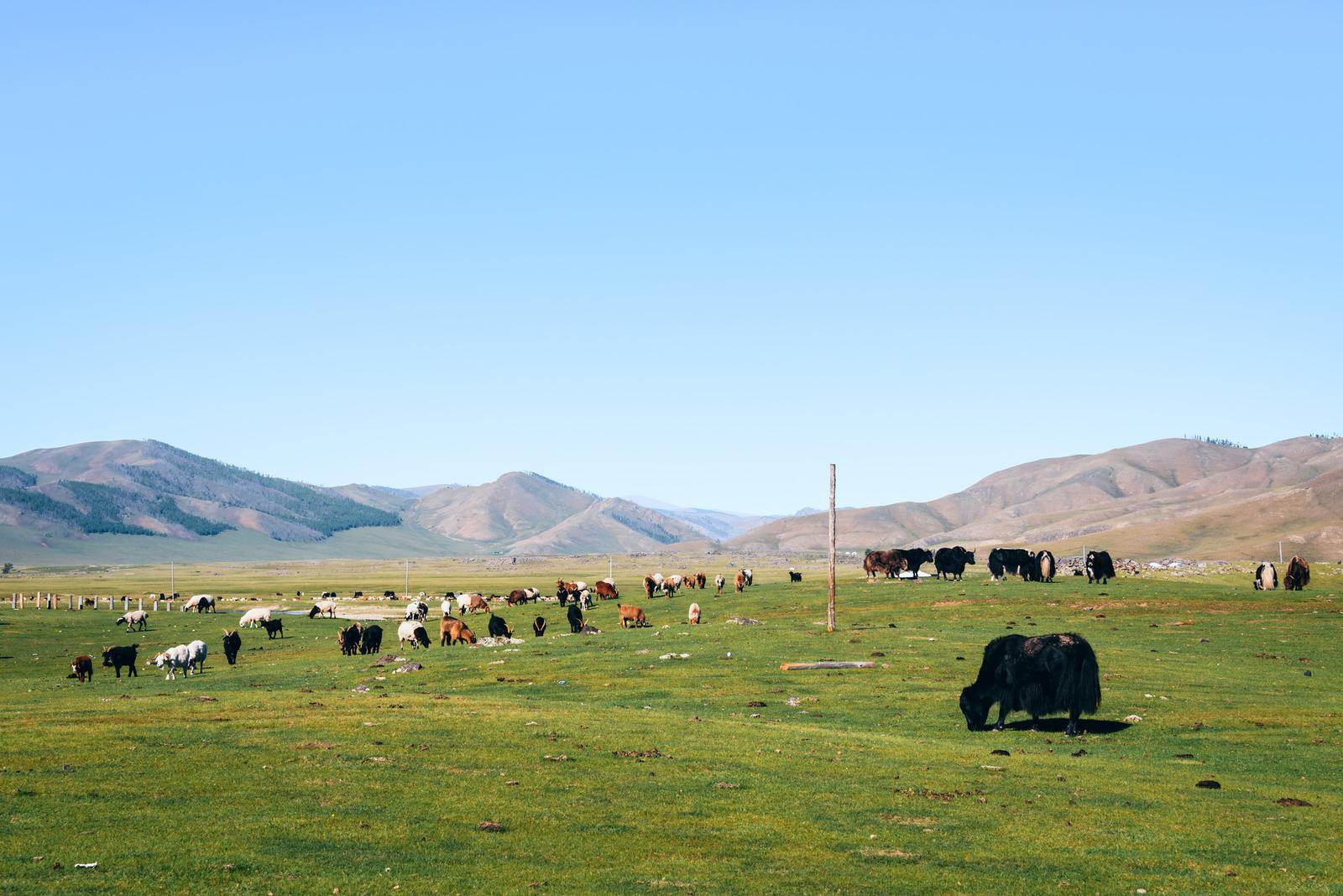
Visiting a Local’s Home
After a radiant sunrise, our car rolled along Orkhon River, retracing the previous day’s route towards Kharkhorin before continuing to Ögii. Since hygiene tasks in Orkhon hadn’t been ideal, I’d been eagerly waiting for a place with better shower facilities throughout this ride; that feeling of not being able to freshen up and change clothes was quite uncomfortable.
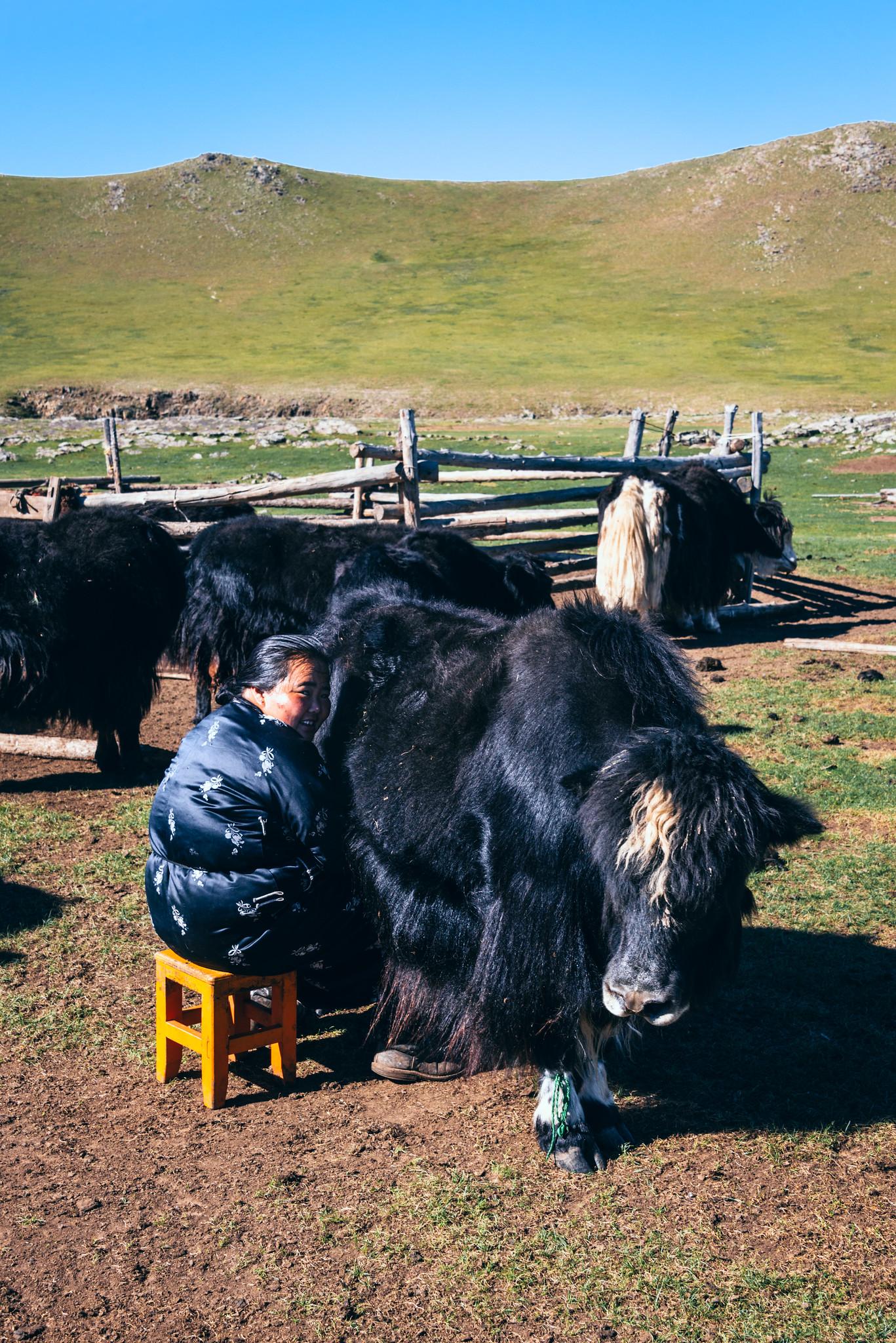
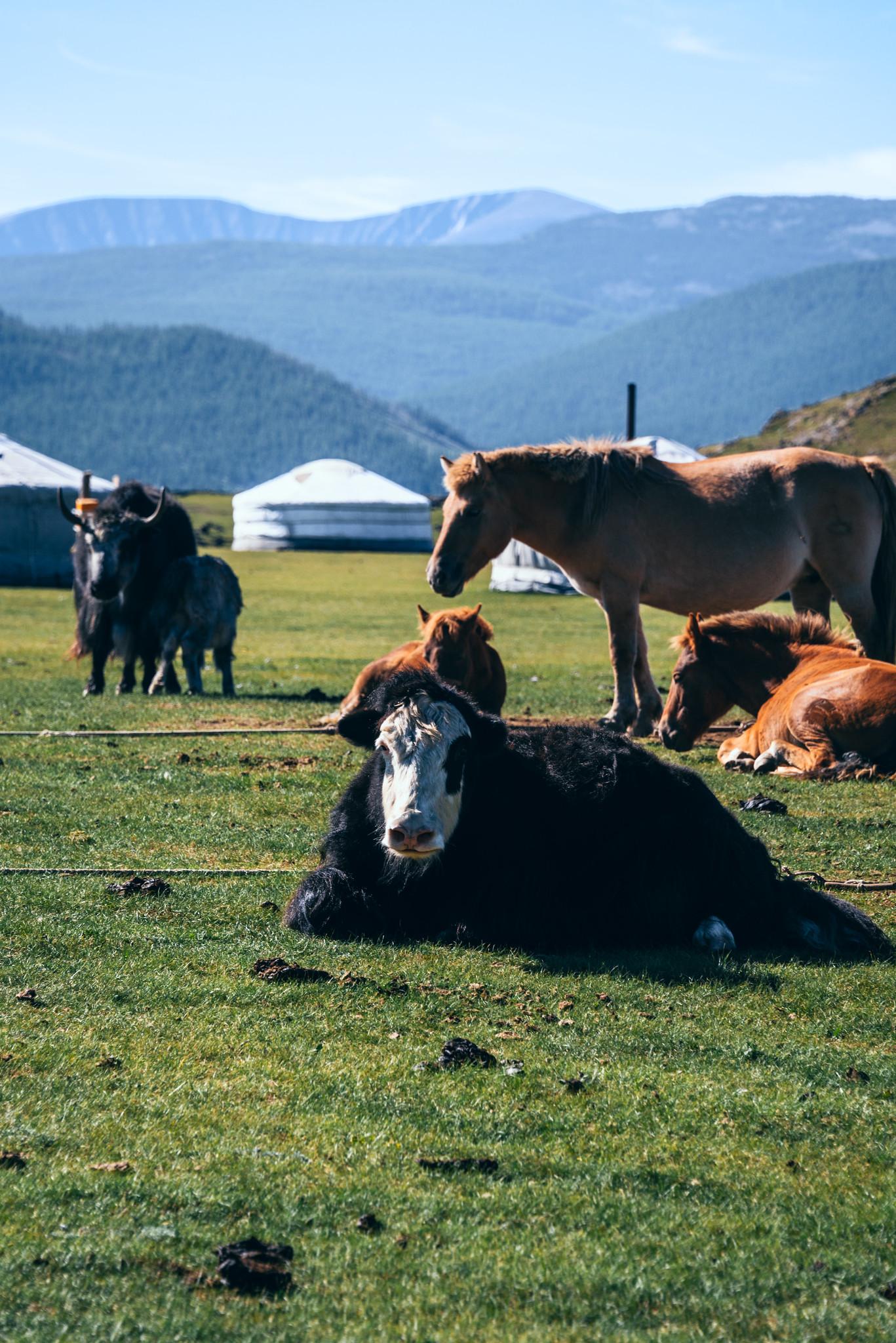
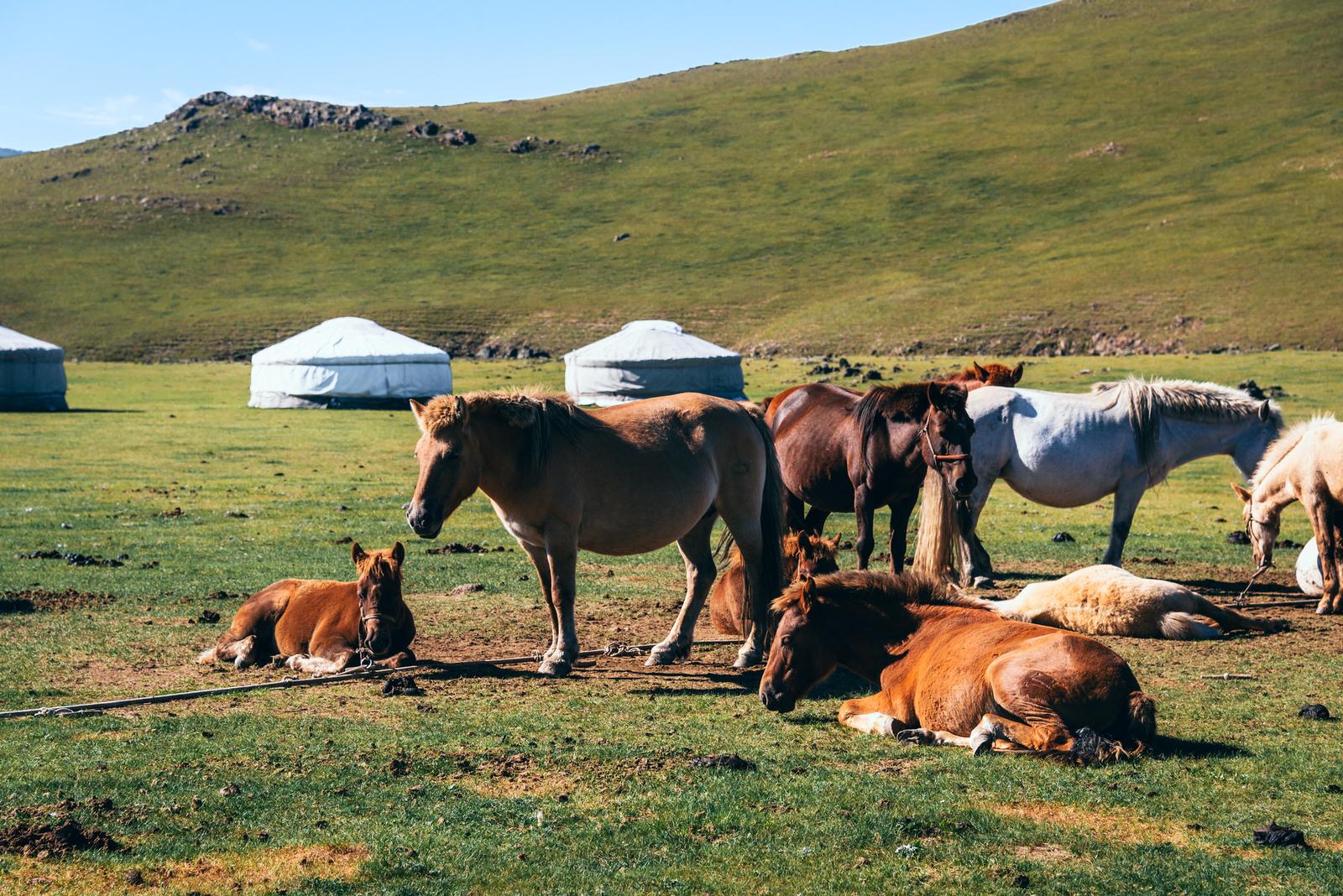
Our group visited a local’s home and was warmly welcomed with a big bowl of fermented mare’s milk and horse milk cheese; if the bowl was emptied even a little, it’s promptly refilled - though, of course, the traveler found it’d upset his stomach if drinking too much. Inside the ger, we could see the simplicity of the furnishings, with storage cabinets and a solar-powered TV with antenna.
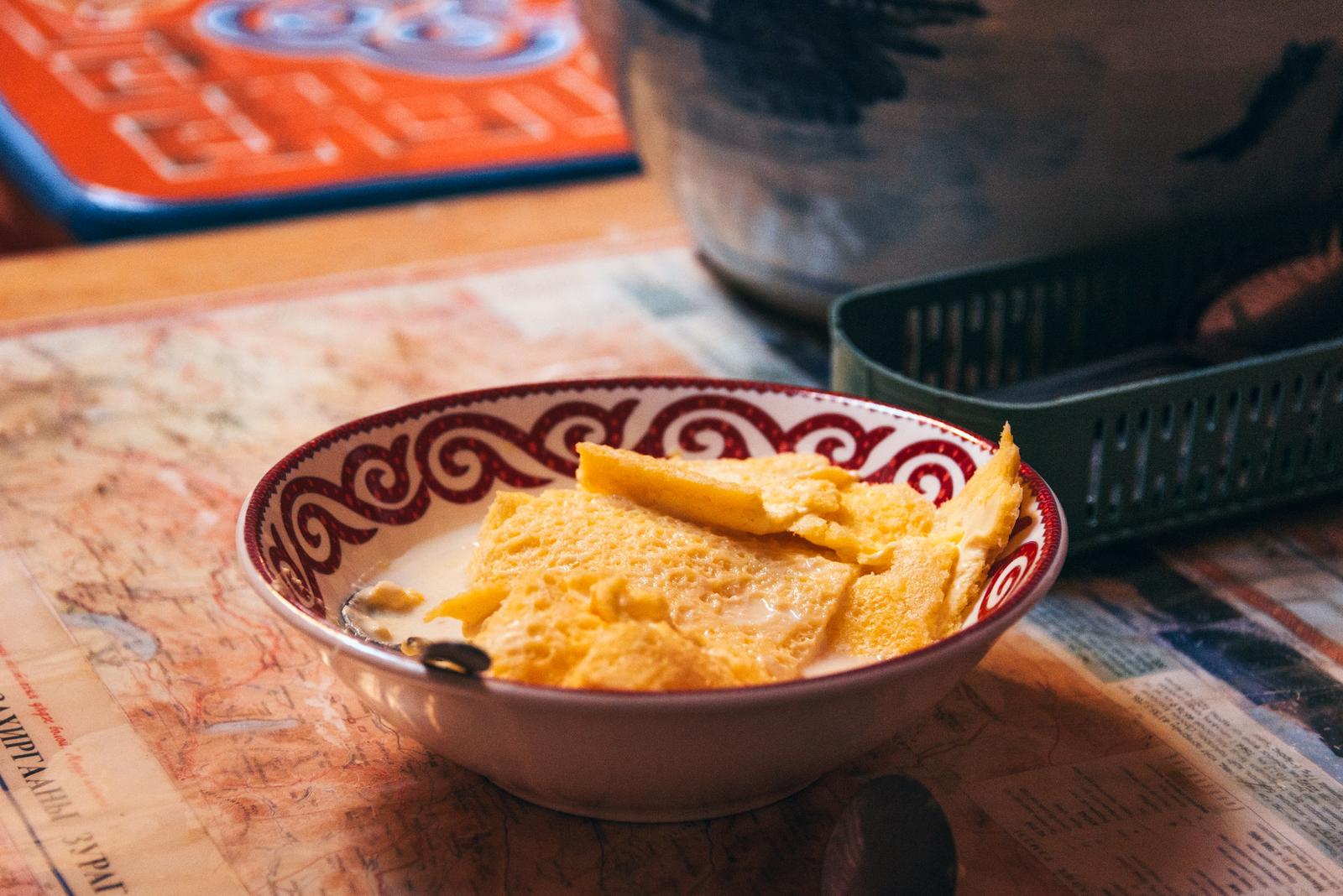
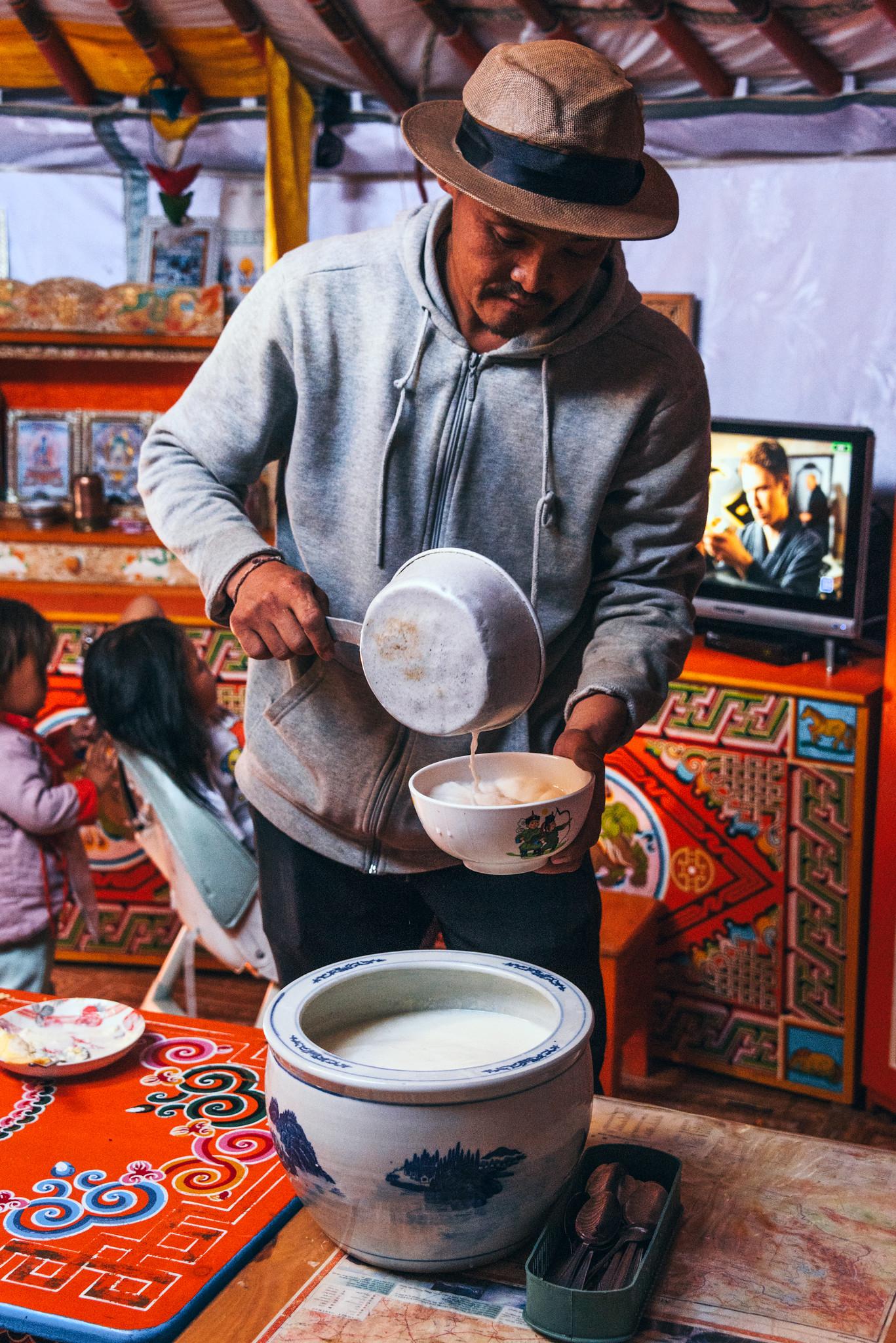
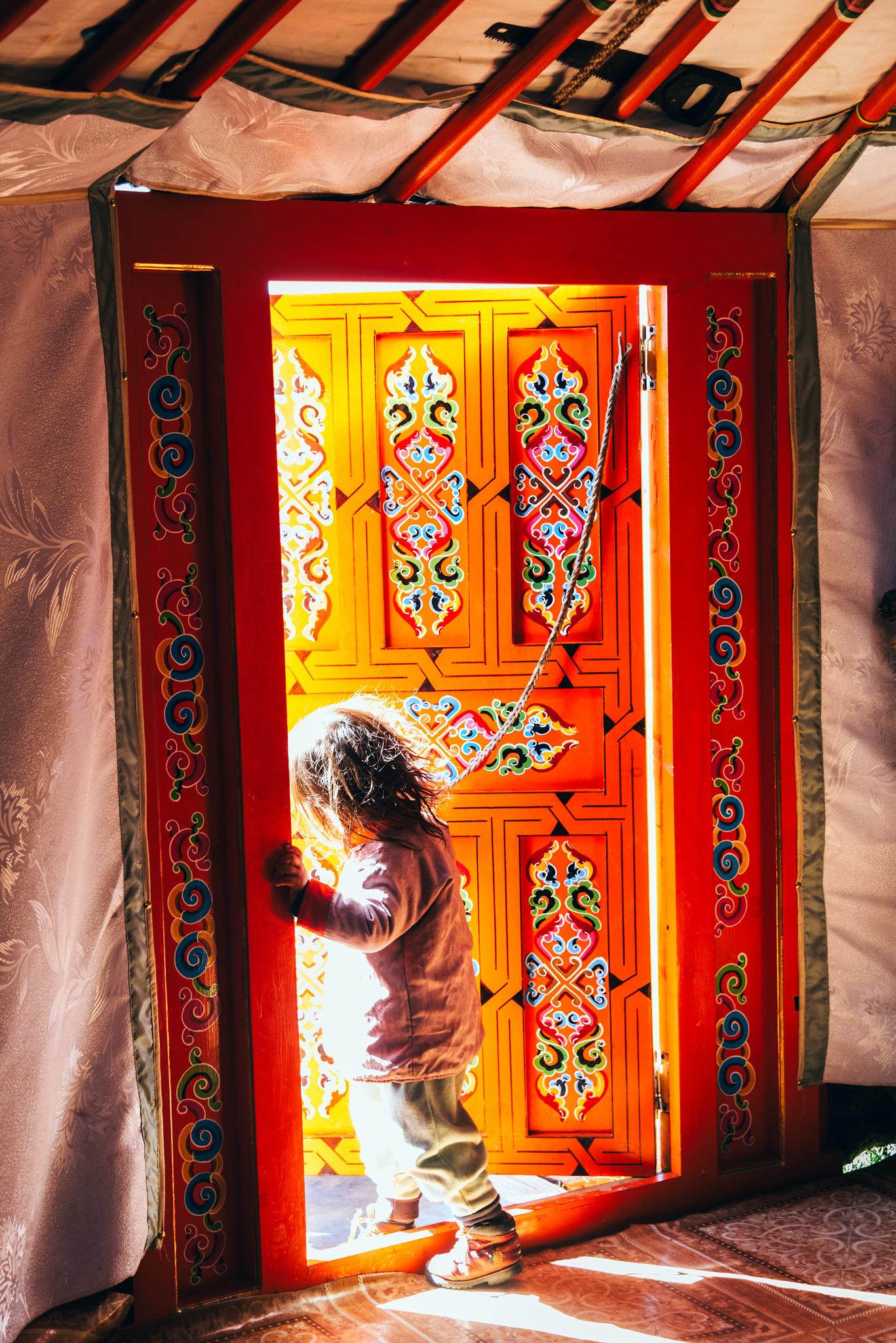
This morning’s journey back to Kharkhorin was sunnier and dustier, honestly I only wanted to get there to relieve myself and recharge all my devices and power banks - since there’d been no electricity in Orkhon, as well as to reconnect with the world after a day of being almost completely cut off from civilization.
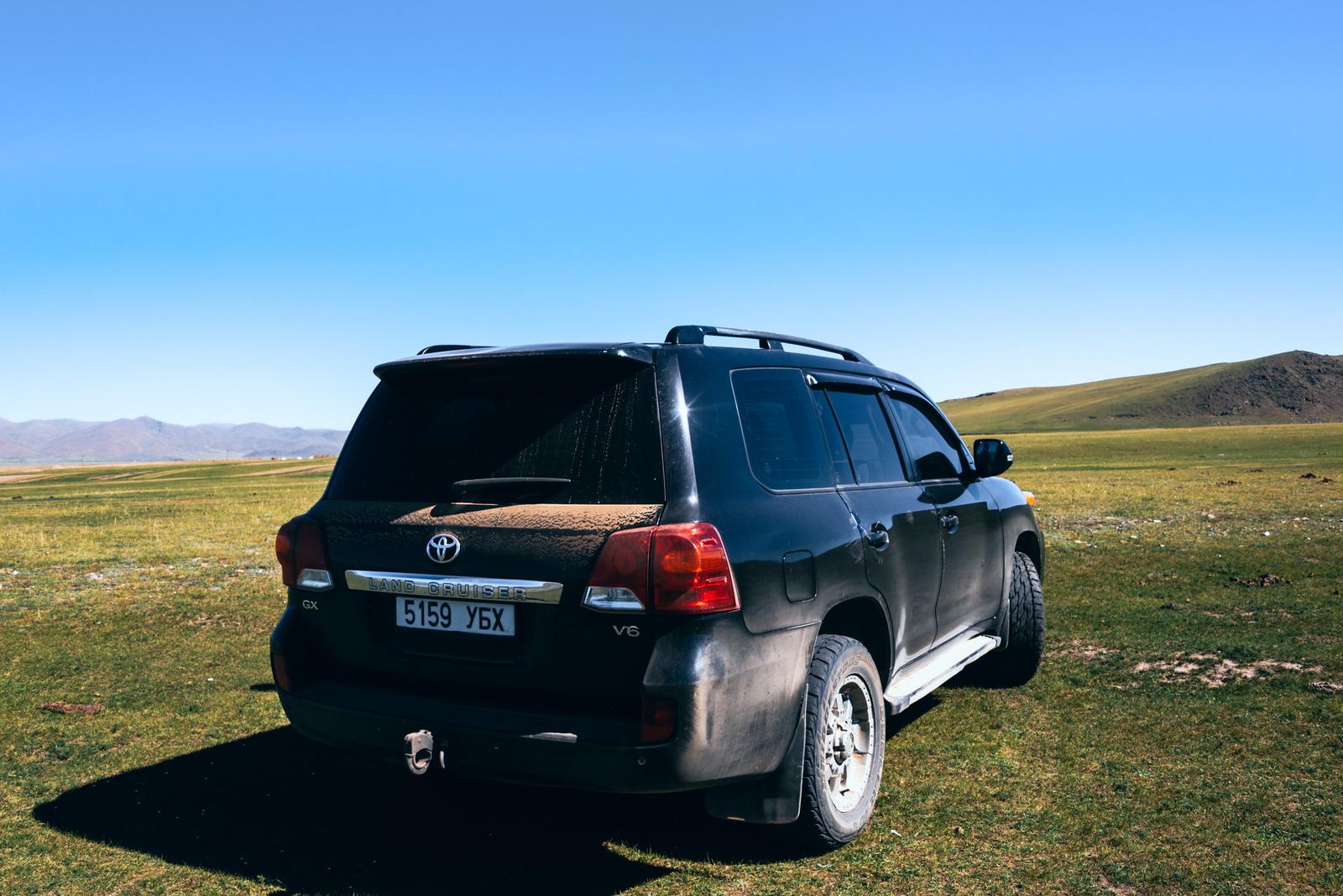
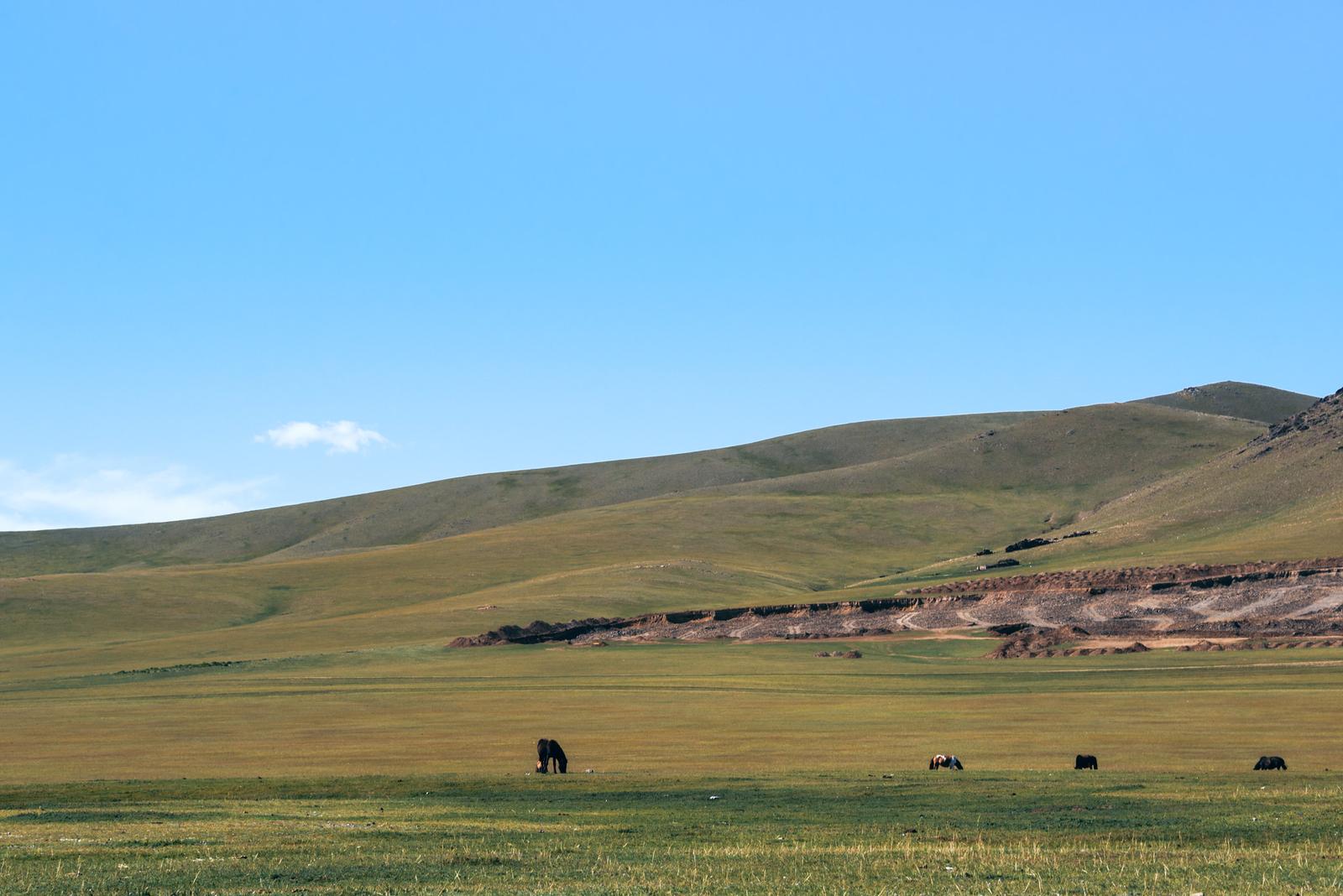
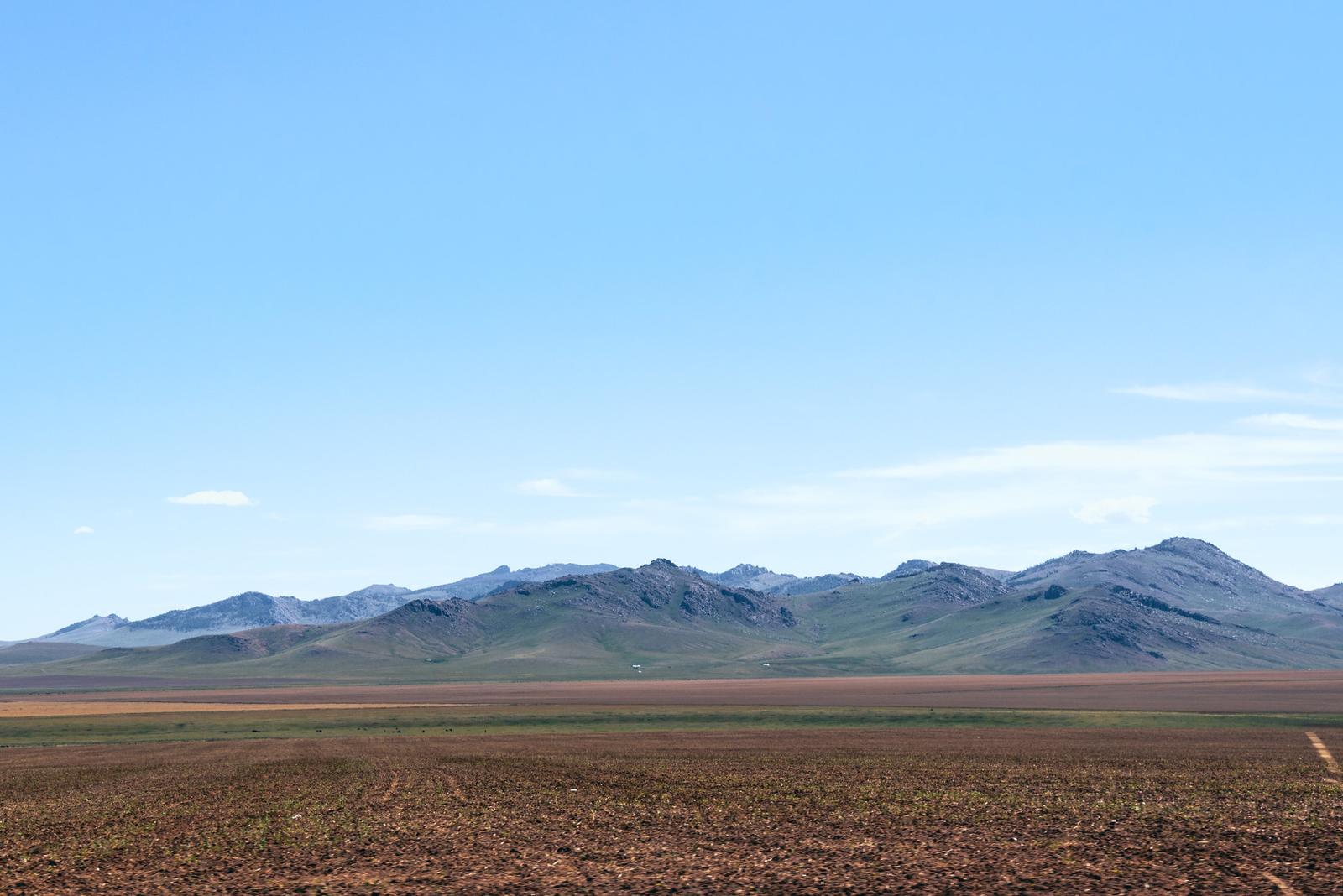
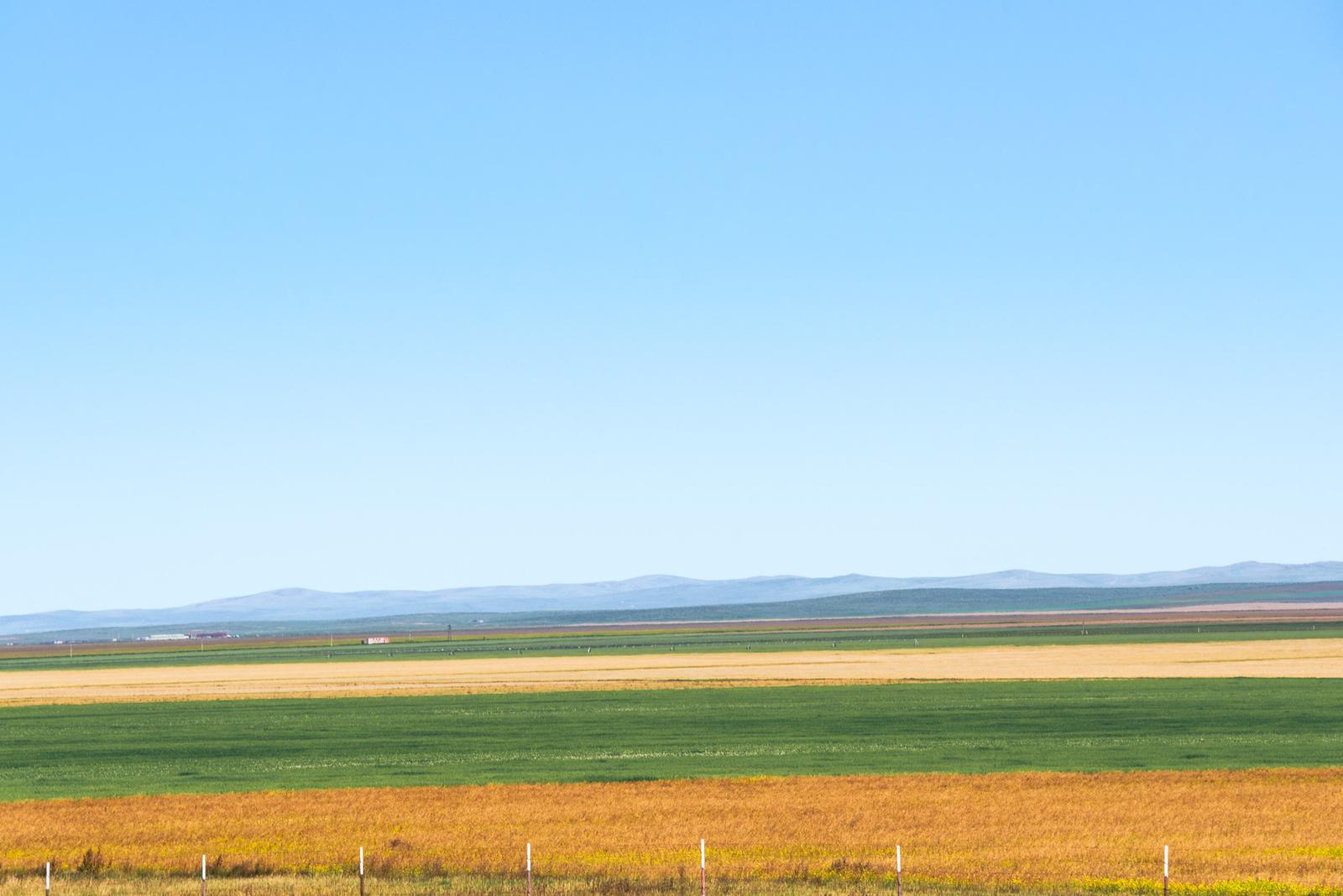
Heading towards Ögii Lake
We followed Khushuu Tsaidam Road to reach Arkhangai province. As it’s midday and the scenery along this route wasn’t particularly interesting - with dry grasslands and lacking of mountains, it’s the good chance to doze off. The only downside was occasionally I spotted piles of litter by the roadside, standing out amidst the vast green grasslands, which was rather an eyesore.
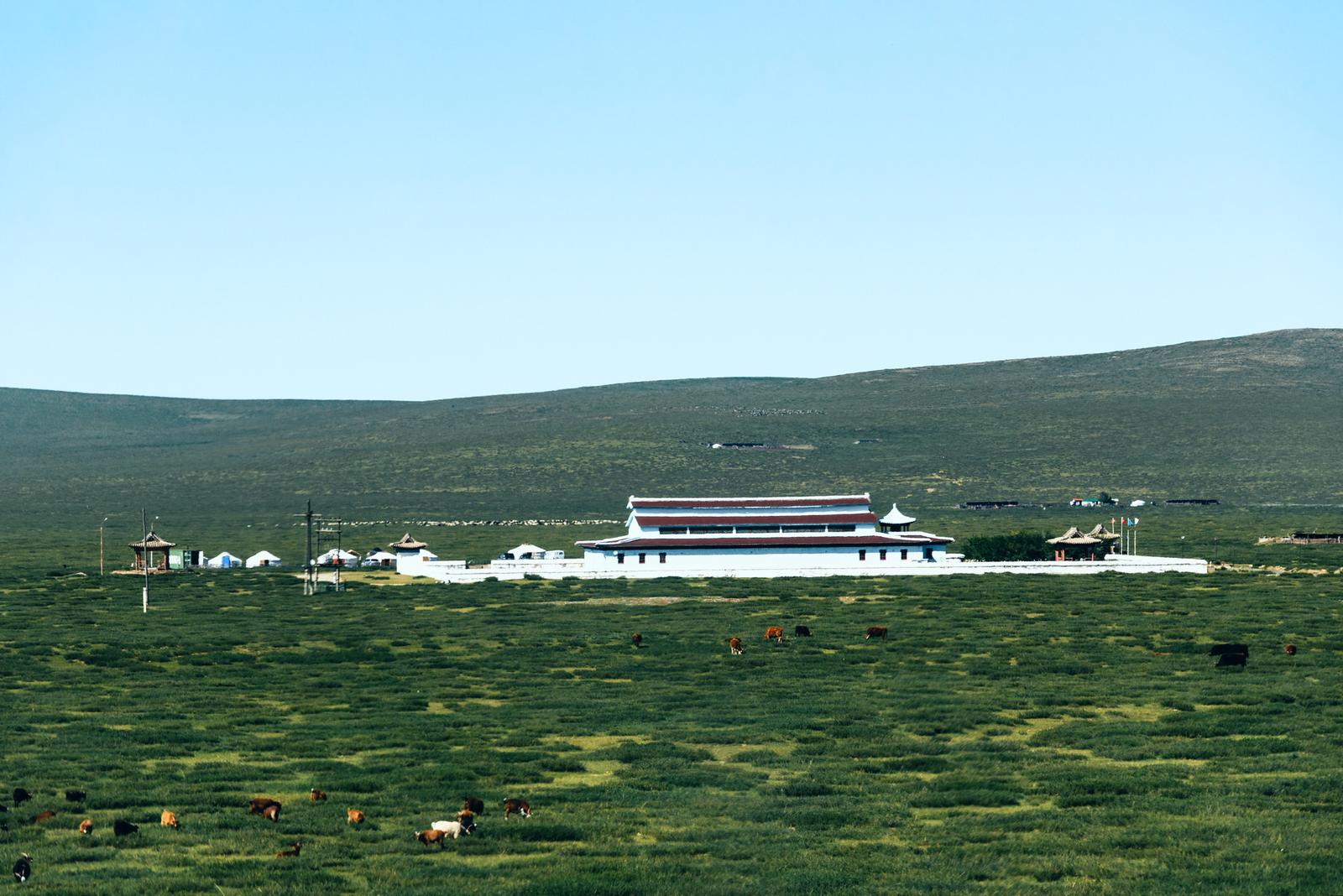
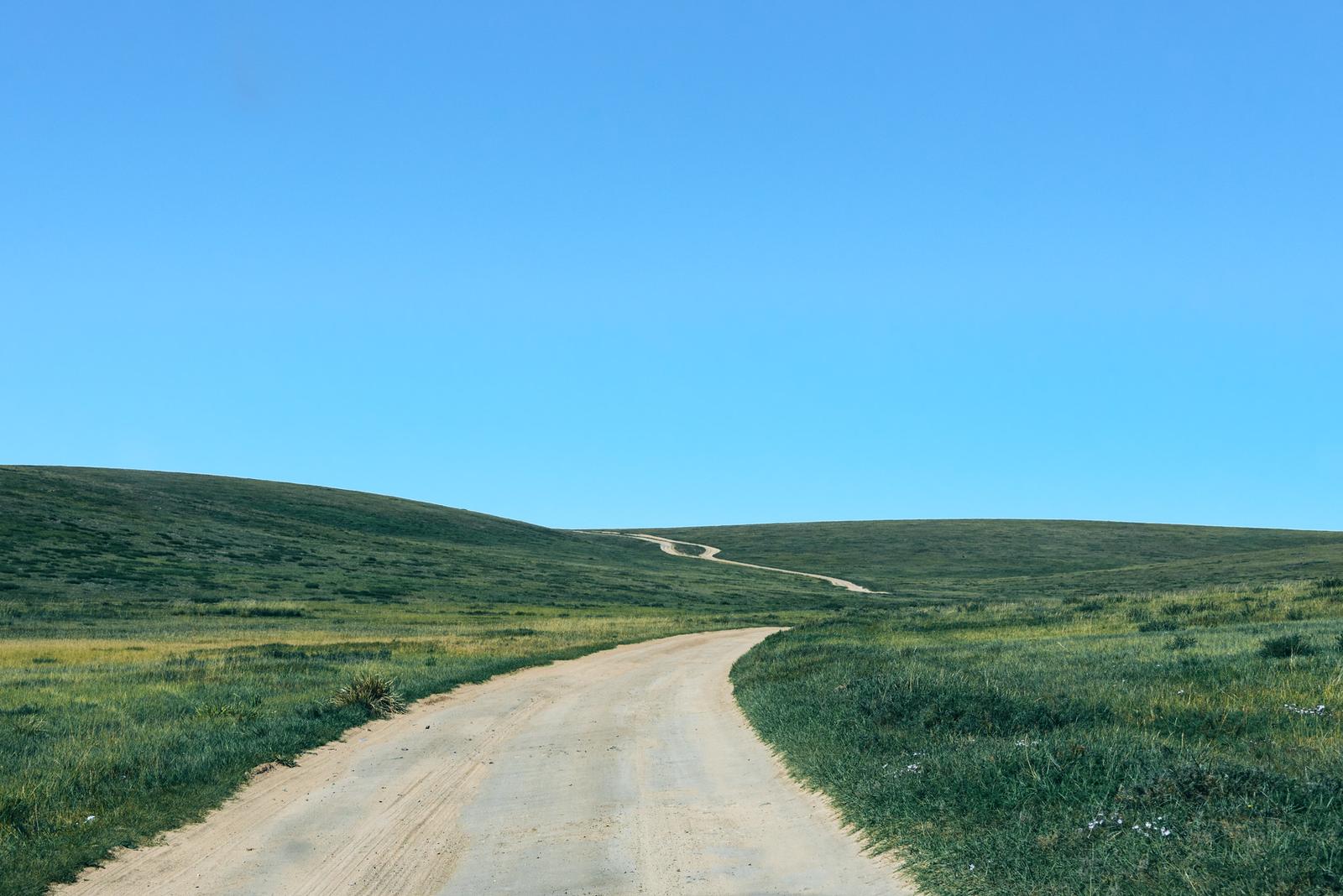
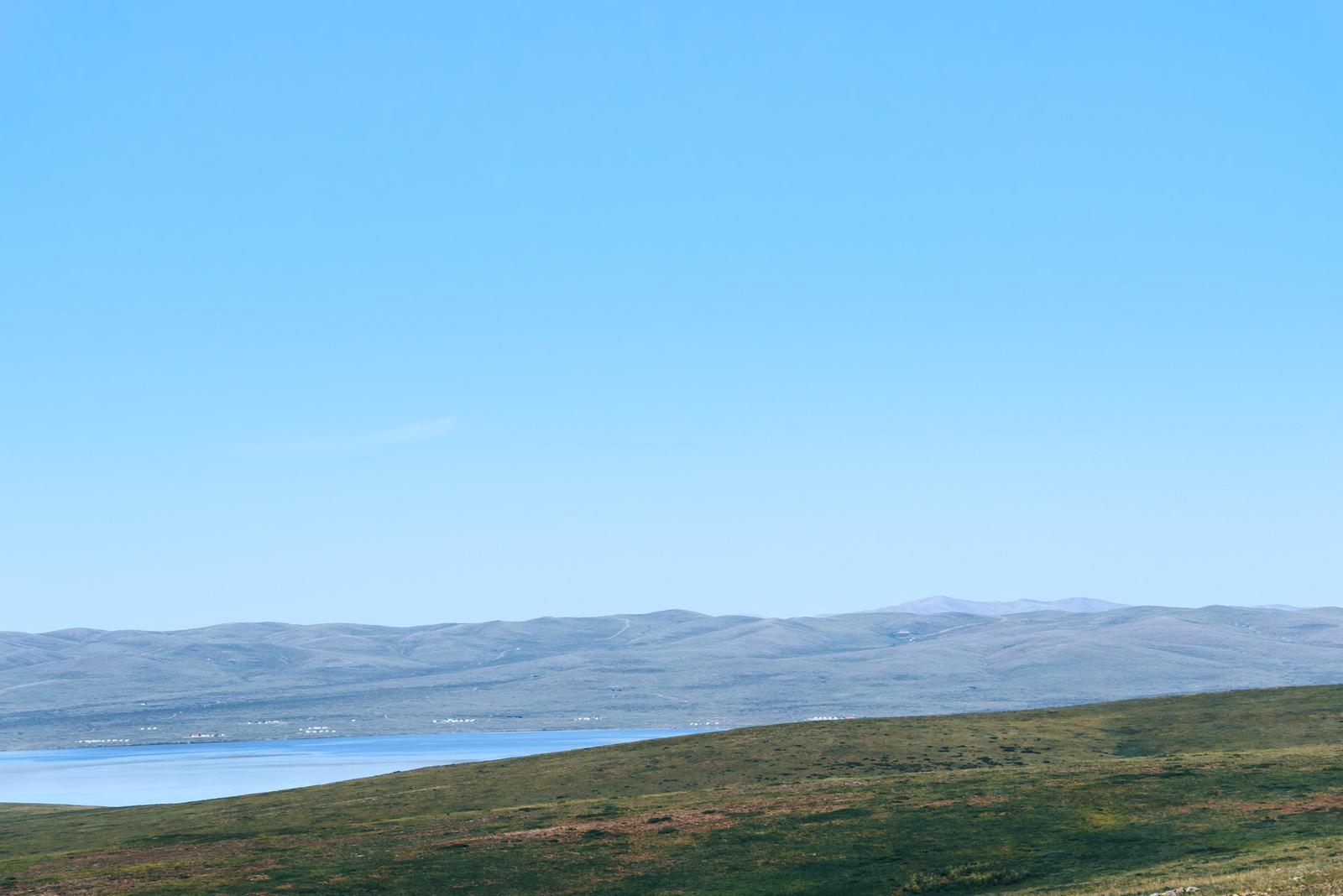
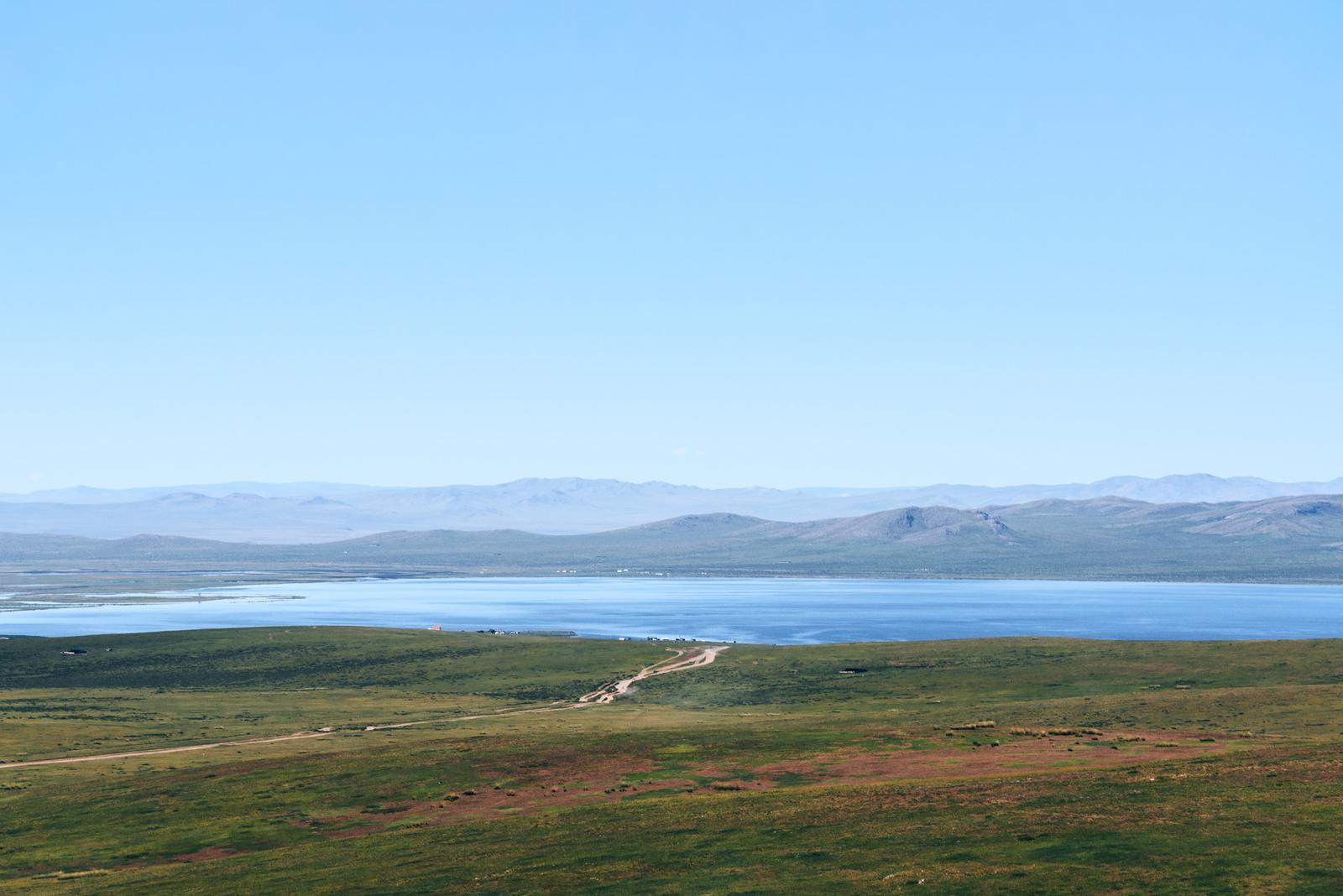
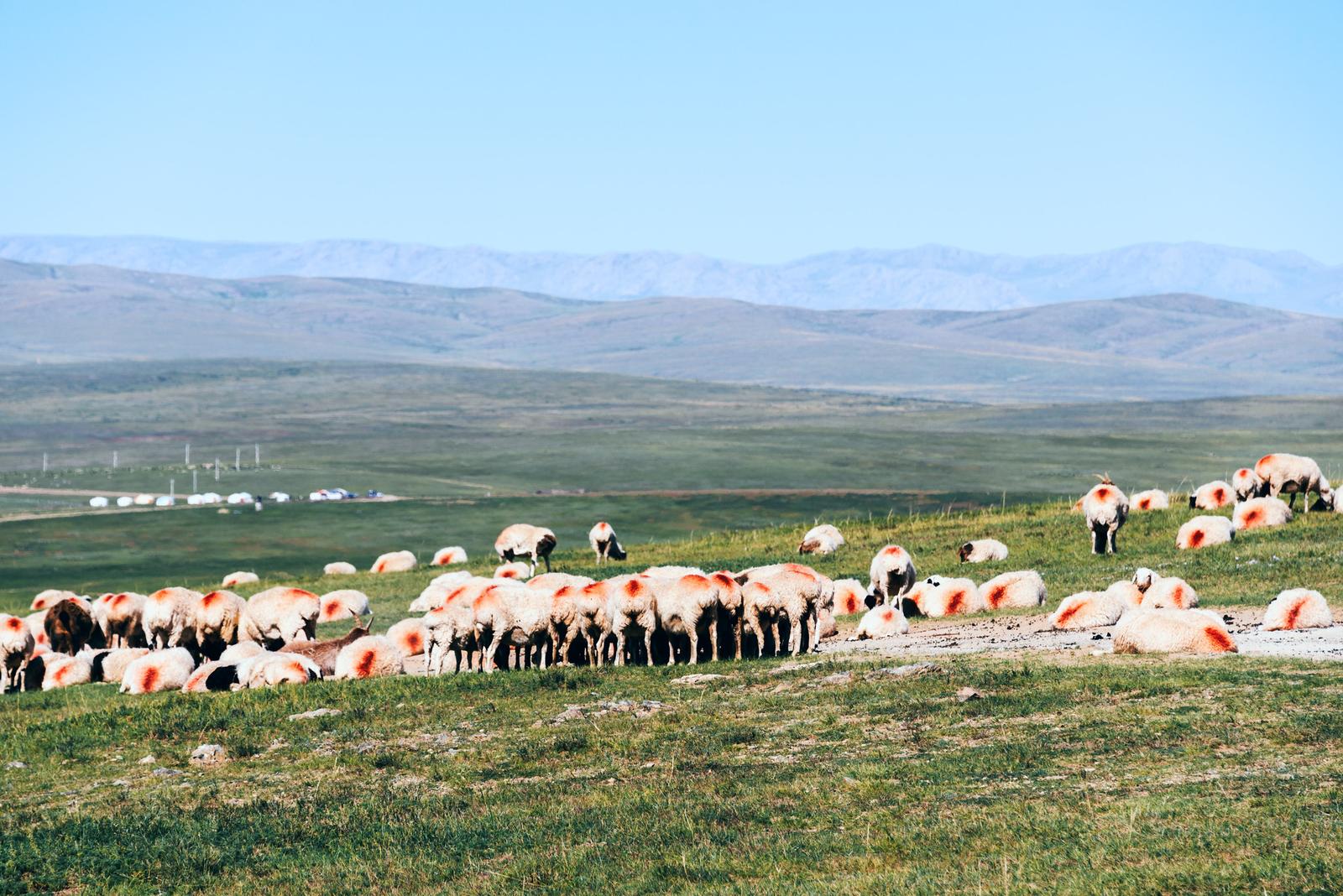
As the blue of the lake gradually appeared on the horizon, I knew that Ögii wasn’t far away.
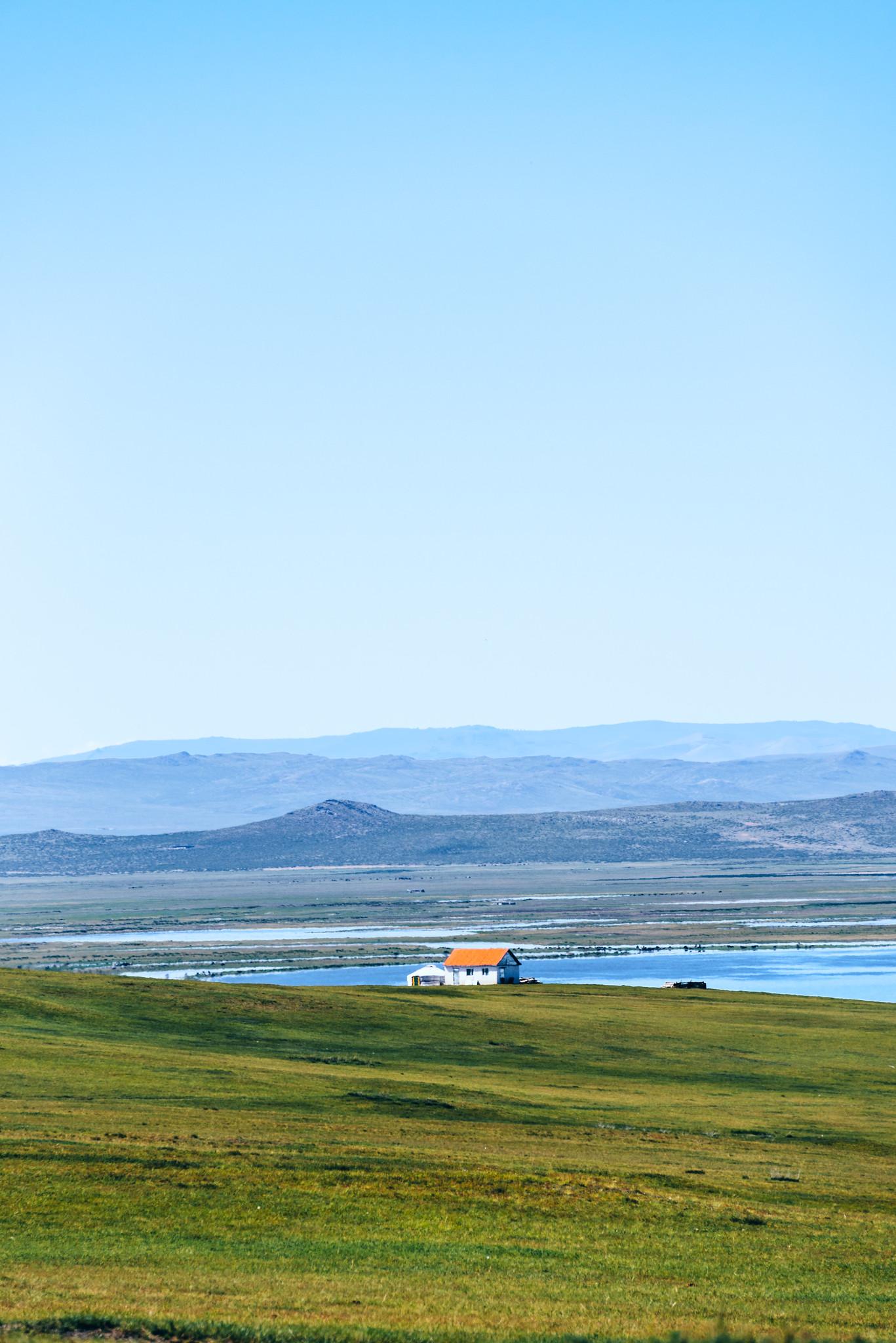
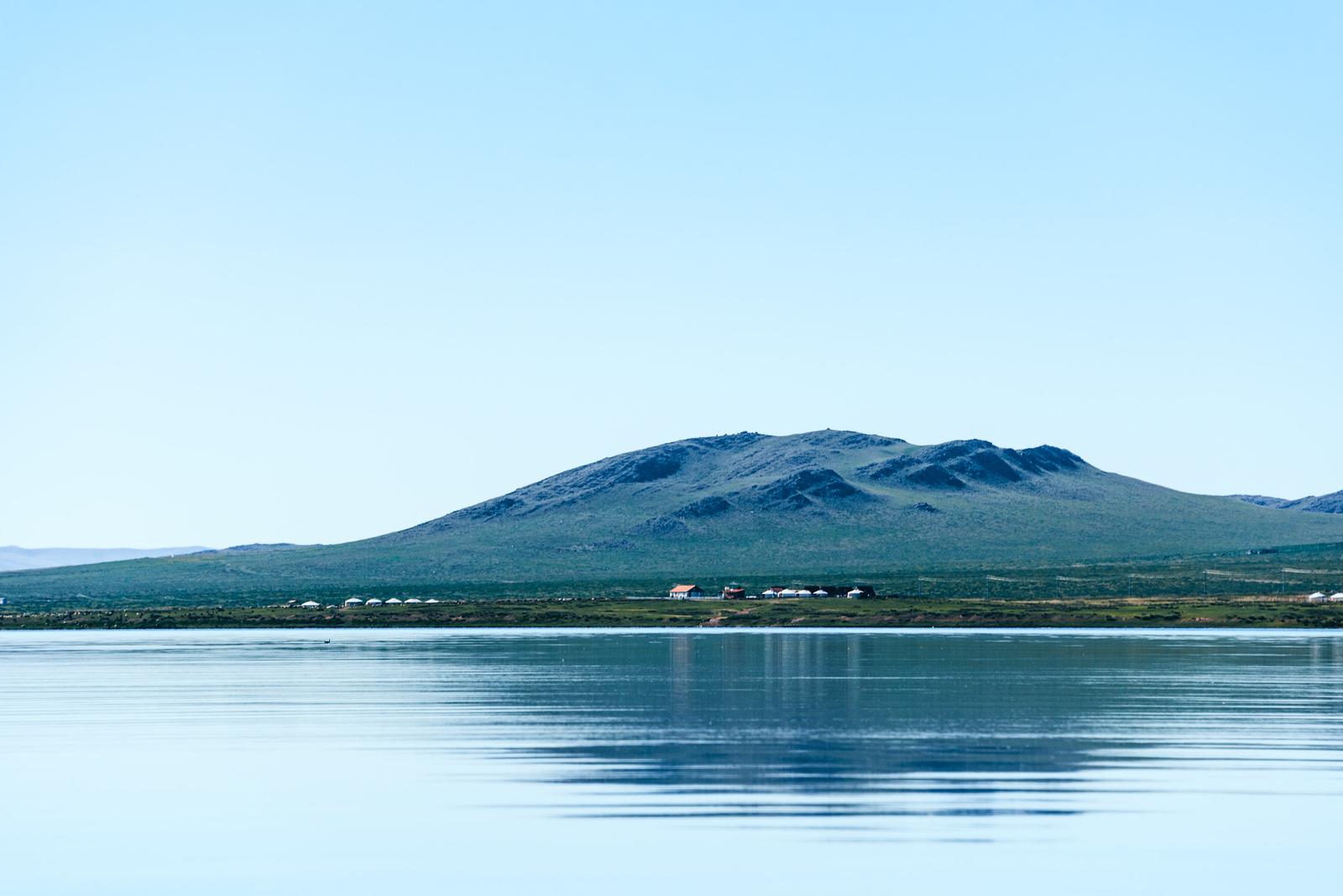
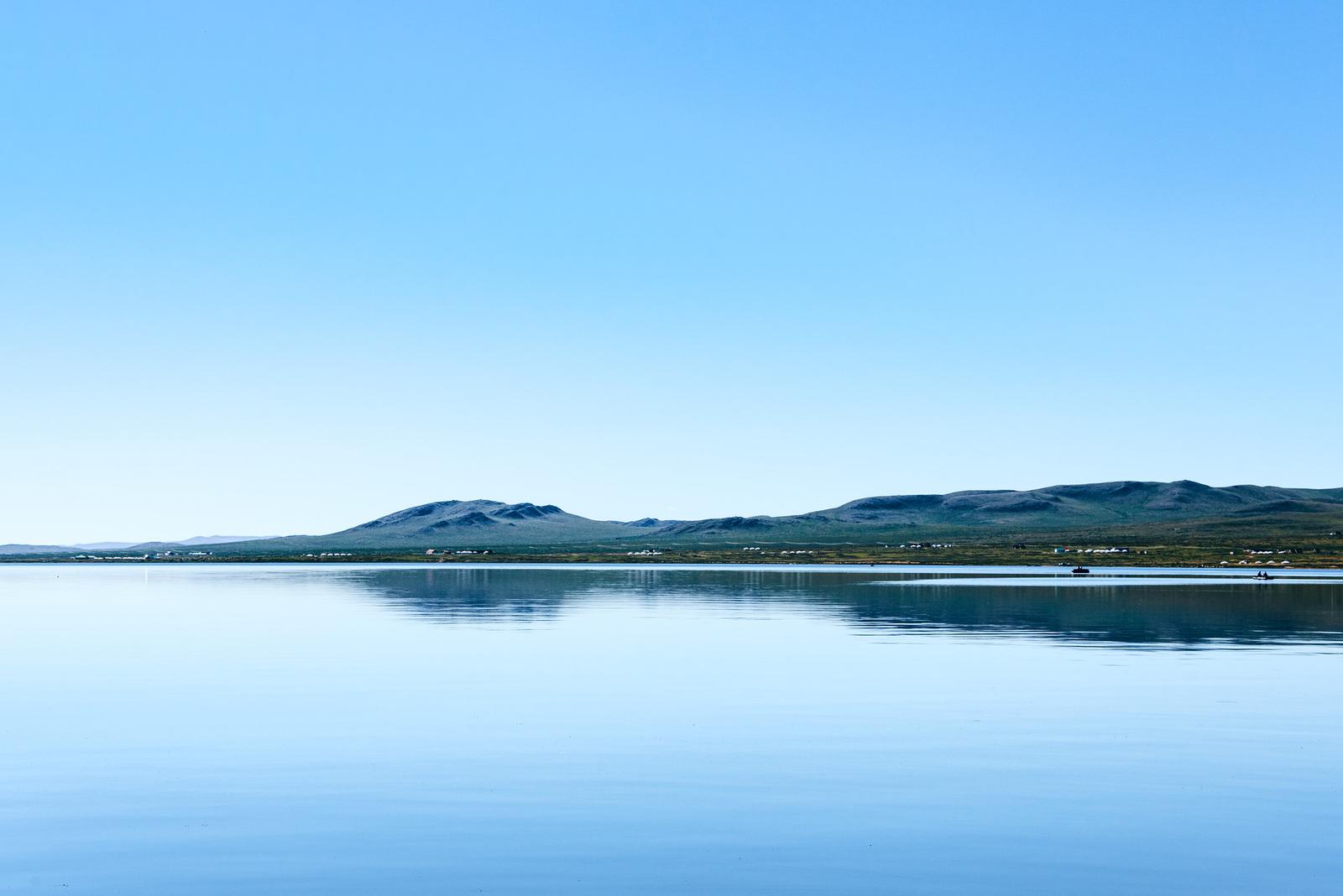
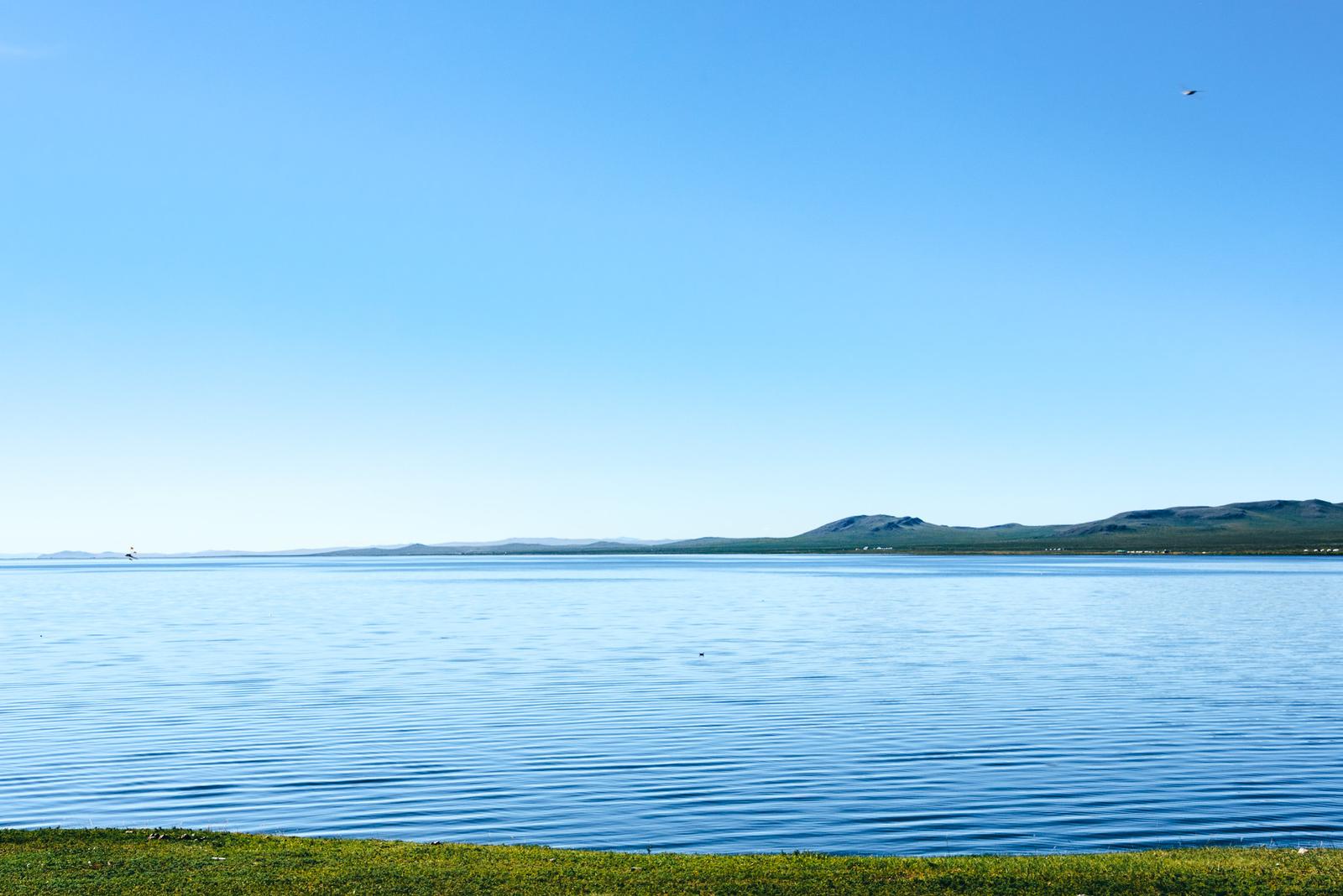
The driver made a brief stop on the eastern side of the lake, an ideal spot for birdwatching, fishing or simply sunbathing. Many families drove here and set up tents for camping, creating a lively scene that felt not different from a tropical beach.
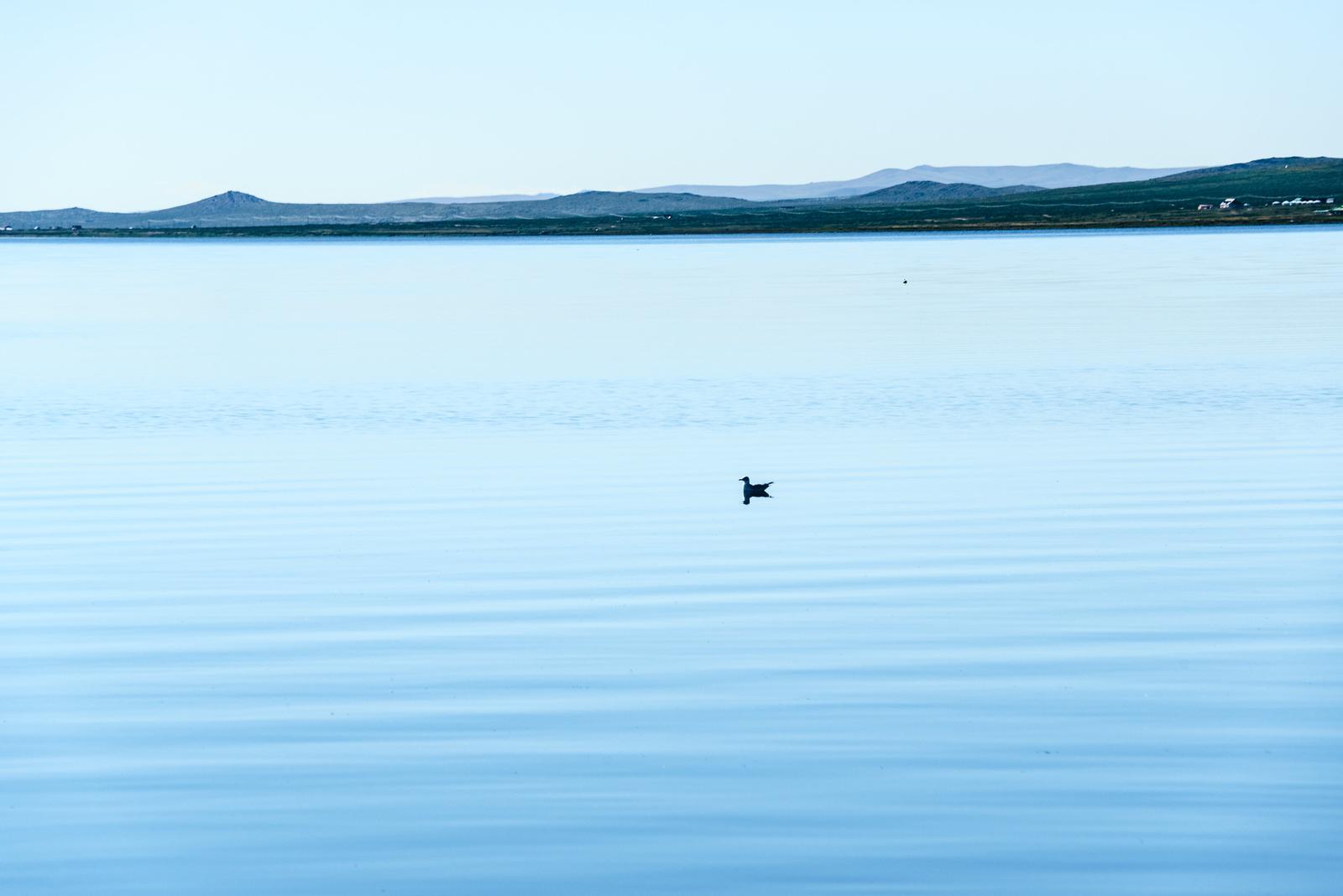
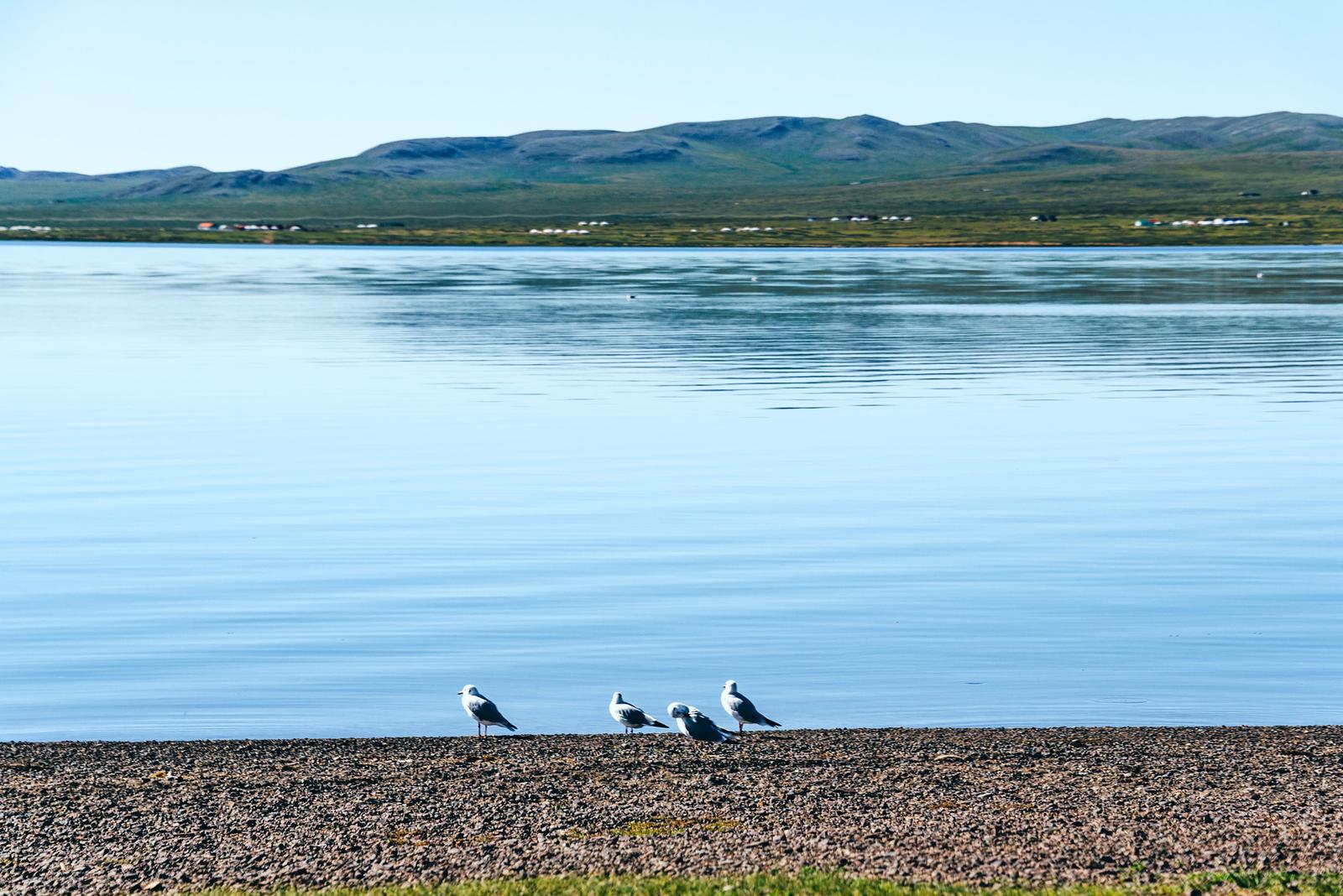
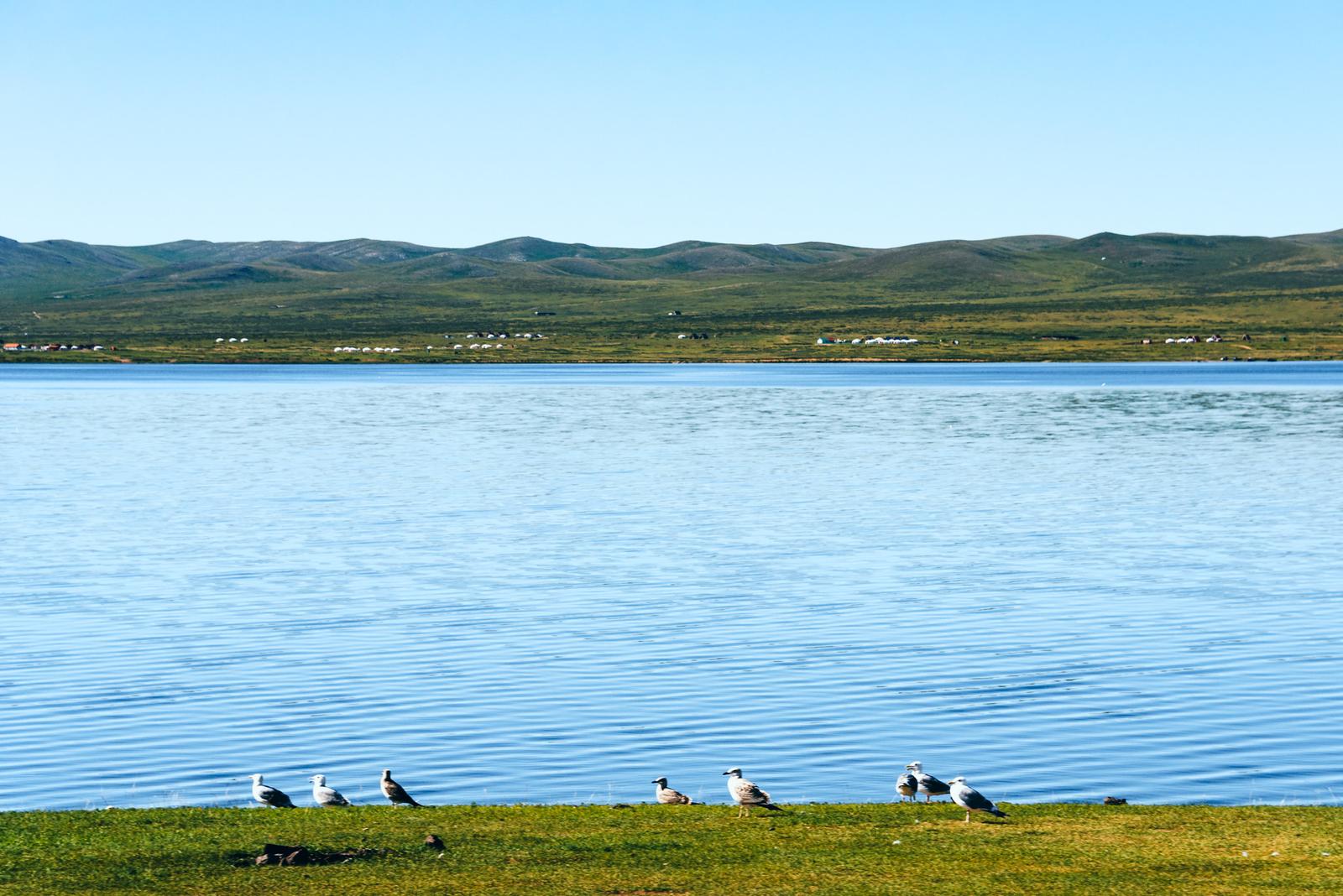
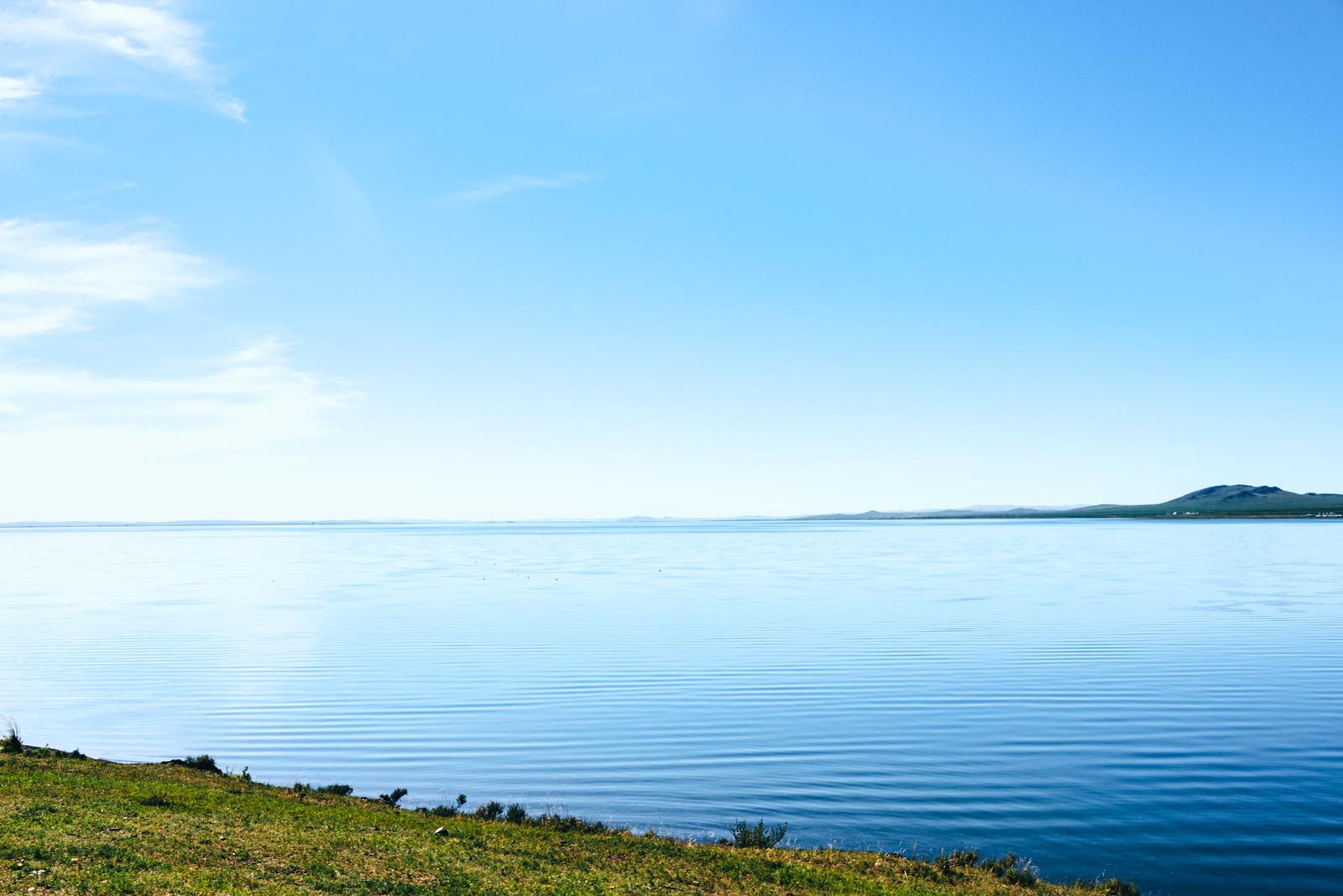
Arrived at the Campsite
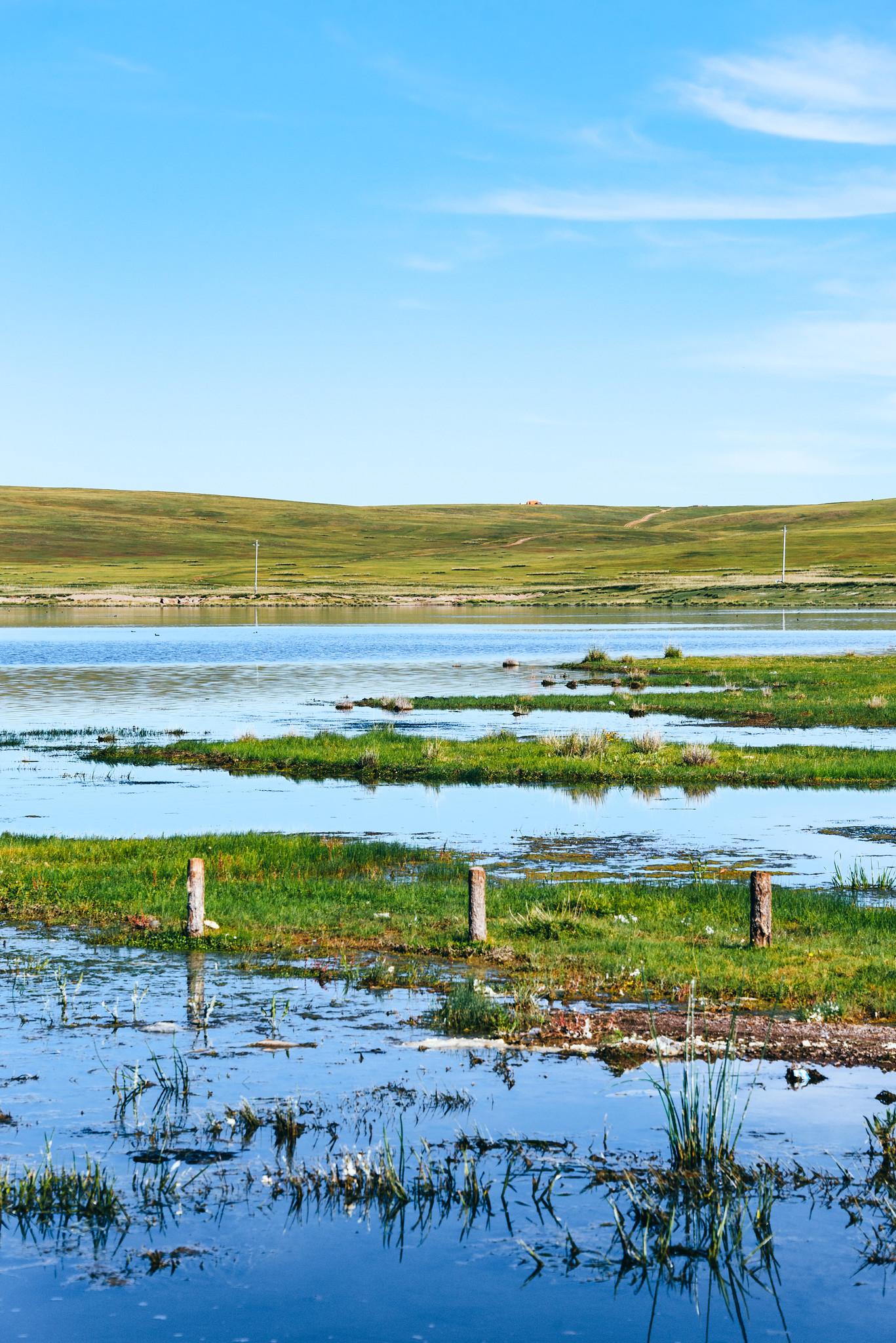
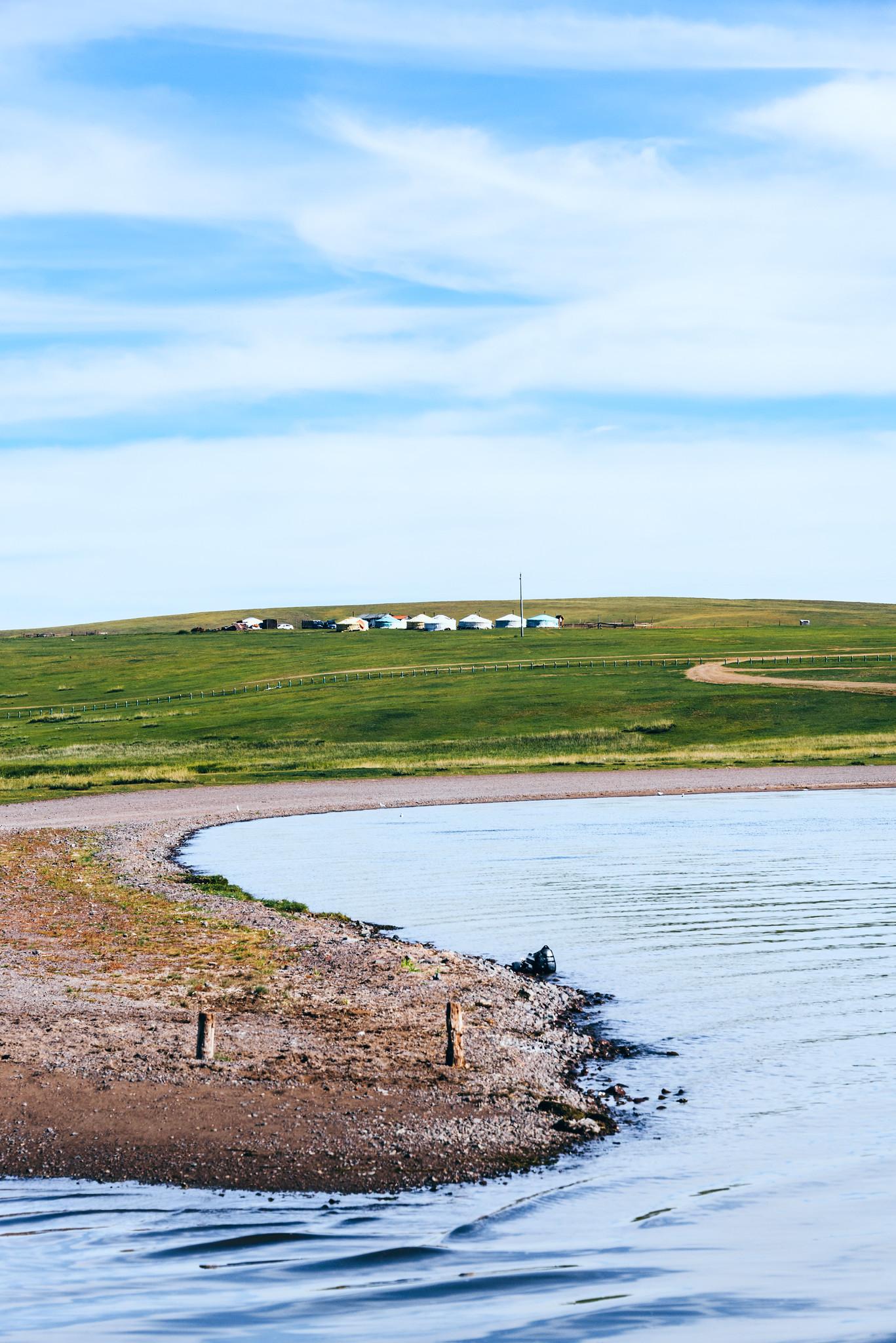
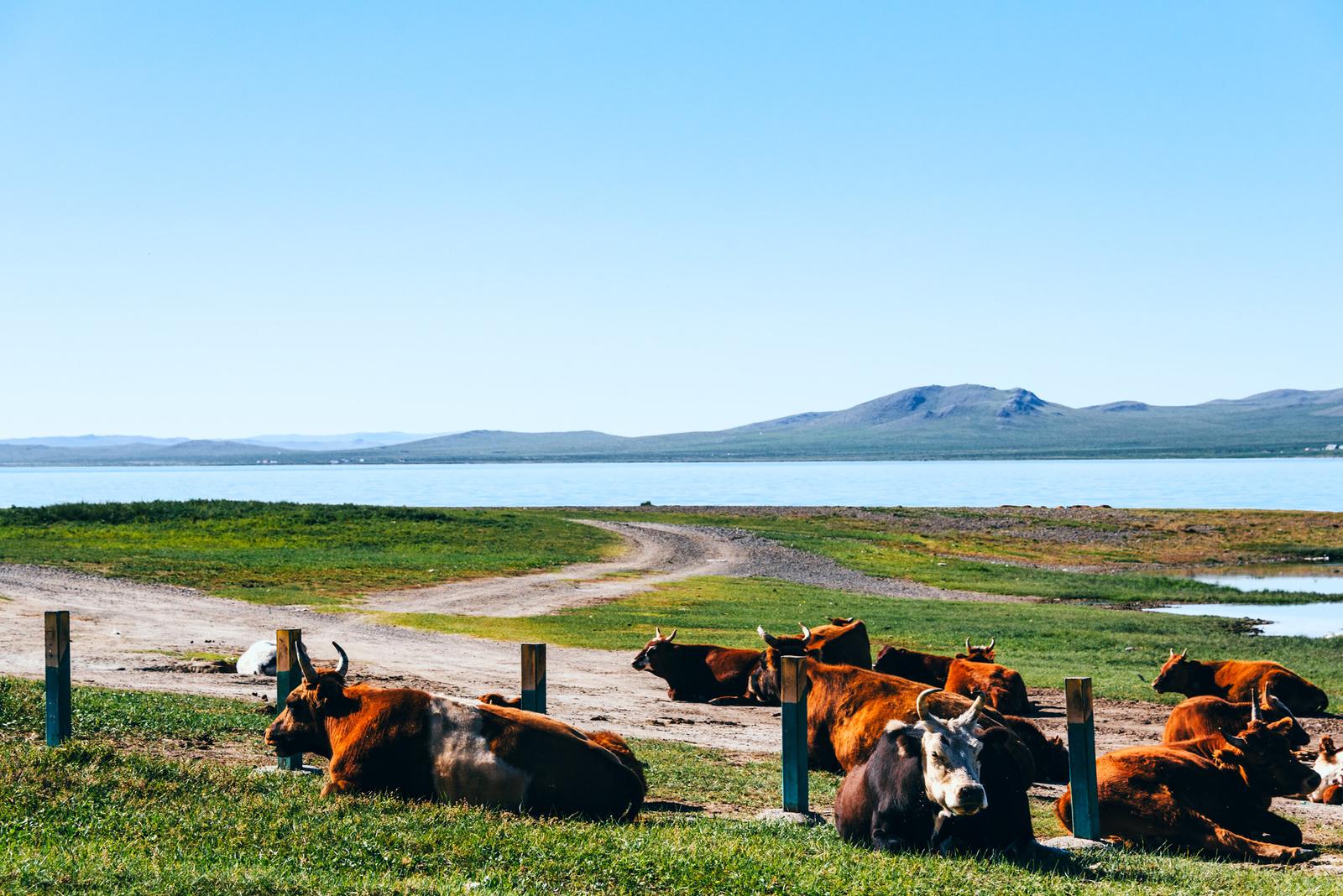
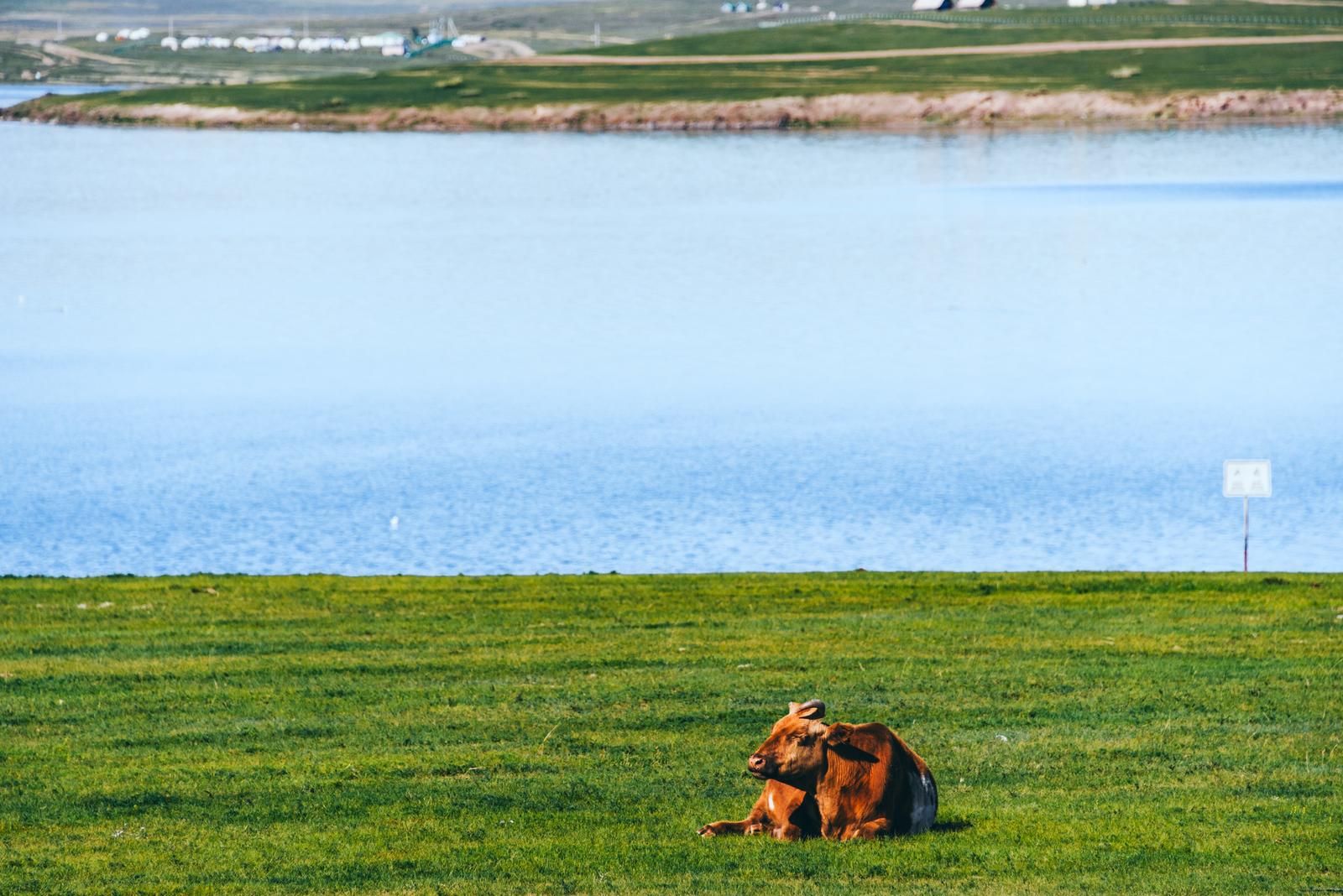
As the planned campsite couldn’t arrange a room, we took a detour, crossing shallow waters where herds of cattle were relaxing, before reaching Khatan Ögii Camp. A warm afternoon and a proper shower room - it’s enough for some well-earned rest after days of traveling. With hot water and internet only available in the evening, the perfect formula to unwind was to lounge around, take a walk, soak up the sun, and laze among the wildflowers, doing absolutely nothing.
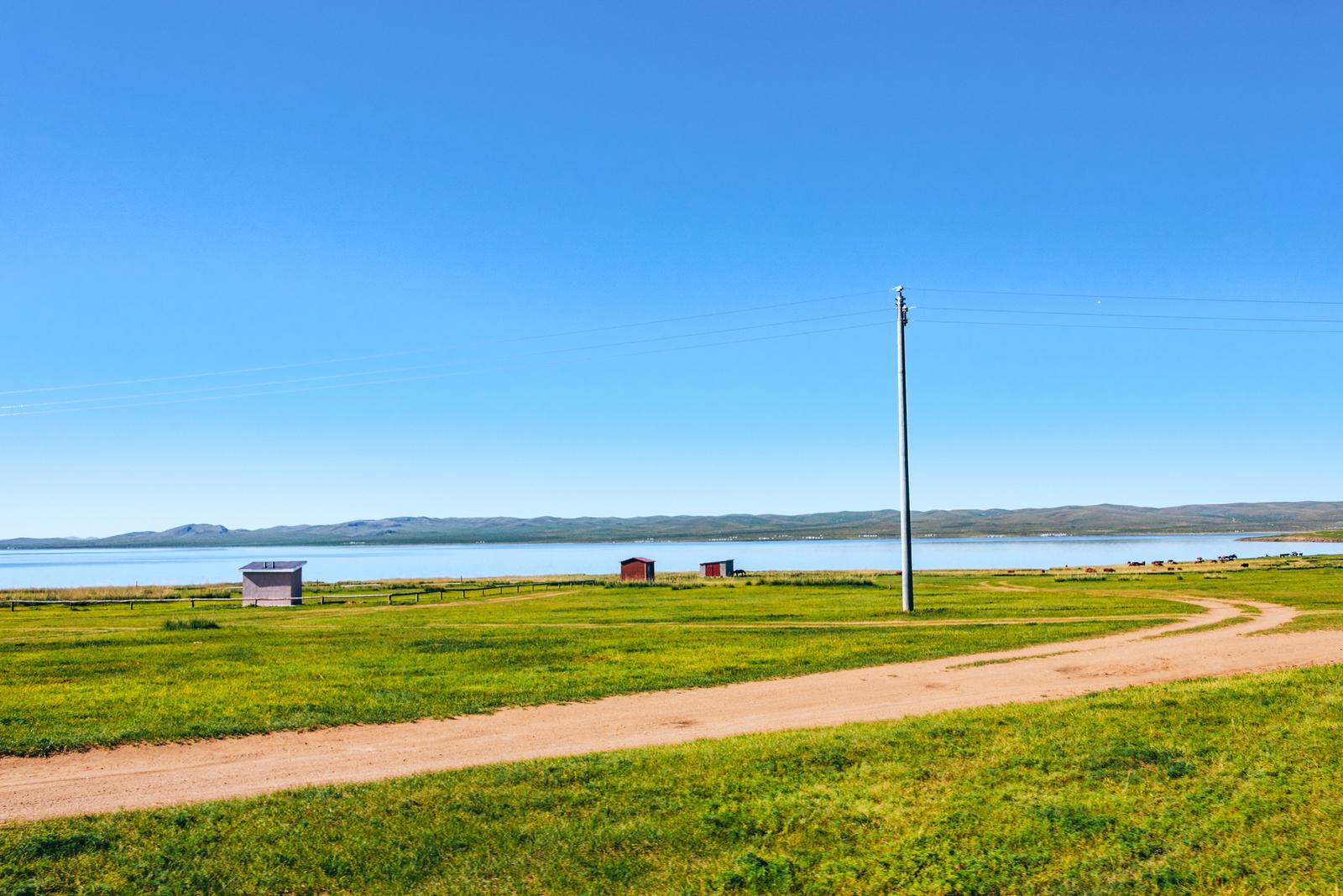
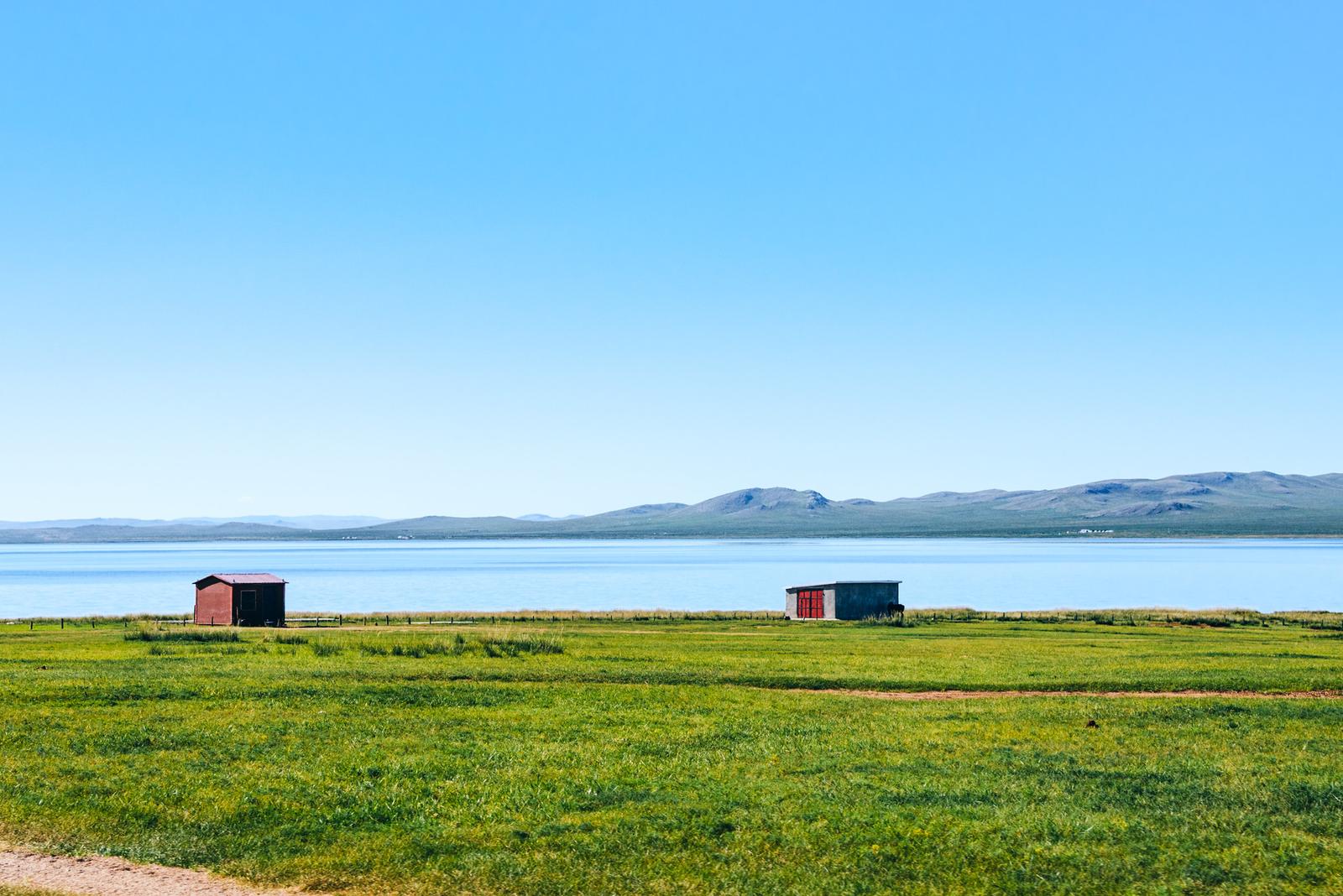
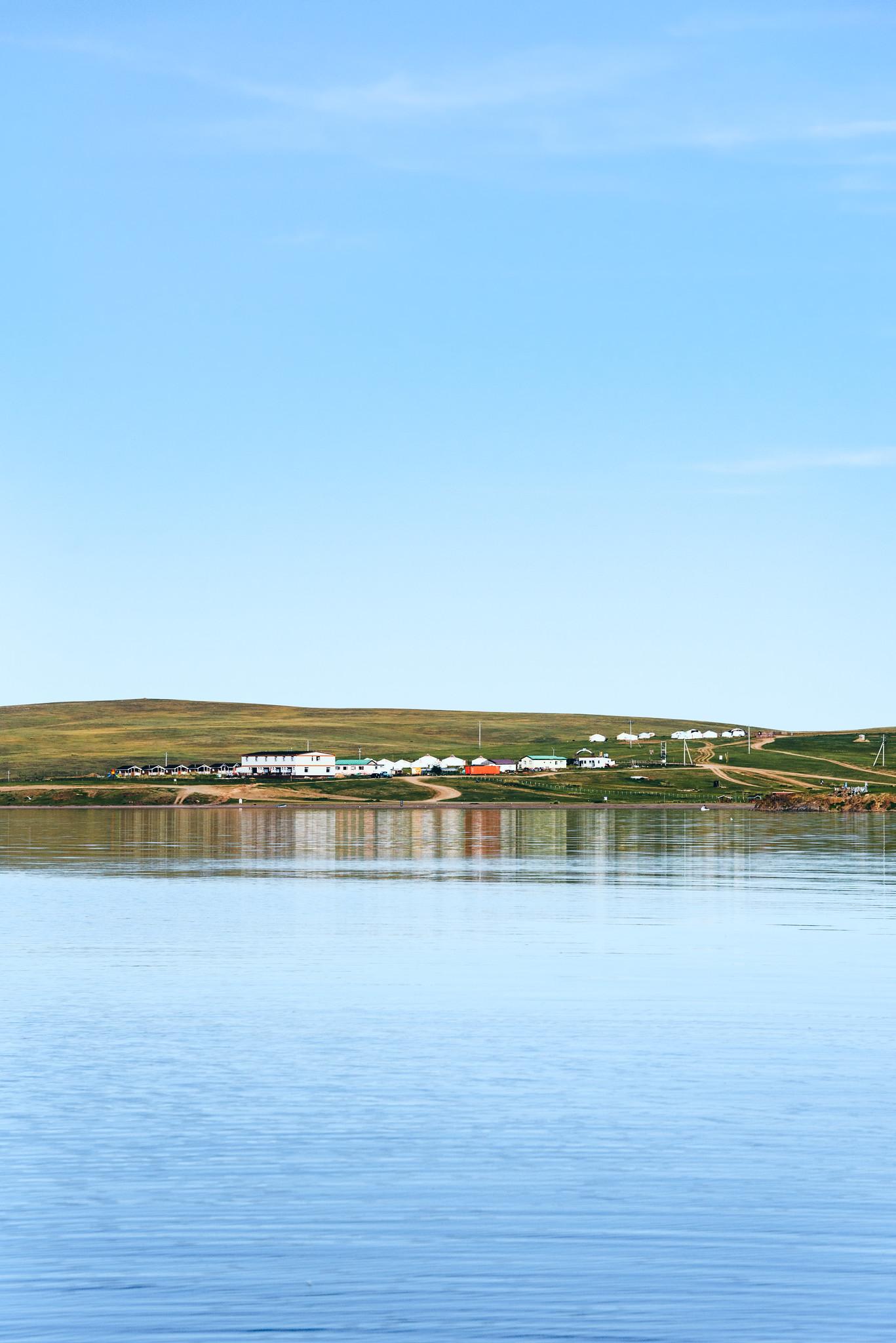
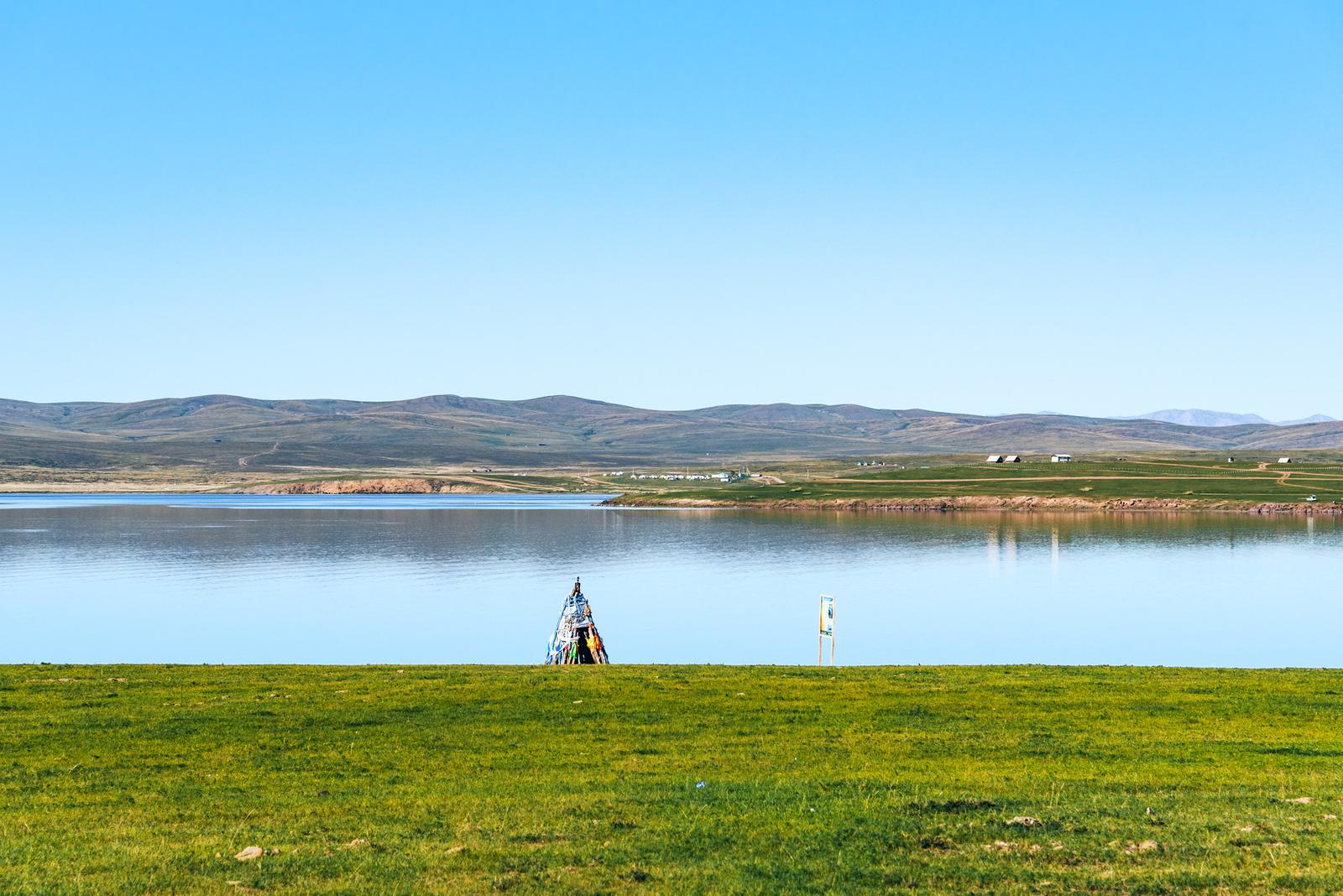
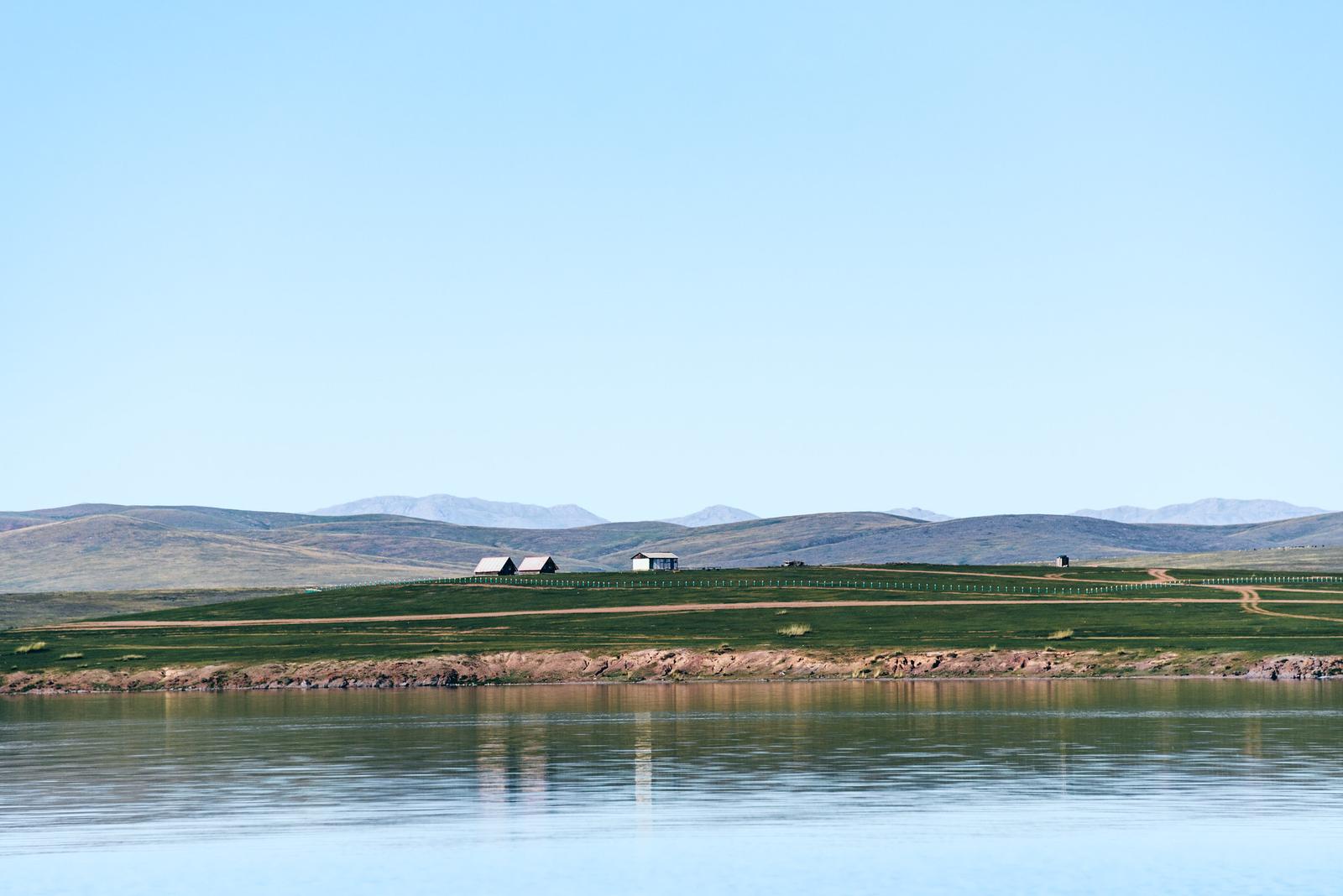
The driver and the guide led me to the lake to explore around; the crystal-clear water revealed the smooth, round pebbles beneath the surface. Gazing at the calm lake with gentle ripples, the traveler then felt completely free from all worries.
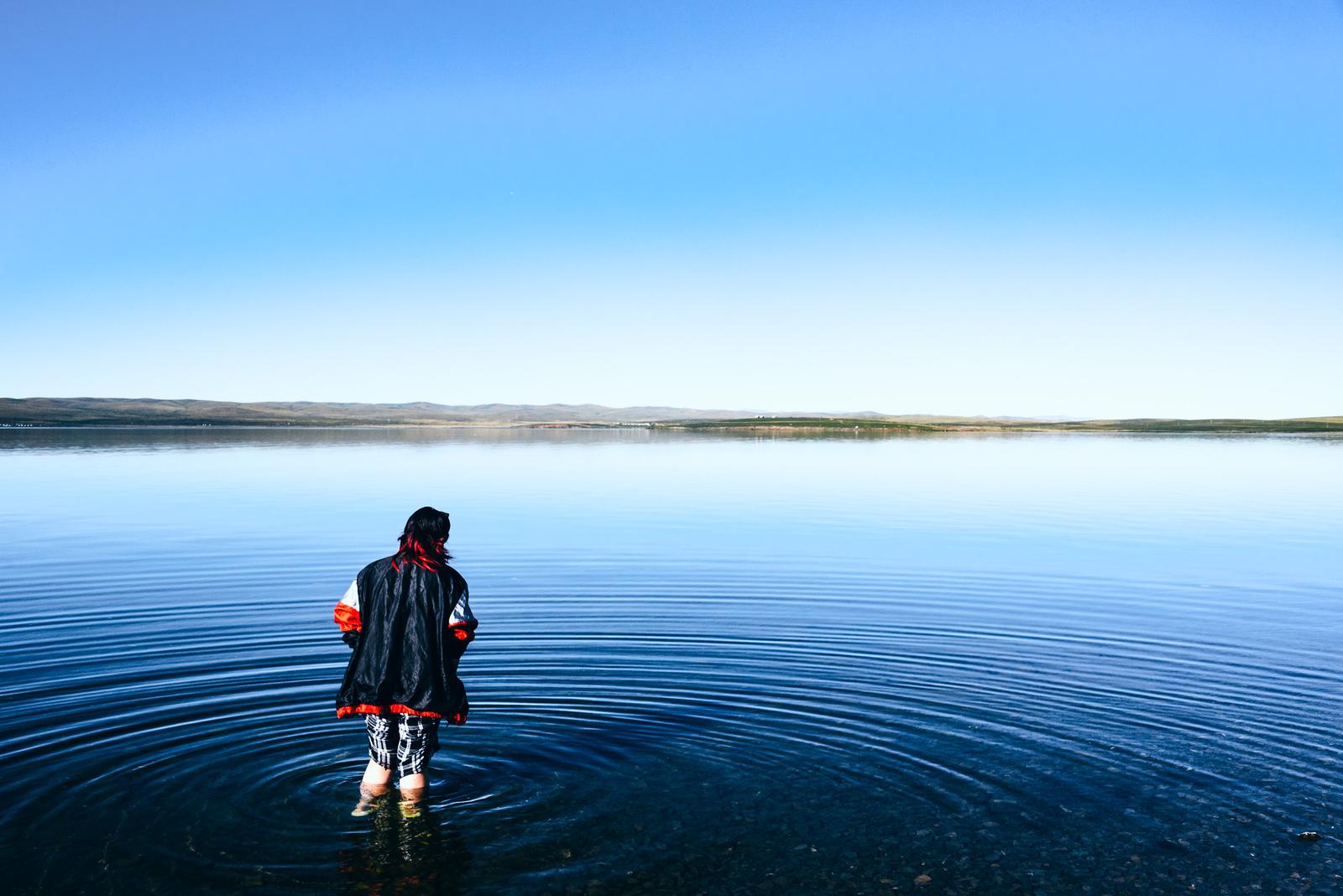
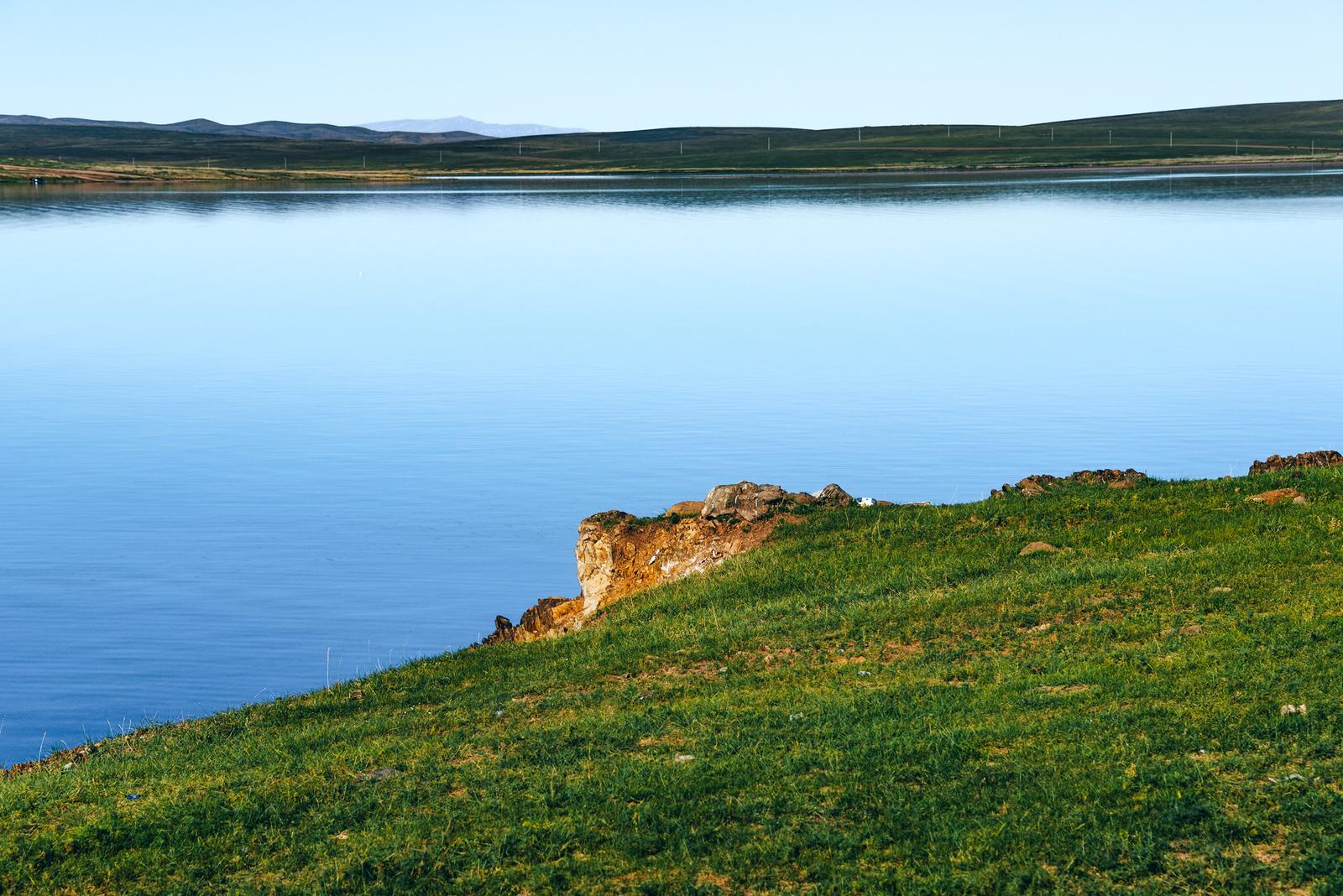
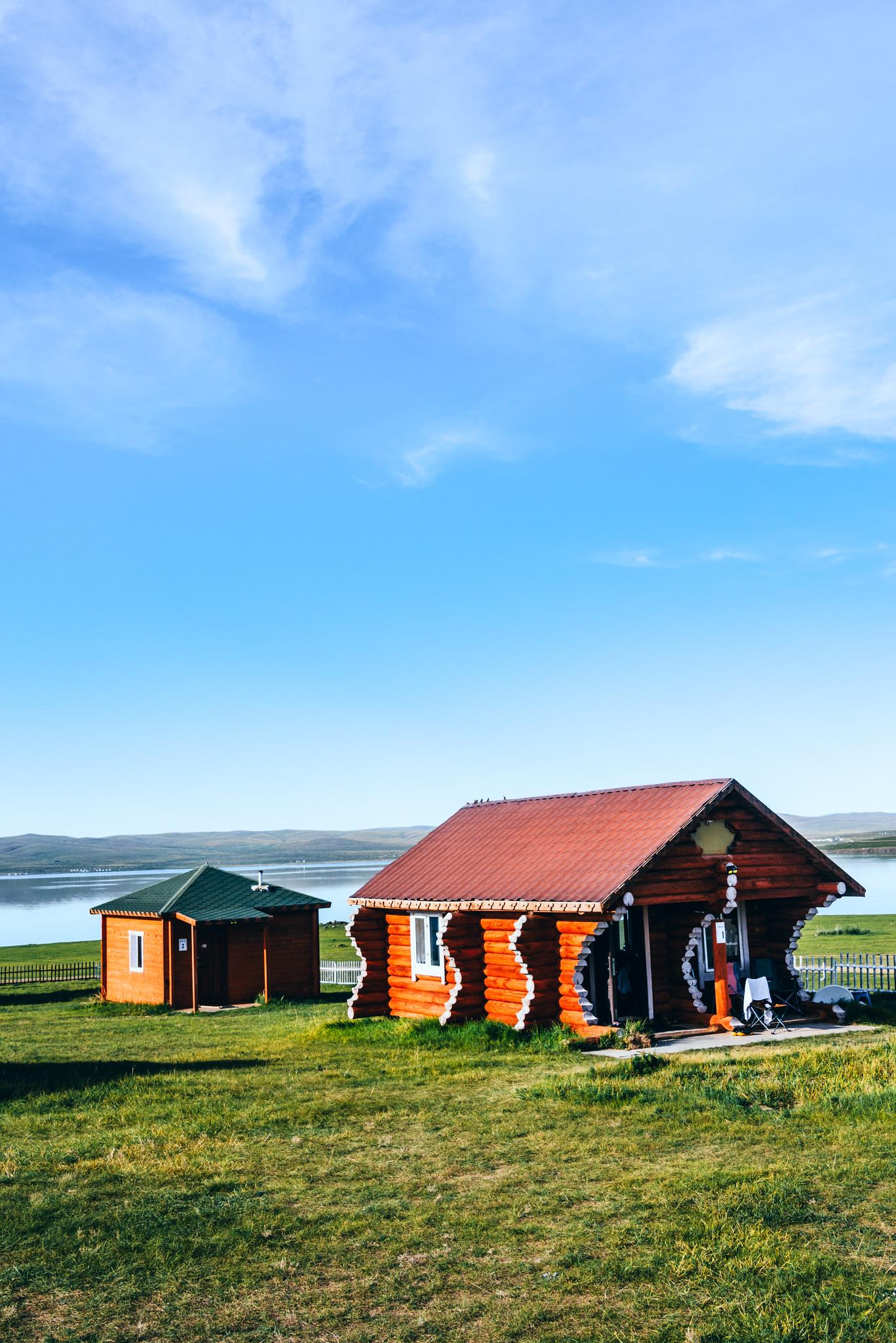
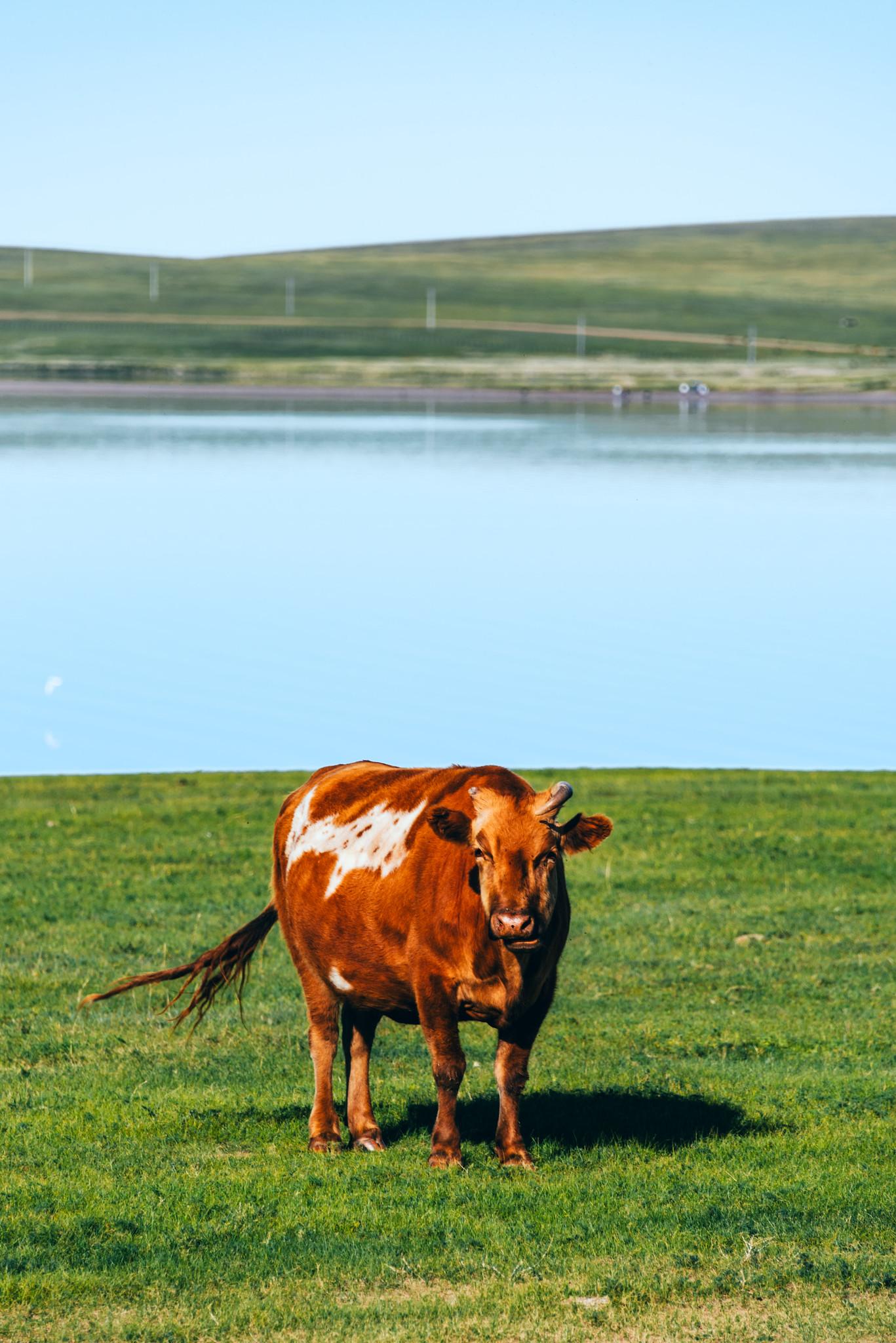
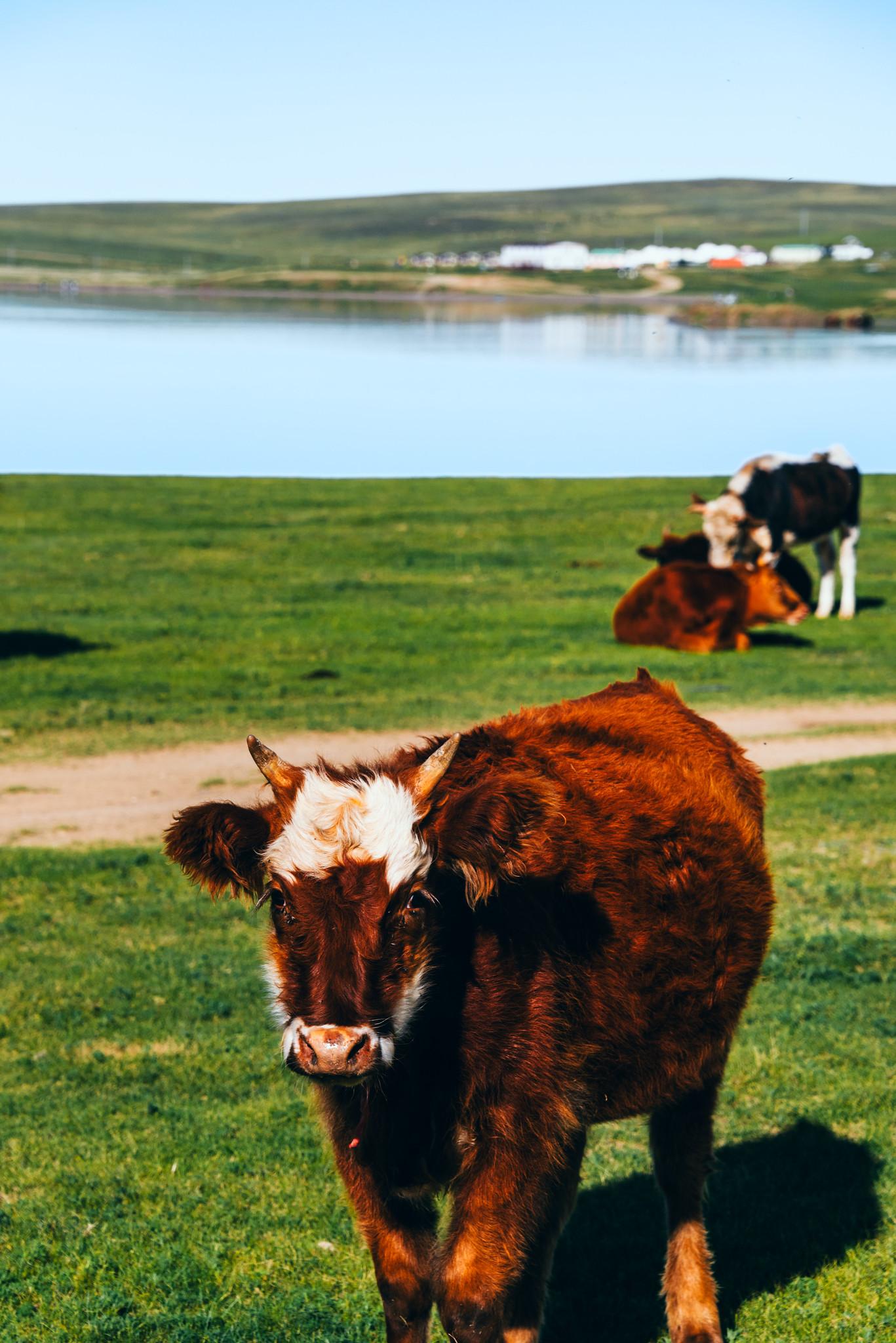
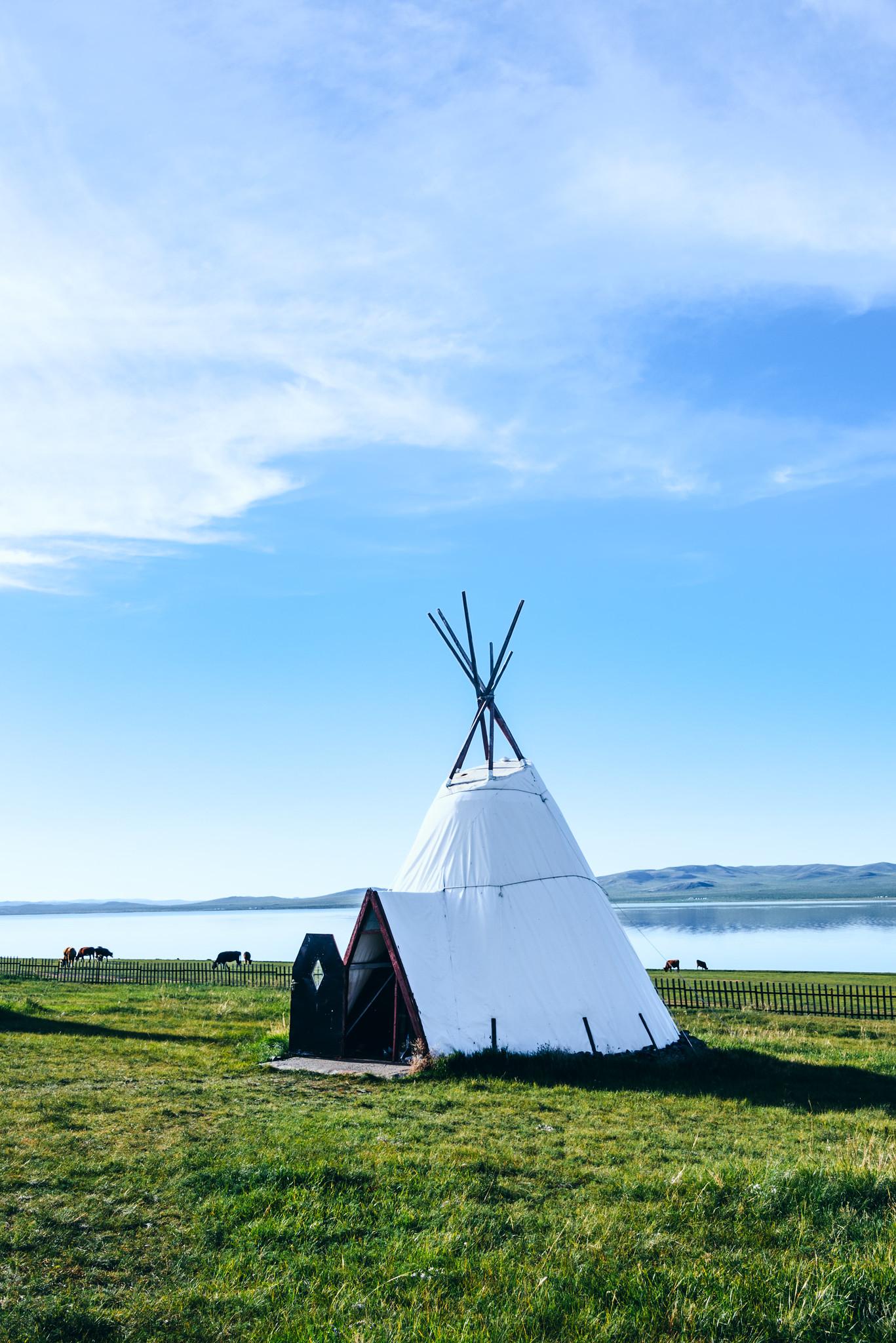
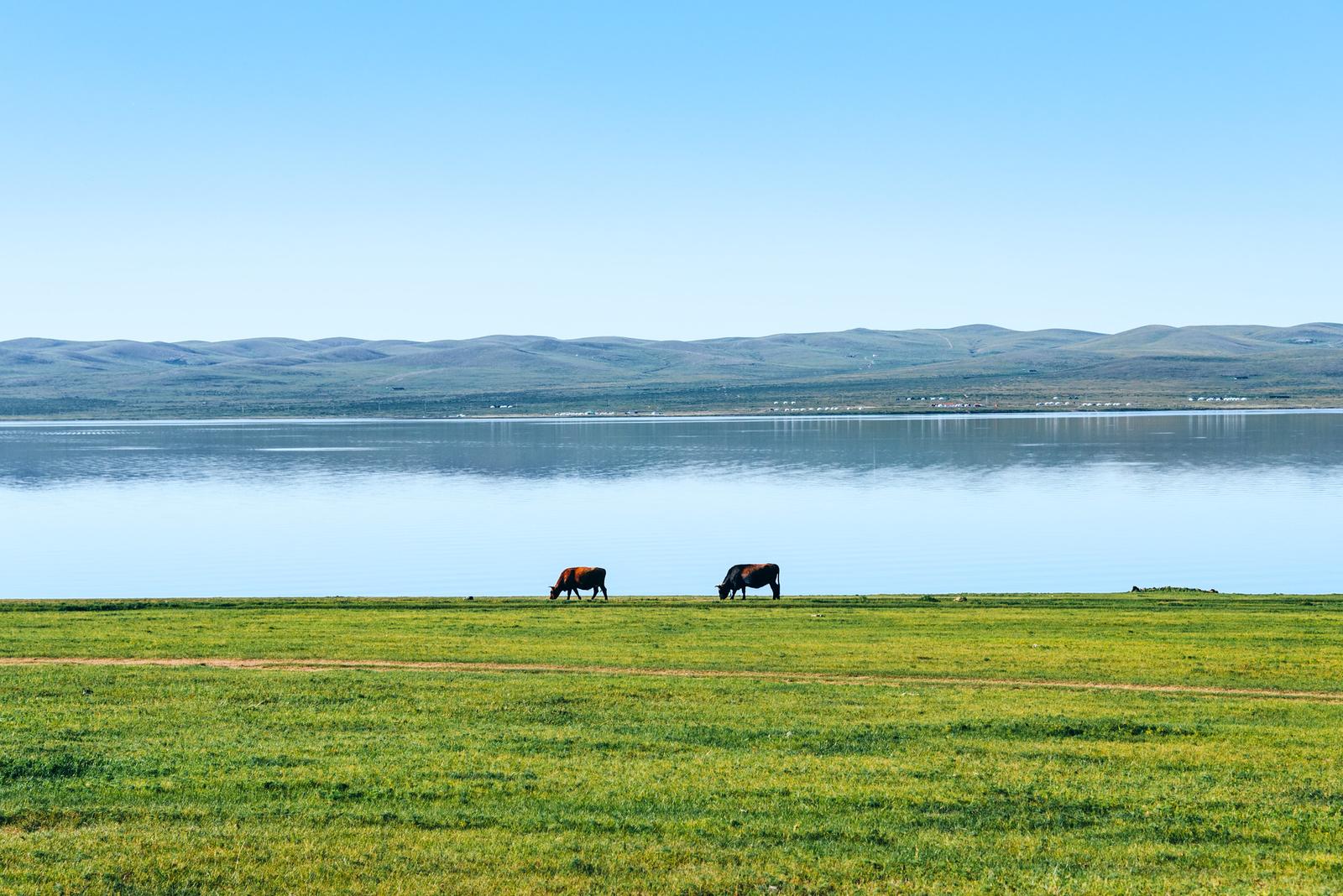
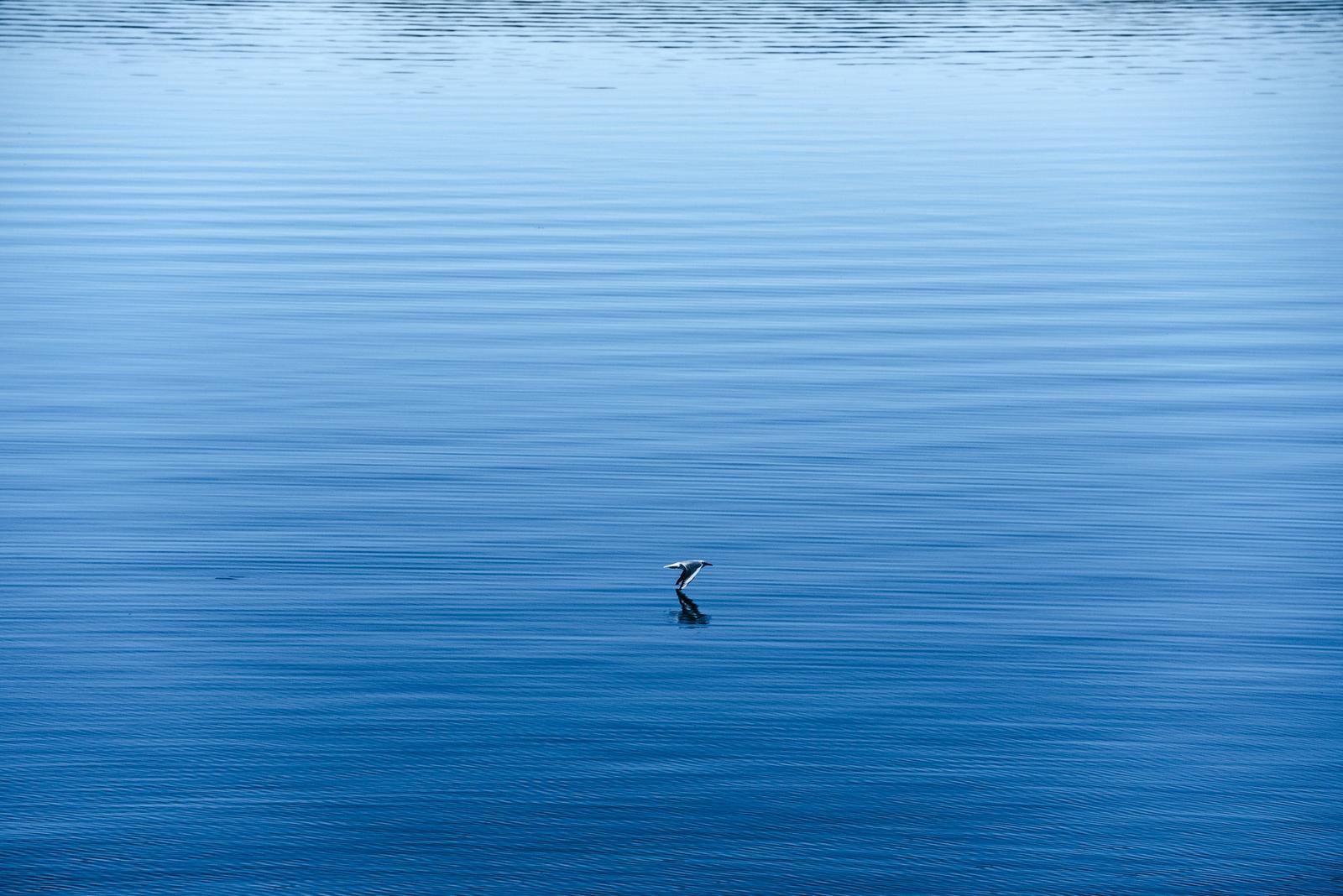
Sunset Hours
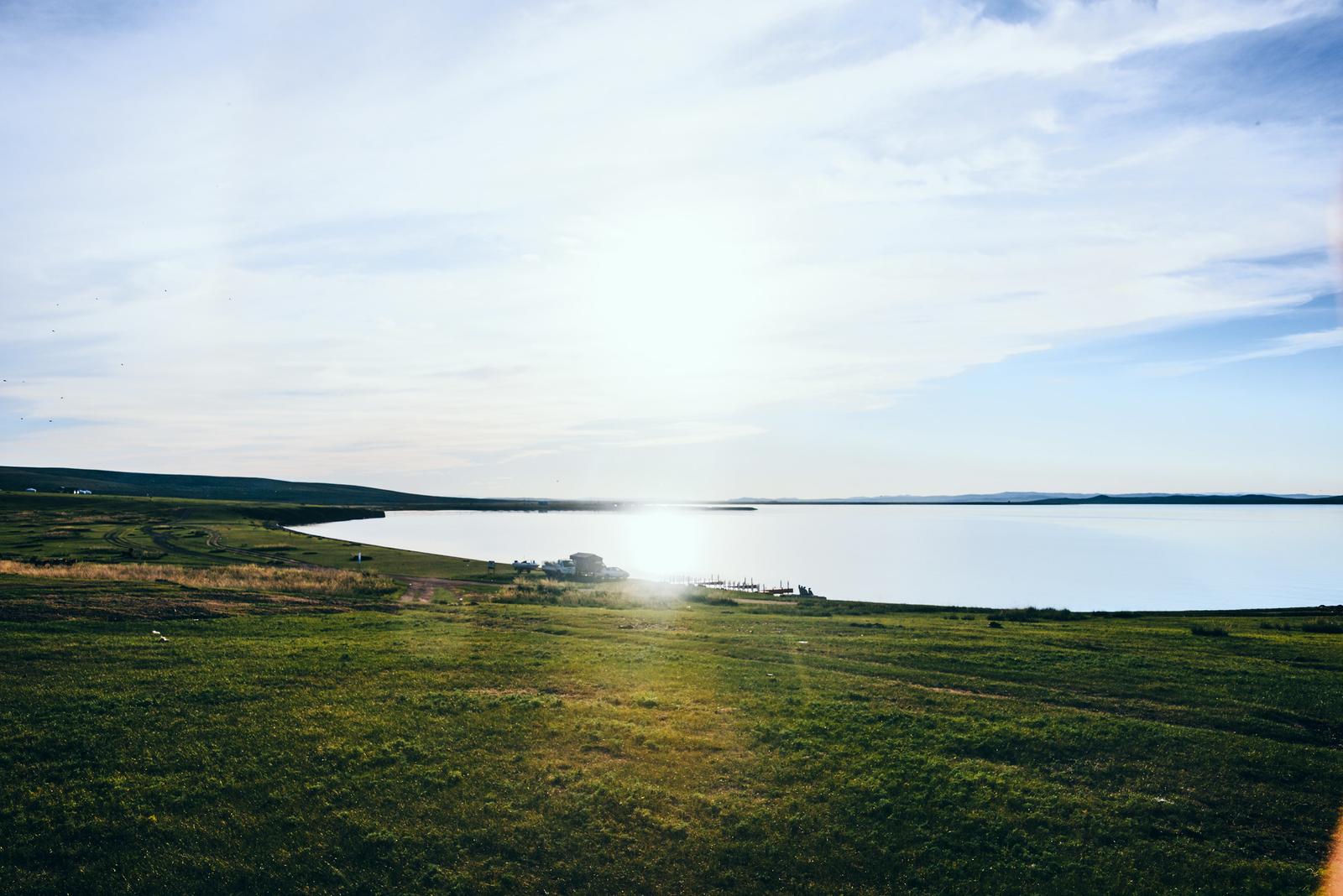
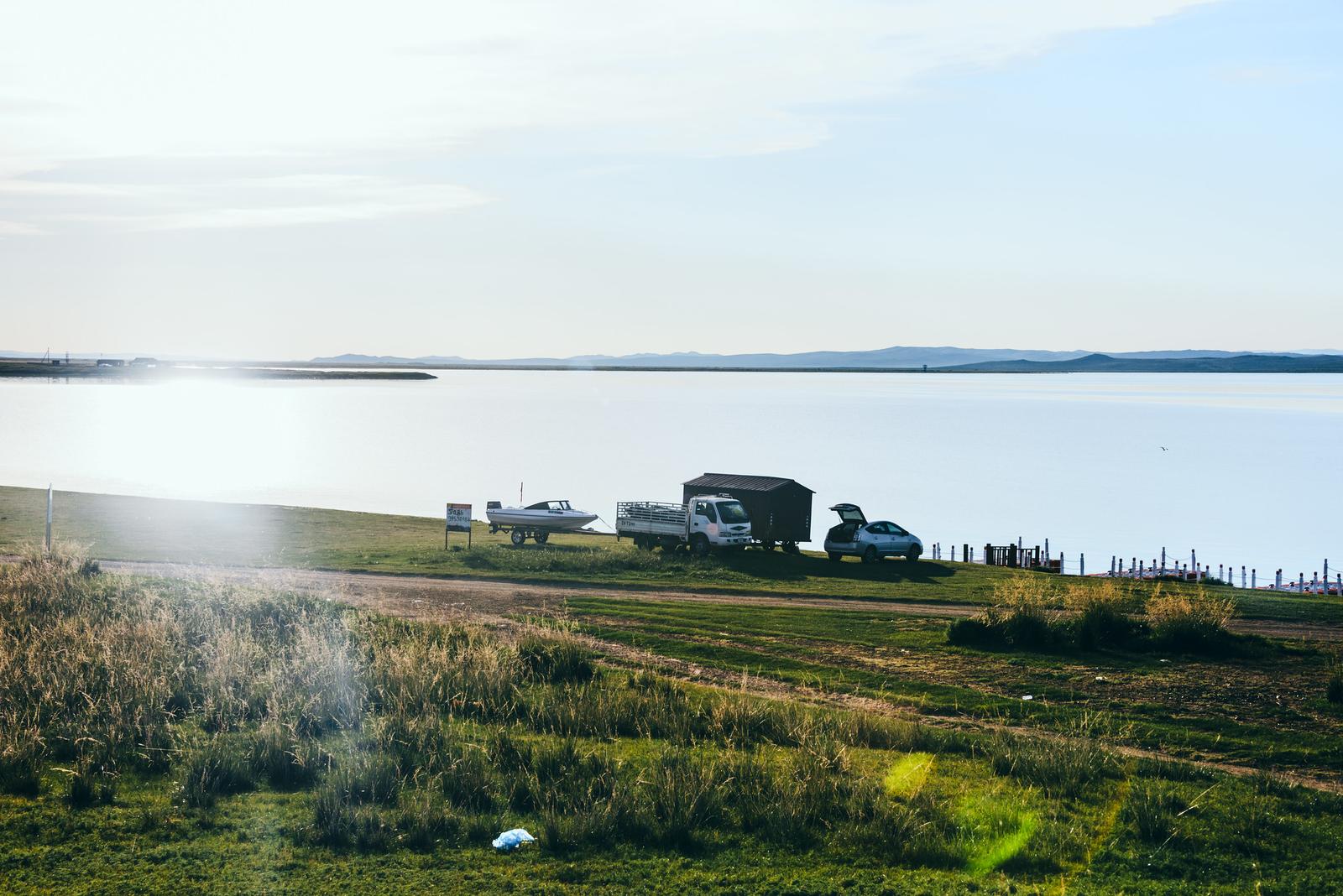
The most elaborate sunset appreciation times happen when you start scouting from as early as 4pm, surveying the landscape to find the perfect angle, and then patiently waiting there, making sure not to miss any single moment.
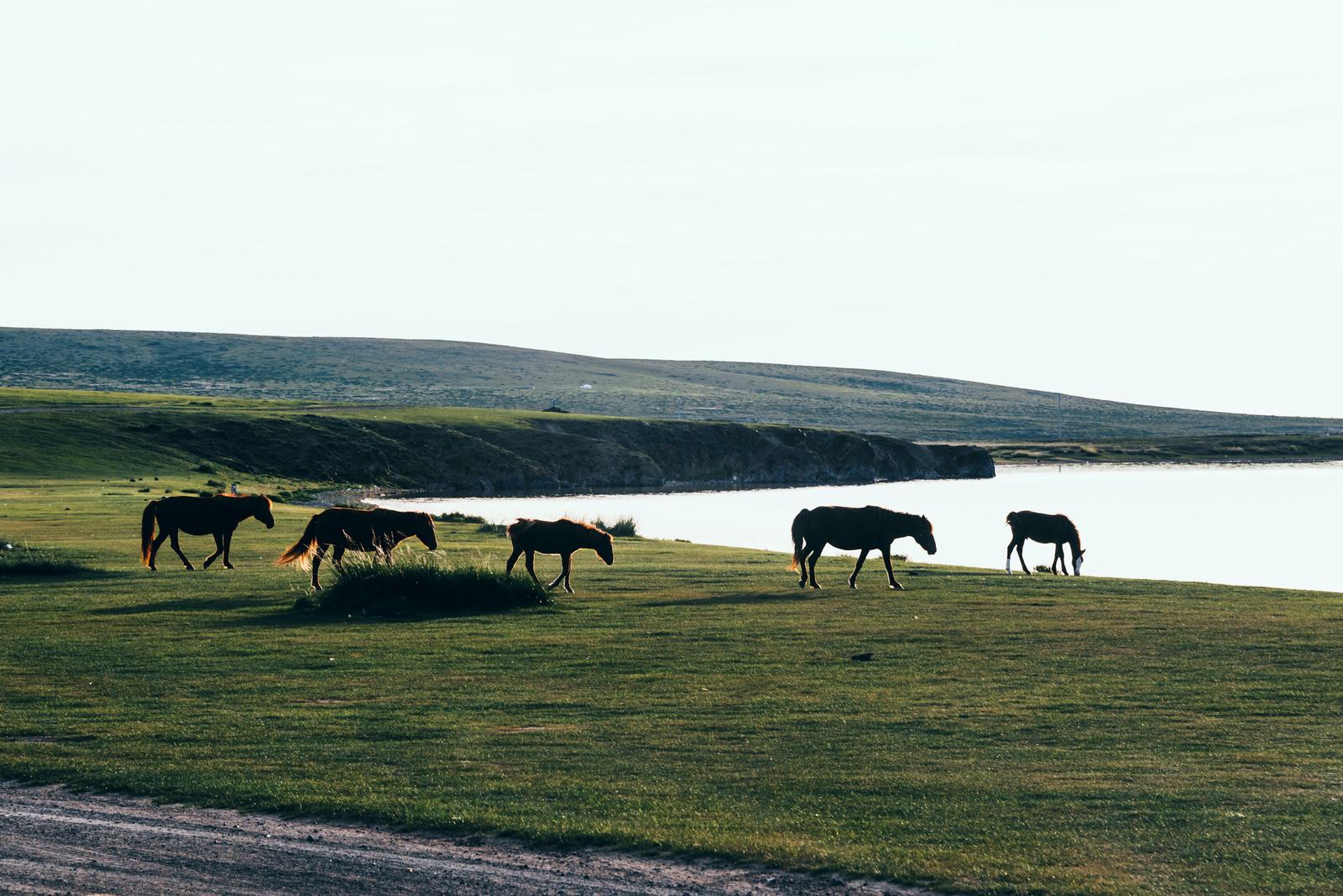
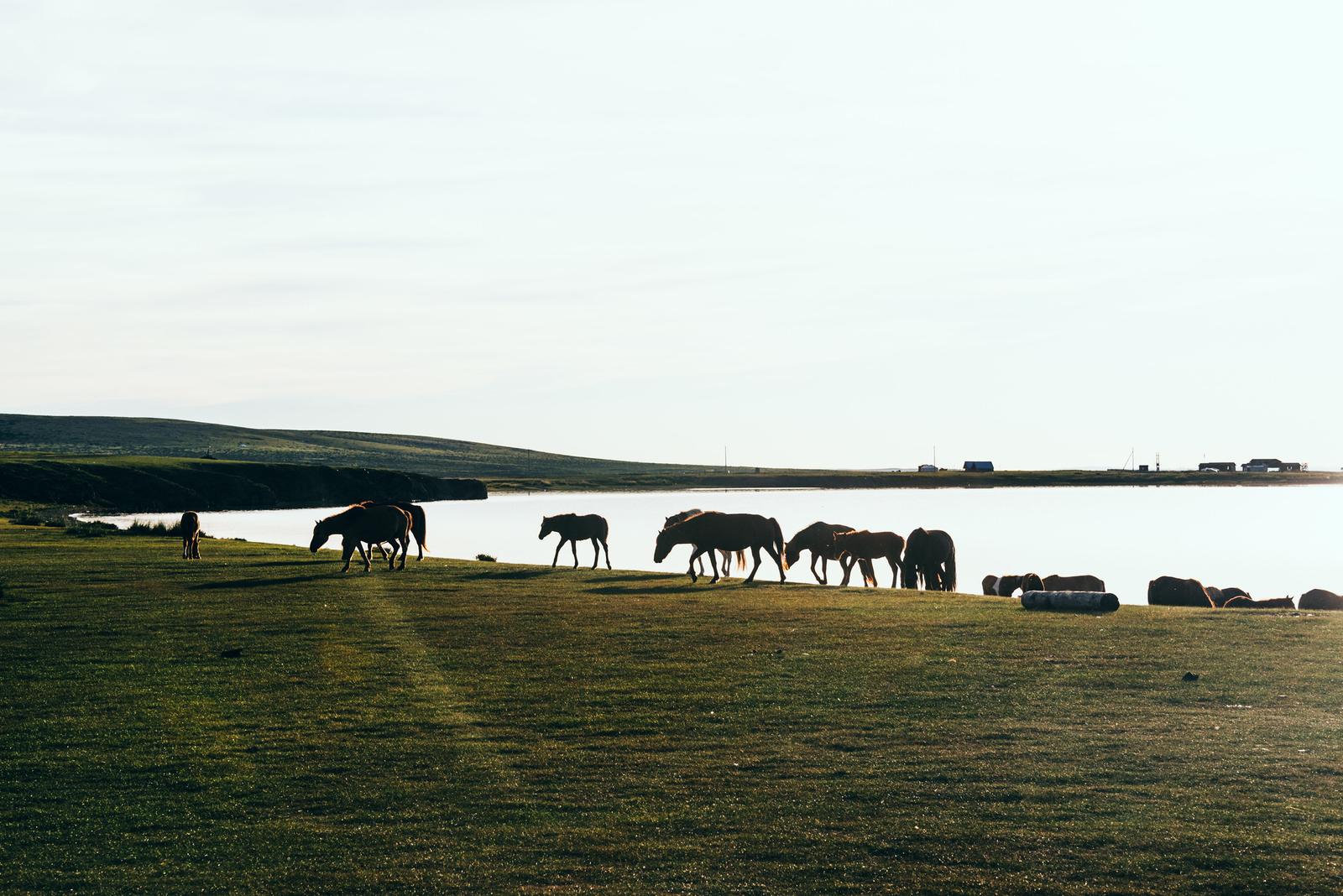
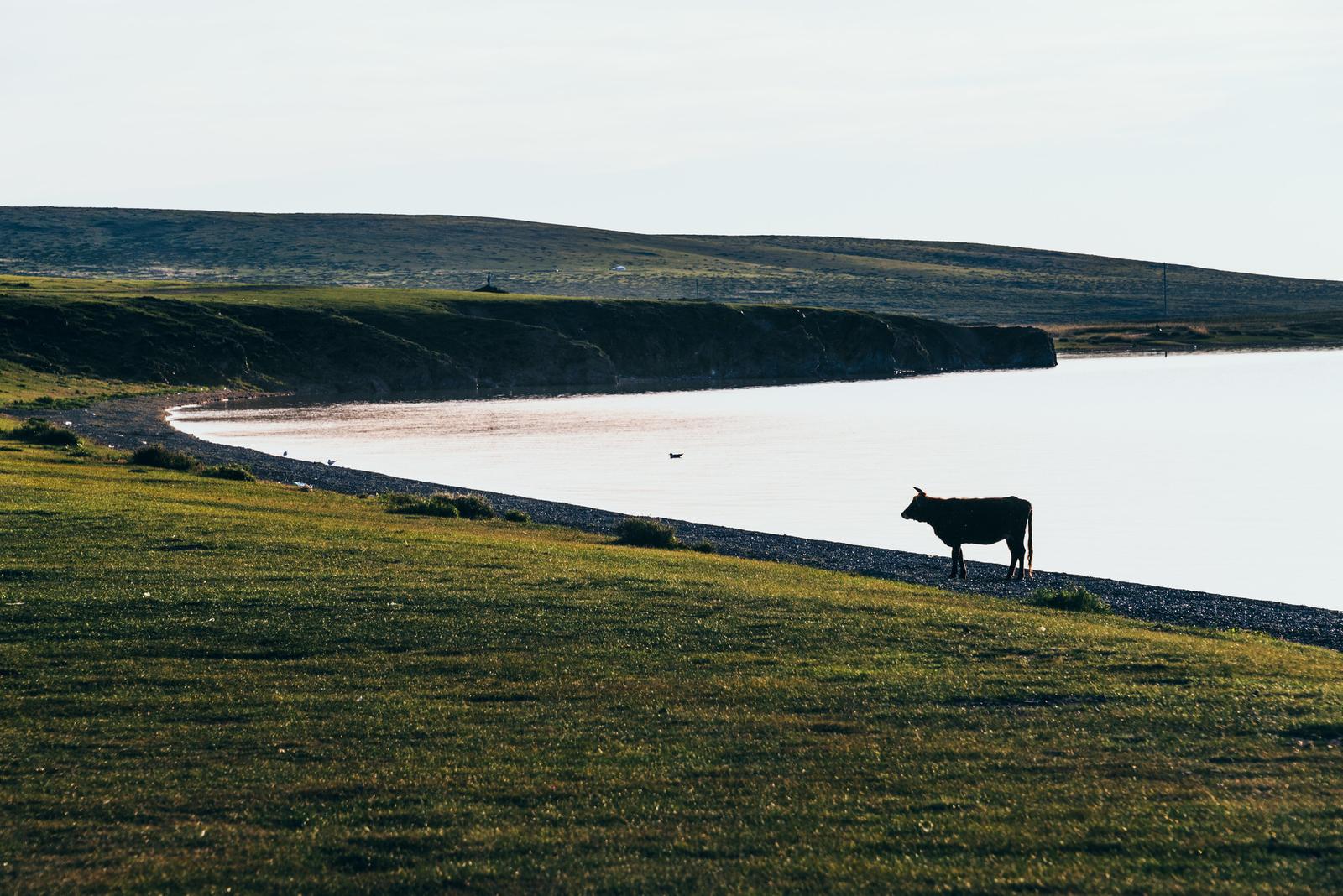
From the lakeshore looking westwards, herds of horses were grazing freely, while a group of travelers had arrived by car to camp and fish by the pier, what a chill scene.
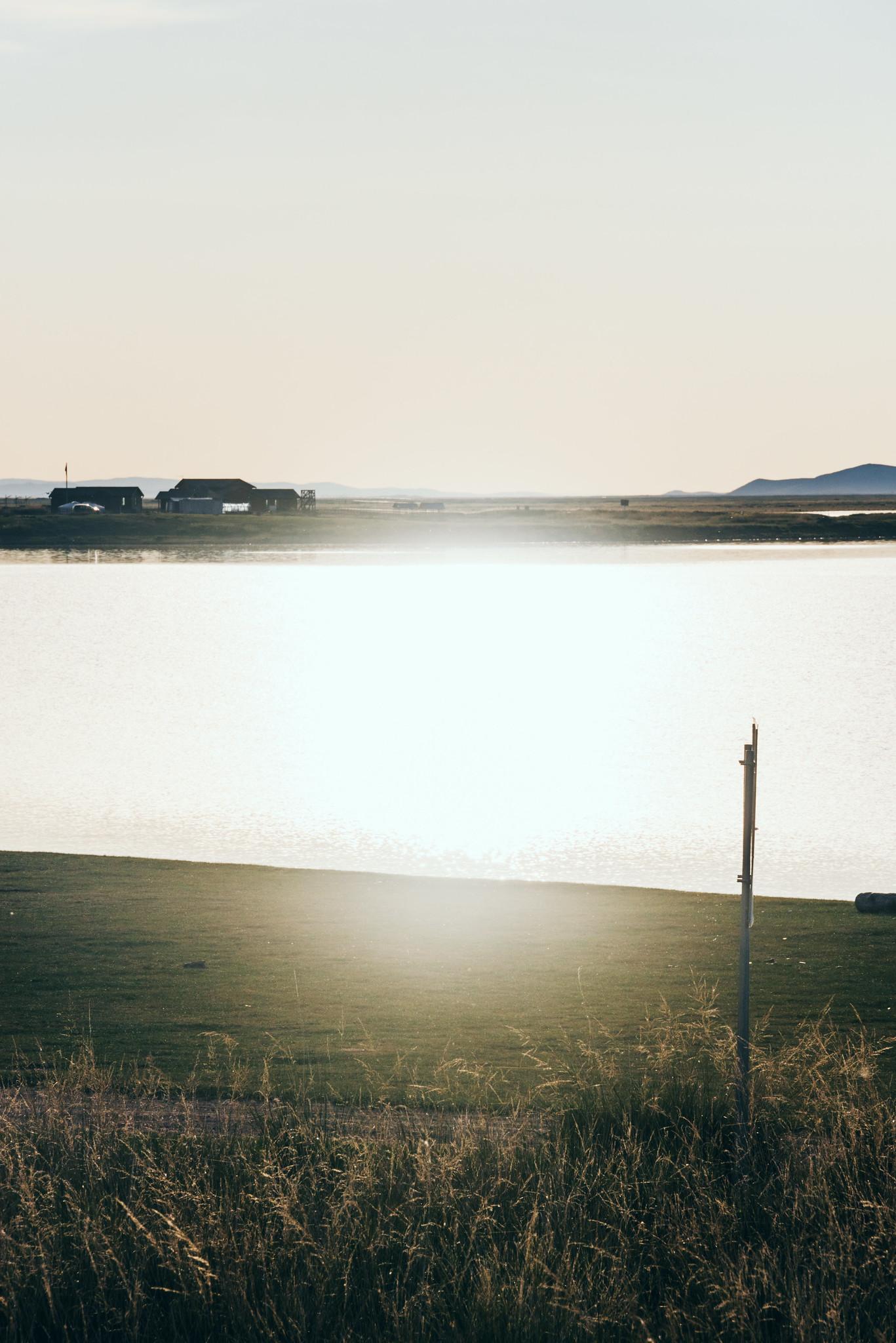
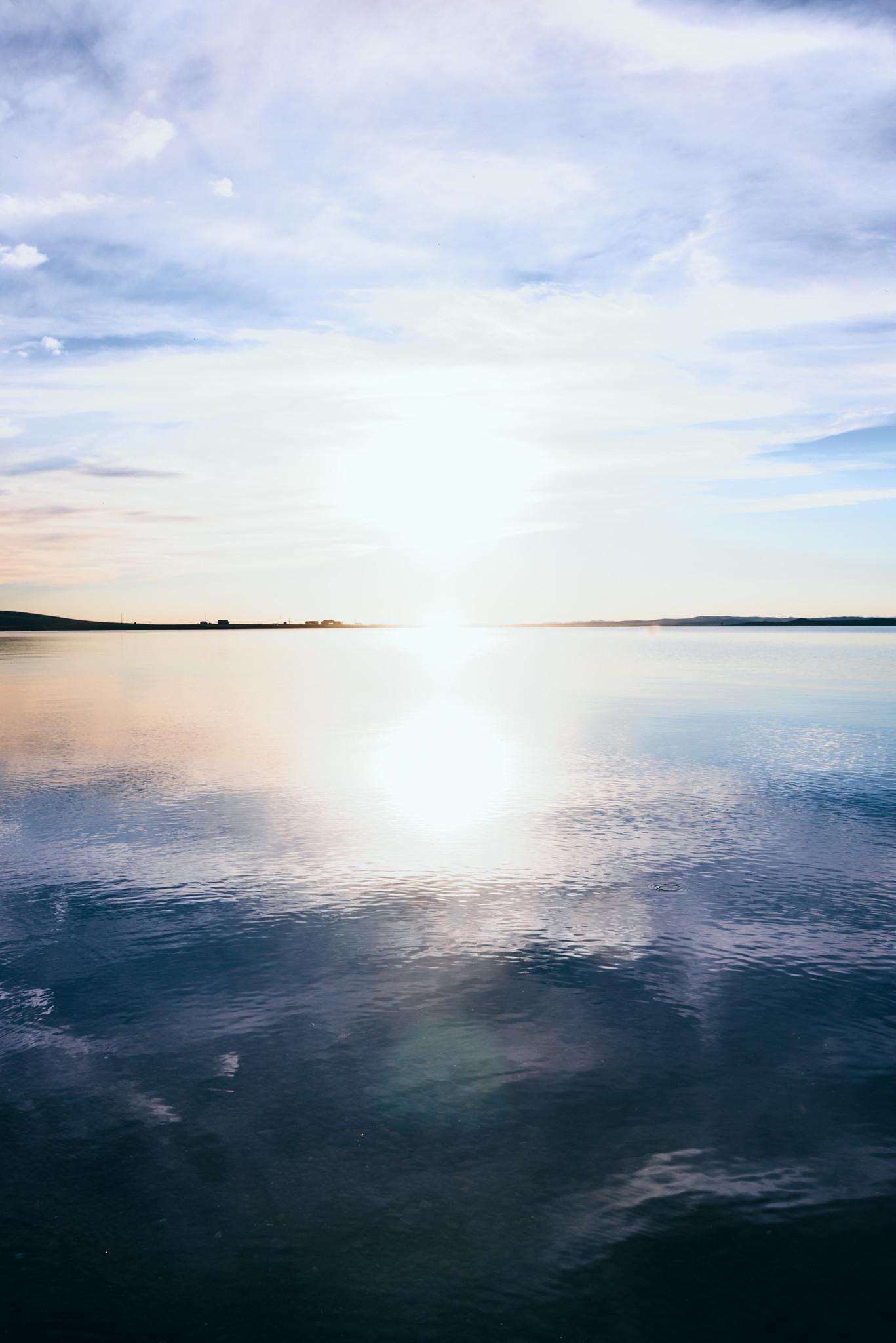
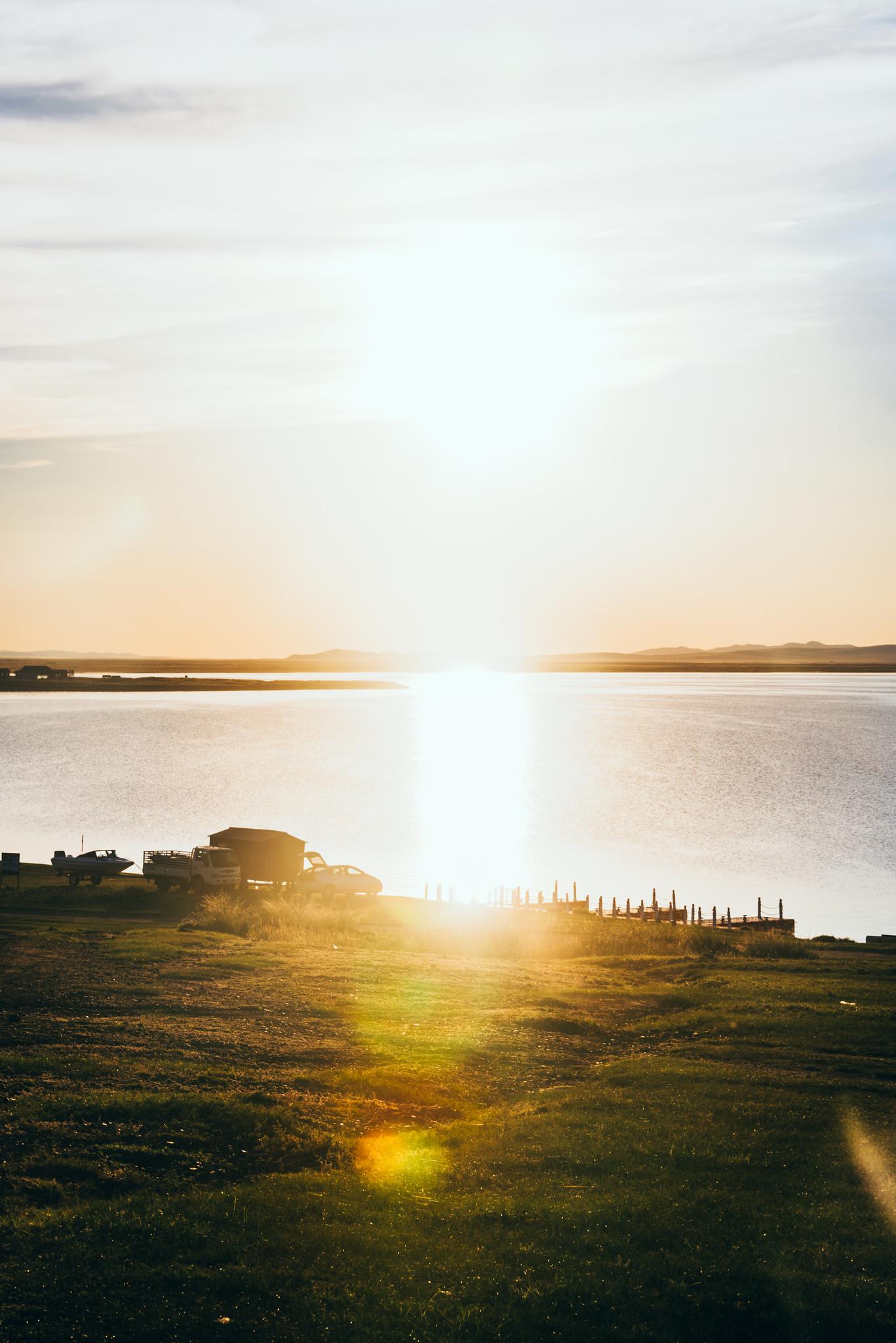
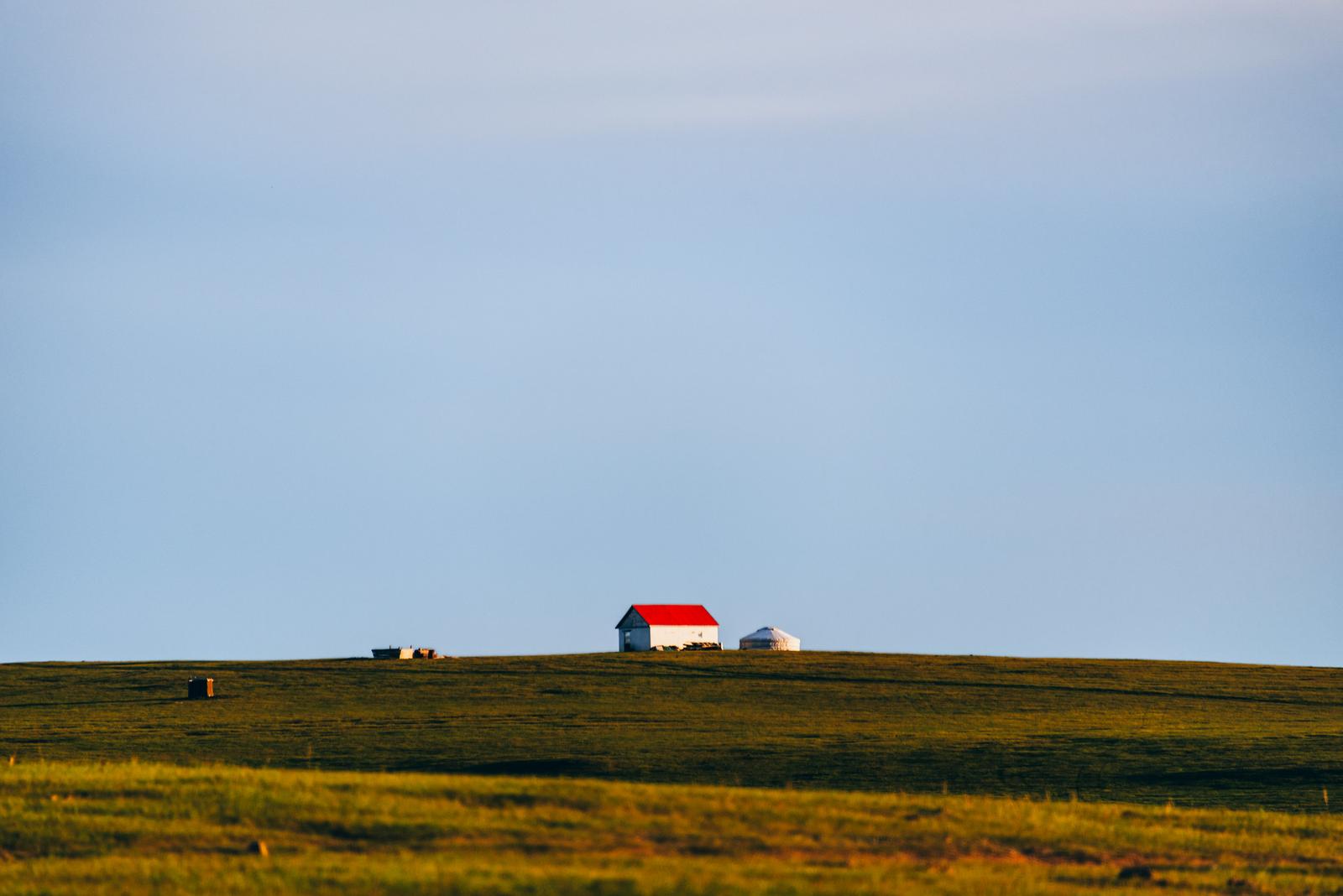
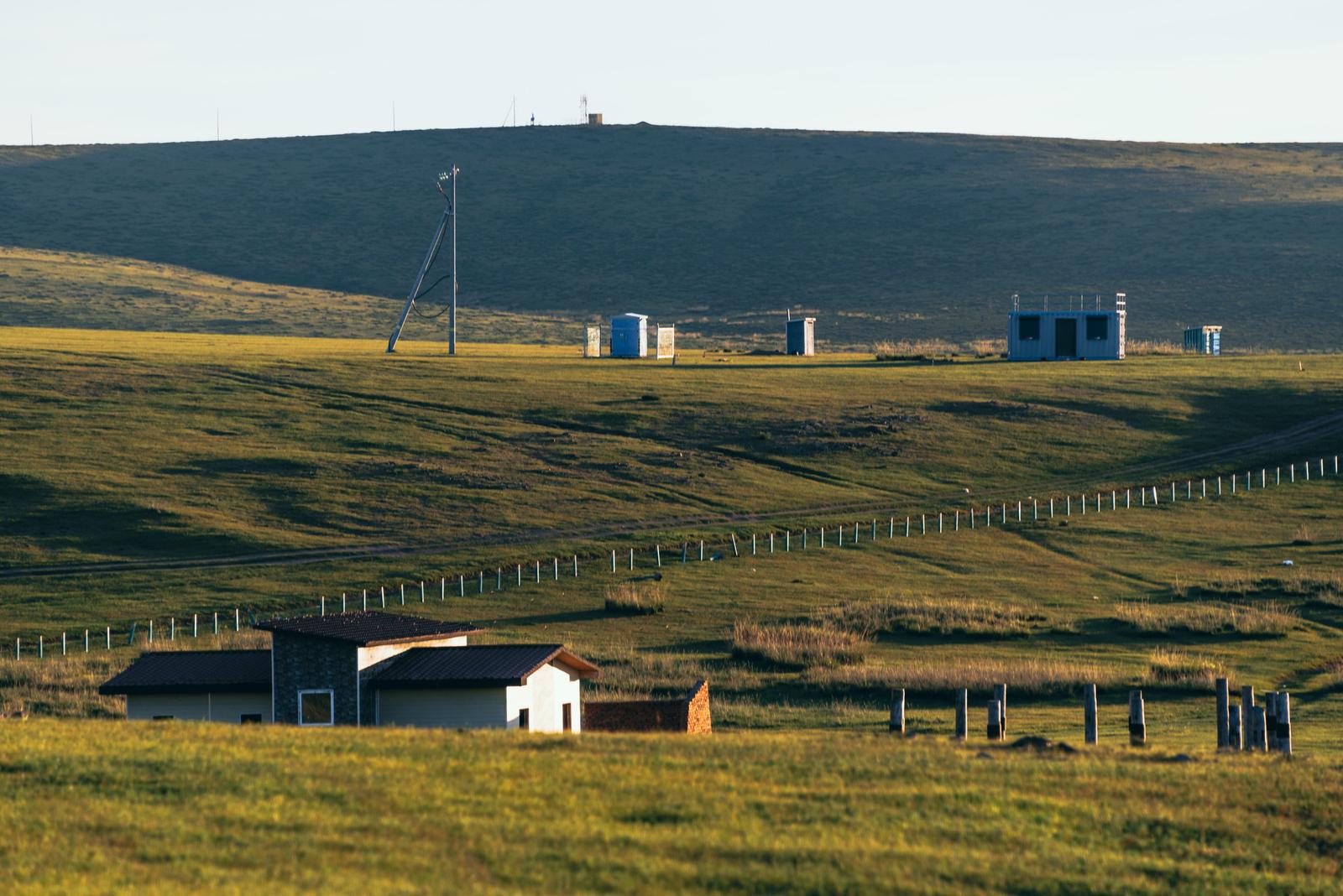
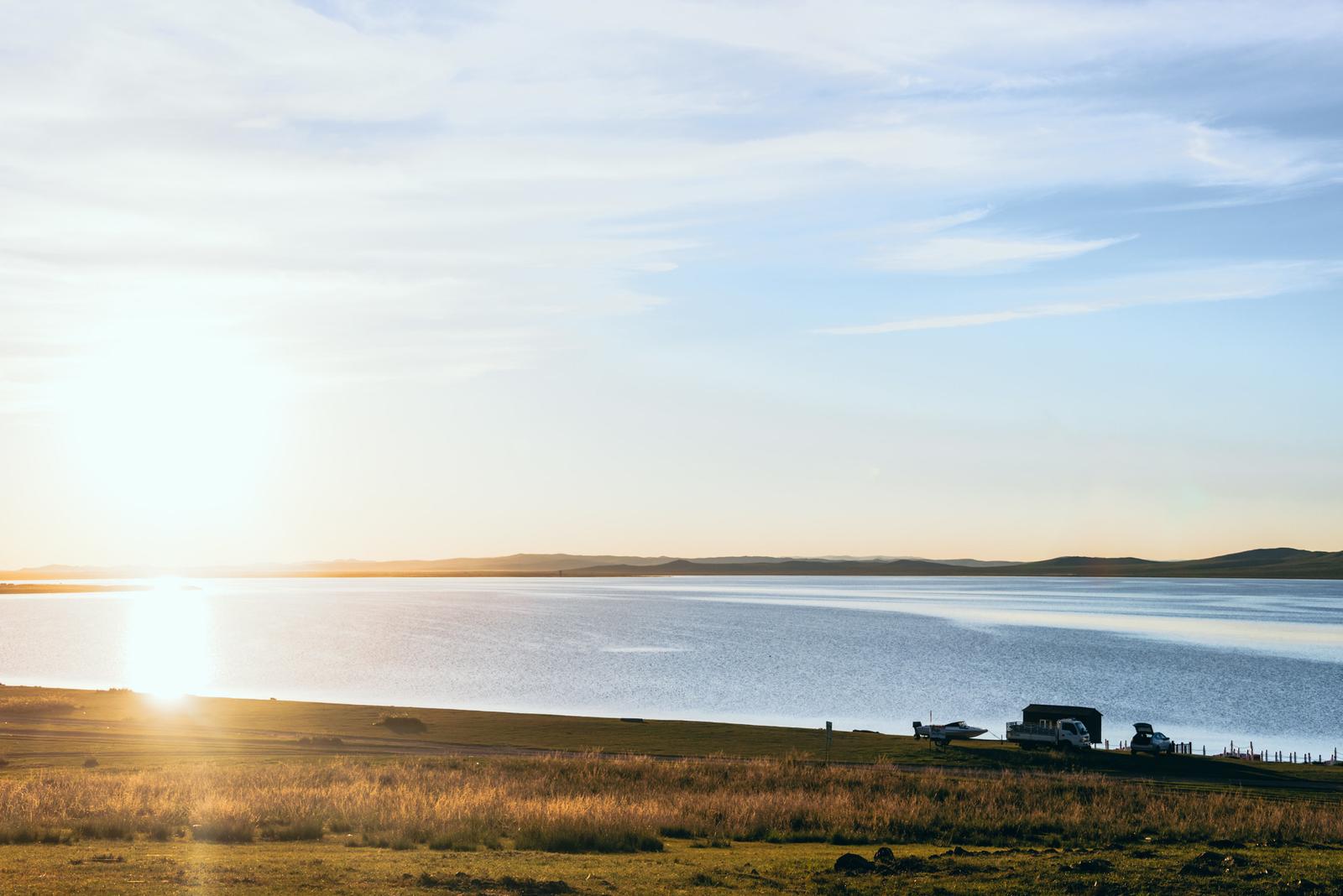
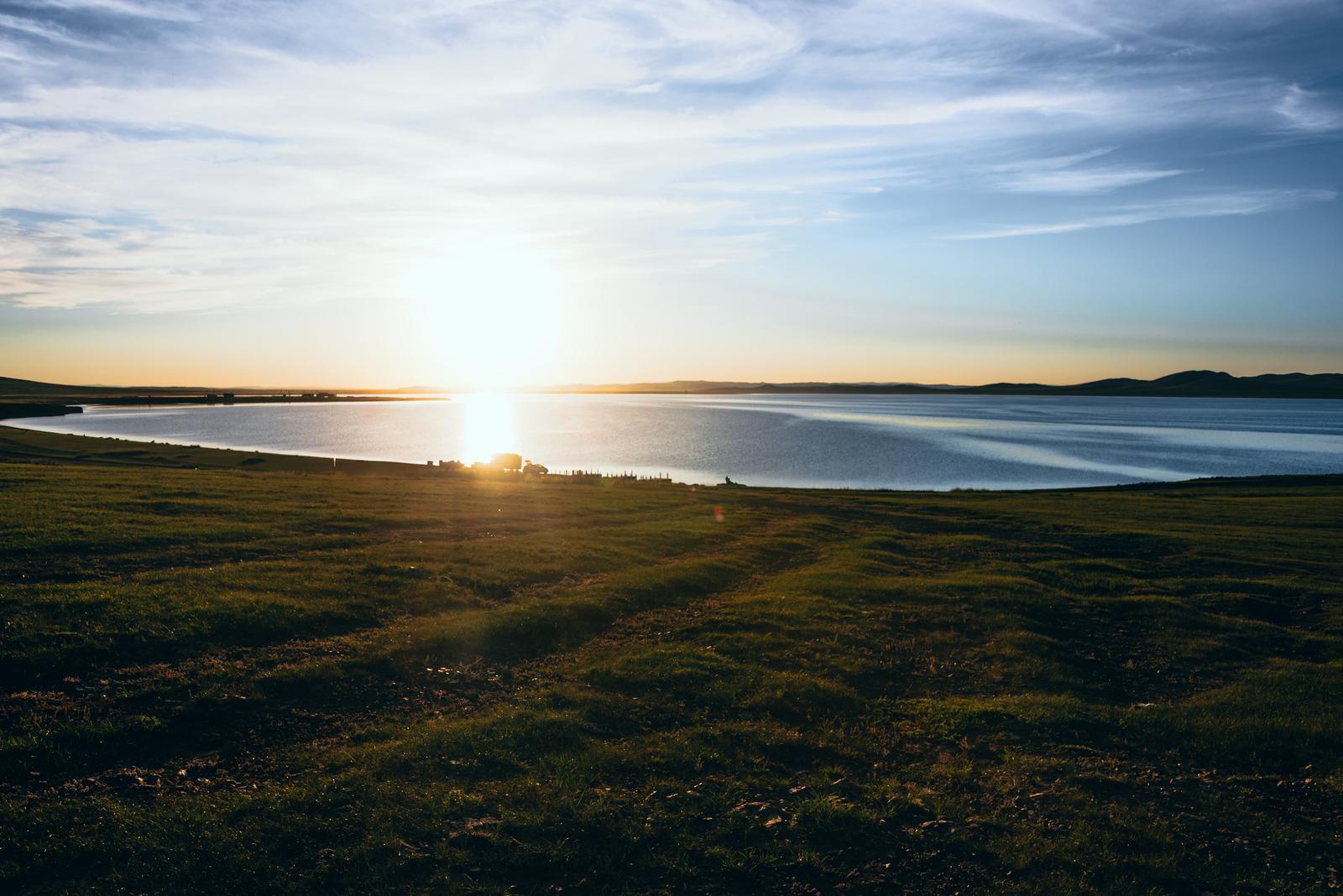
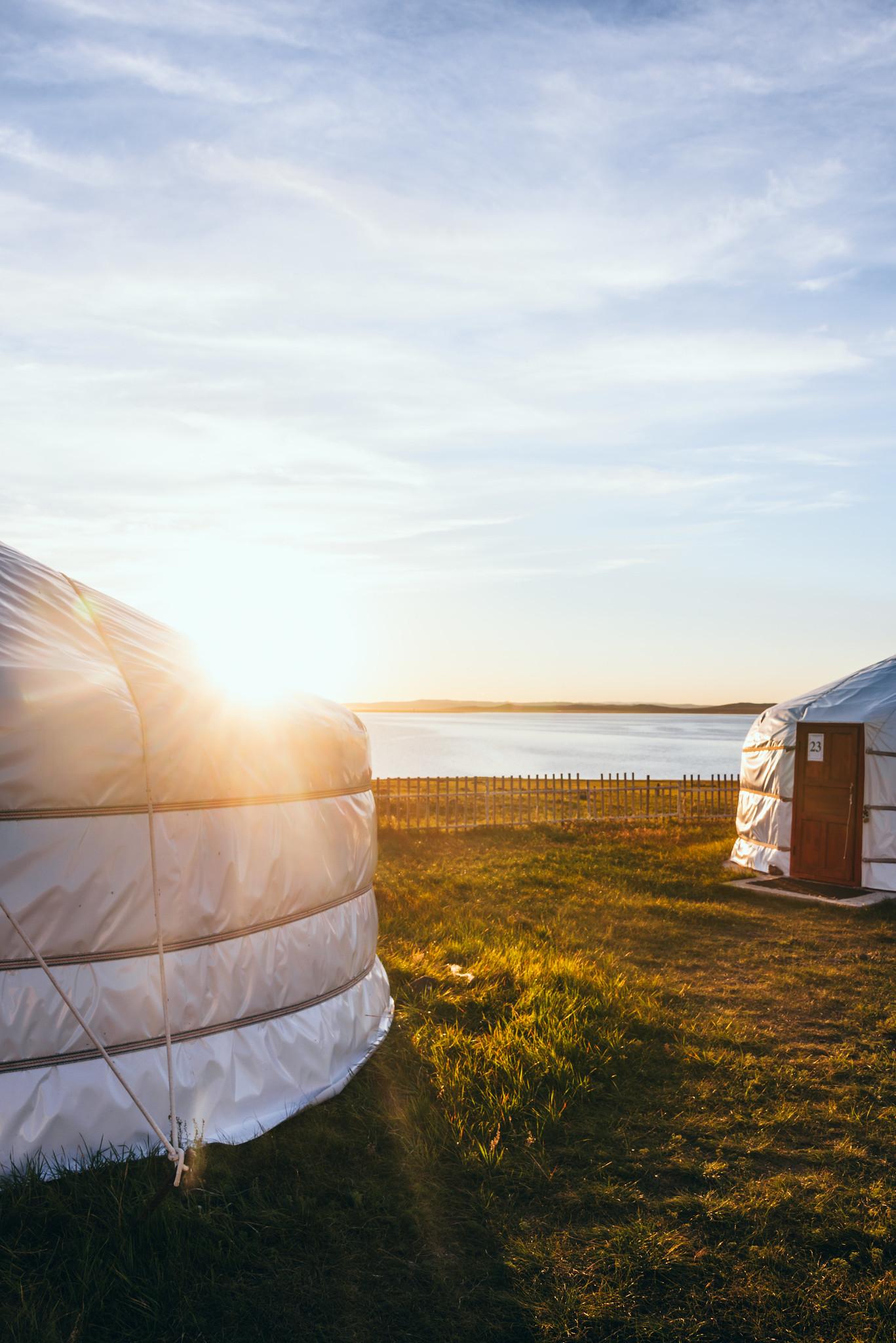
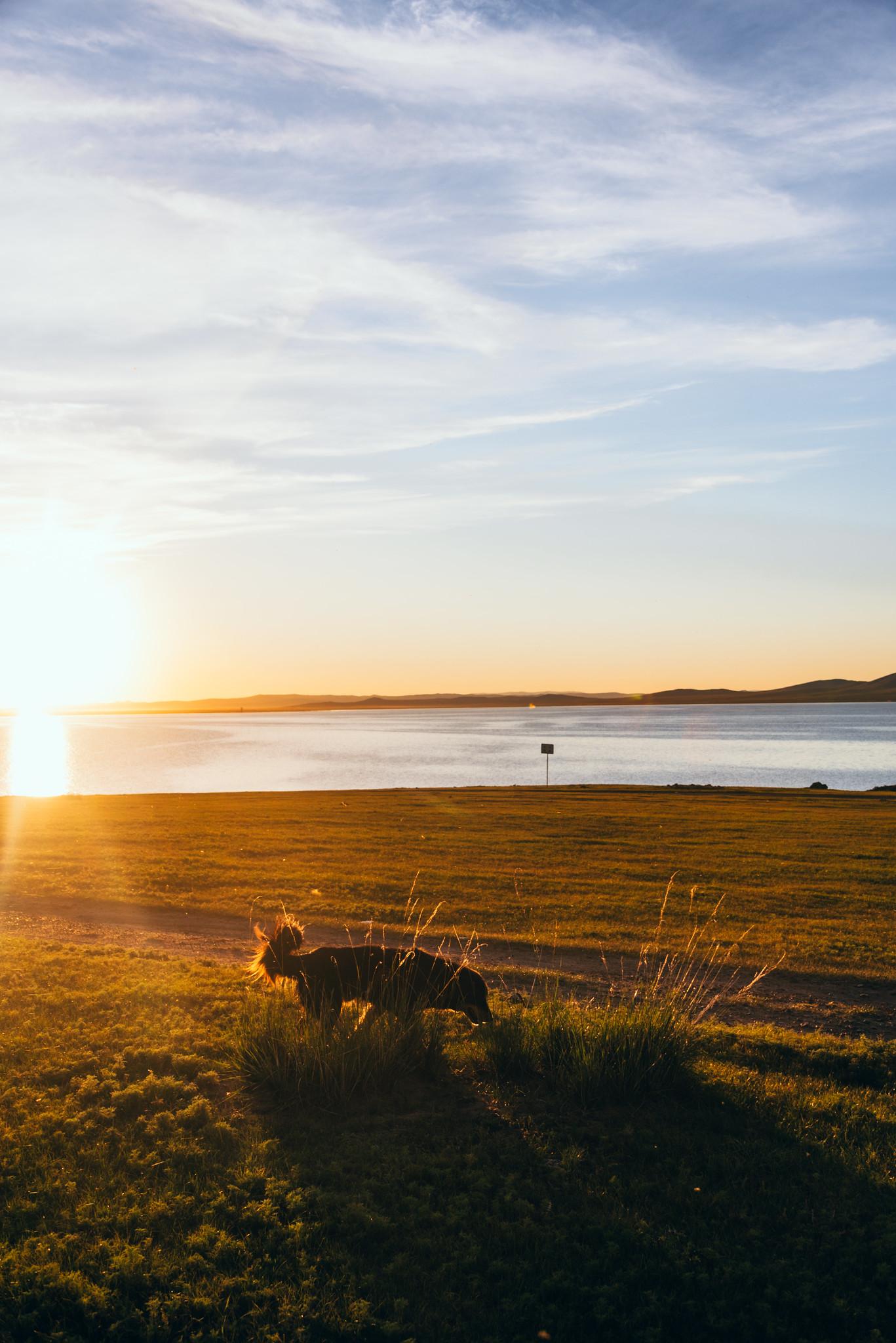
As evening approached, the scenery gradually turned into the familiar shades of orange, yet I never grew bored at seeing them.
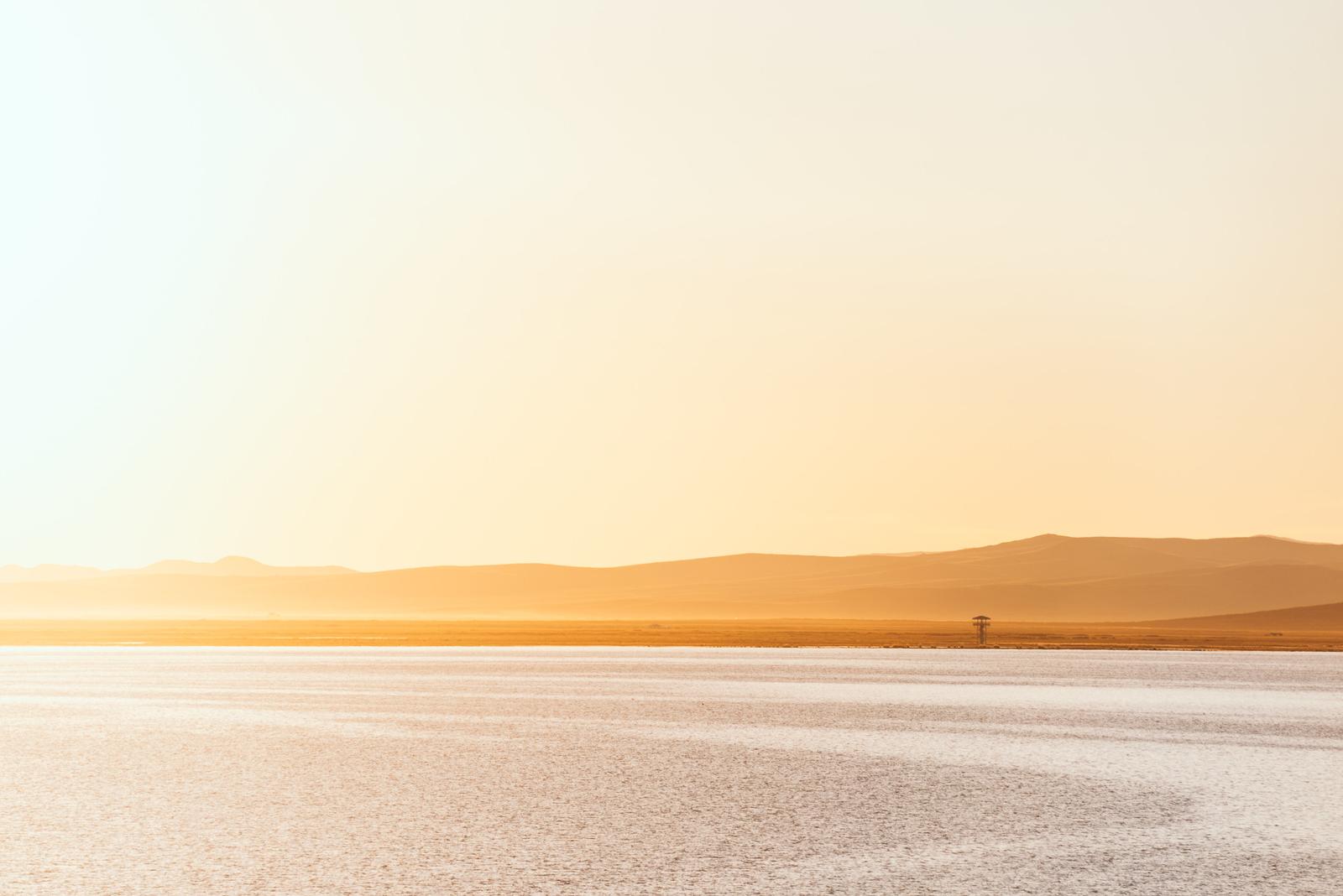
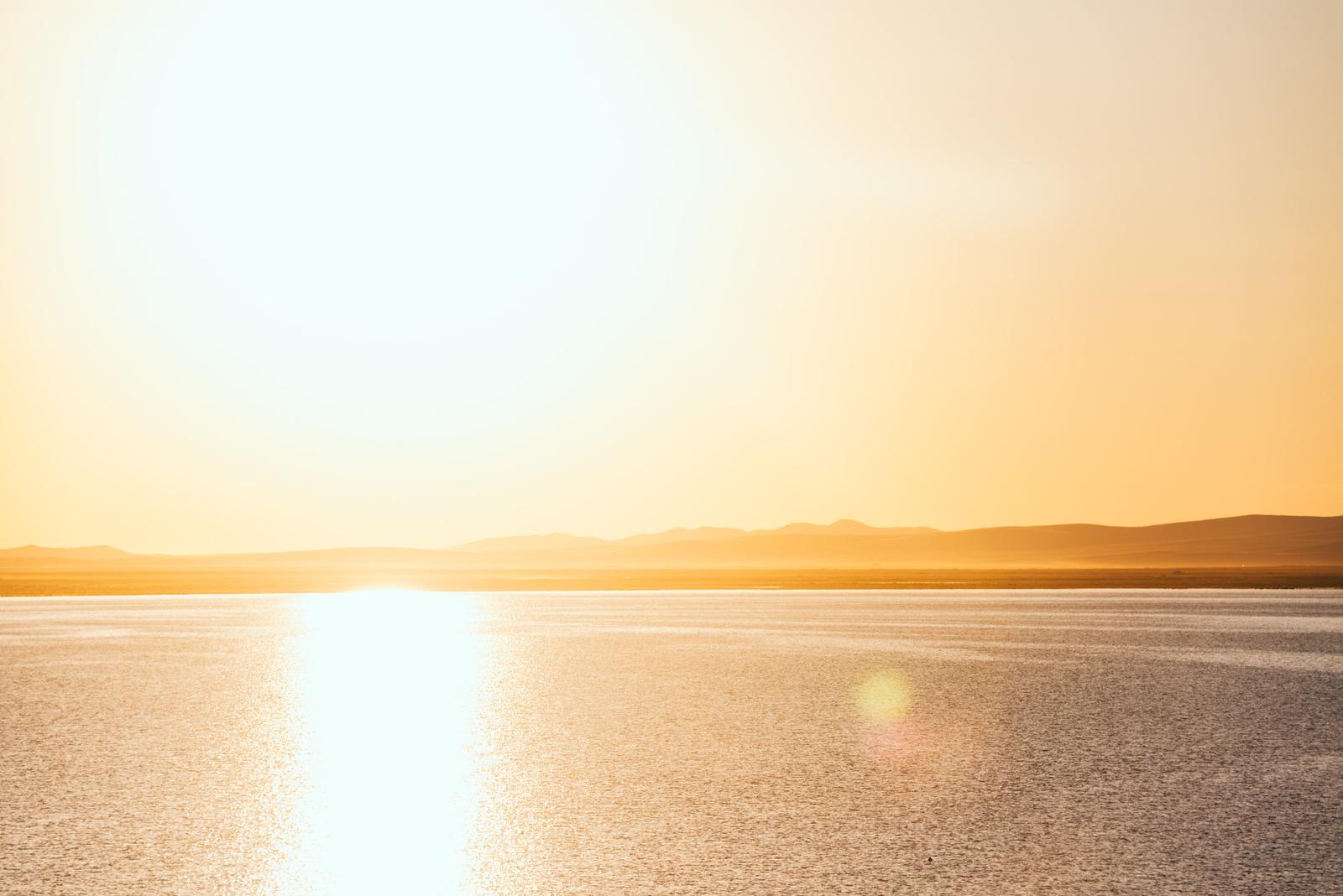
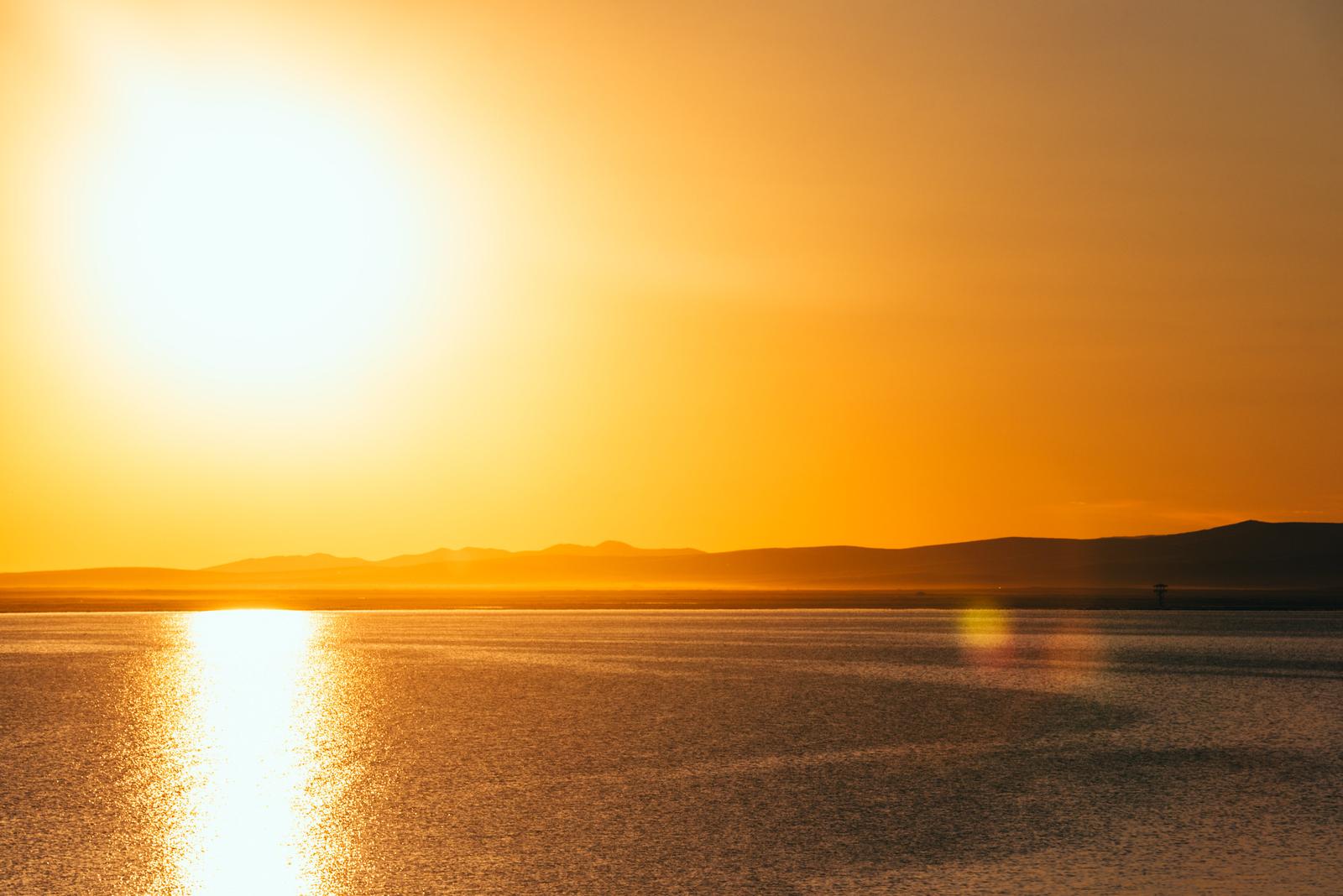
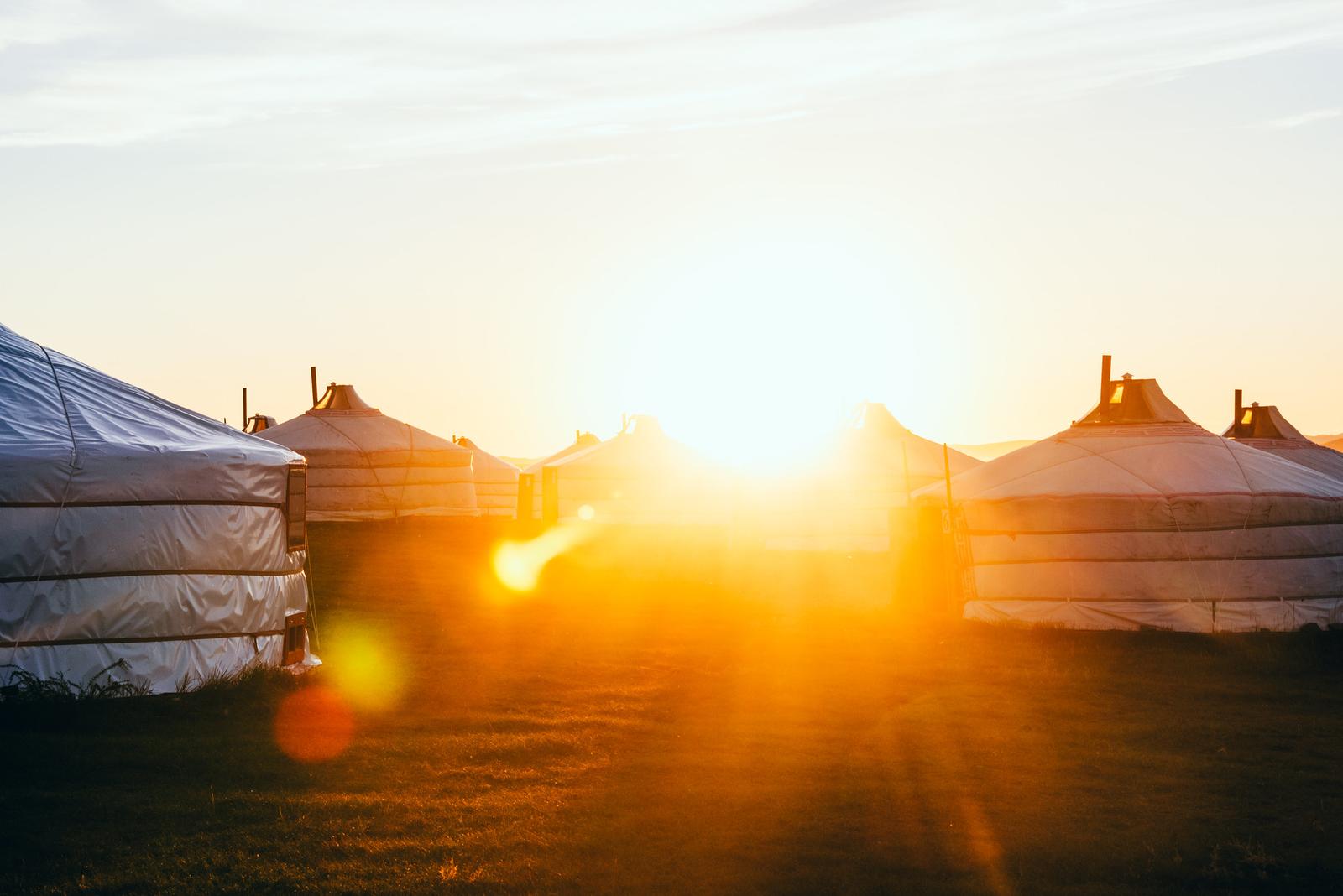
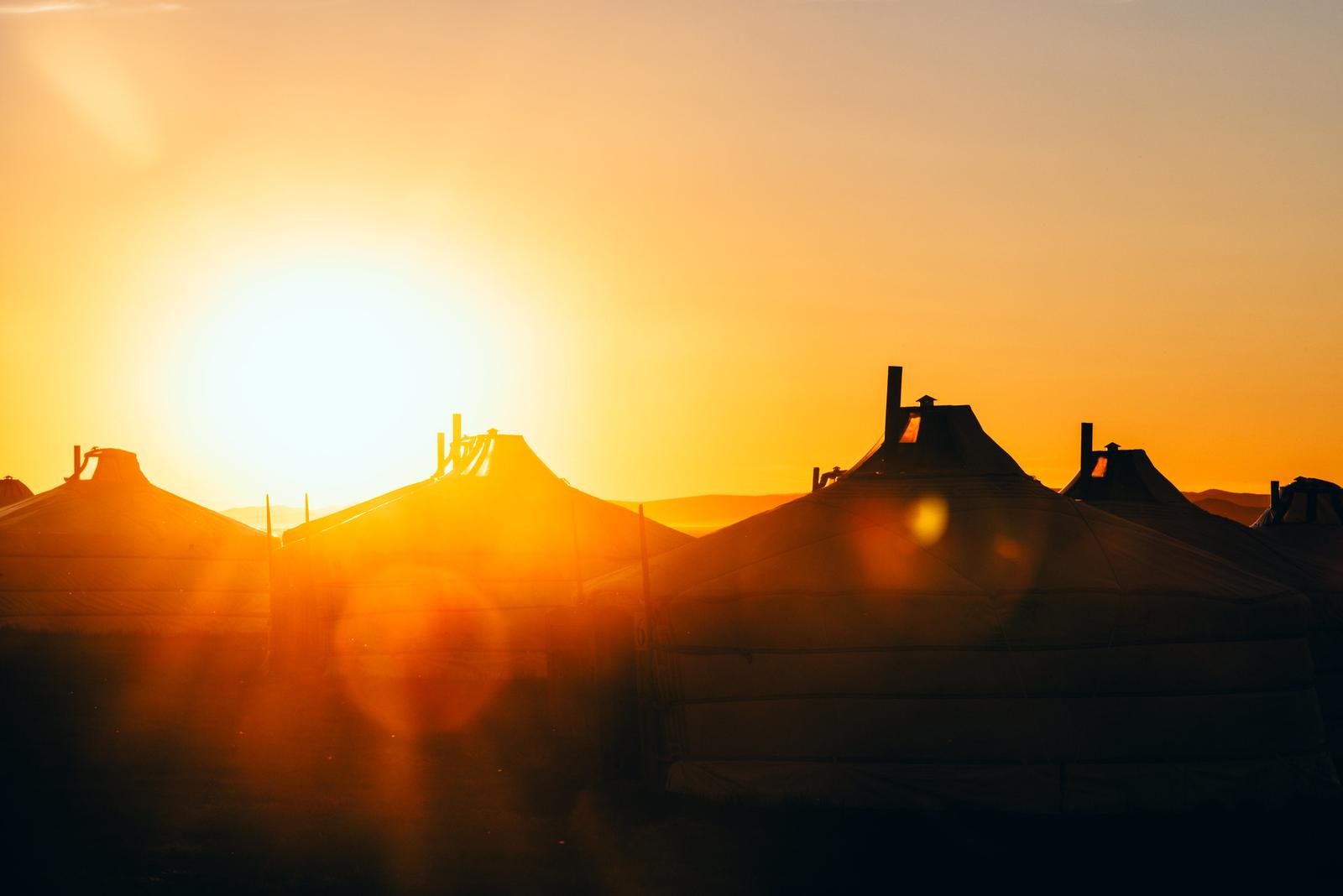
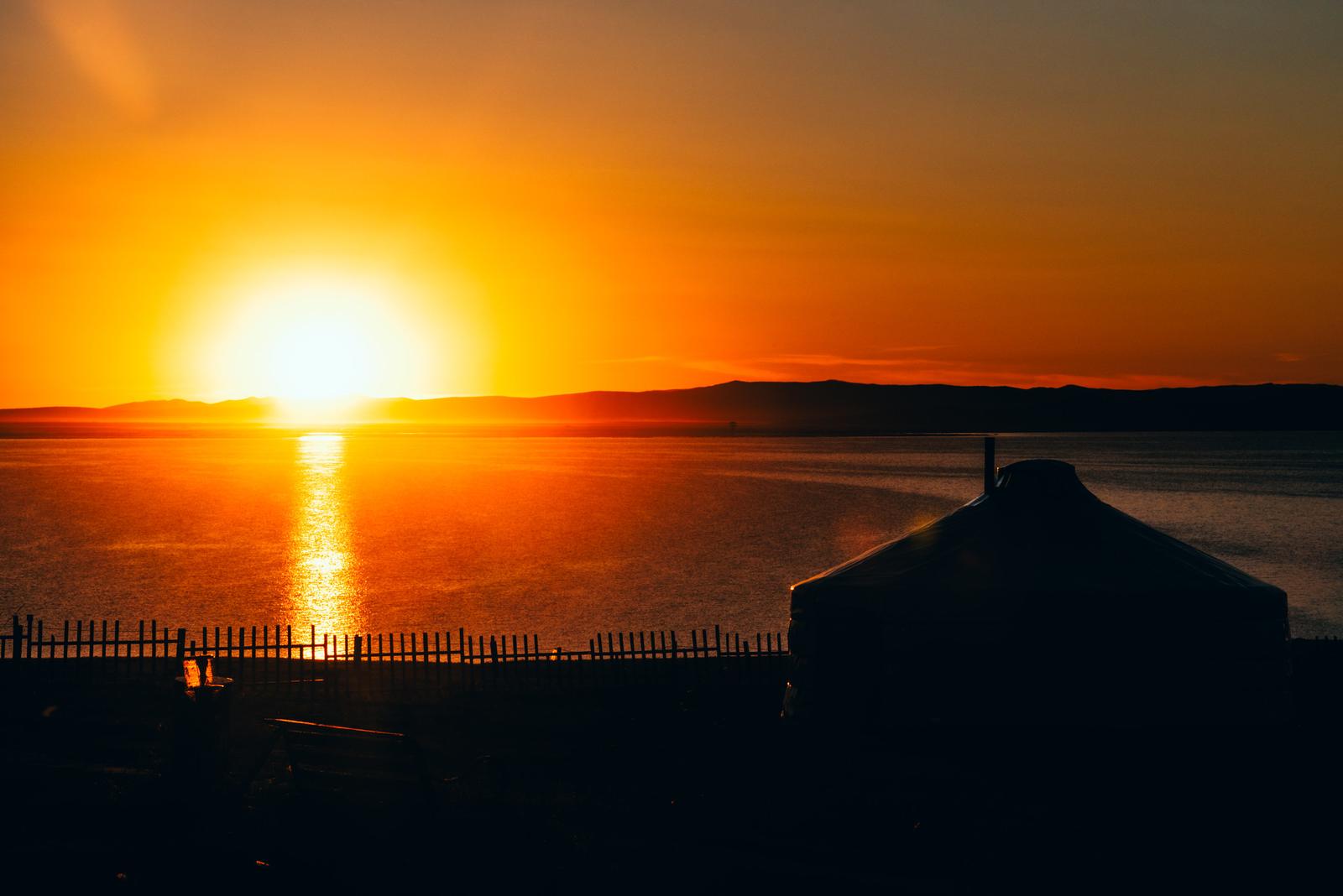
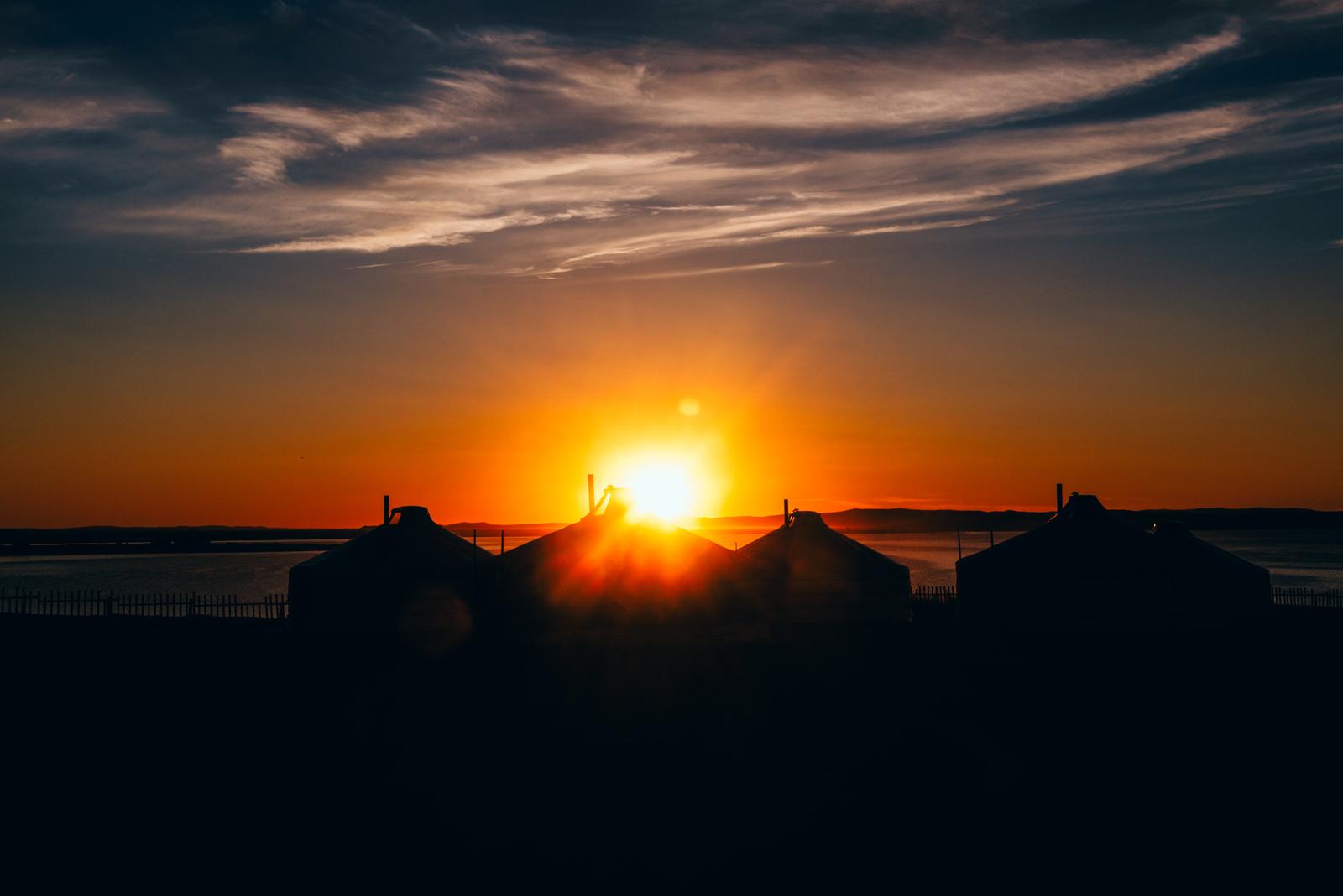
The sunset can shine over snowy mountains, towering spires, skyscrapers - and right then, over the white yurts, yet it remained mesmerizing. I was in the dining hall, when I noticed the windows glowing with that legendary hue, without hesitation I paused my meal and rushed outside to capture that moment.
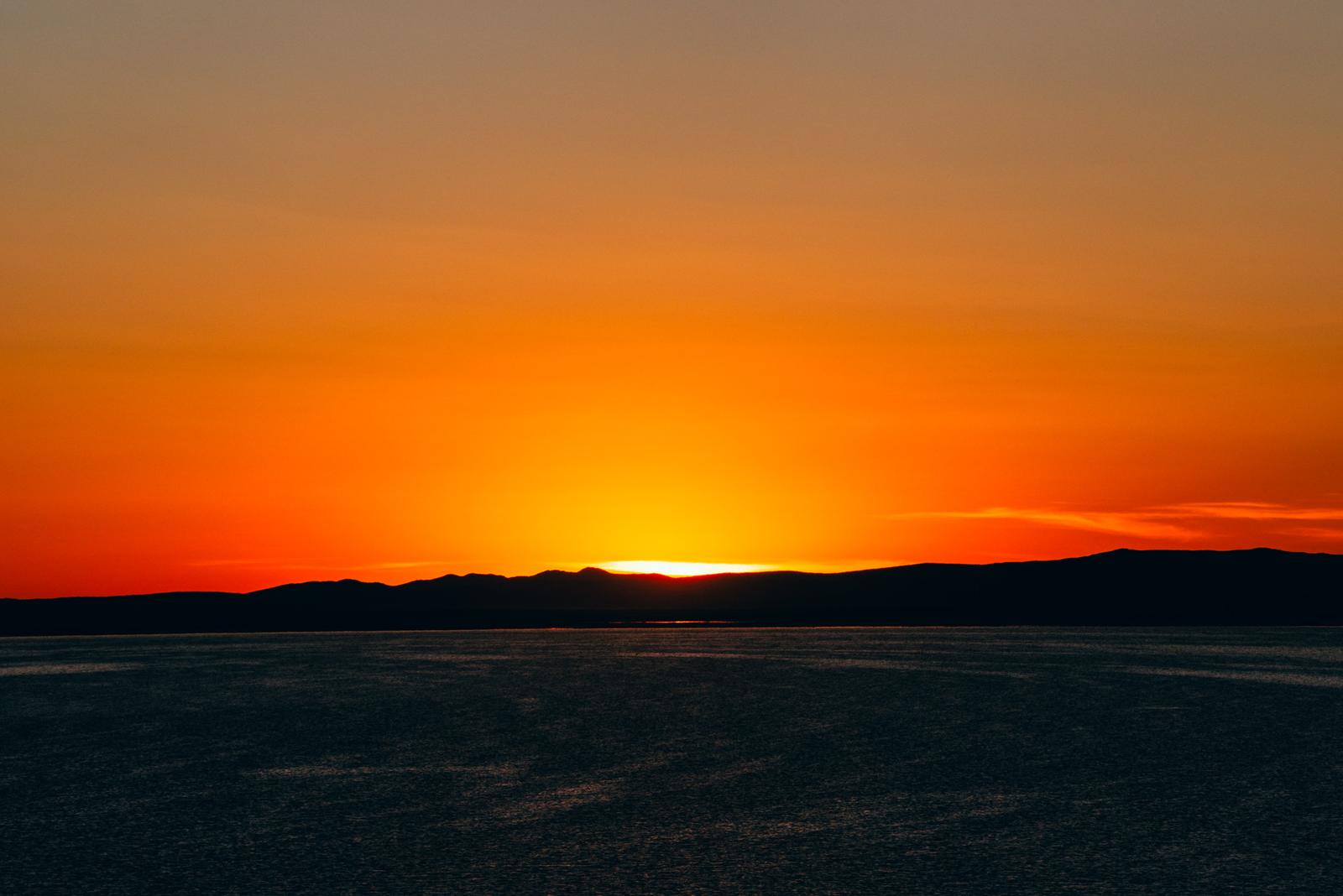
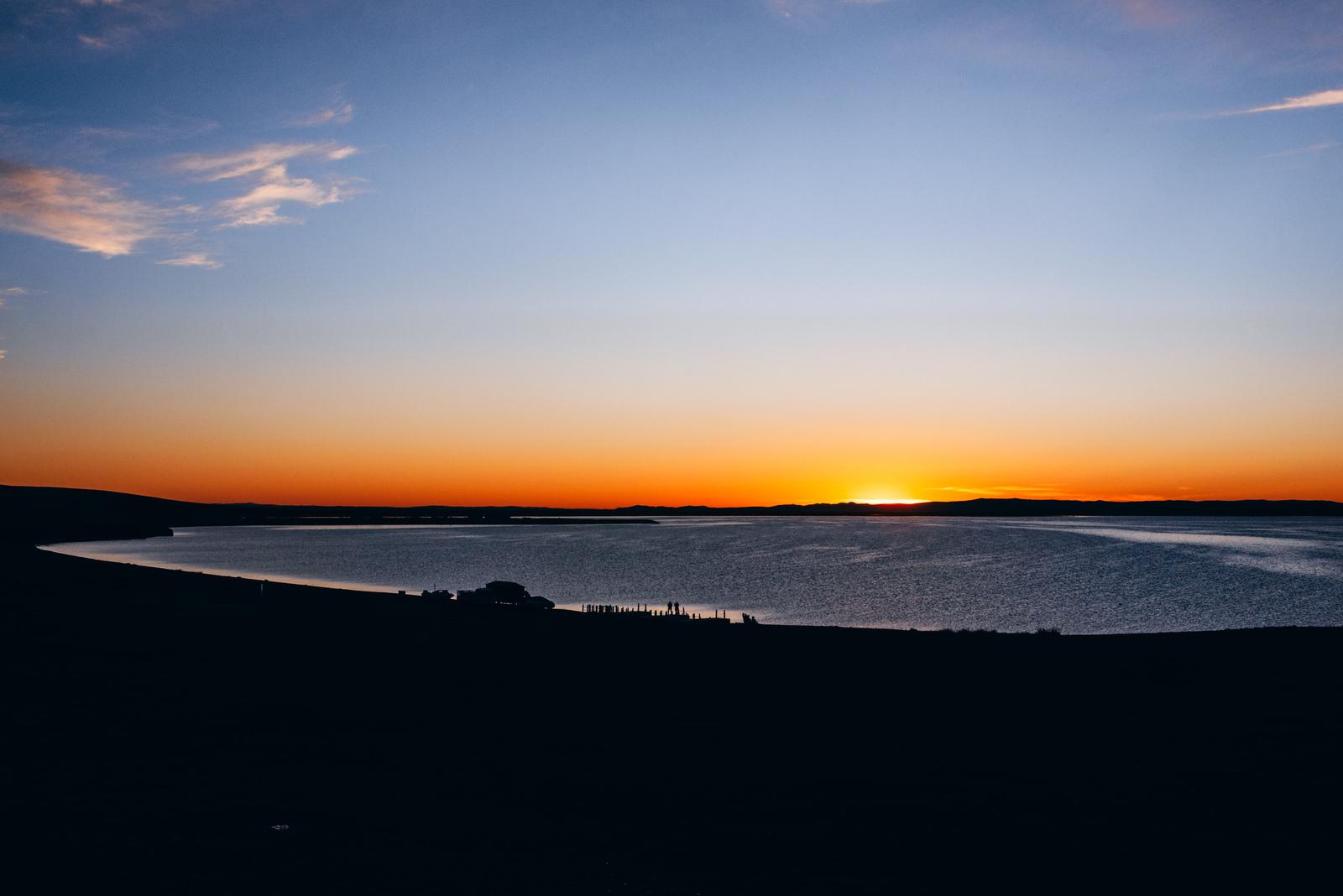
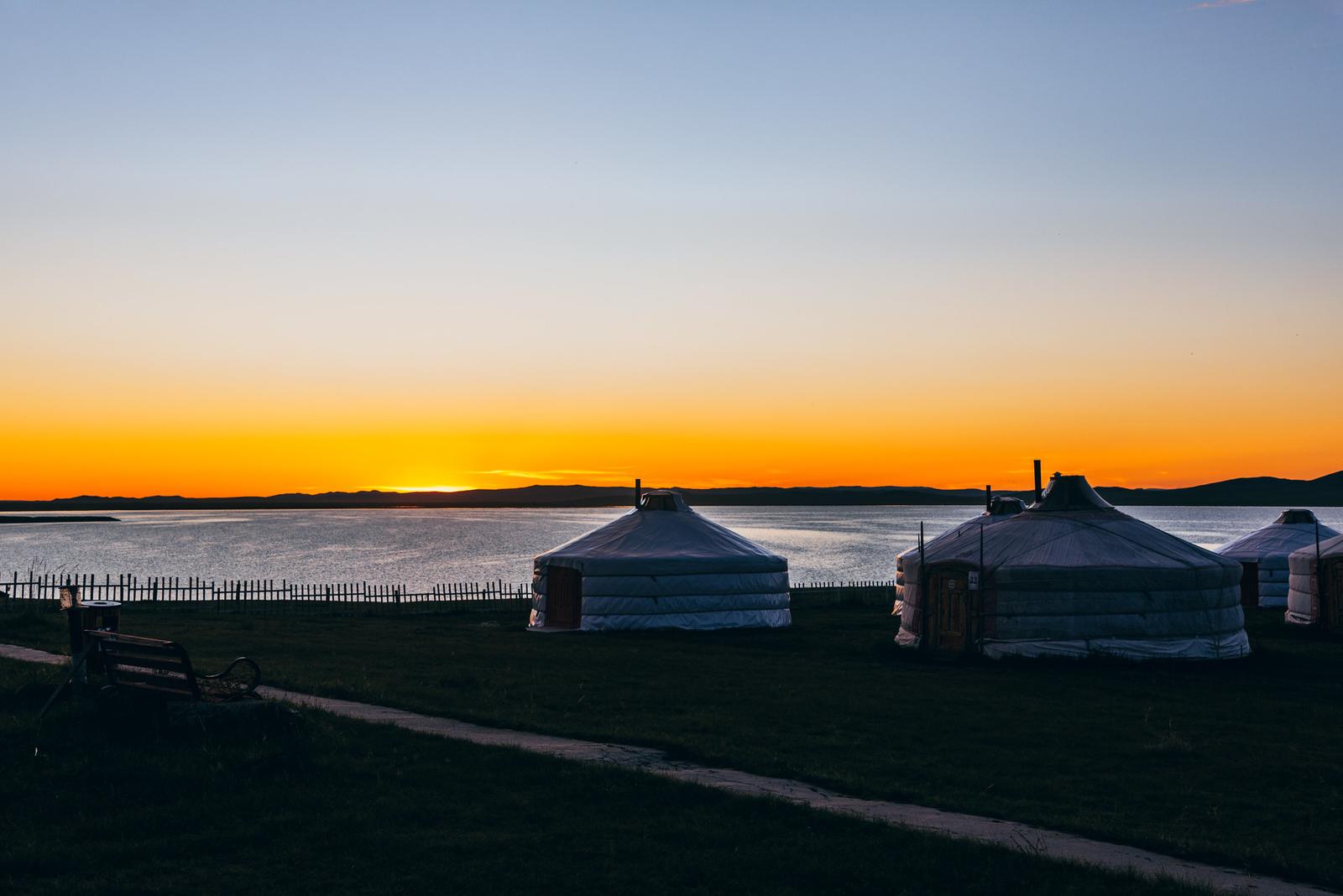
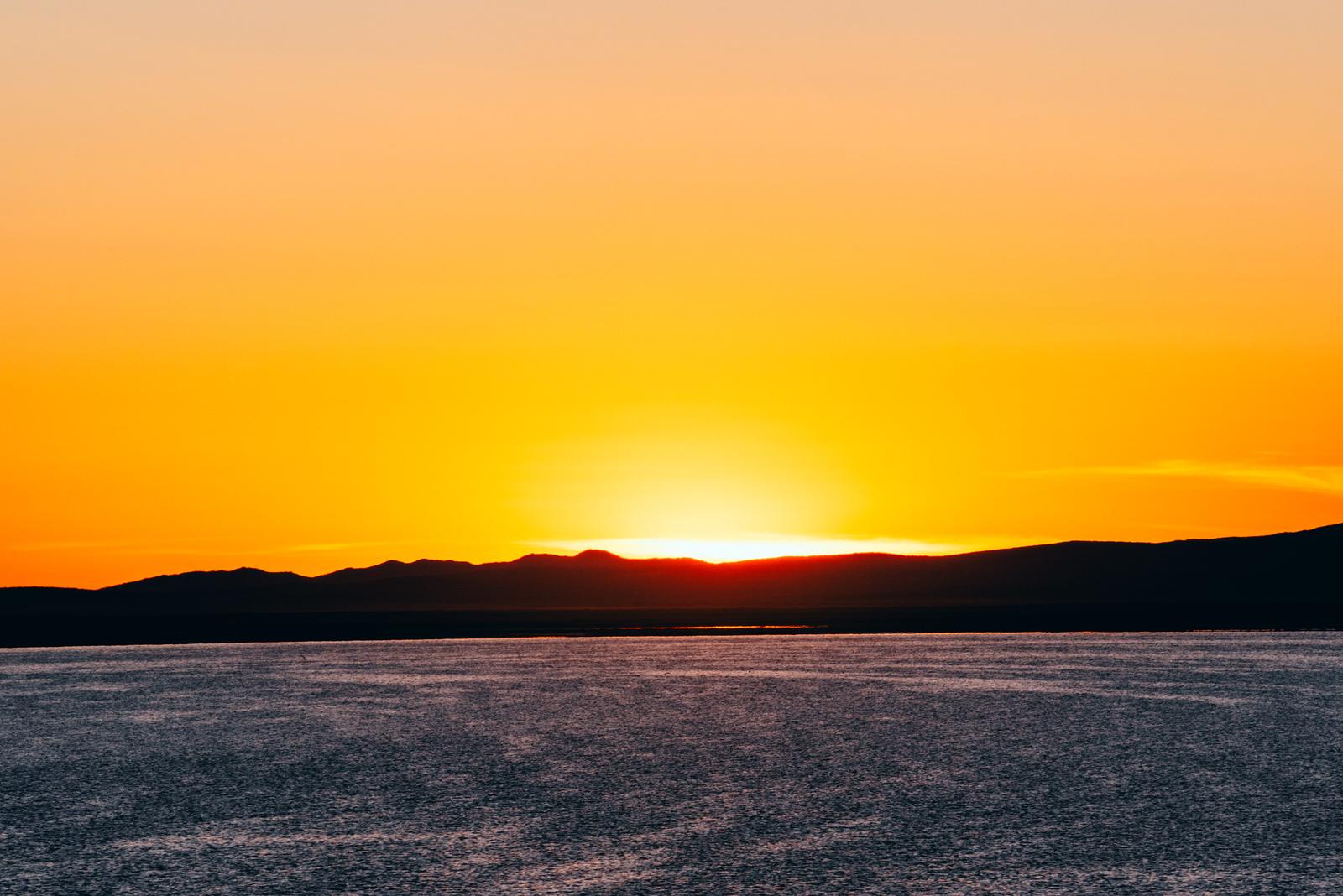
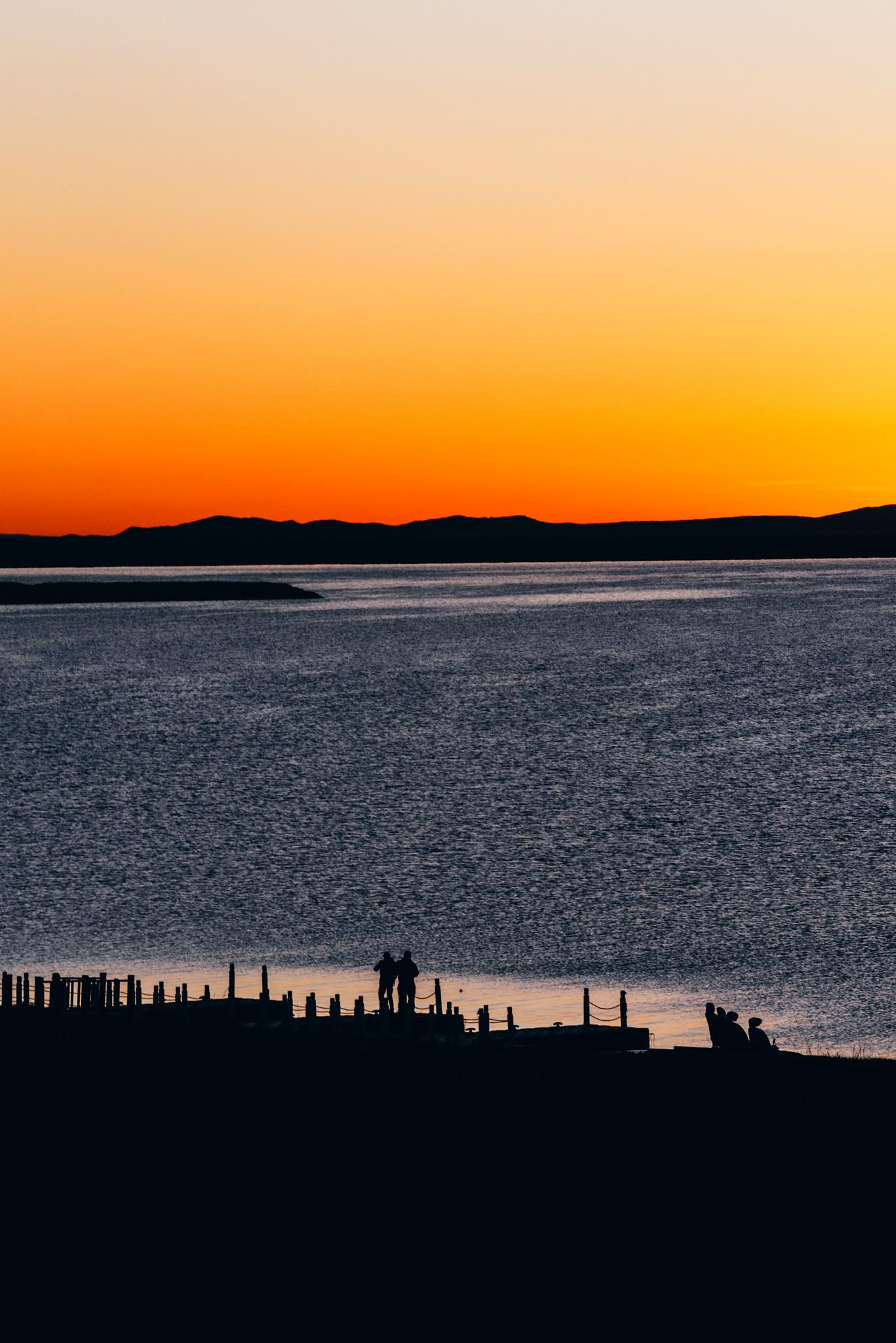
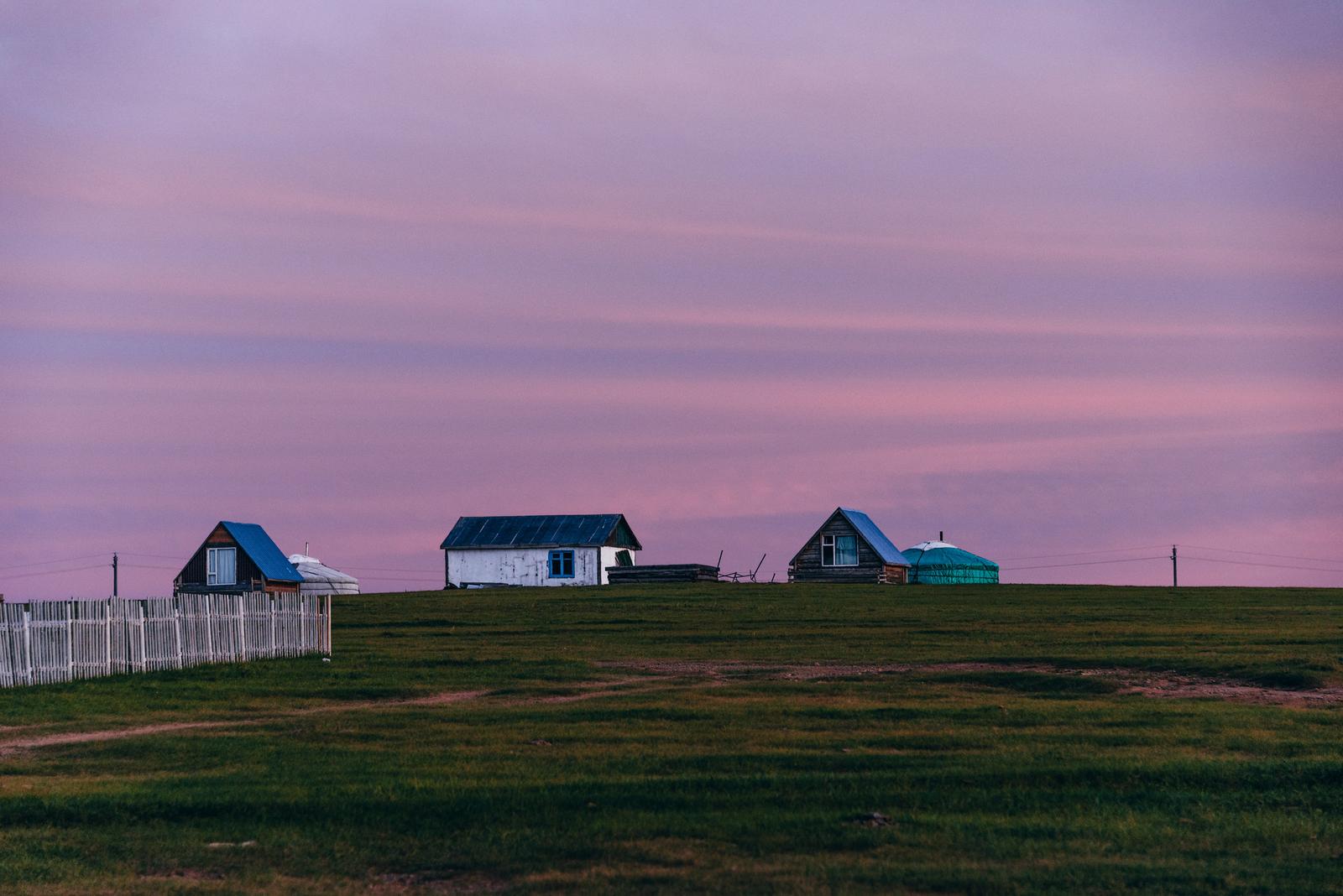
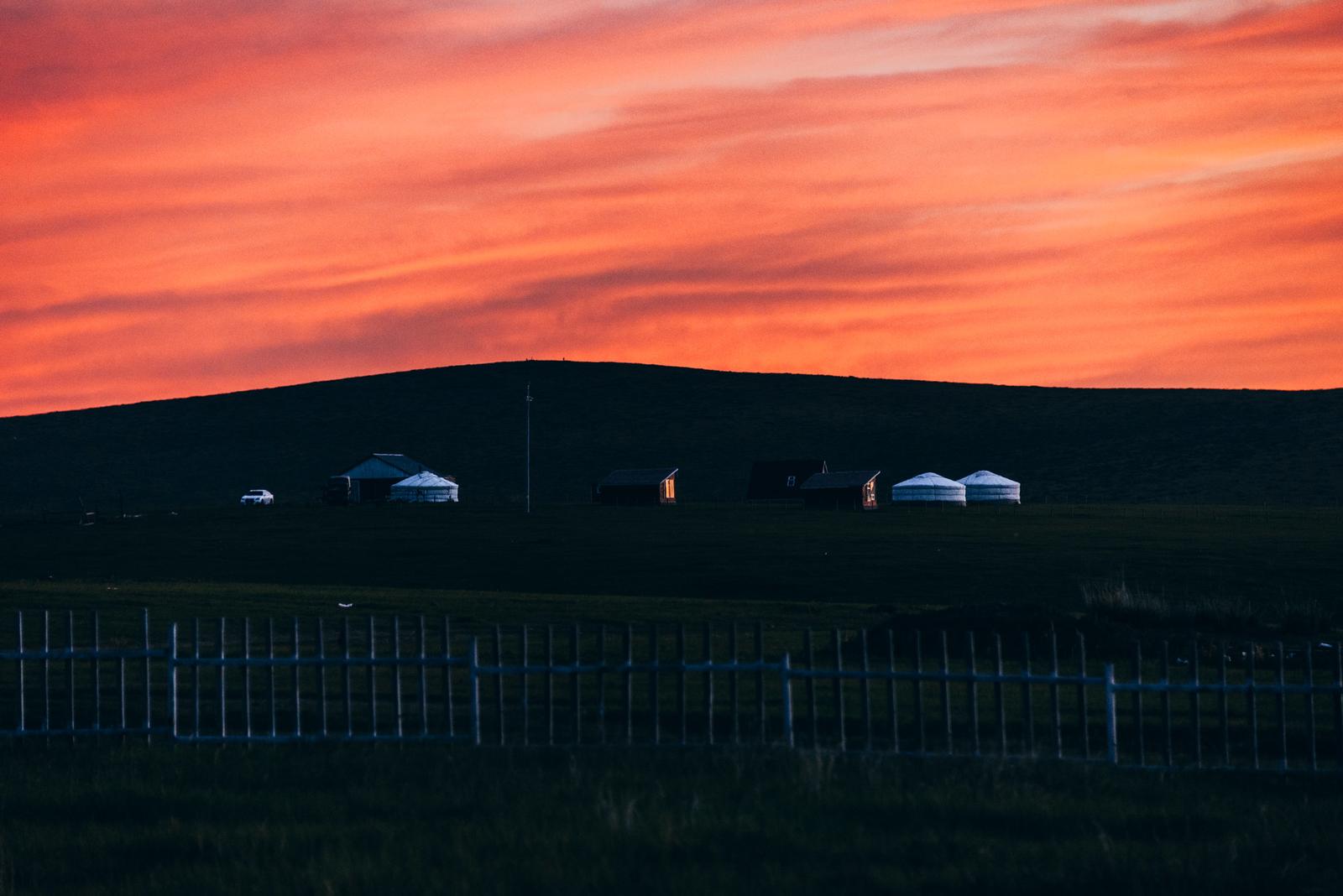
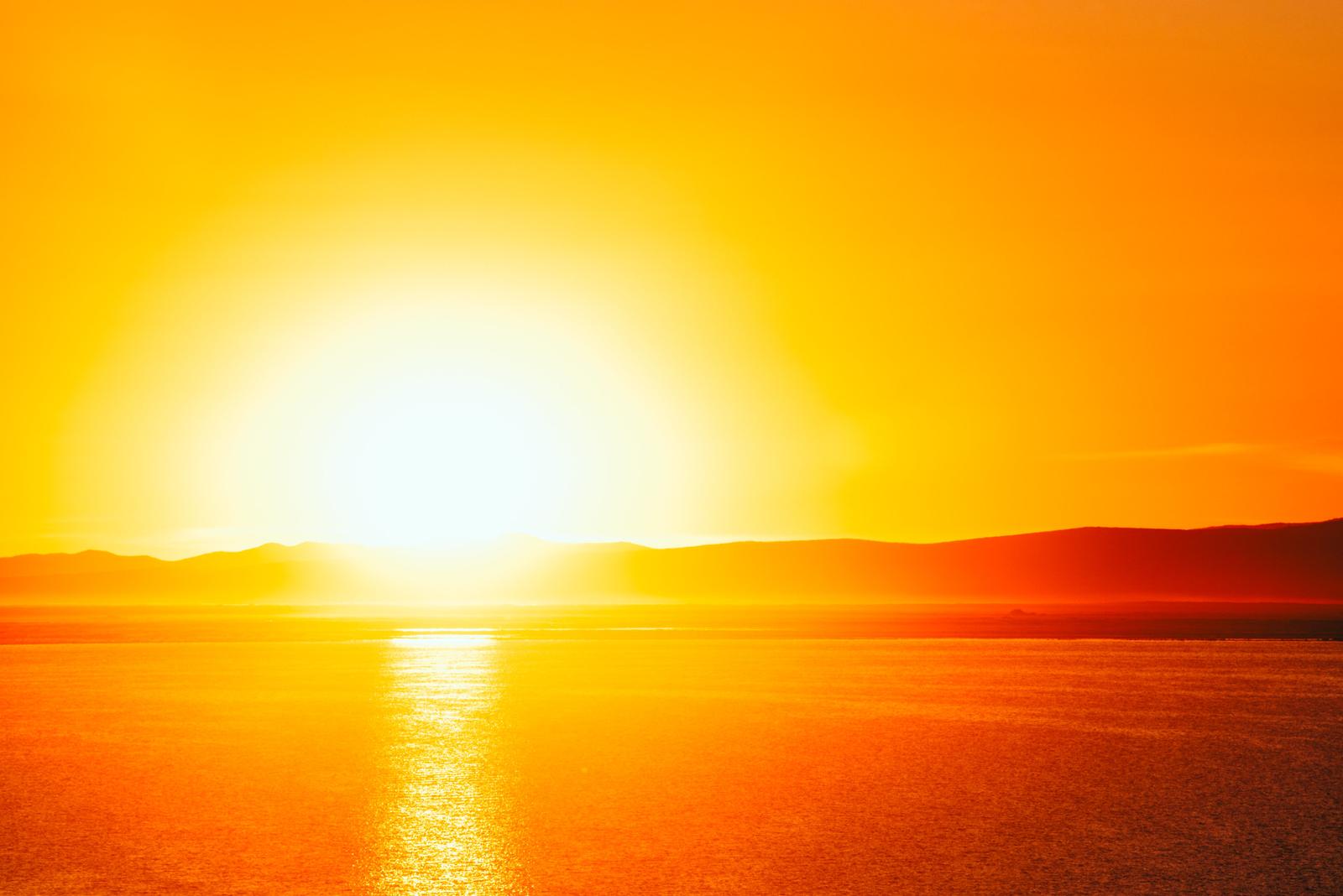
The Final Starry Night
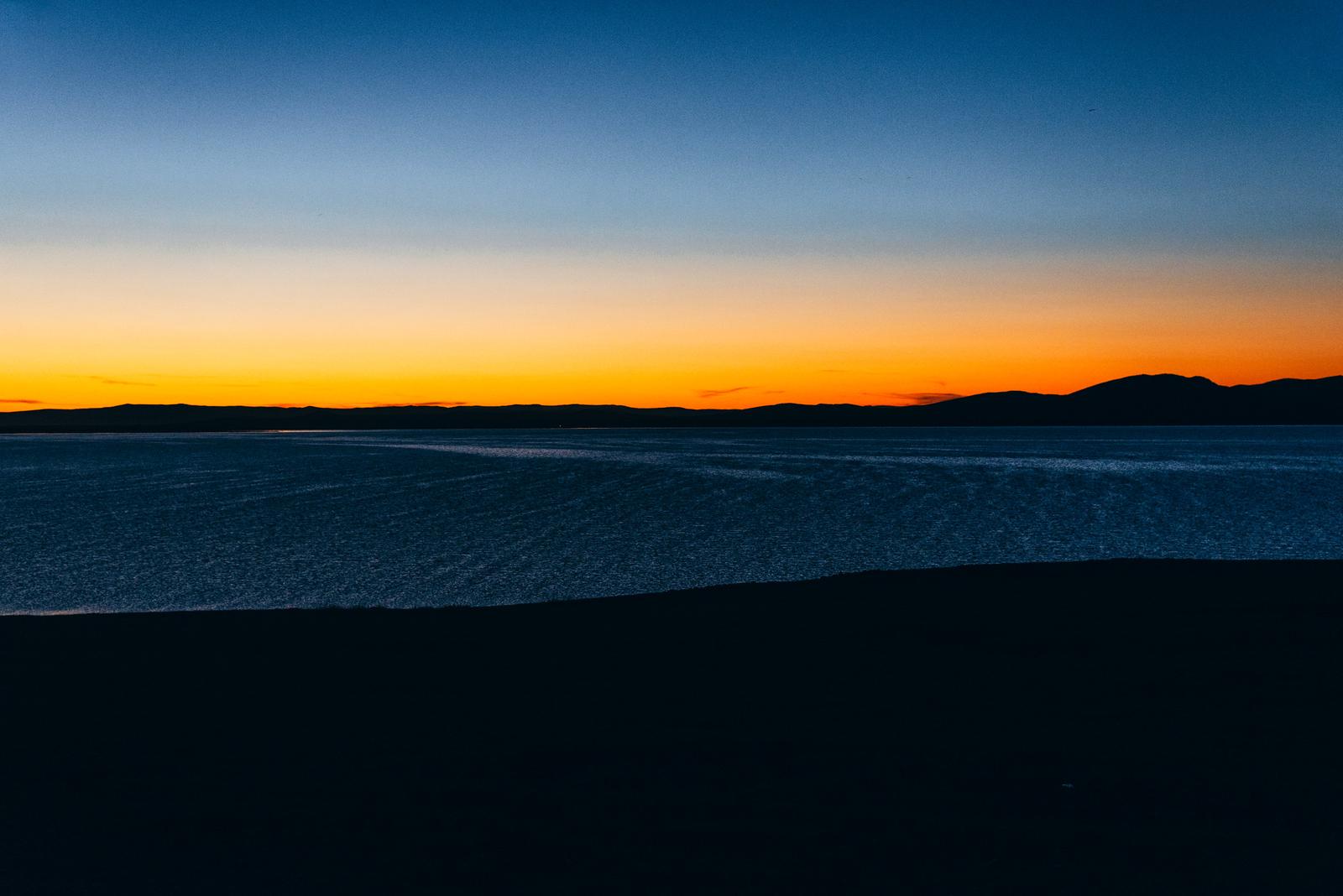
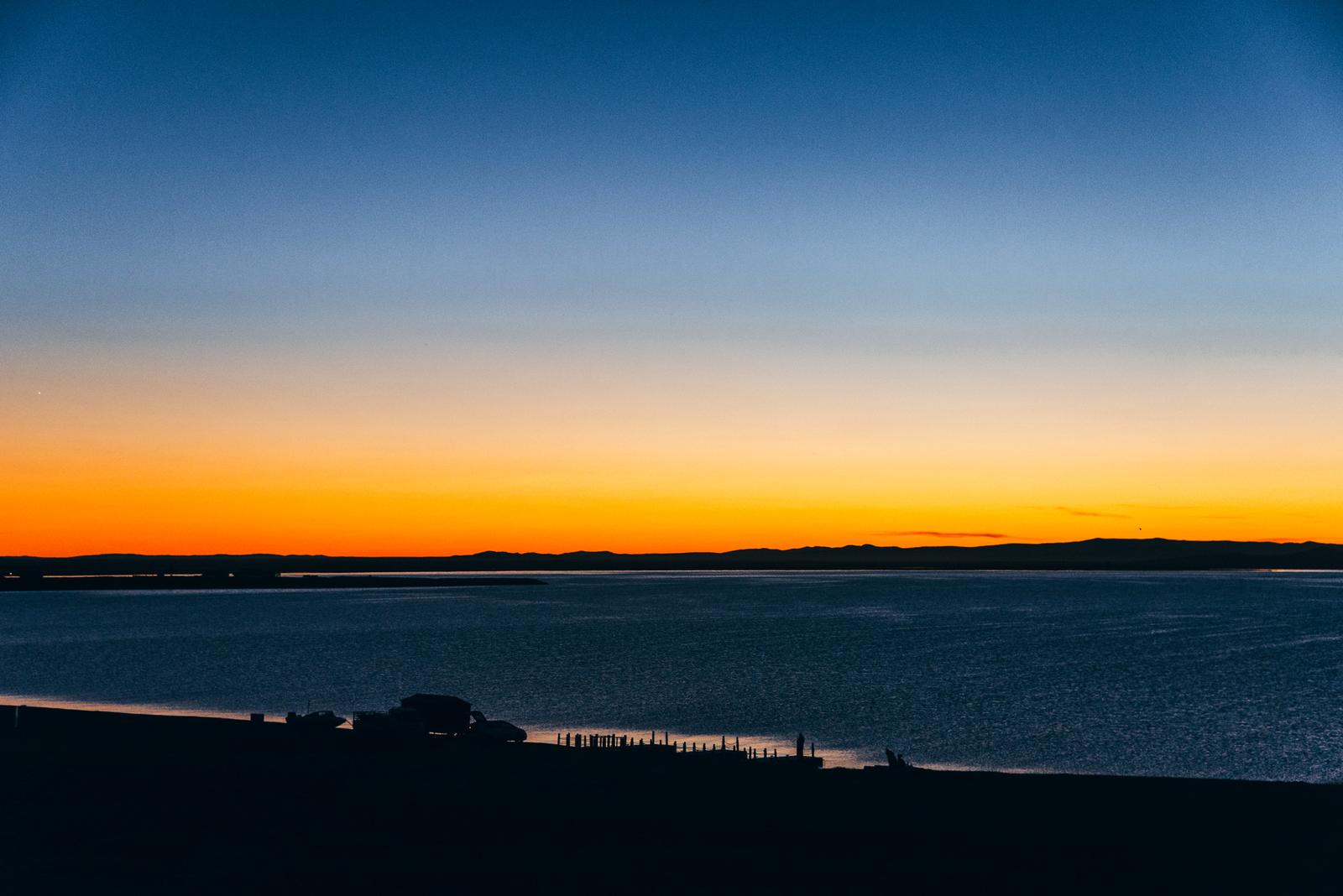
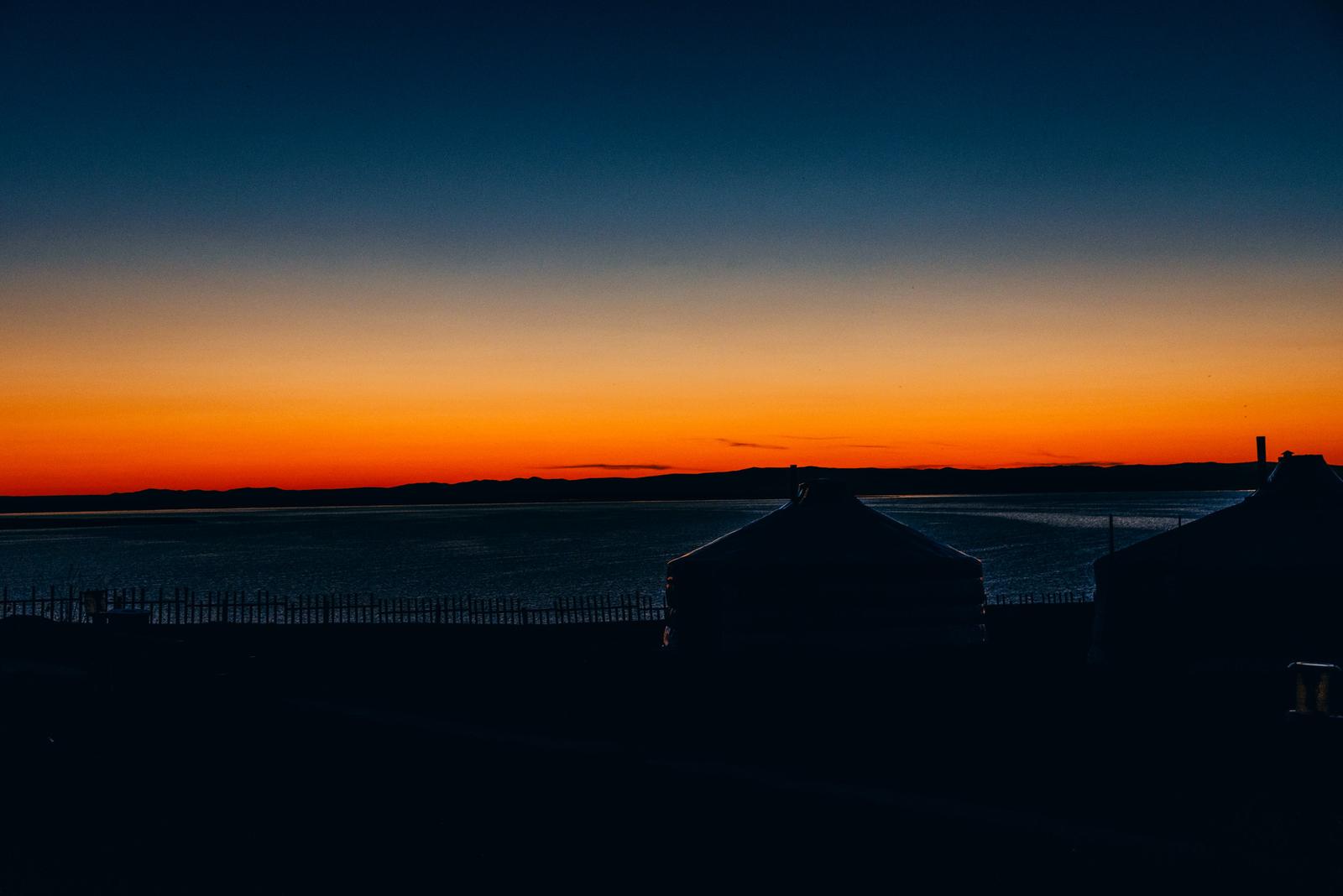
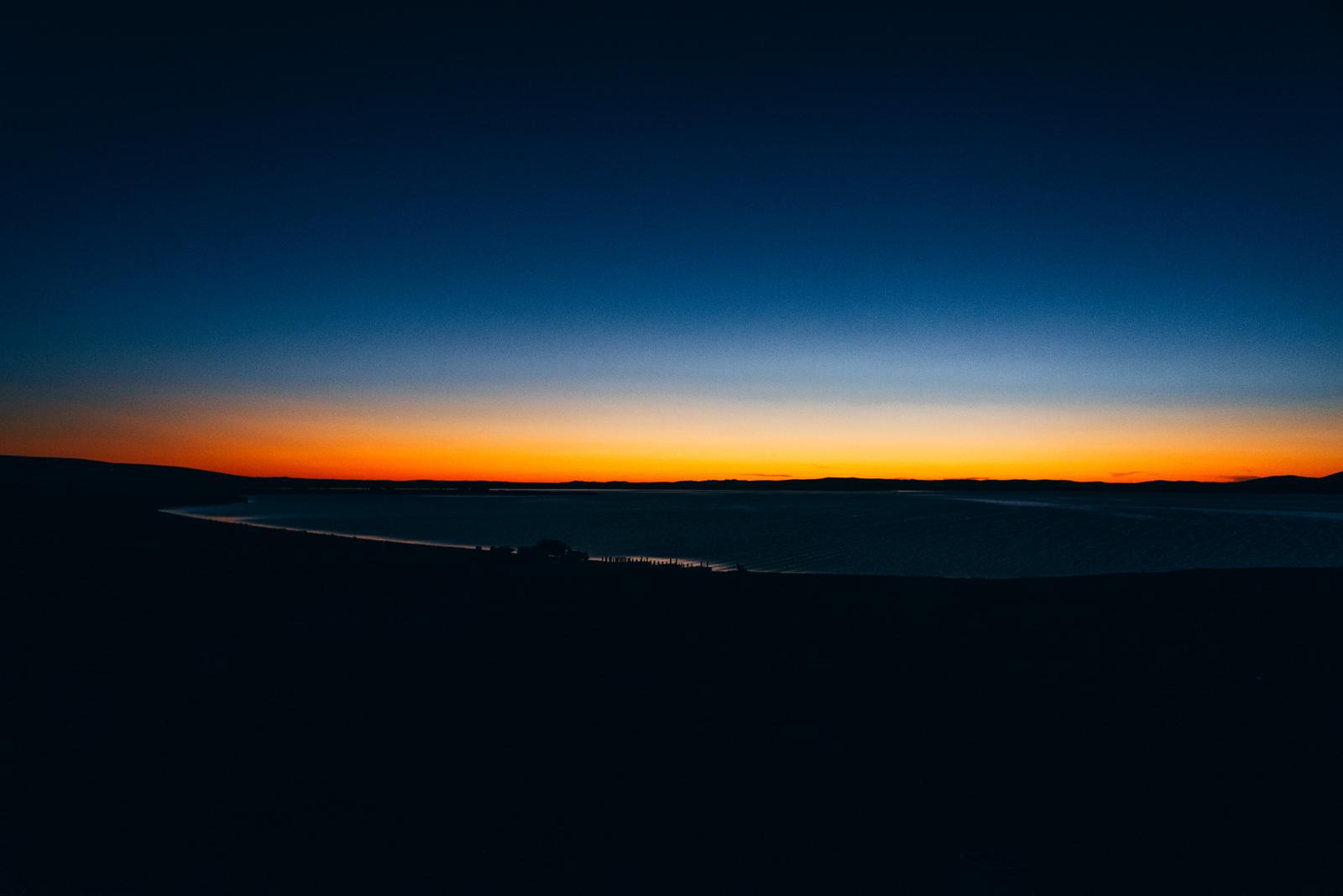
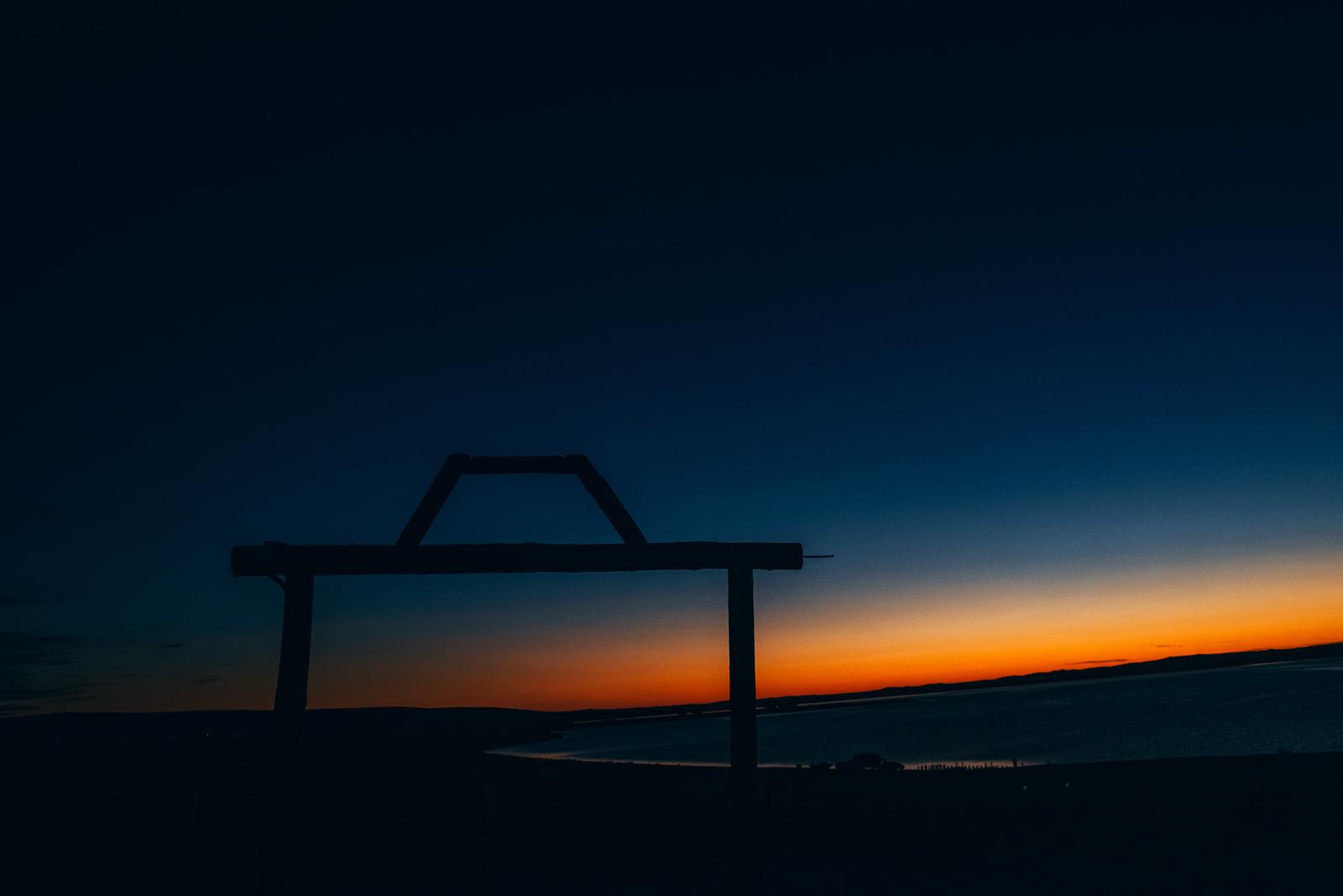
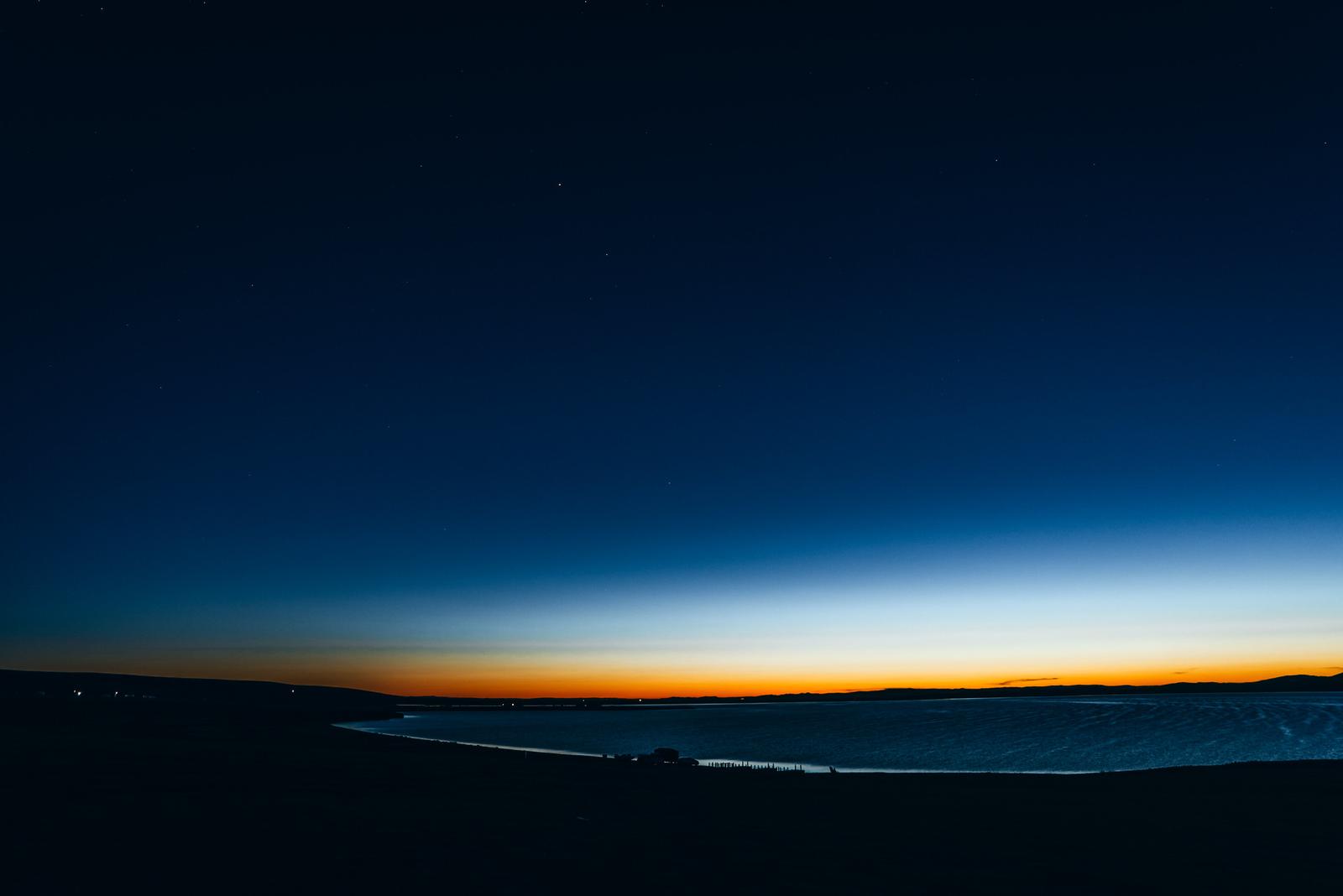
That night’s stargazing was much more comfortable, the weather wasn’t too cold, there’s light to guide the way, and the ground’s flat, except the only disturbance was the distant barking of dogs from a farm afar.
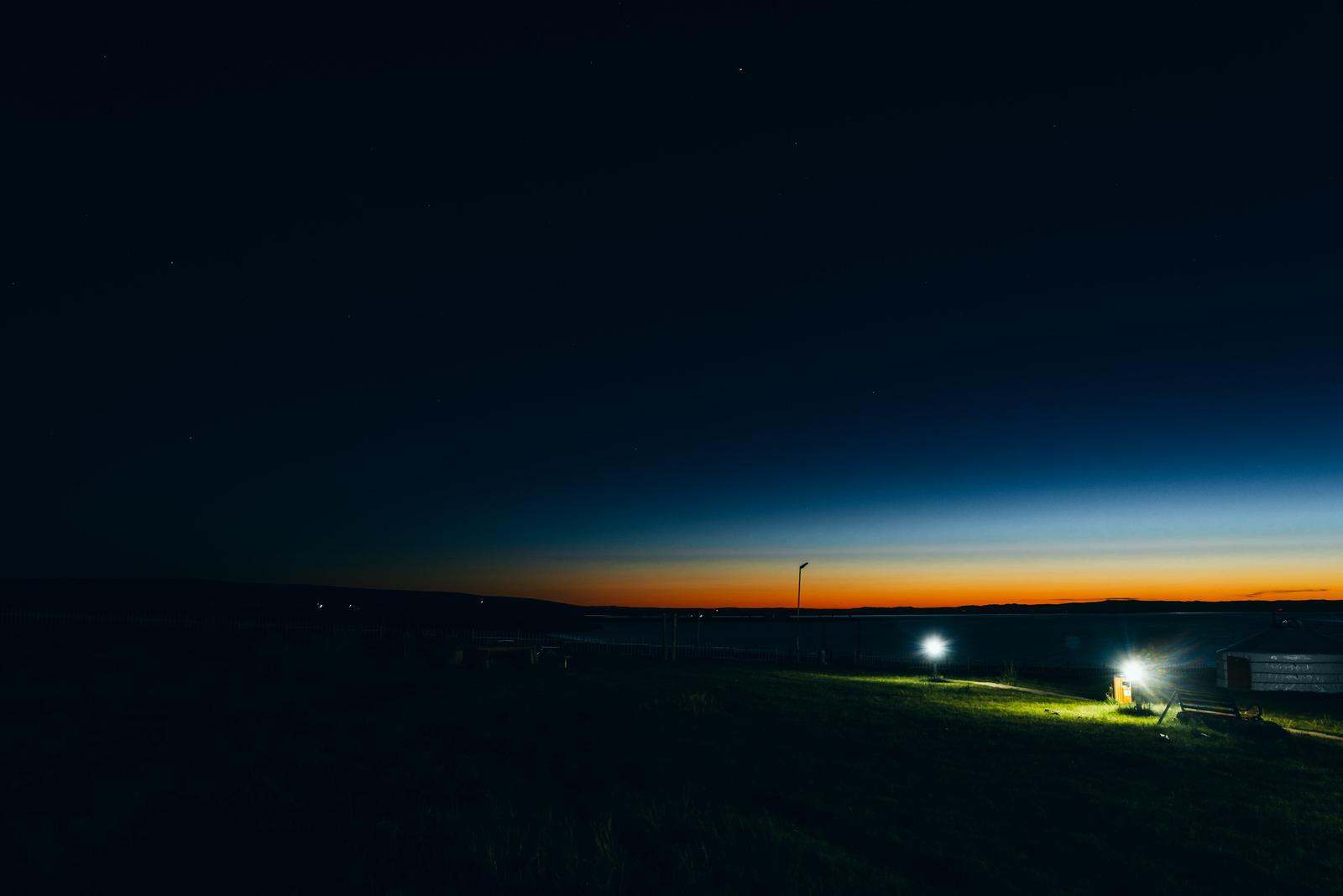
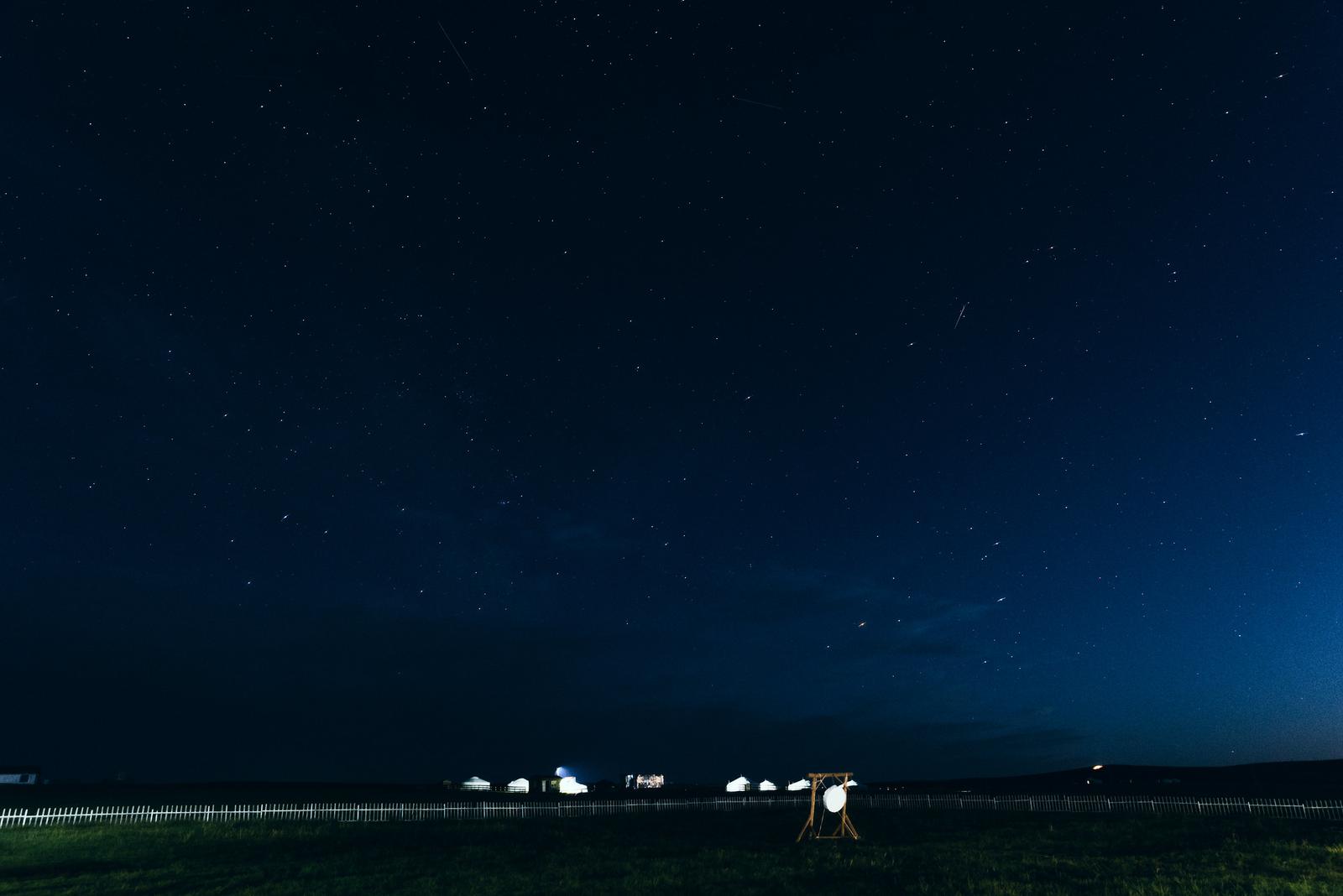
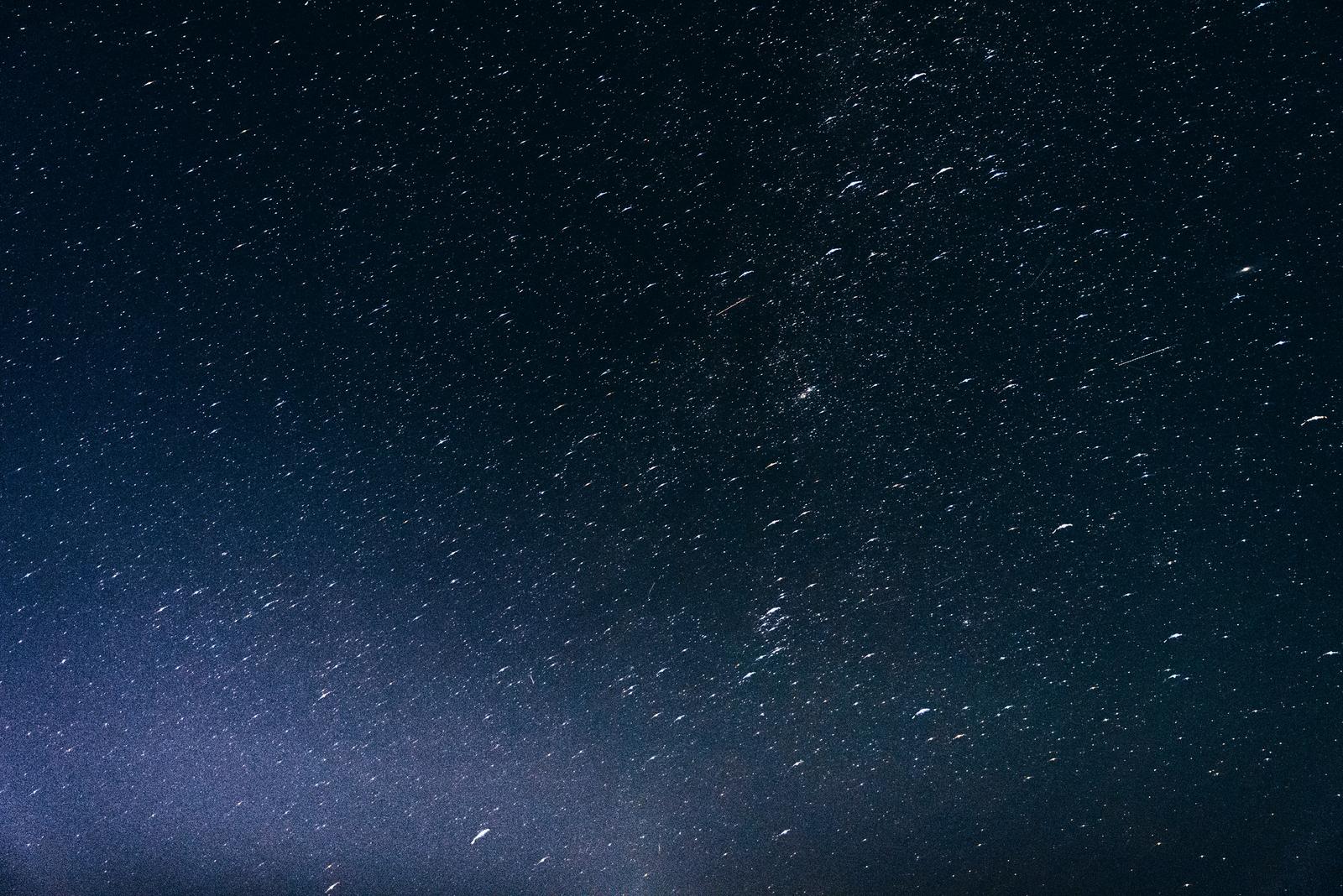
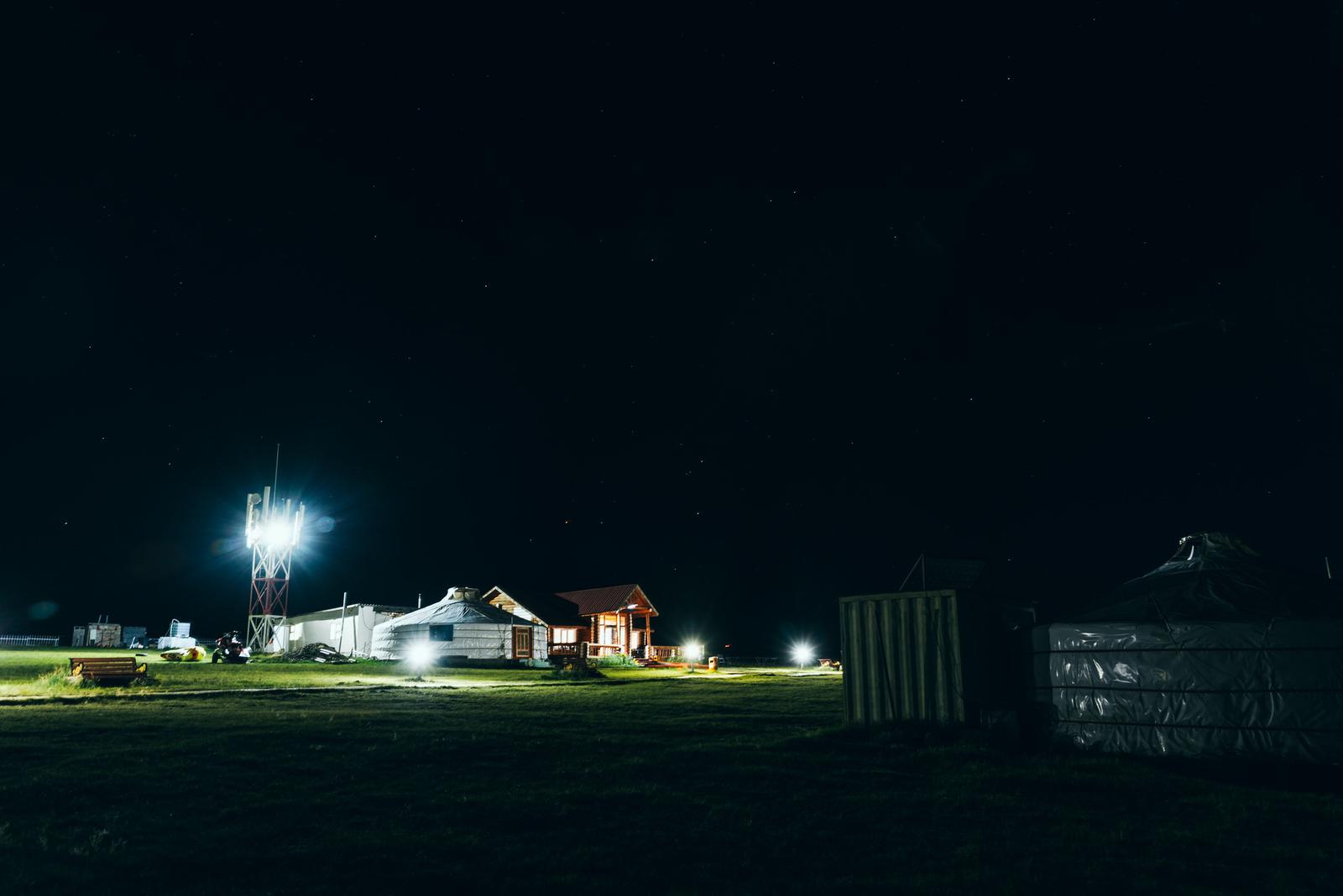
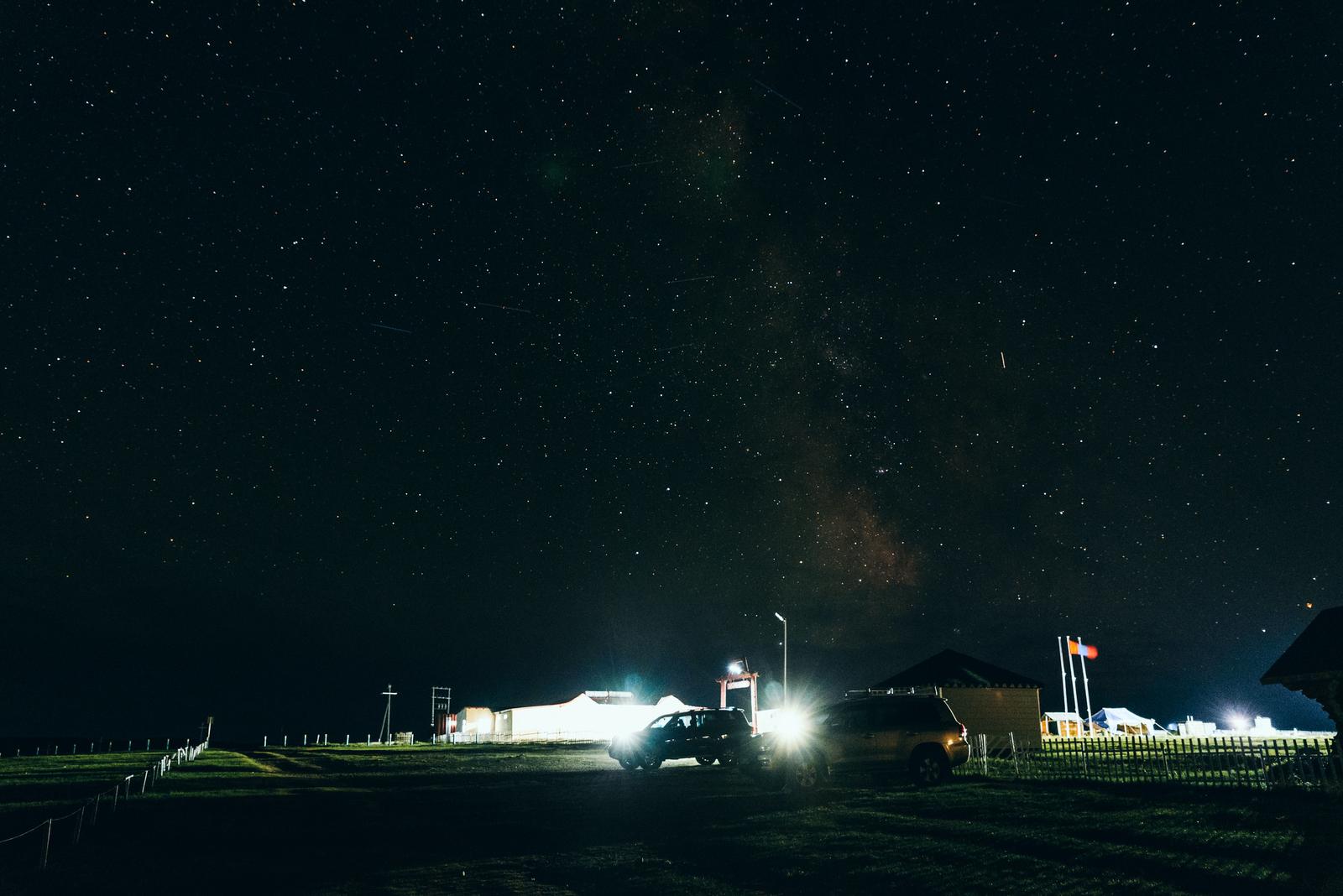
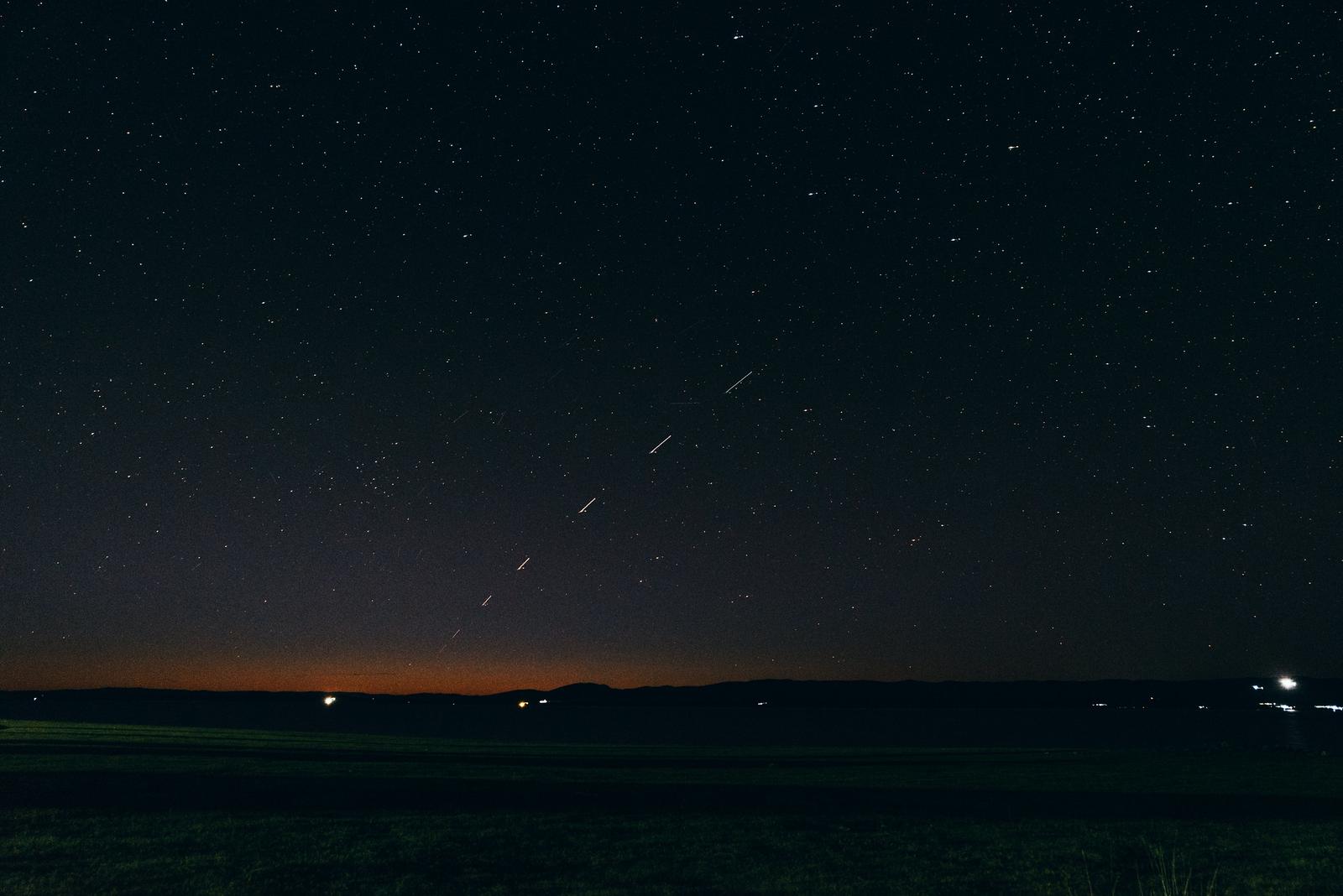
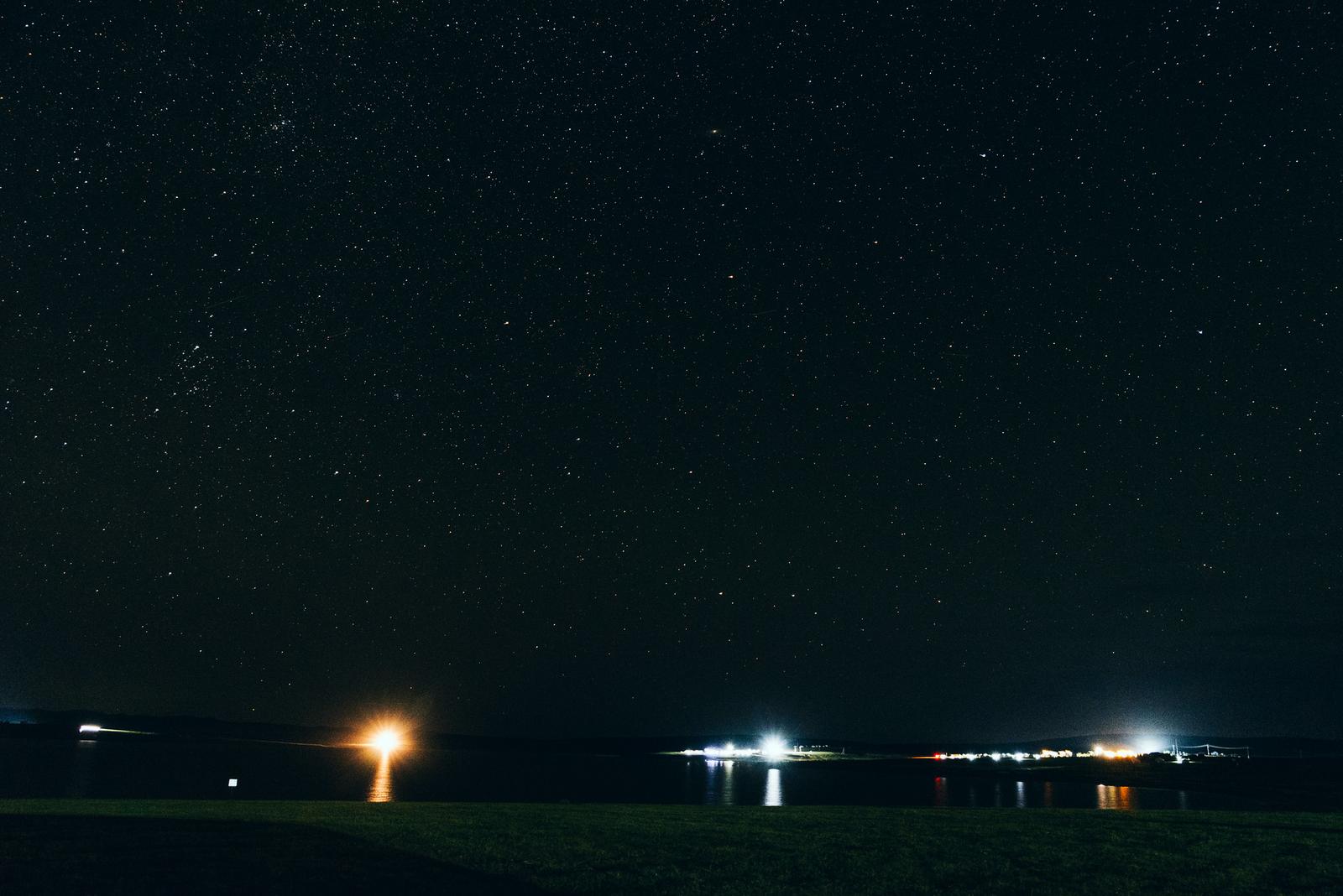
In the distance, the campers by the pier had lit their lamps - an artificial glow standing out against the vast darkness. Perhaps thanks to these little lights, I didn’t sense the feeling of solitude and insignificance.
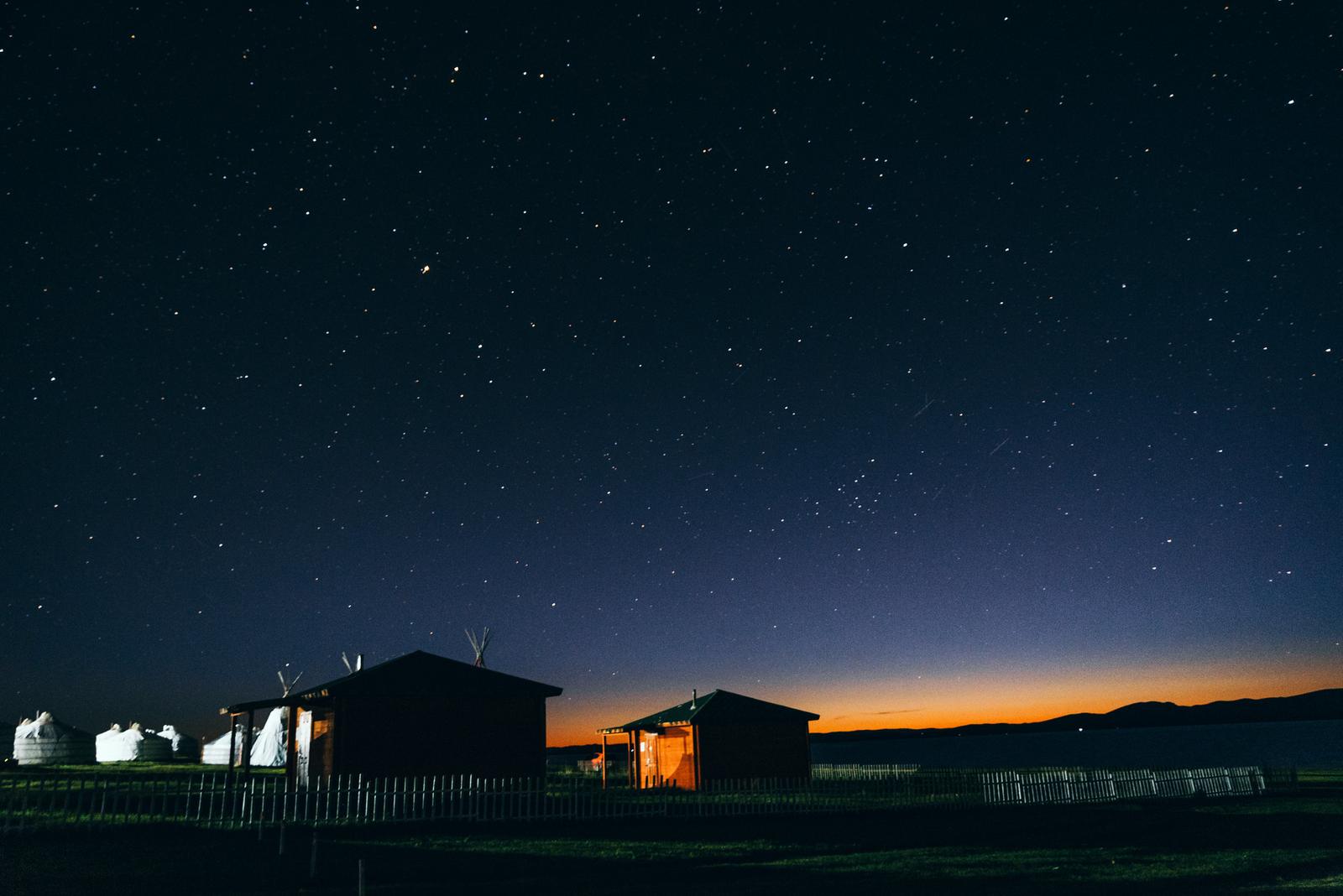
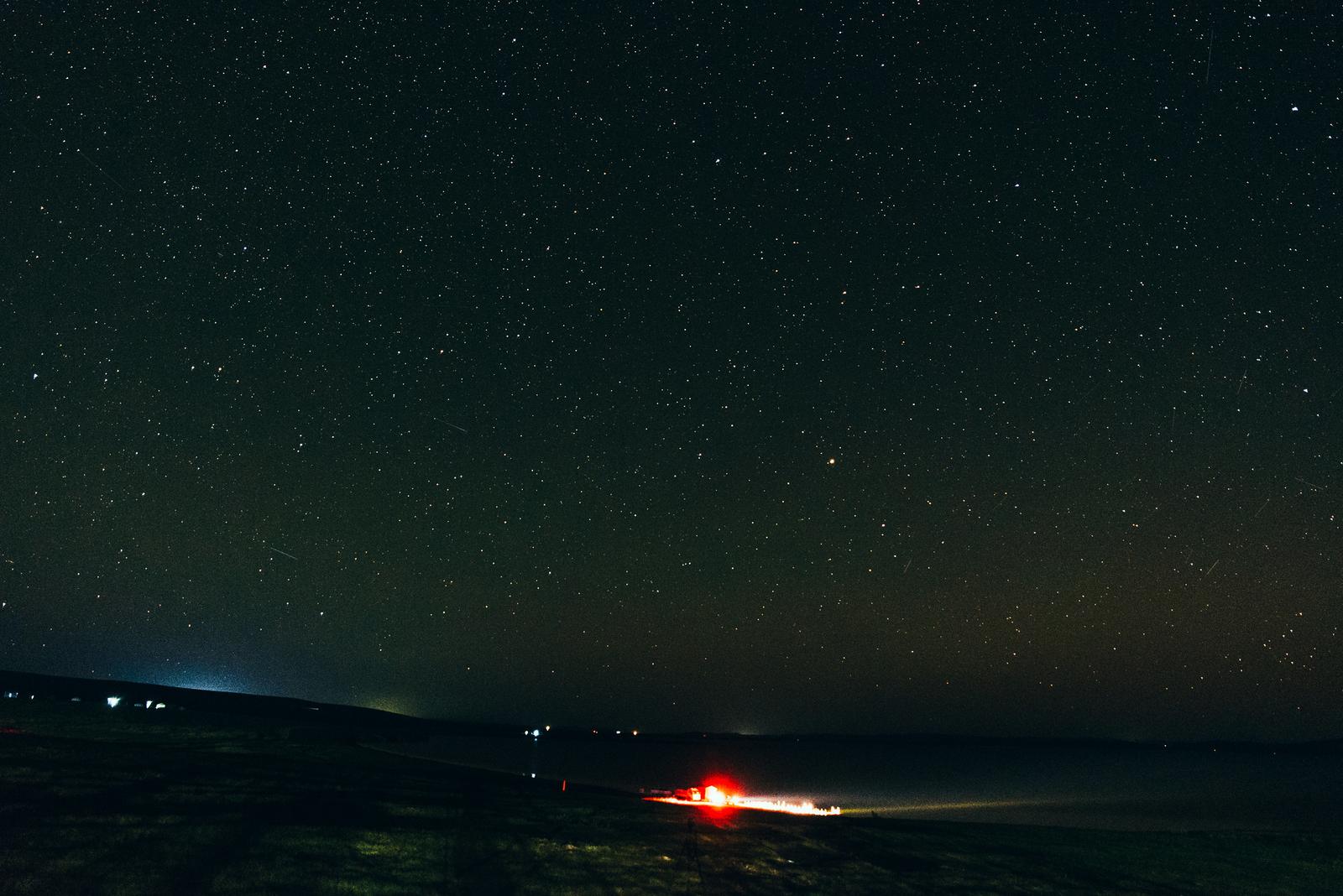
Meanwhile, the Milky Way stretched across the sky like a sword cutting through the night.
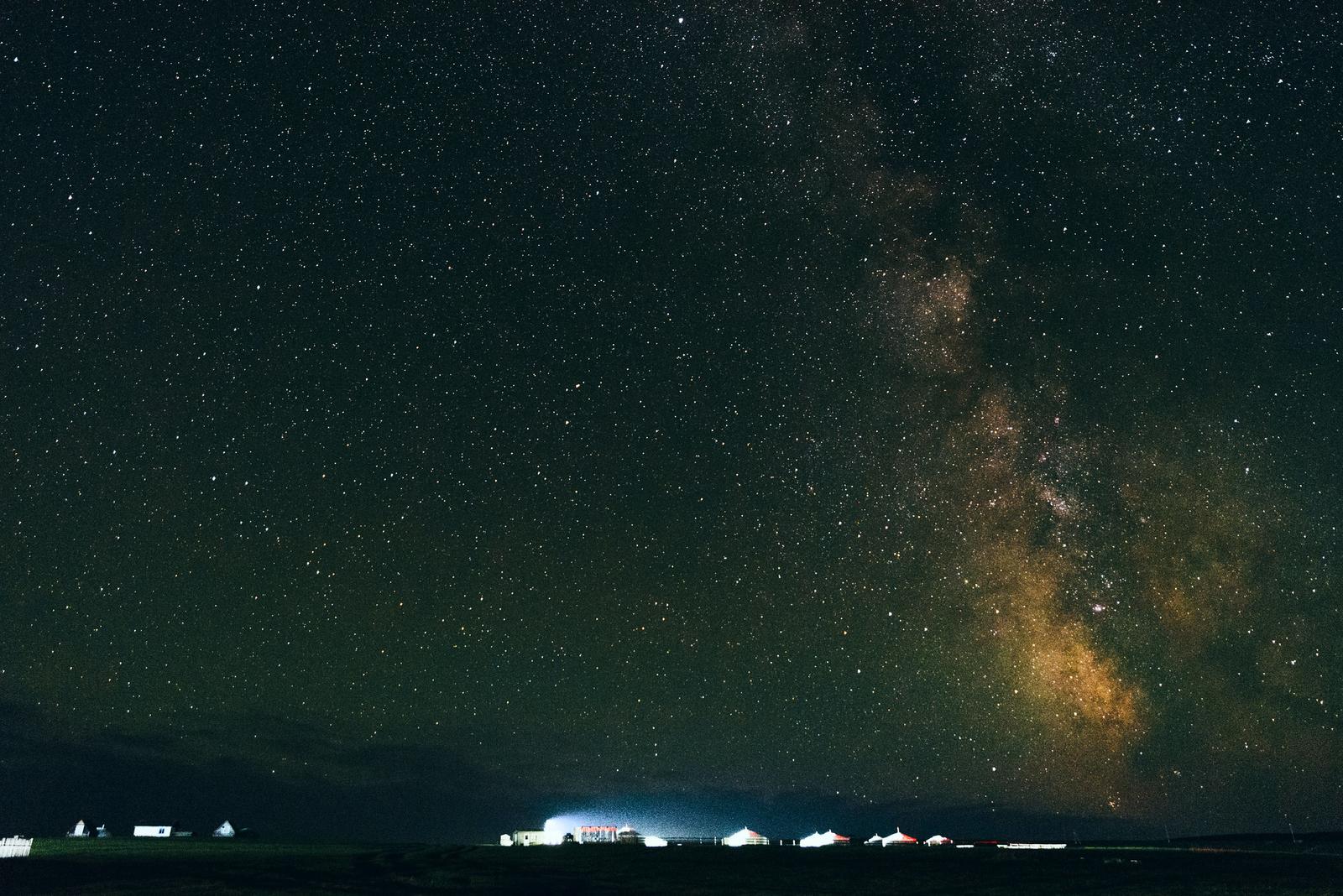
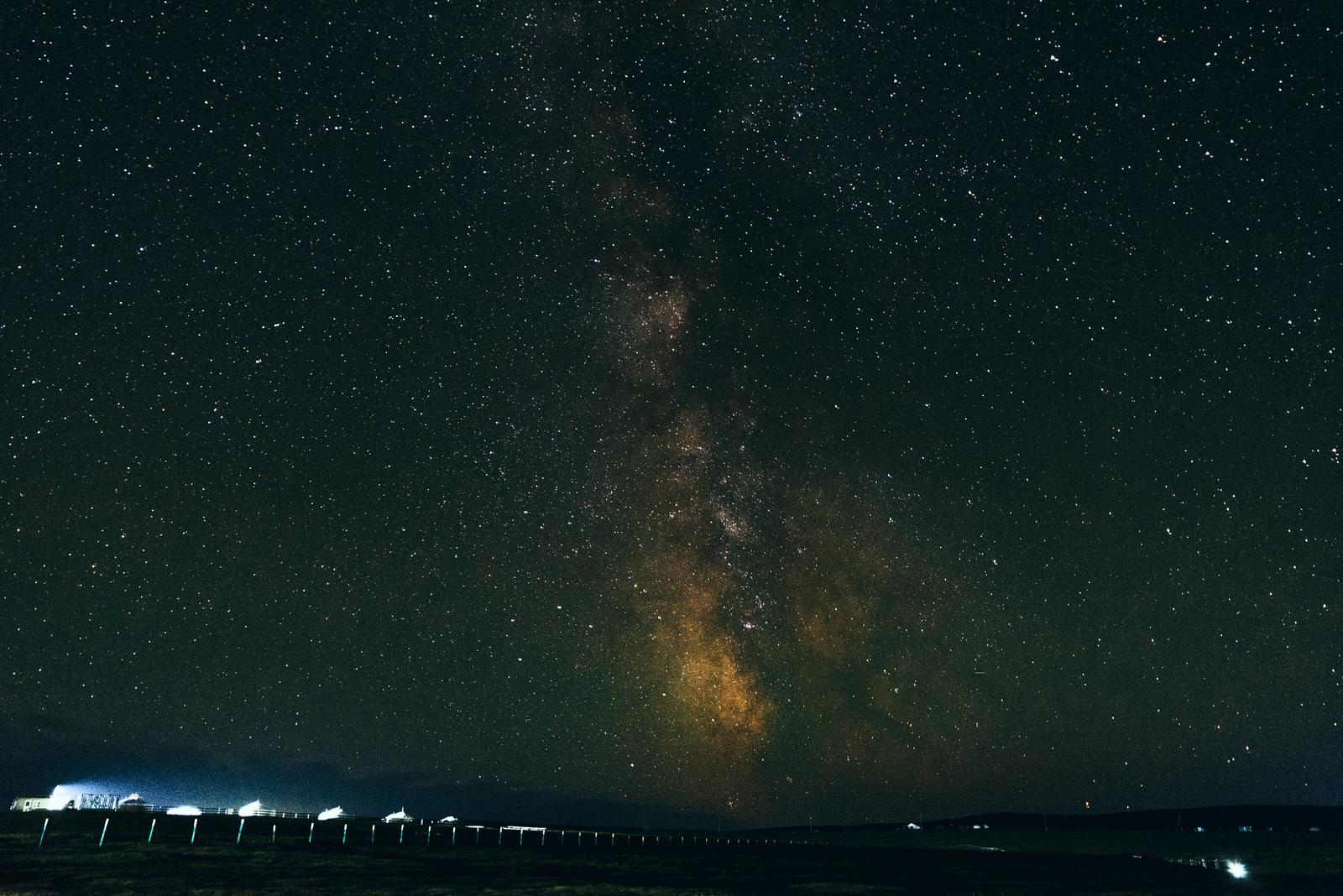
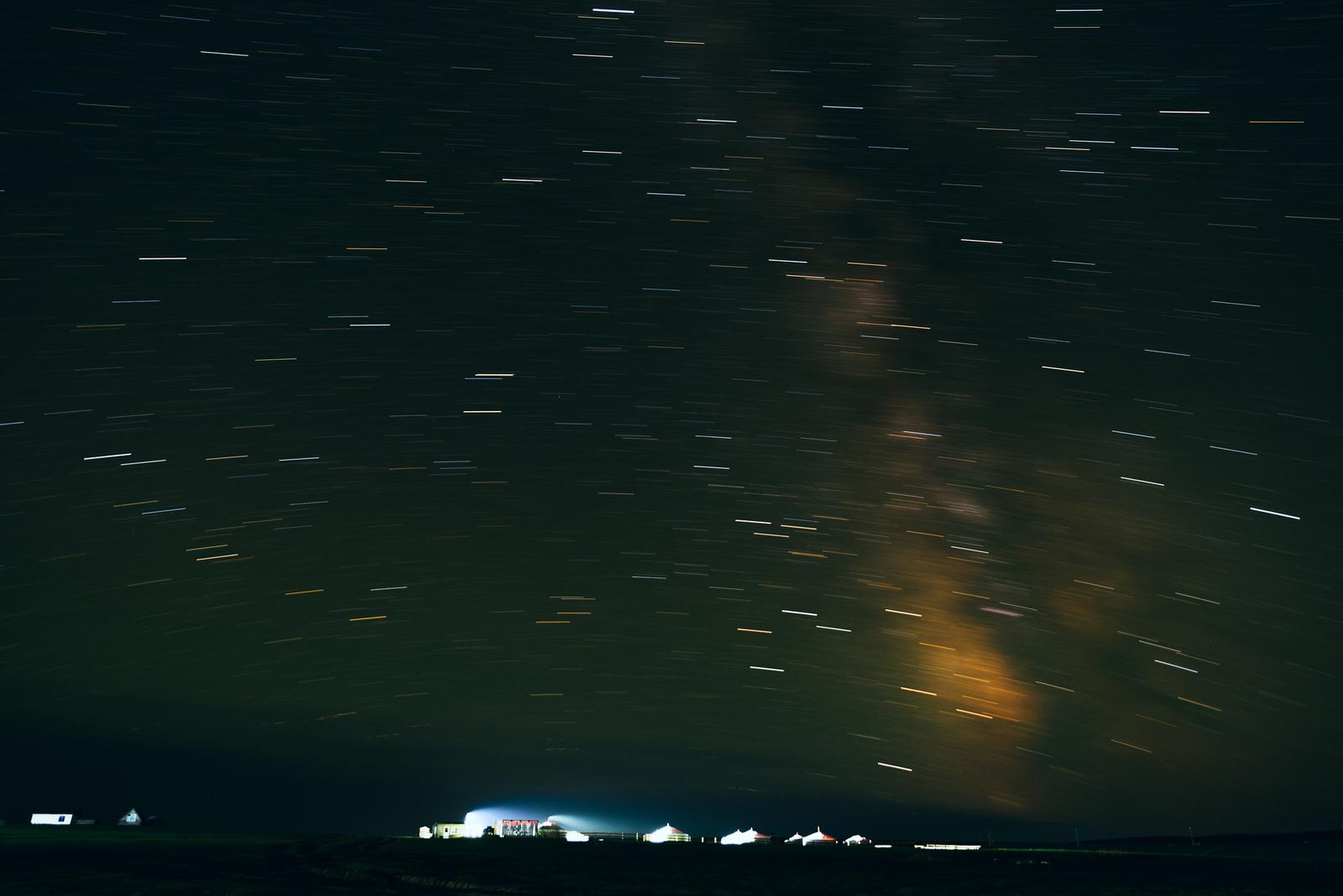
A Shimmering Dawn
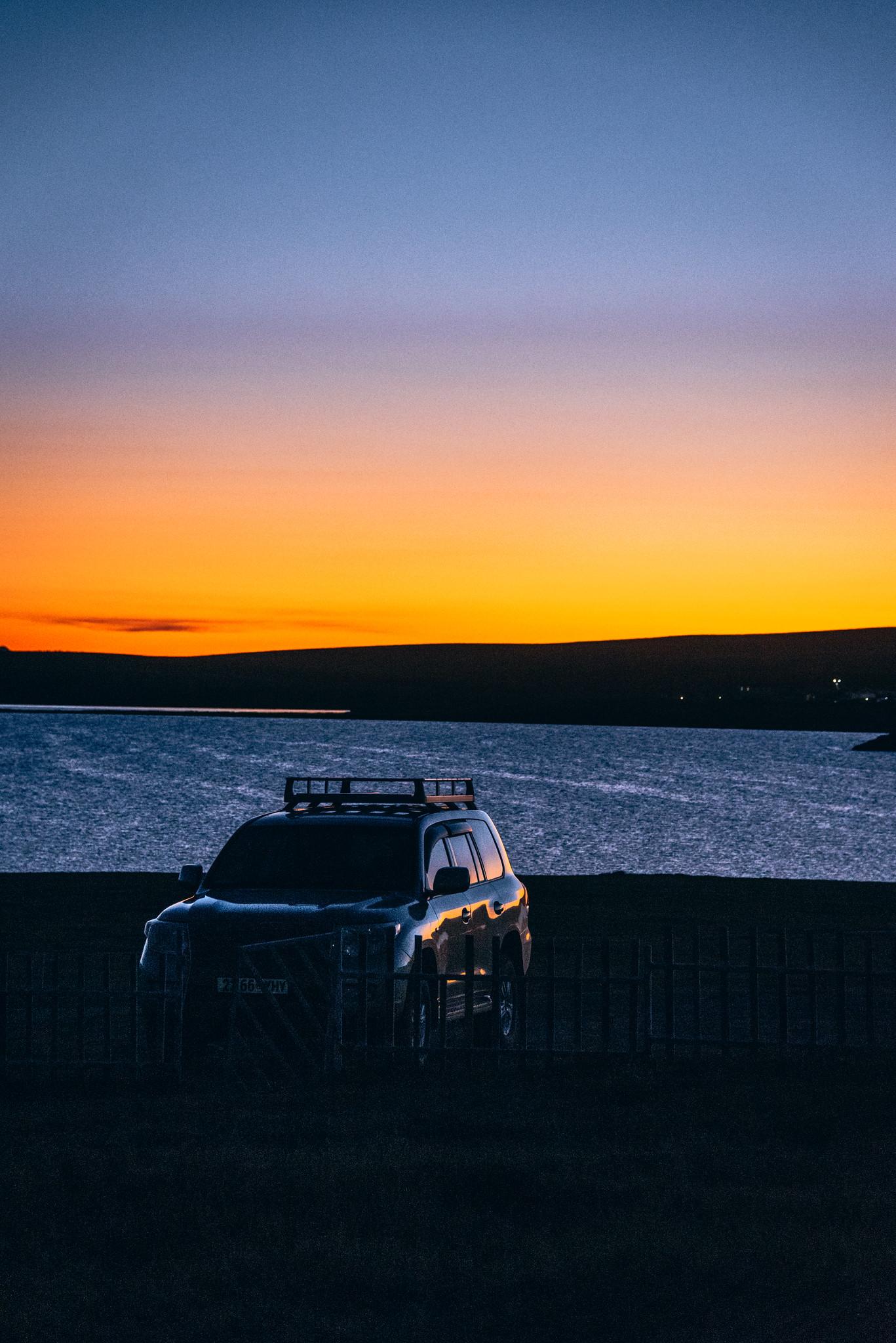
From the southern shore of the lake, I could witness both sunrise and sunset. It’s such a pristine morning with the entire sky painted in shades of purple - a rare hue in nature.
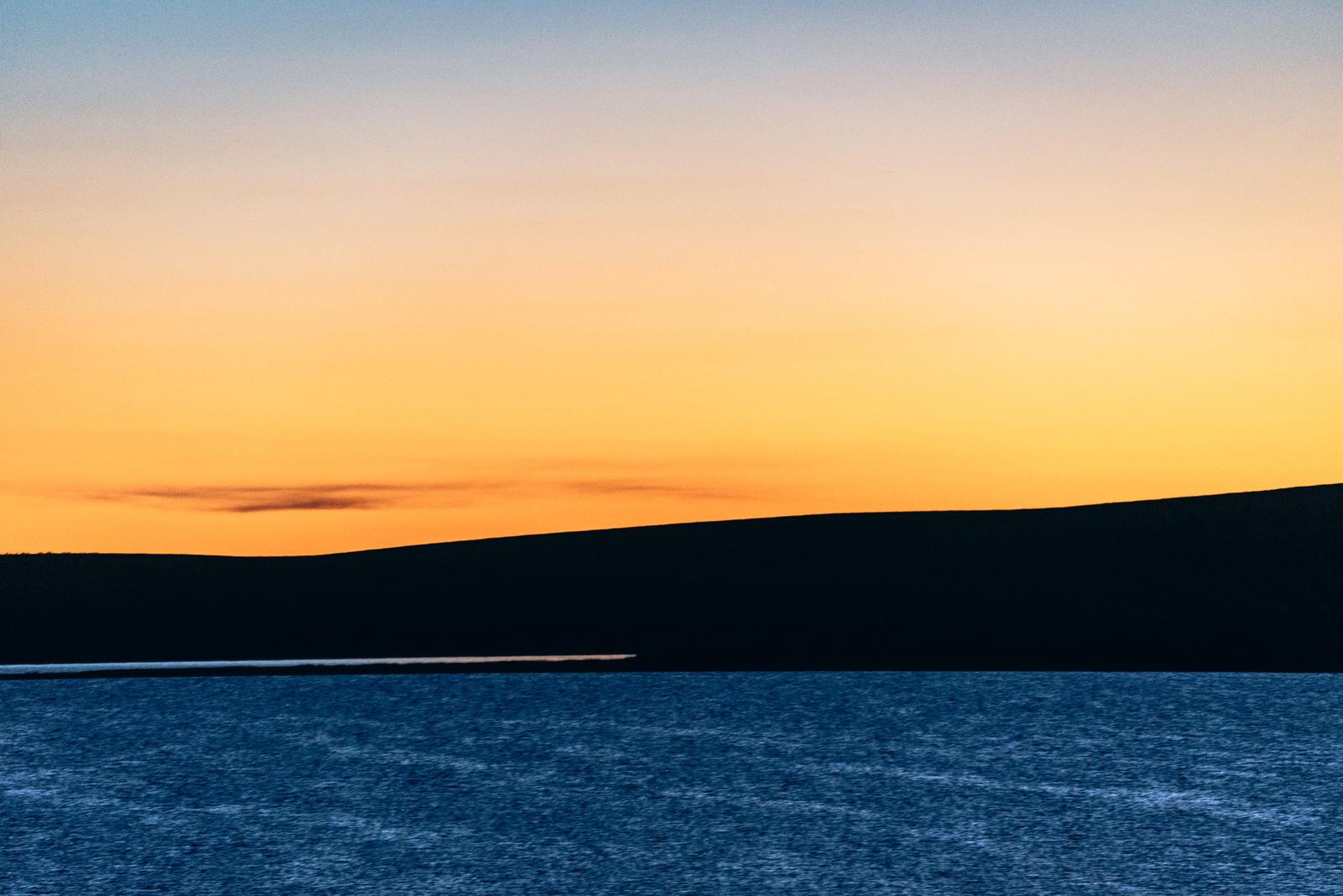
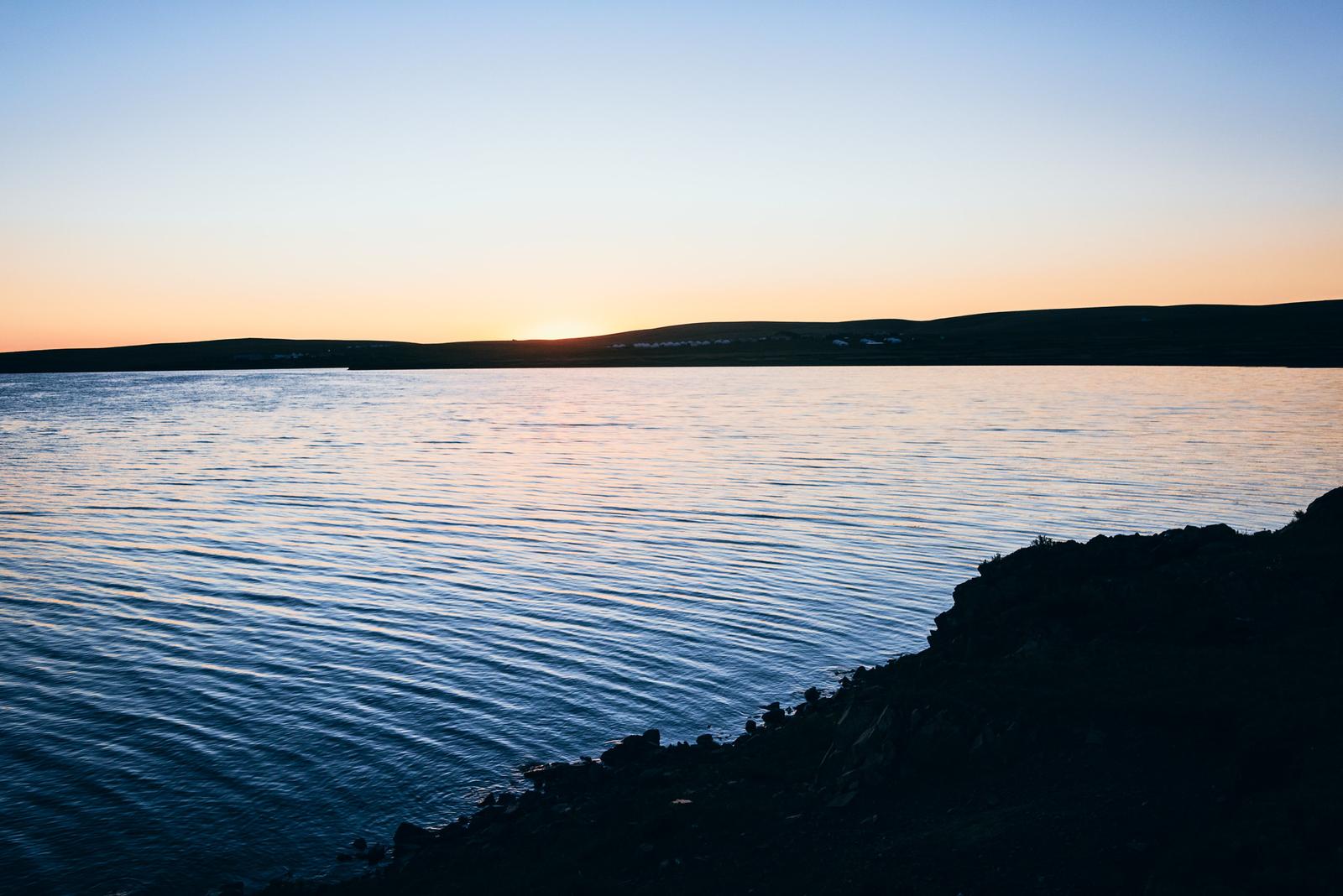
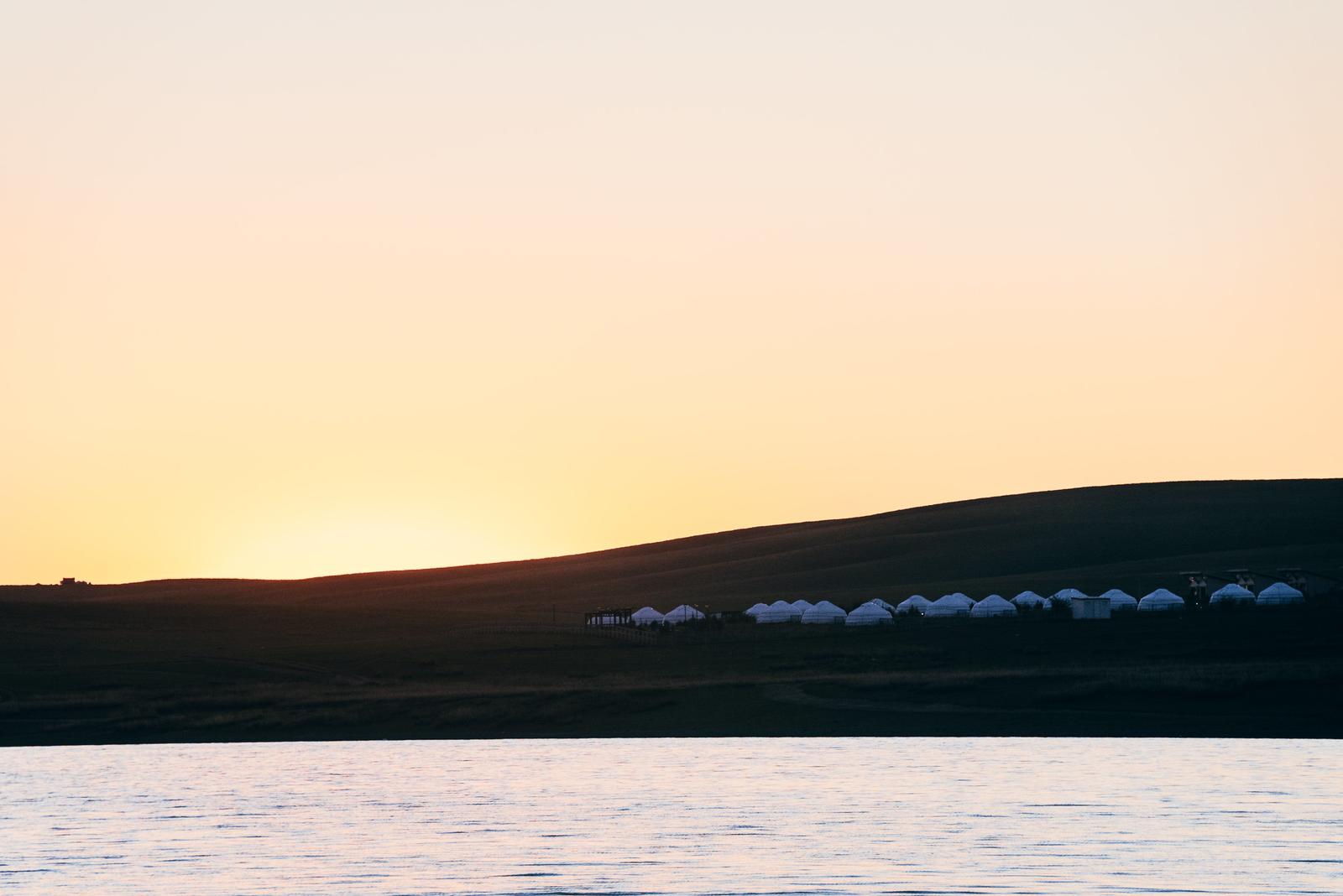
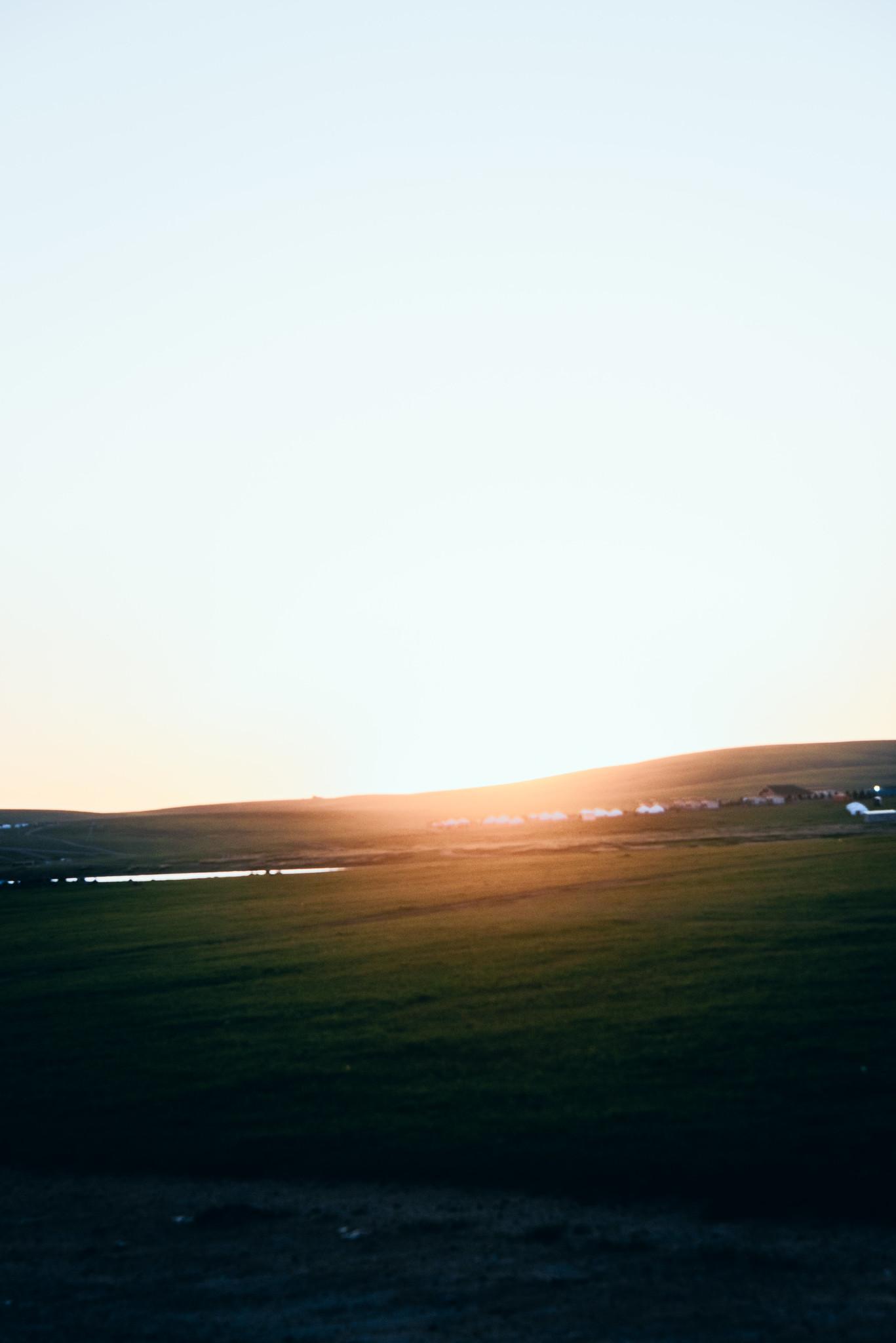
I thought as if that scene had been edited in Photoshop: an immaculate gradient background was clearly separated from the foreground where the yurts stood.
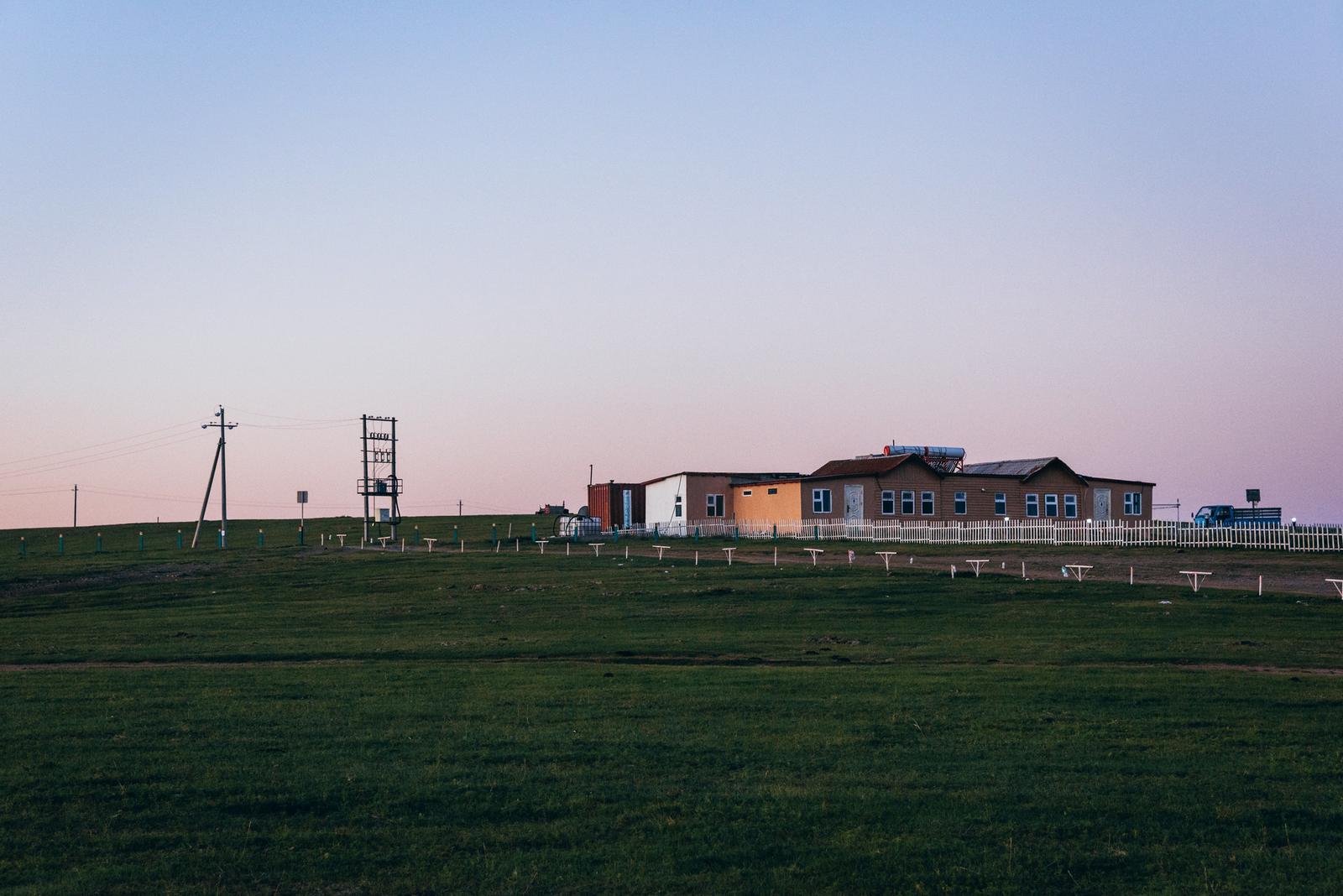
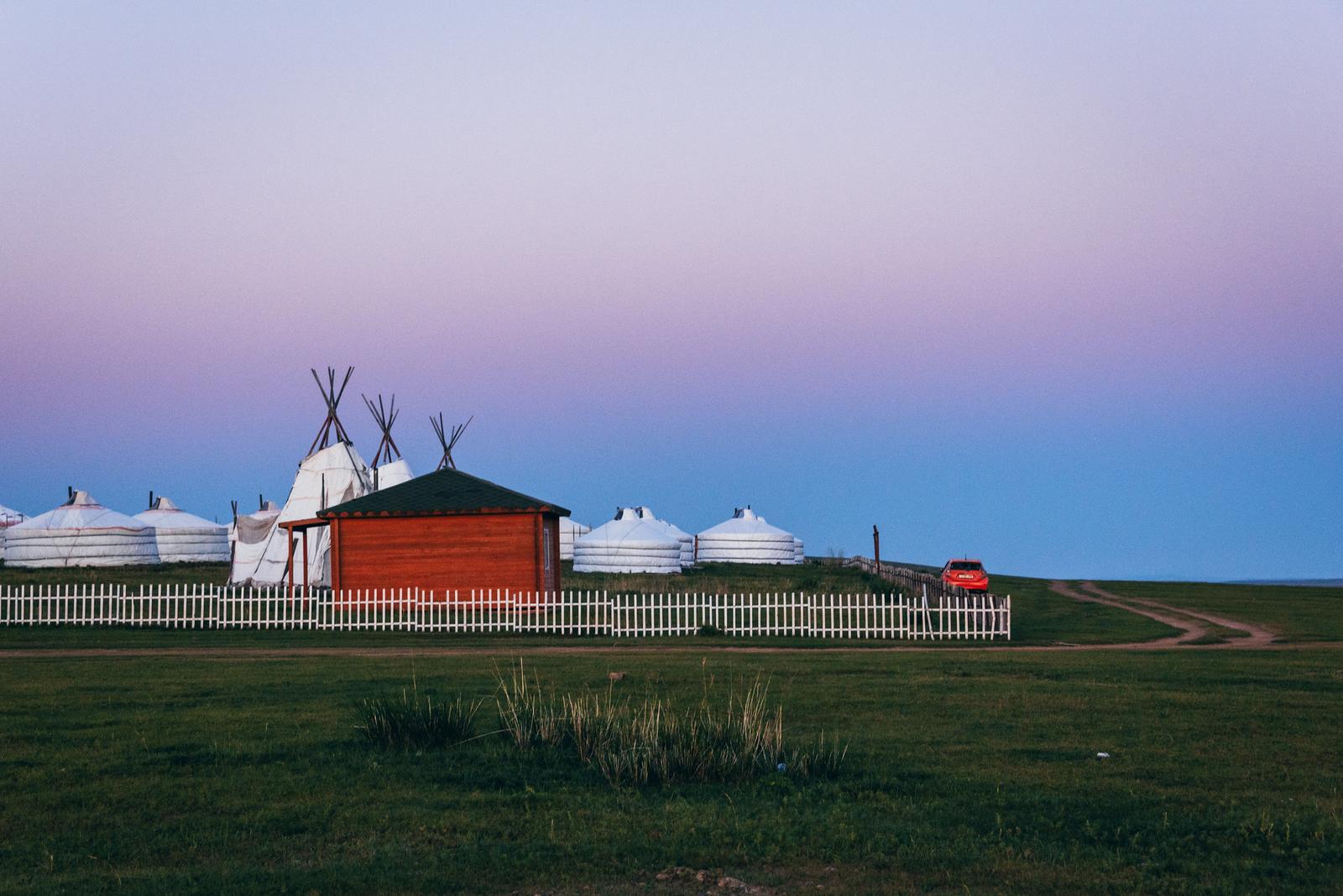
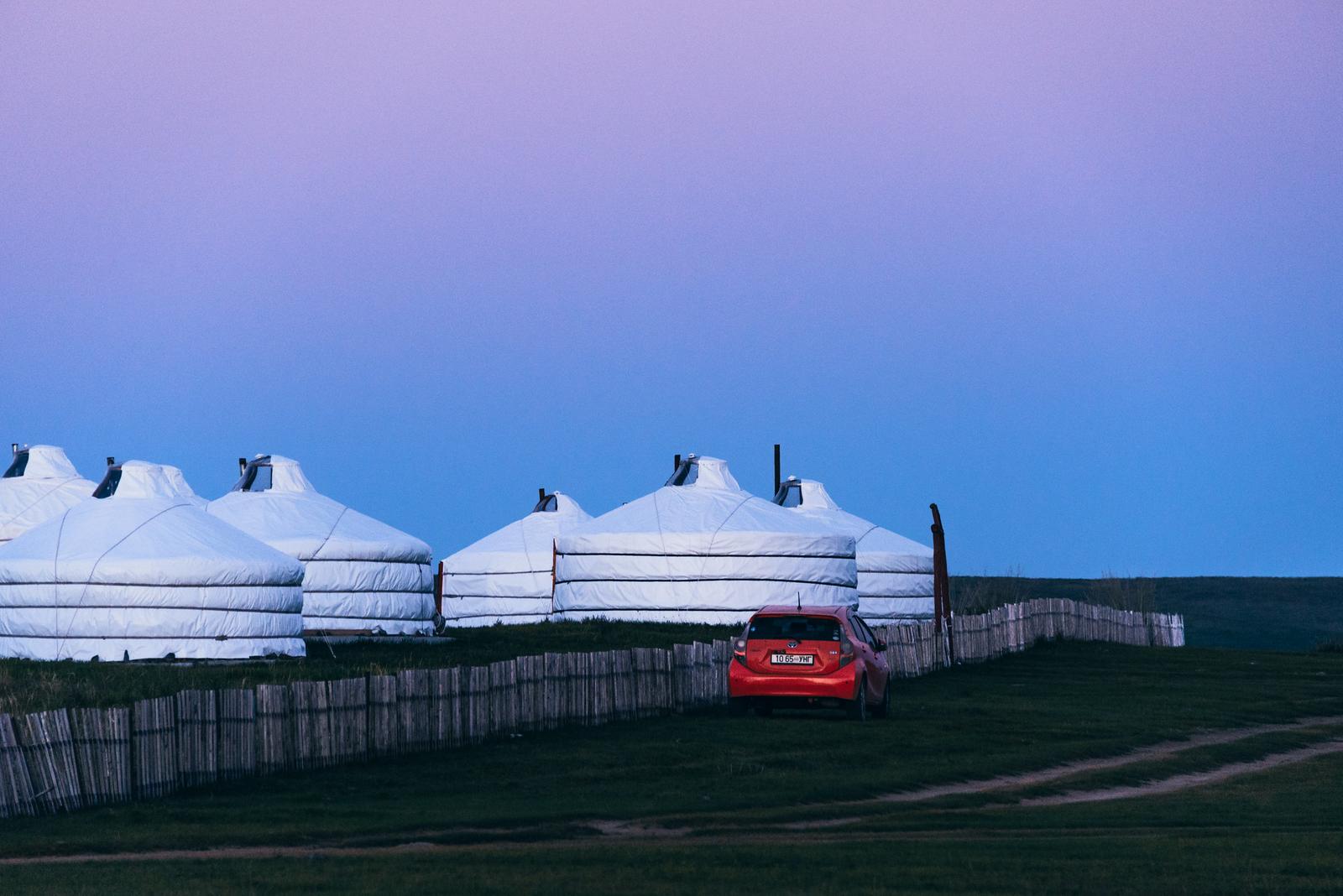
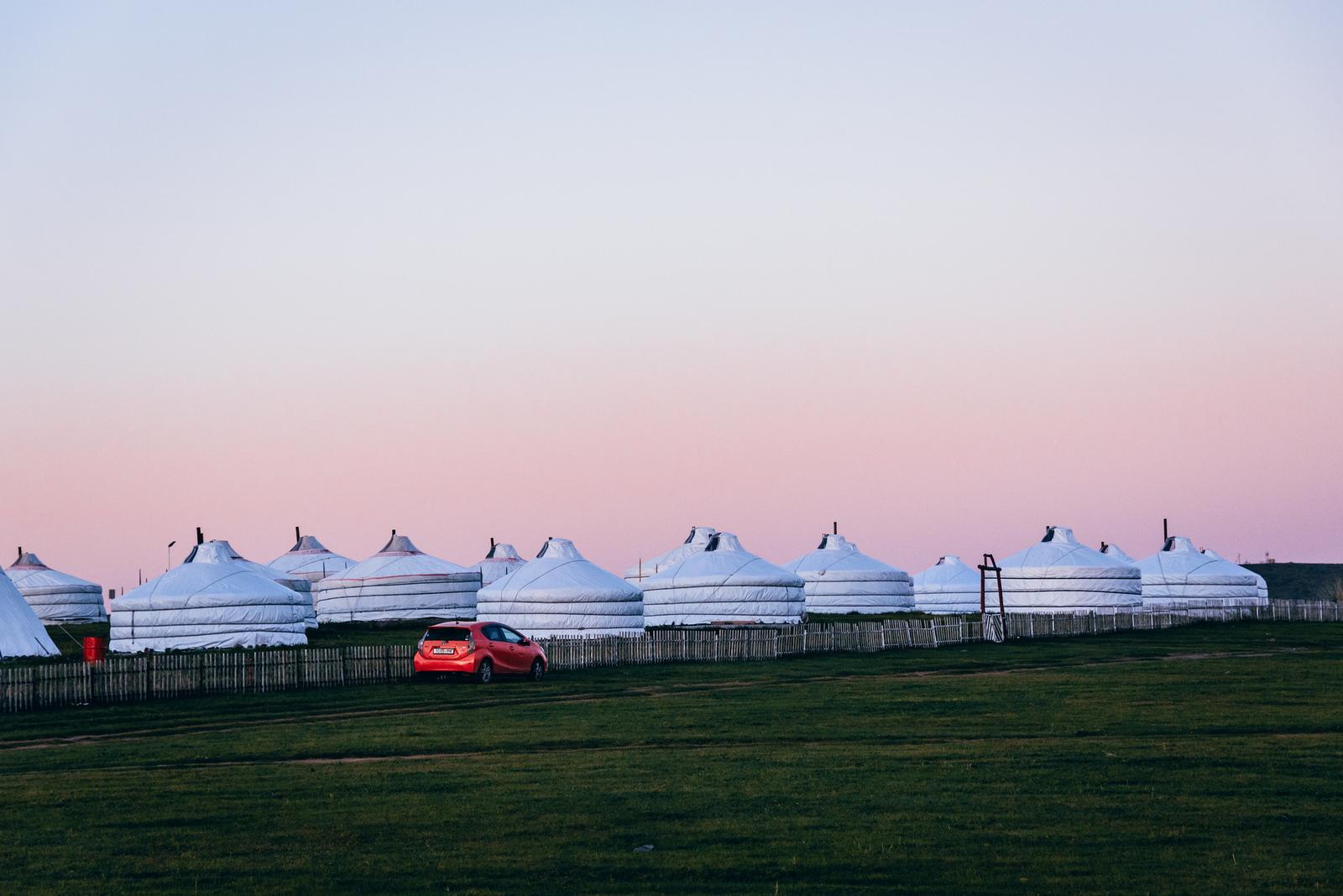
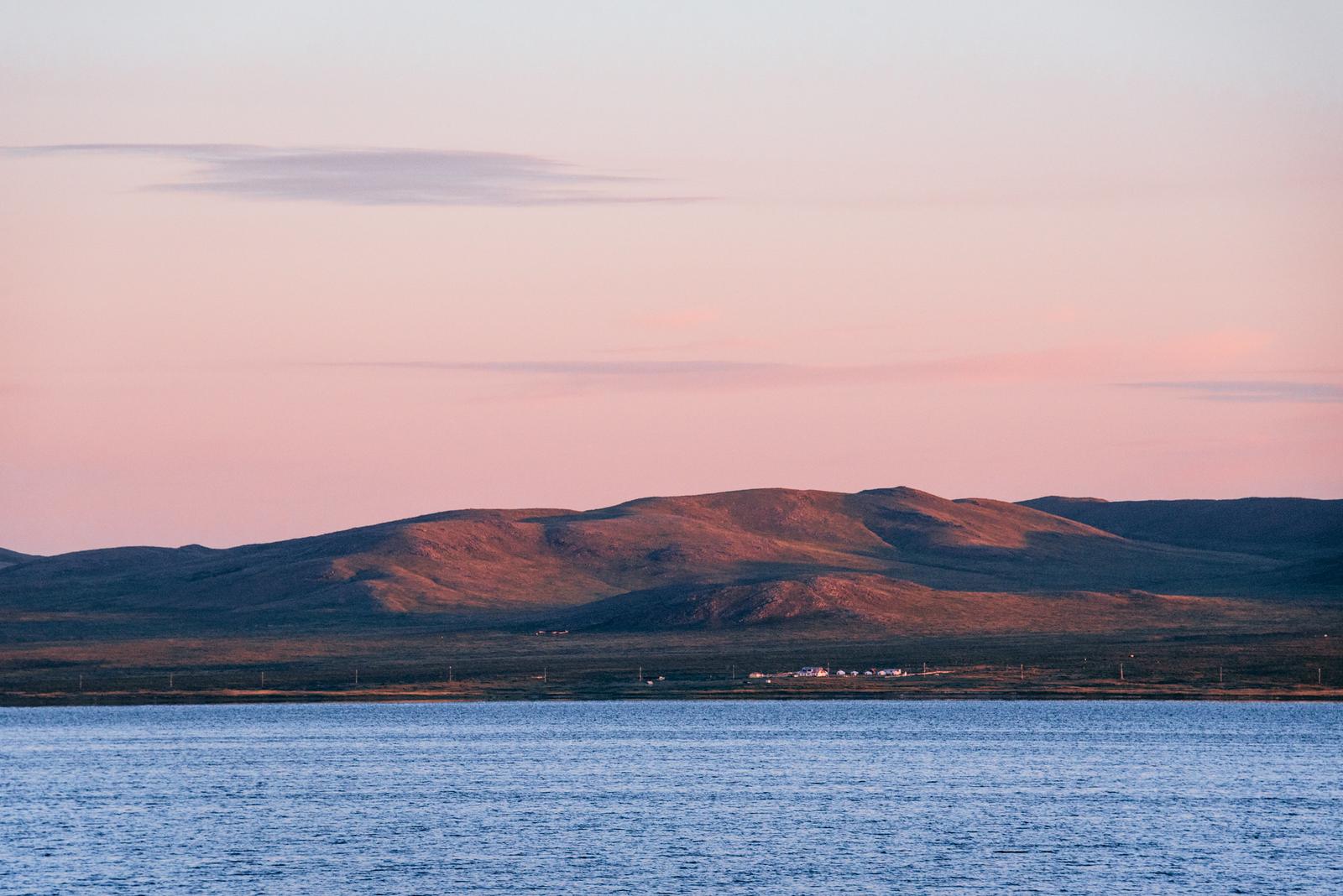
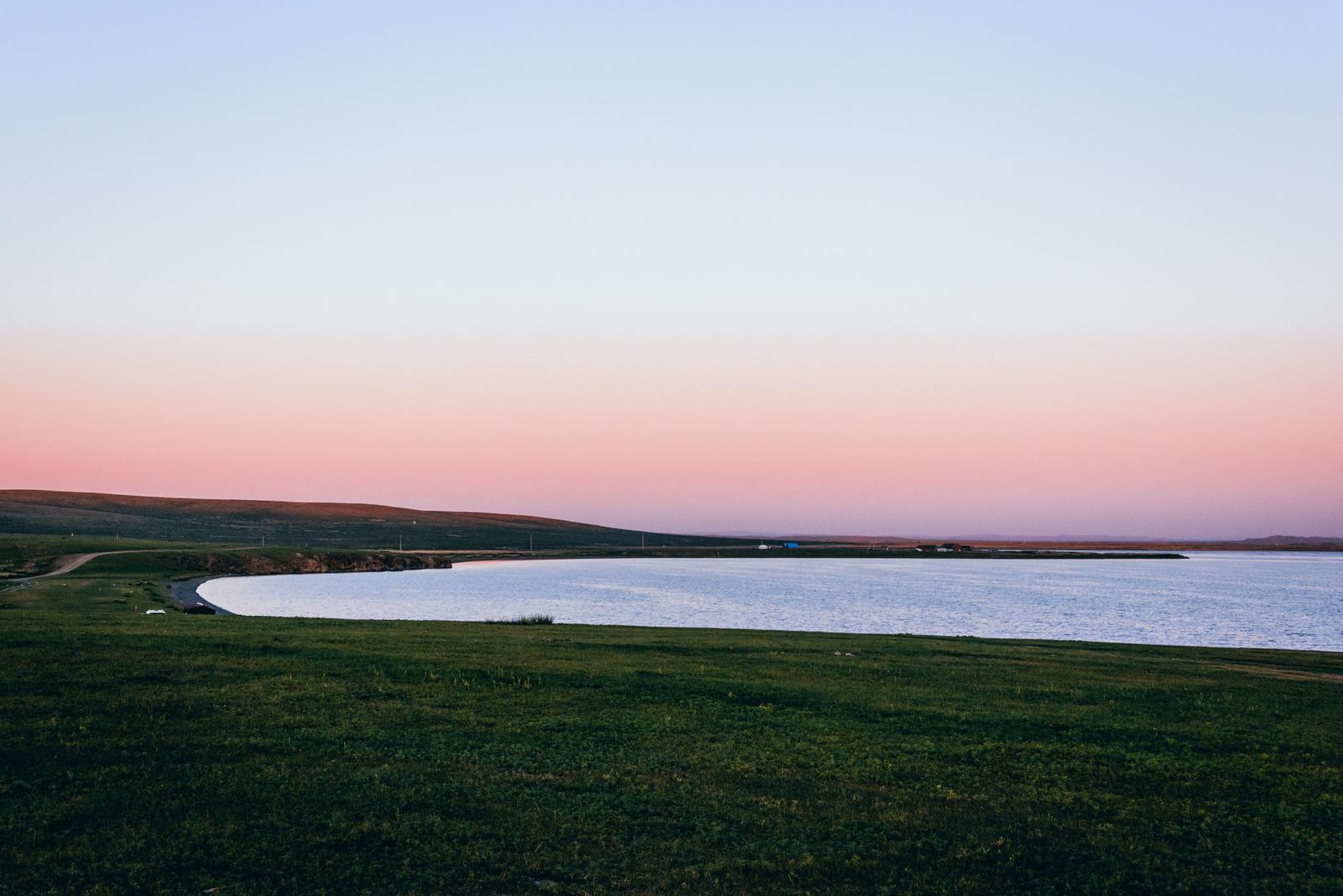
Strolling across the boundless grasslands, I hummed a few tunes, wishing time would slow down. The water surface was shimmering with reflected radiant sunshine - probably a captivating subject for photography.
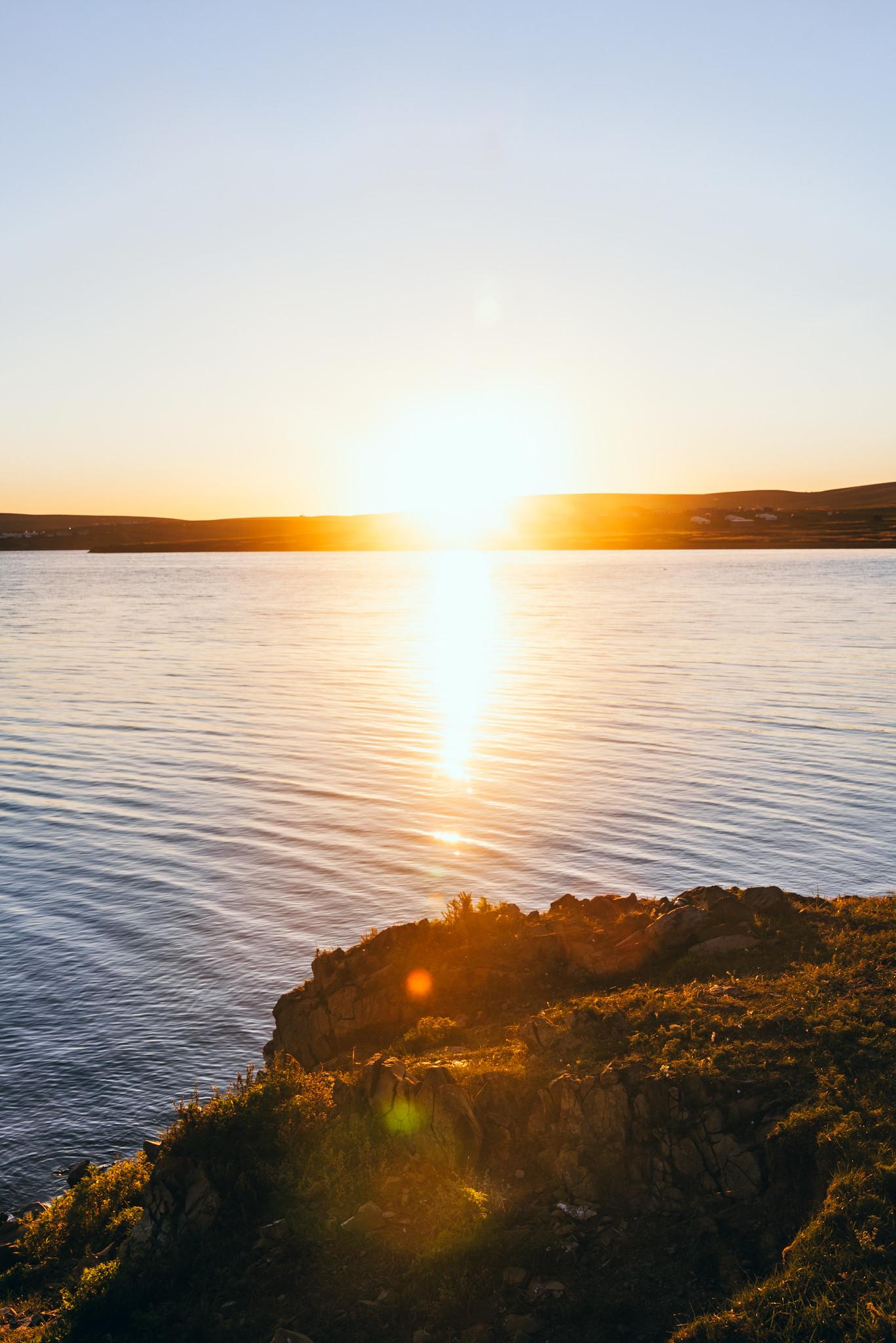
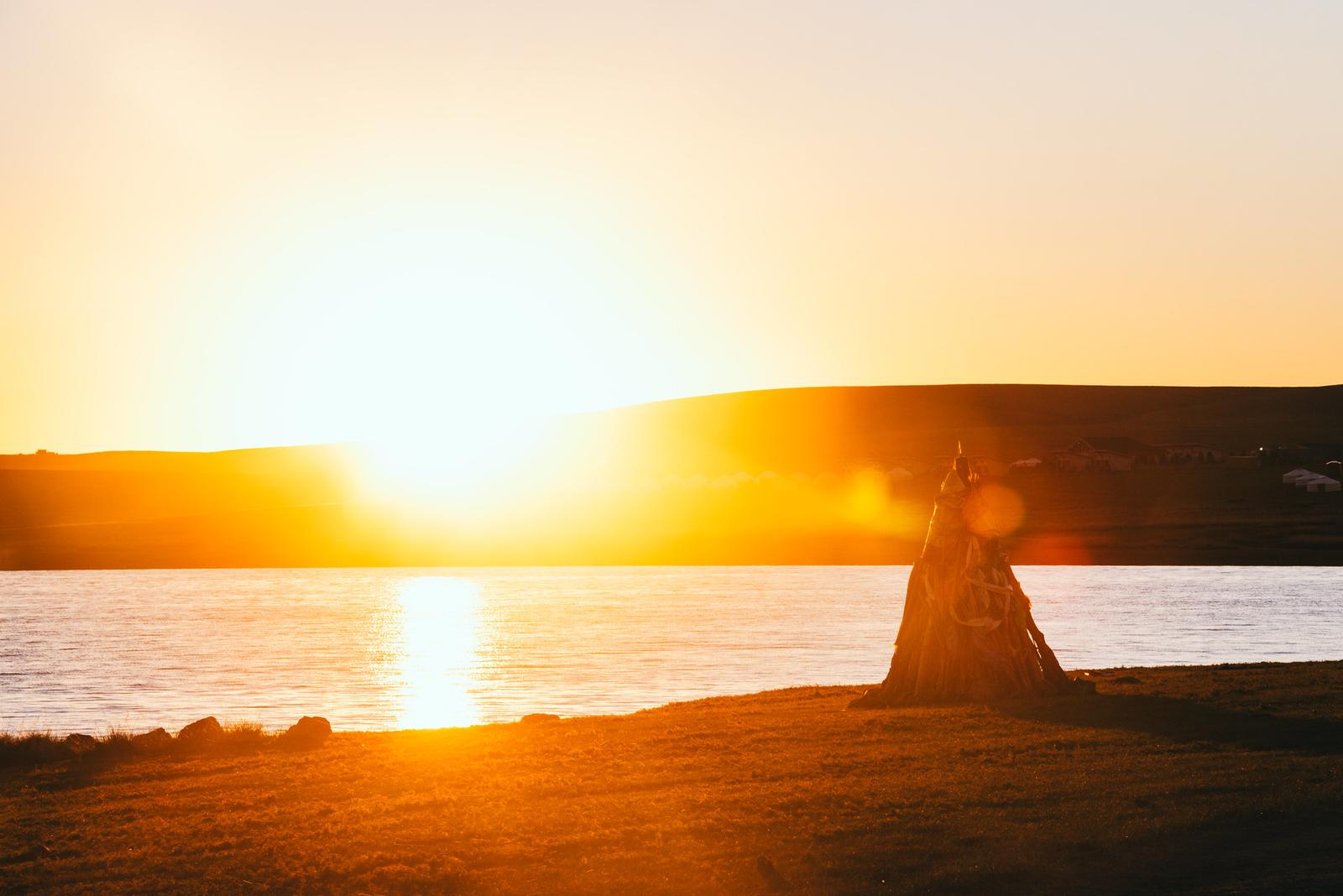
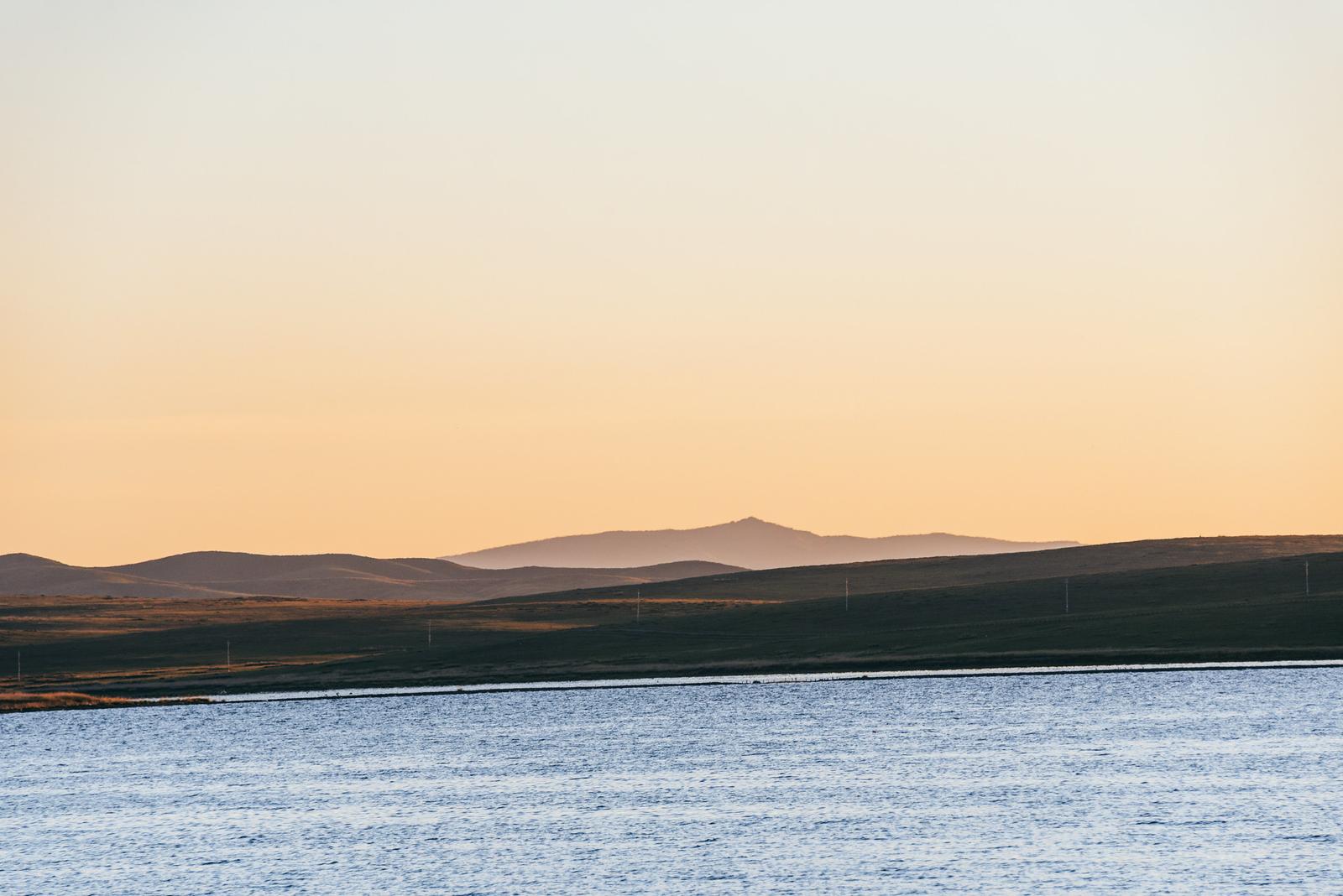
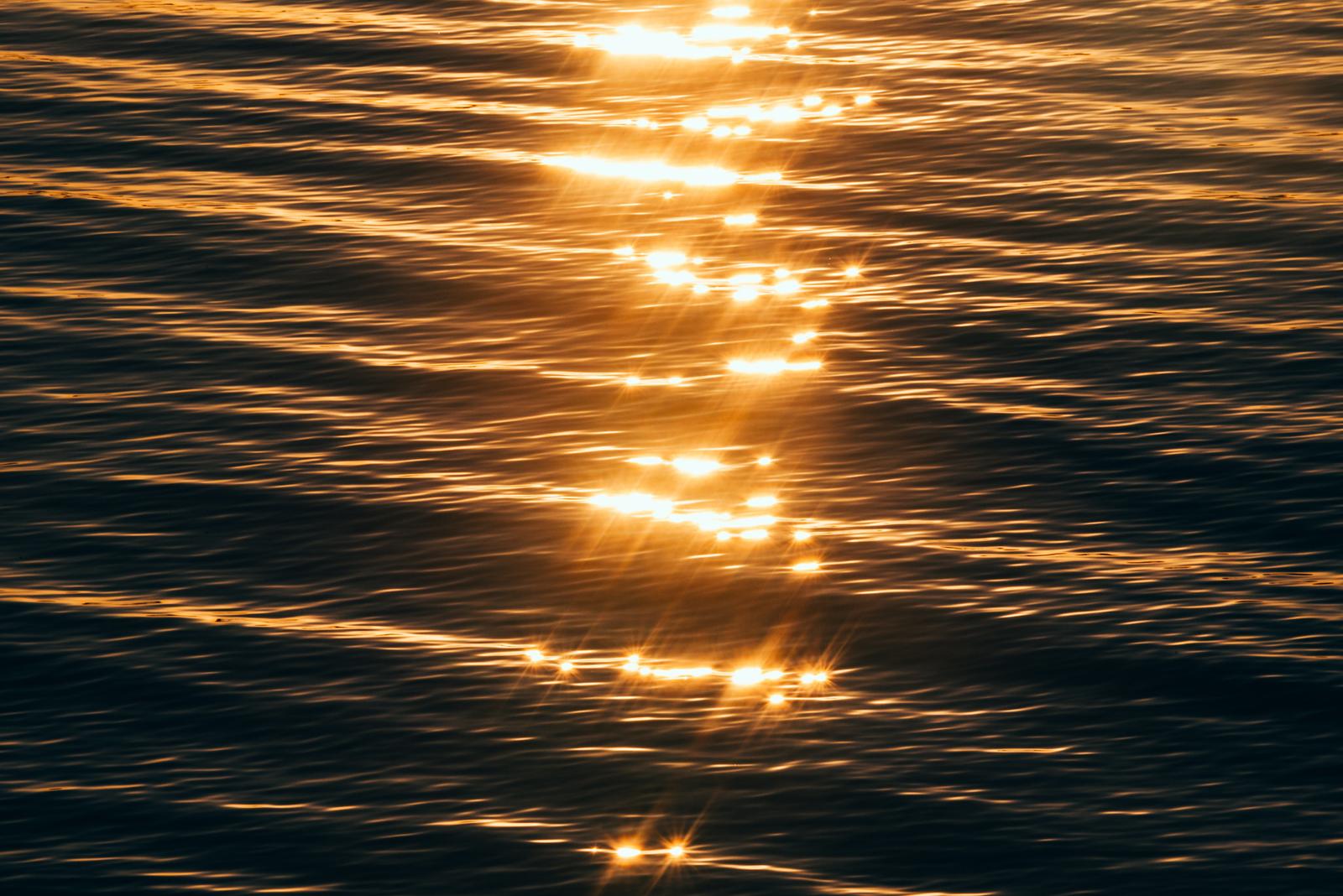
After having breakfast at the dining hall, the driver and the guide invited me to play archery; then I once again wandered along the lakeshore, passing through the reeds. It’s a rare occasion I could truly travel and relax like that, without thinking about taking photos.
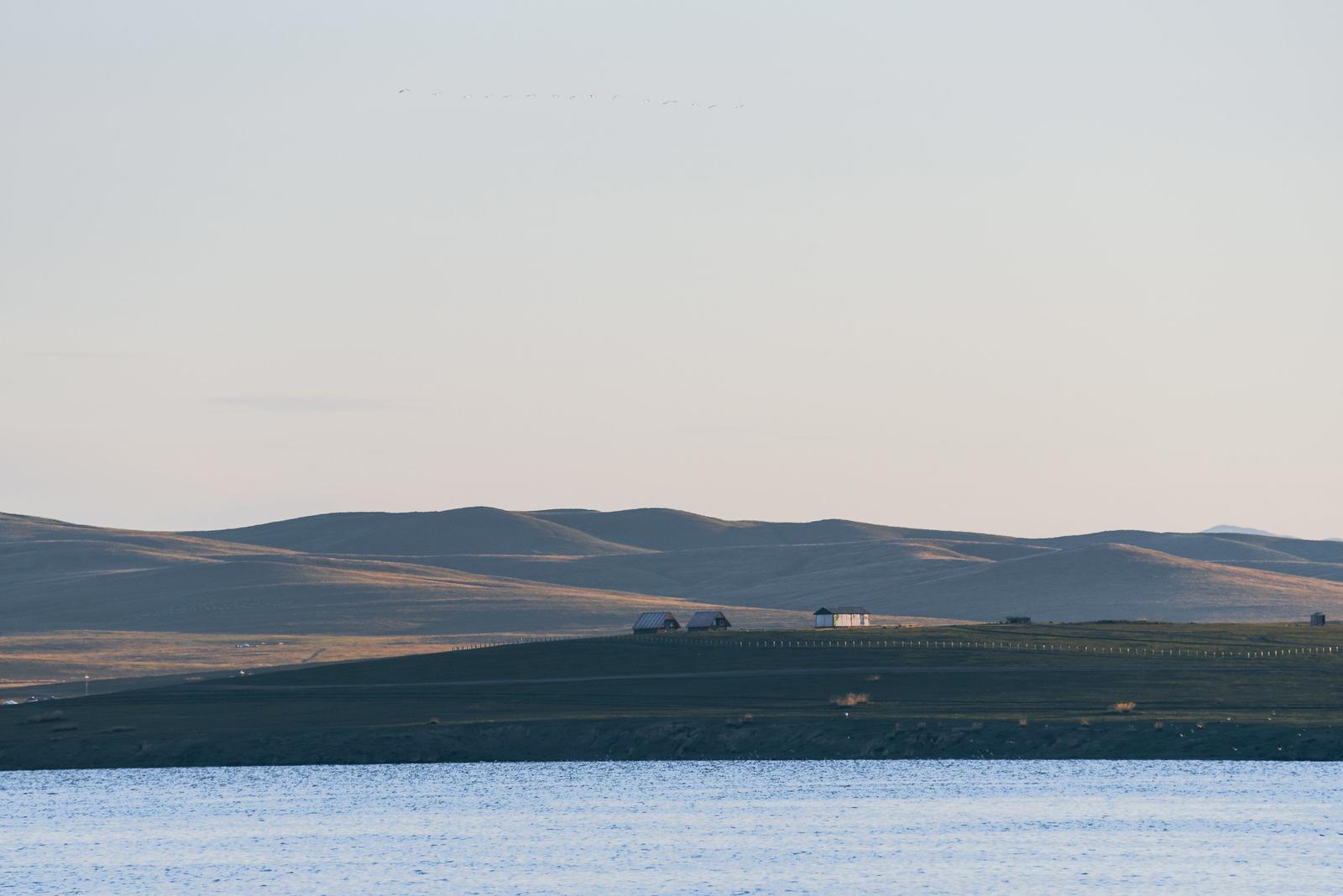
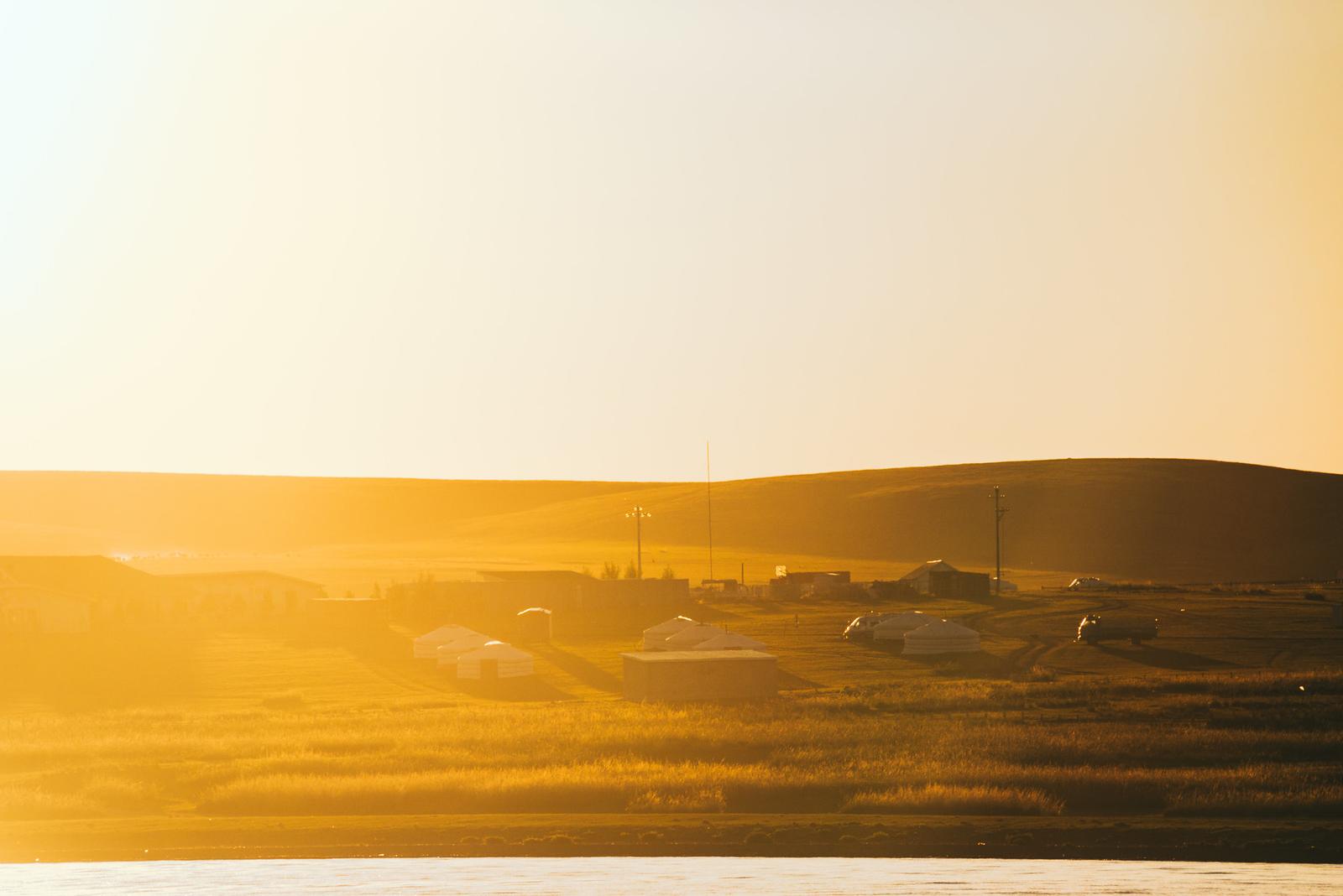
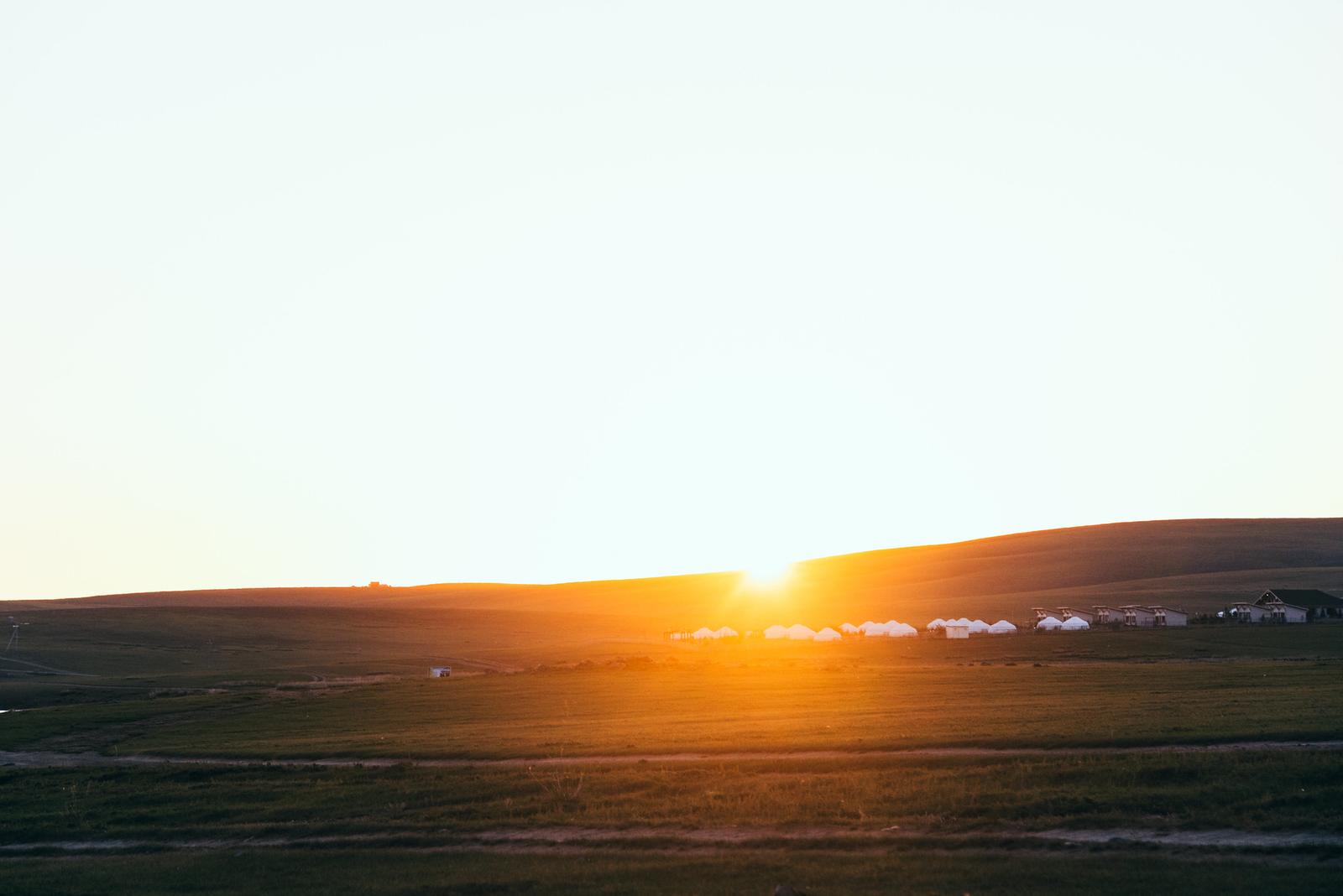
The Final Leg of the Journey
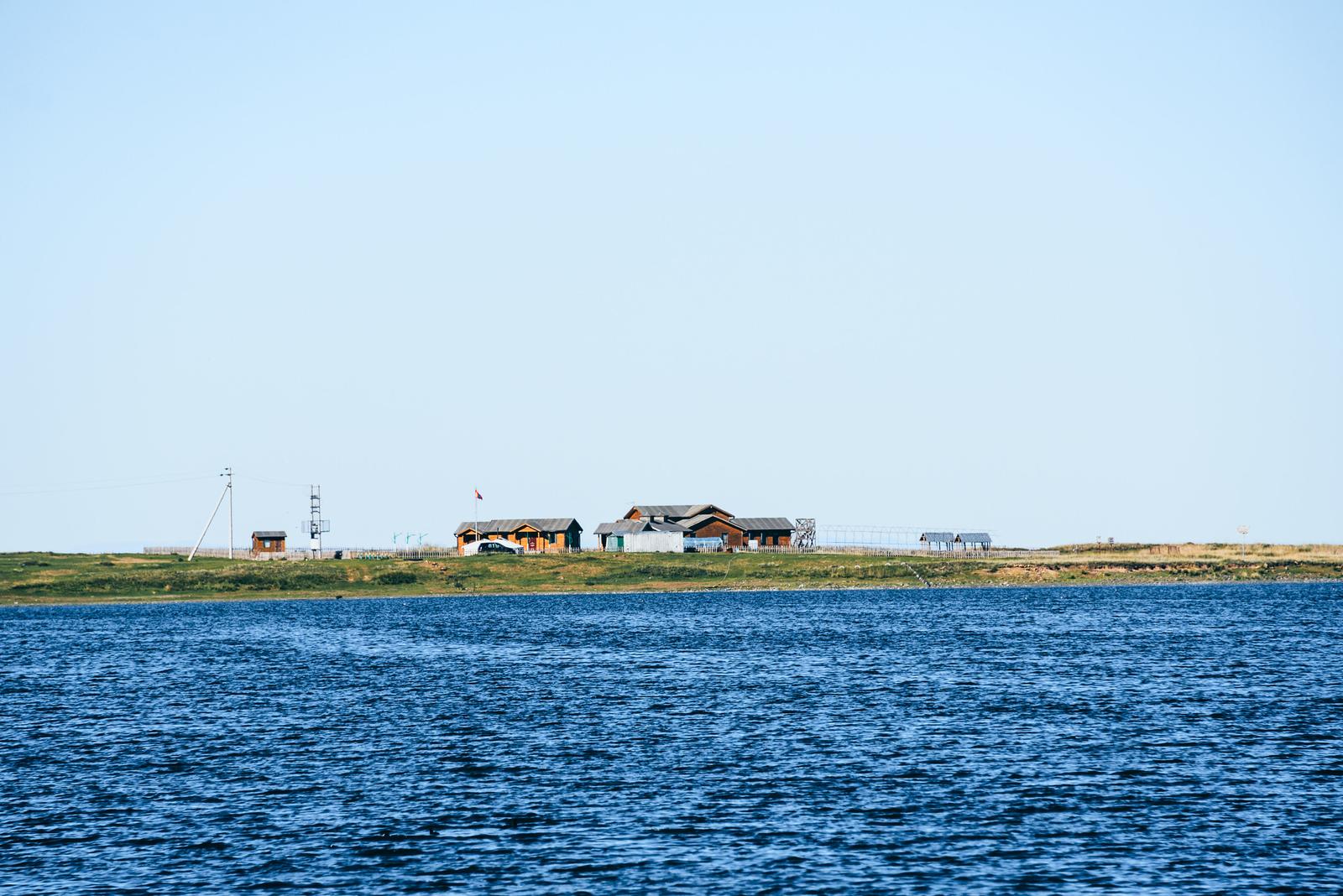
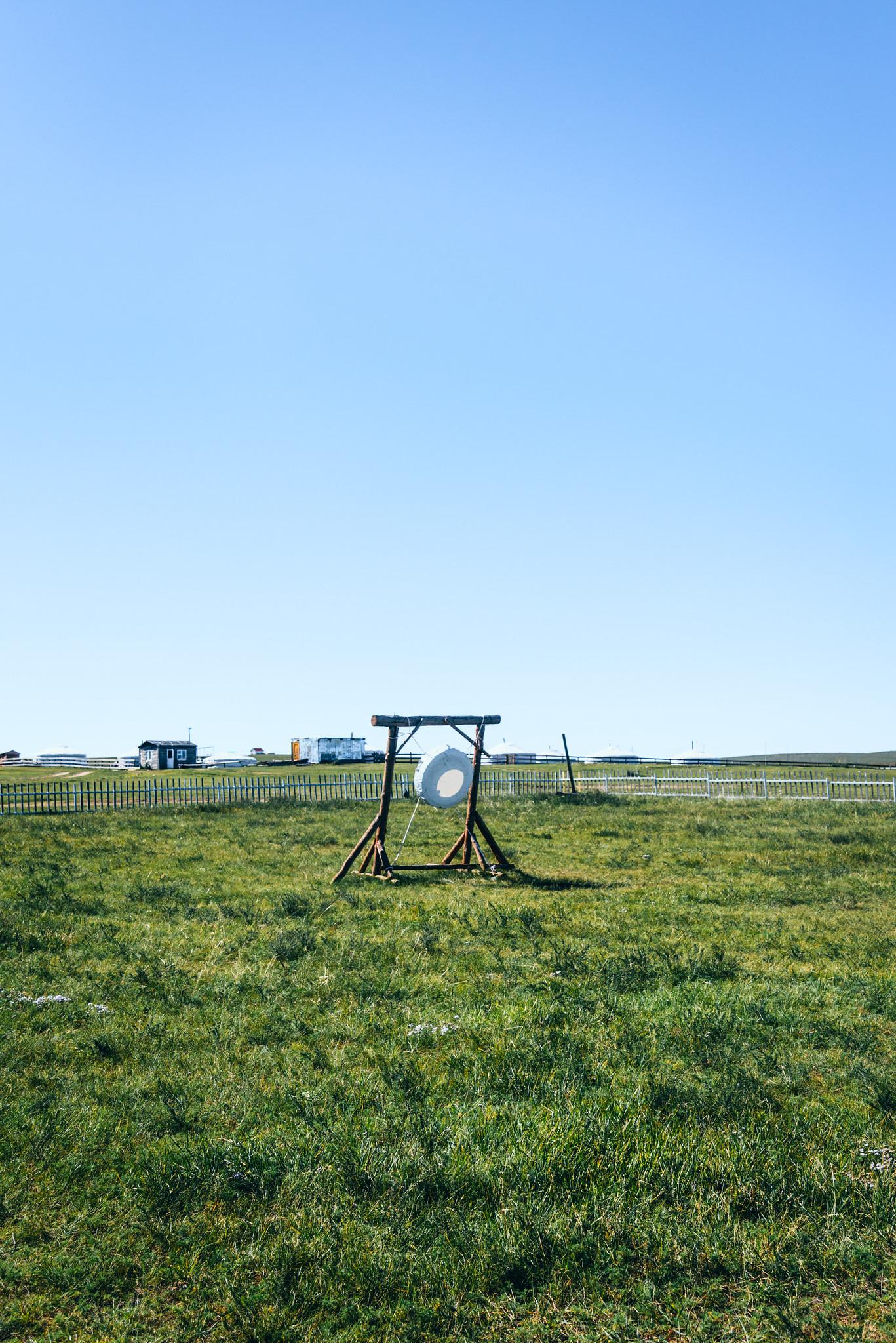
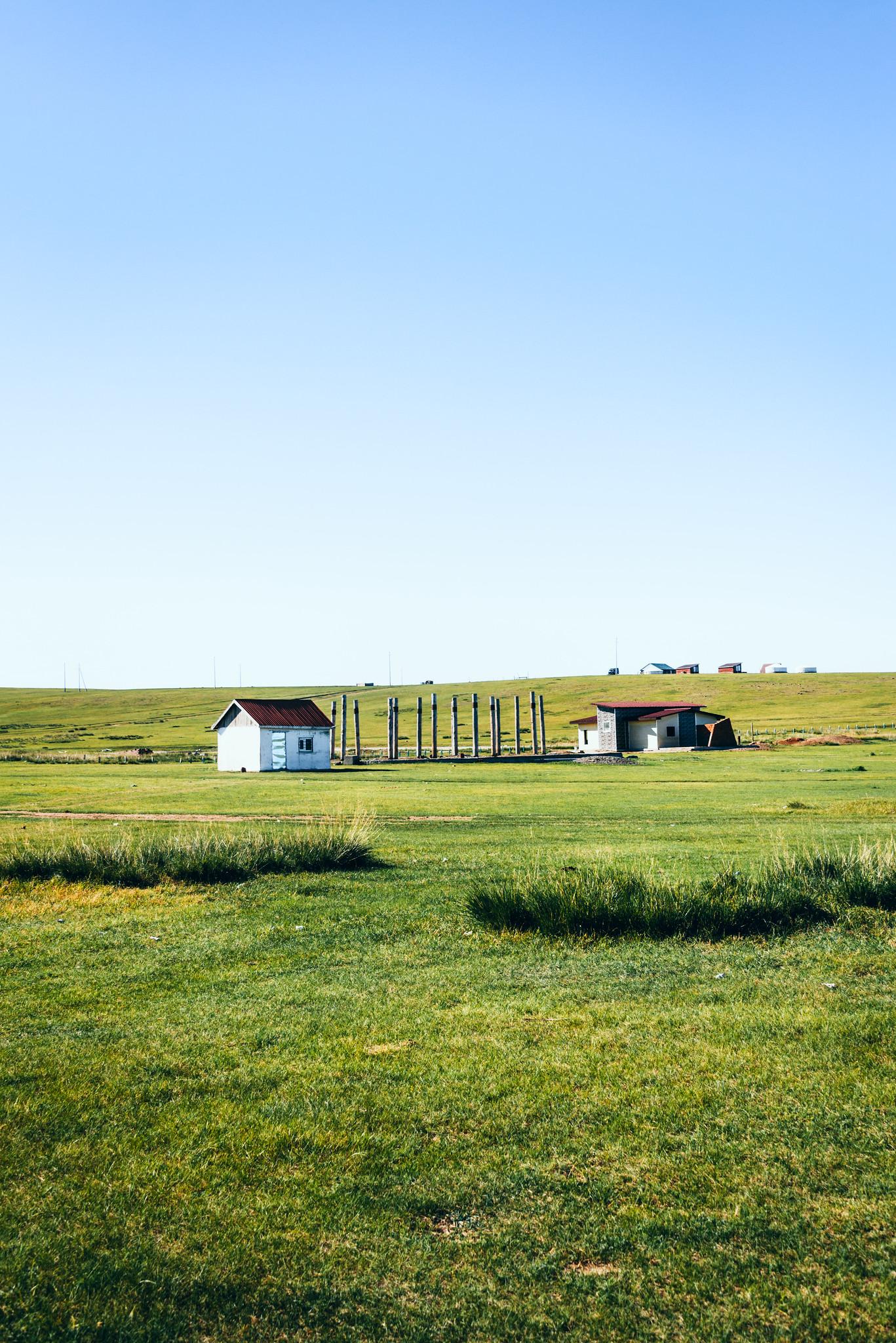
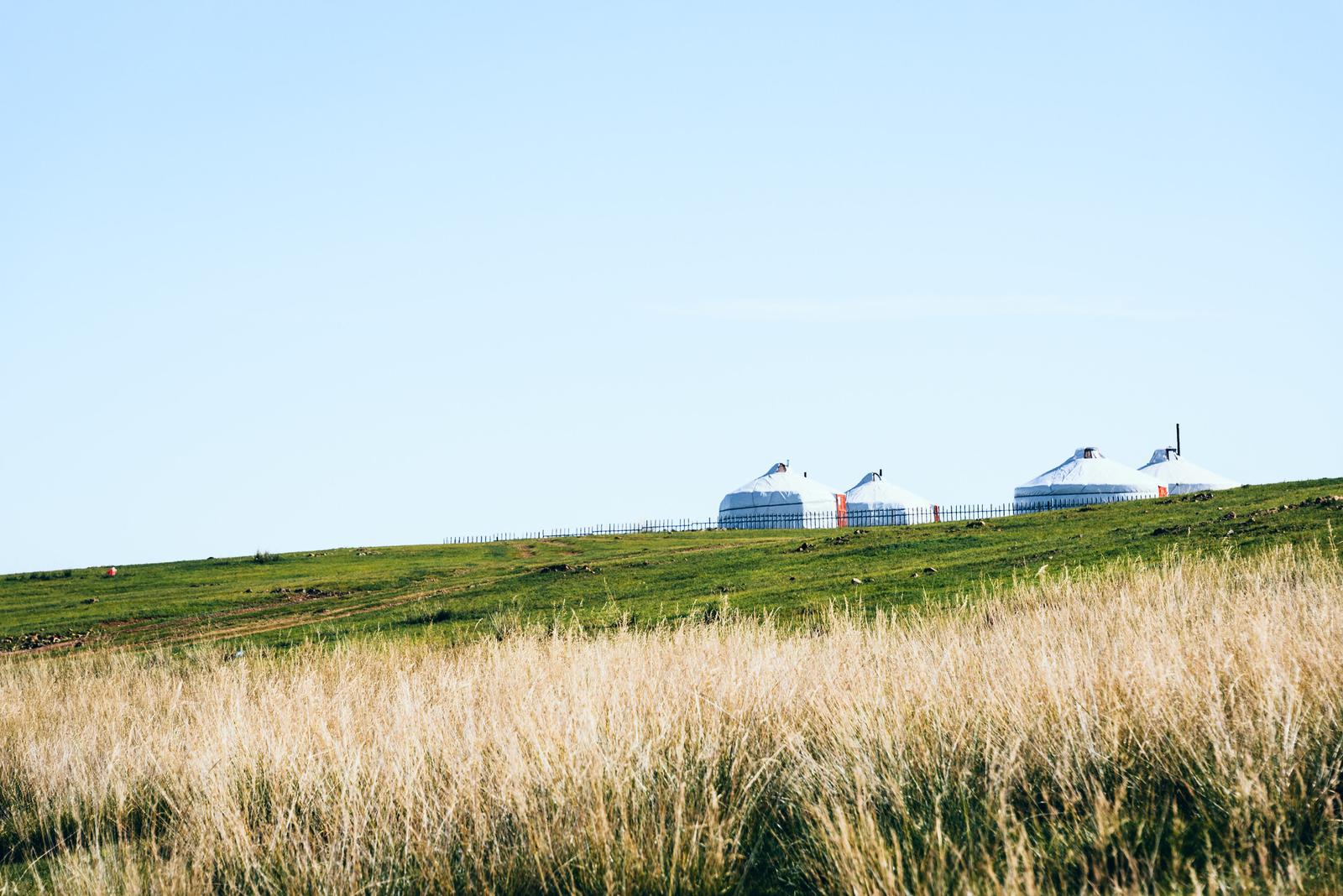
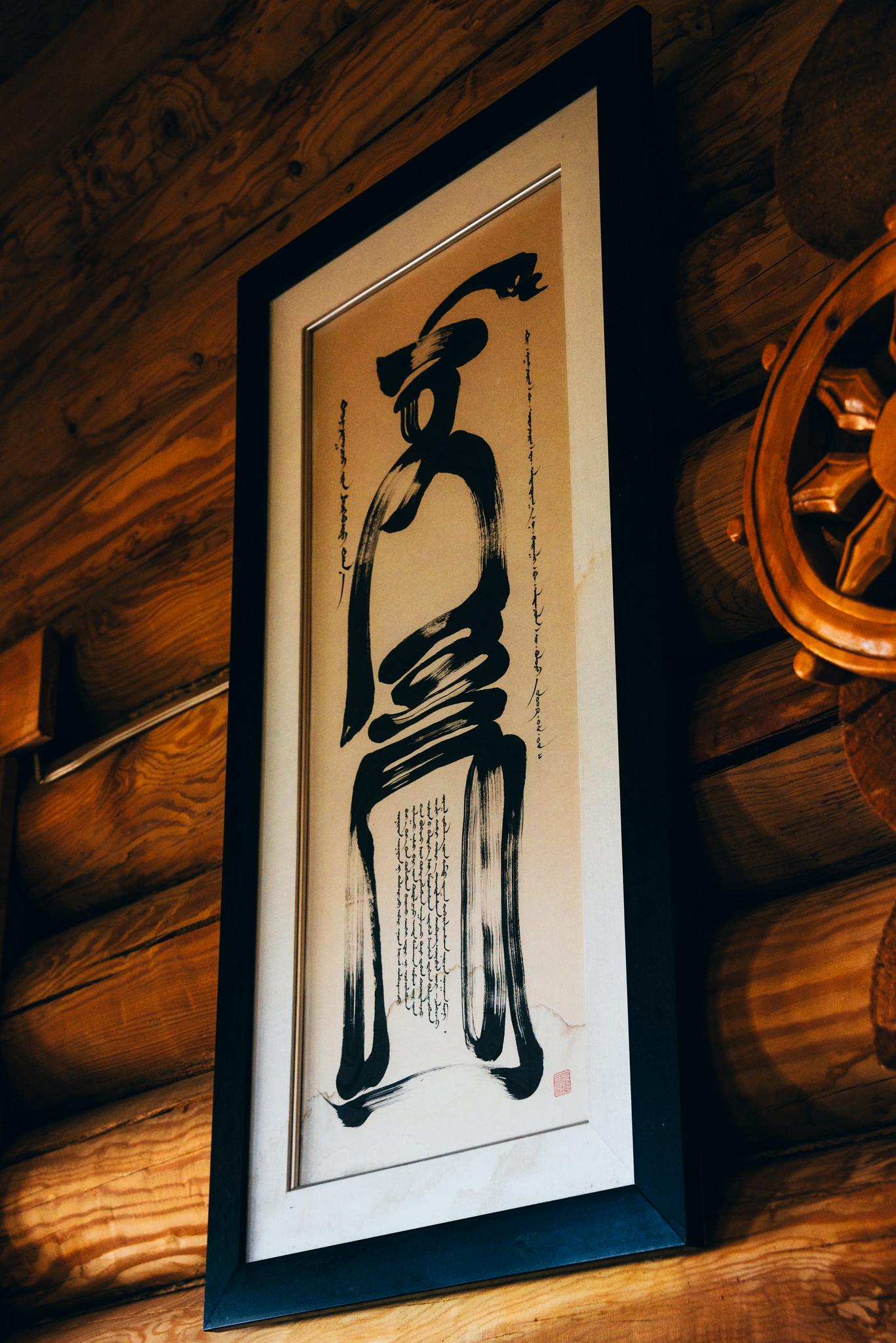
And just like that, the Mongolian journey was coming to a close. From Ögii we would head straight west to east along the roads A27 and A0301, then making a brief stop at Hustai in the afternoon. The driver seemed quite eager to make good time, and at the start the car sped along quickly; if we’re still on the road at dusk, there’s high chance we would get caught in rush hour traffic. The only stop was at a convenience store for ice cream and snacks, that small break helped quite shake off our drowsiness. Eating ice cream in the cold, with gusts of wind rushing through the open car window as we sped down the highway, was an enjoyable experience while traveling in Mongolia.
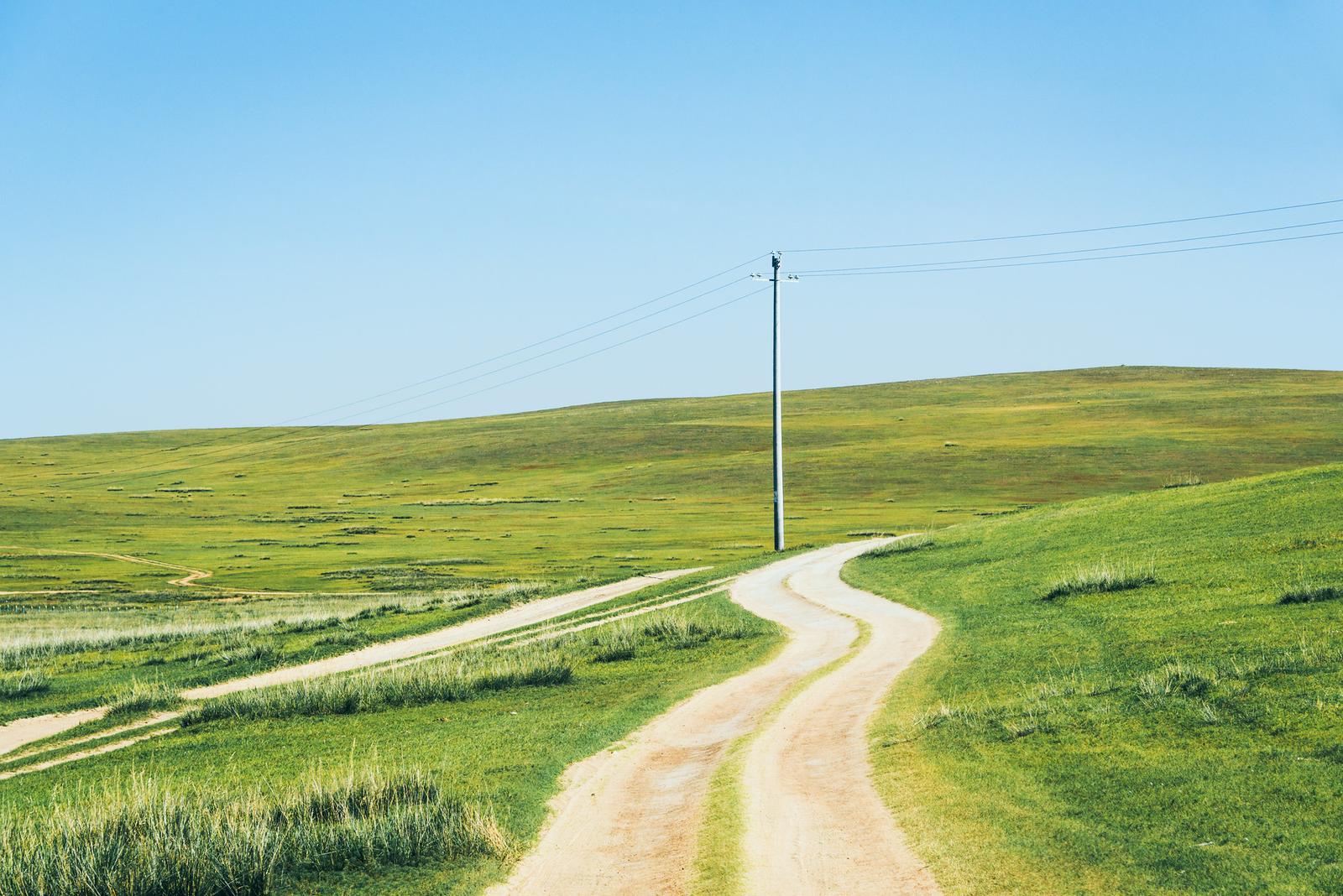
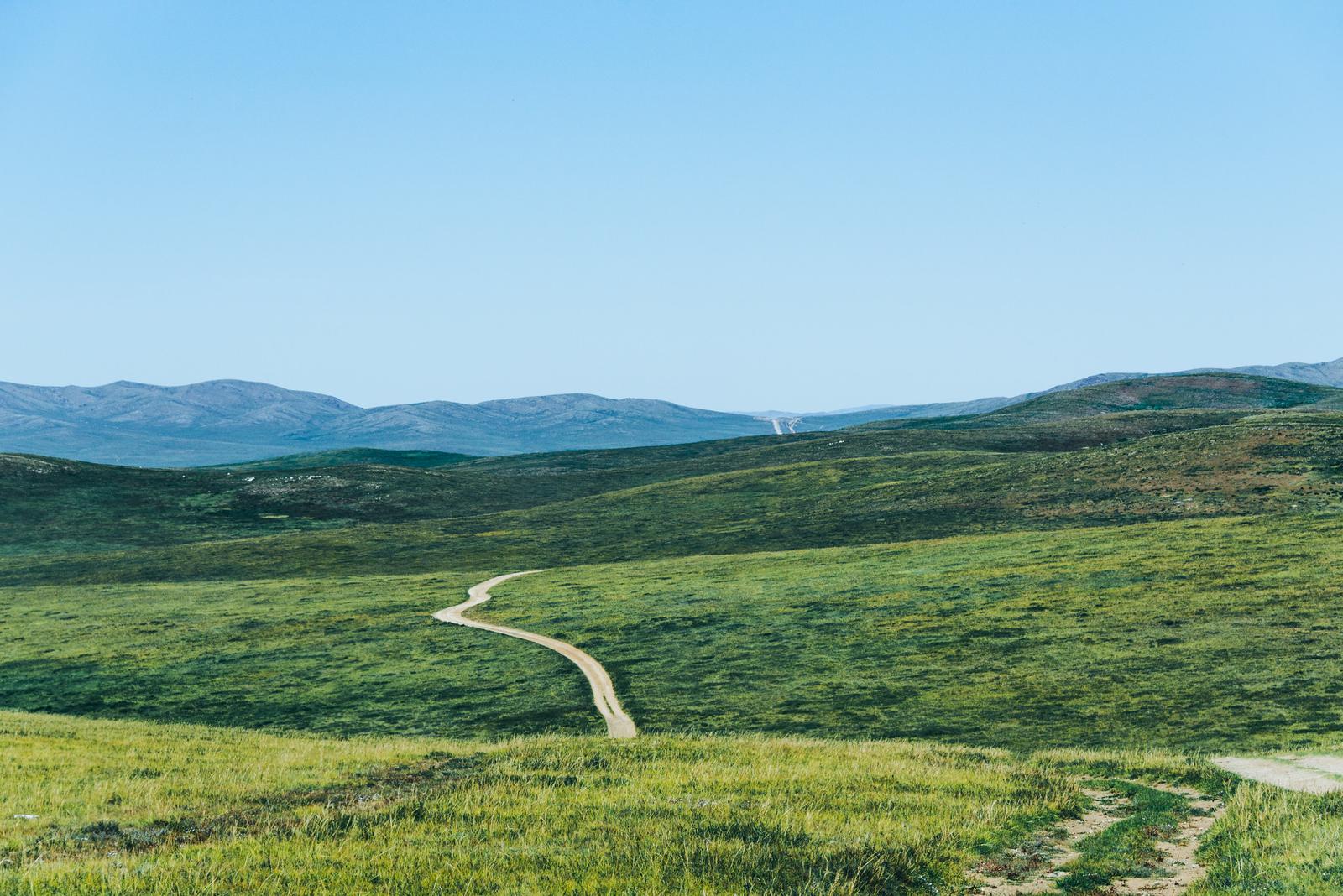
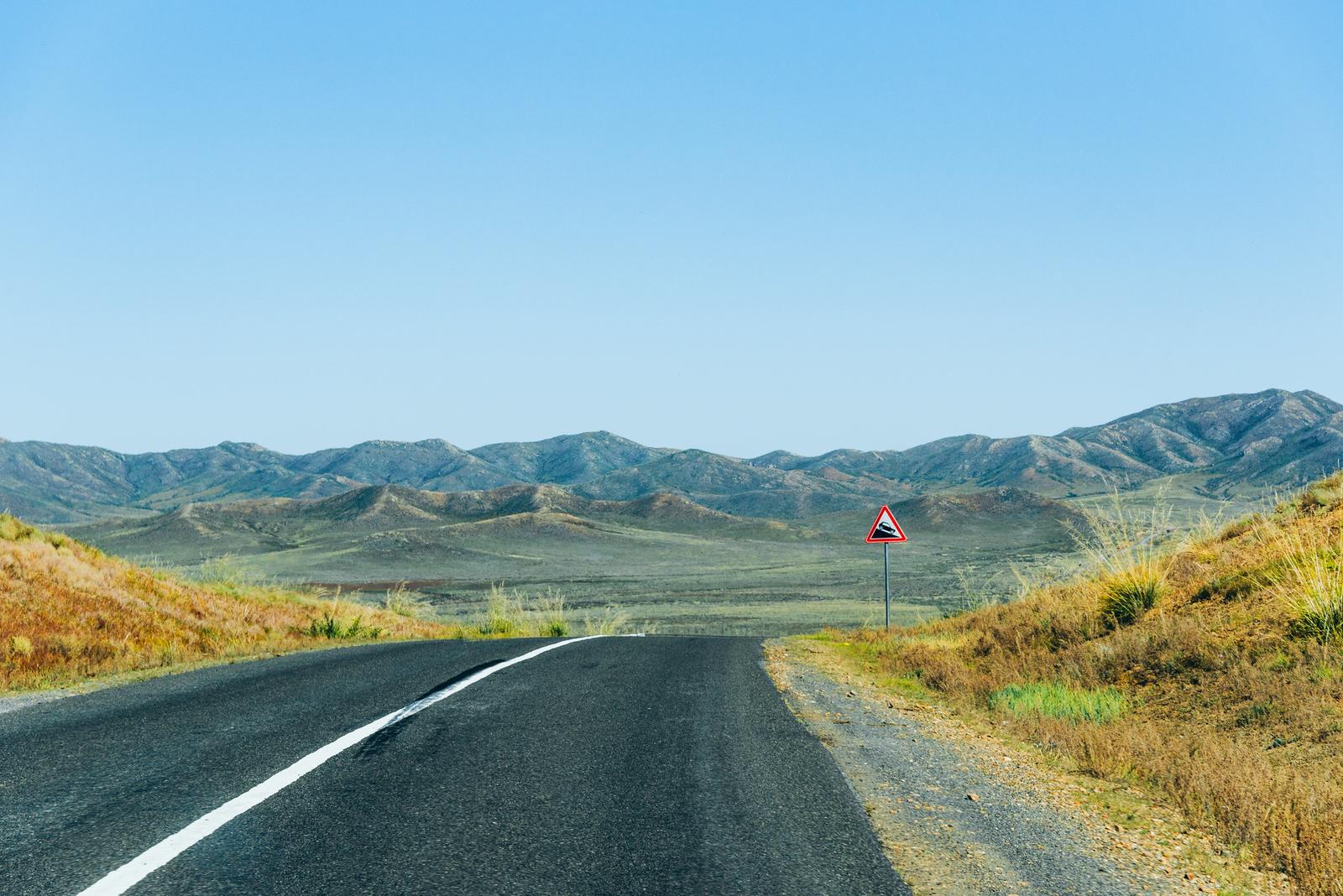
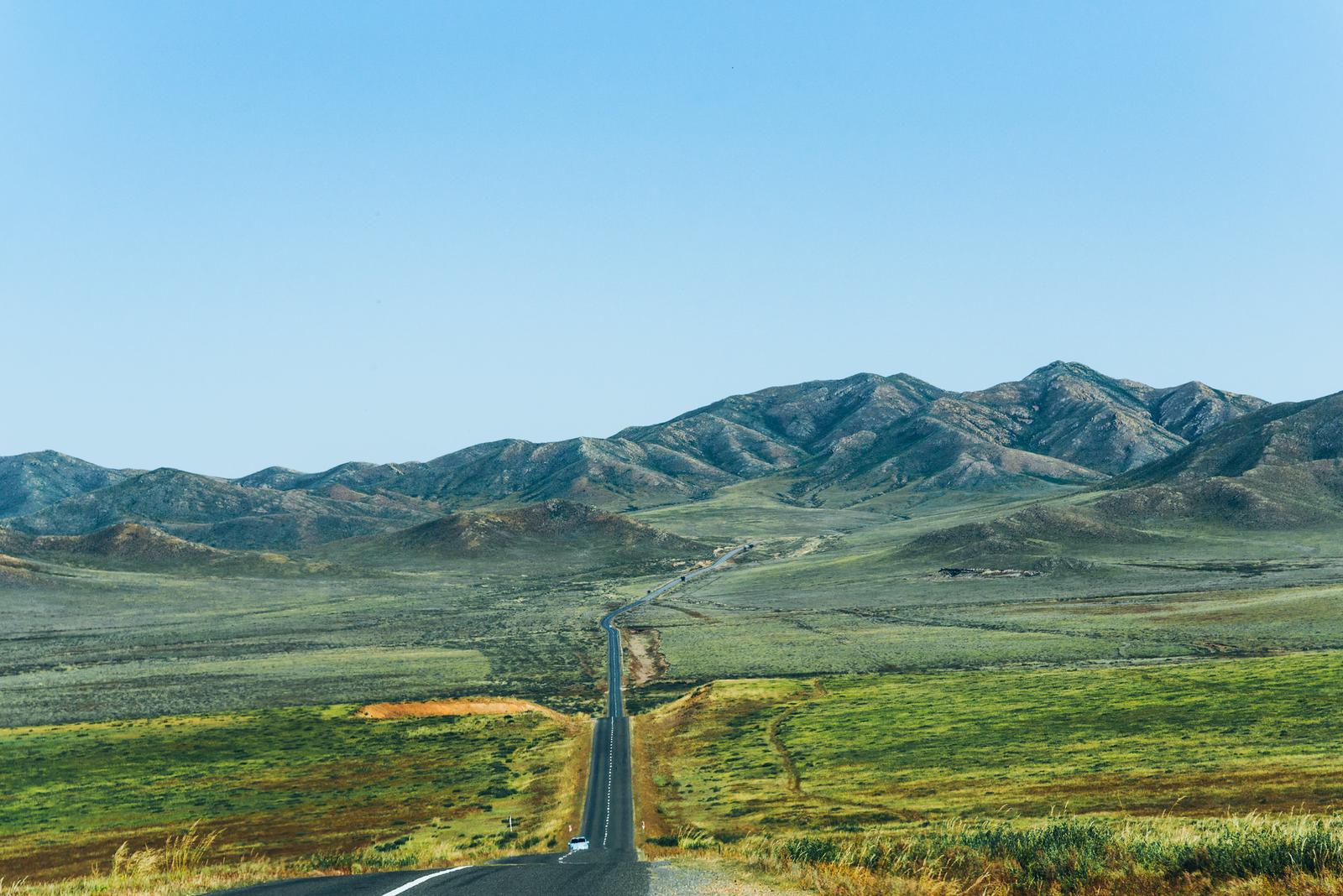
Familiar scenes unfolded once again before our eyes: colorful fields and shallow rivers.
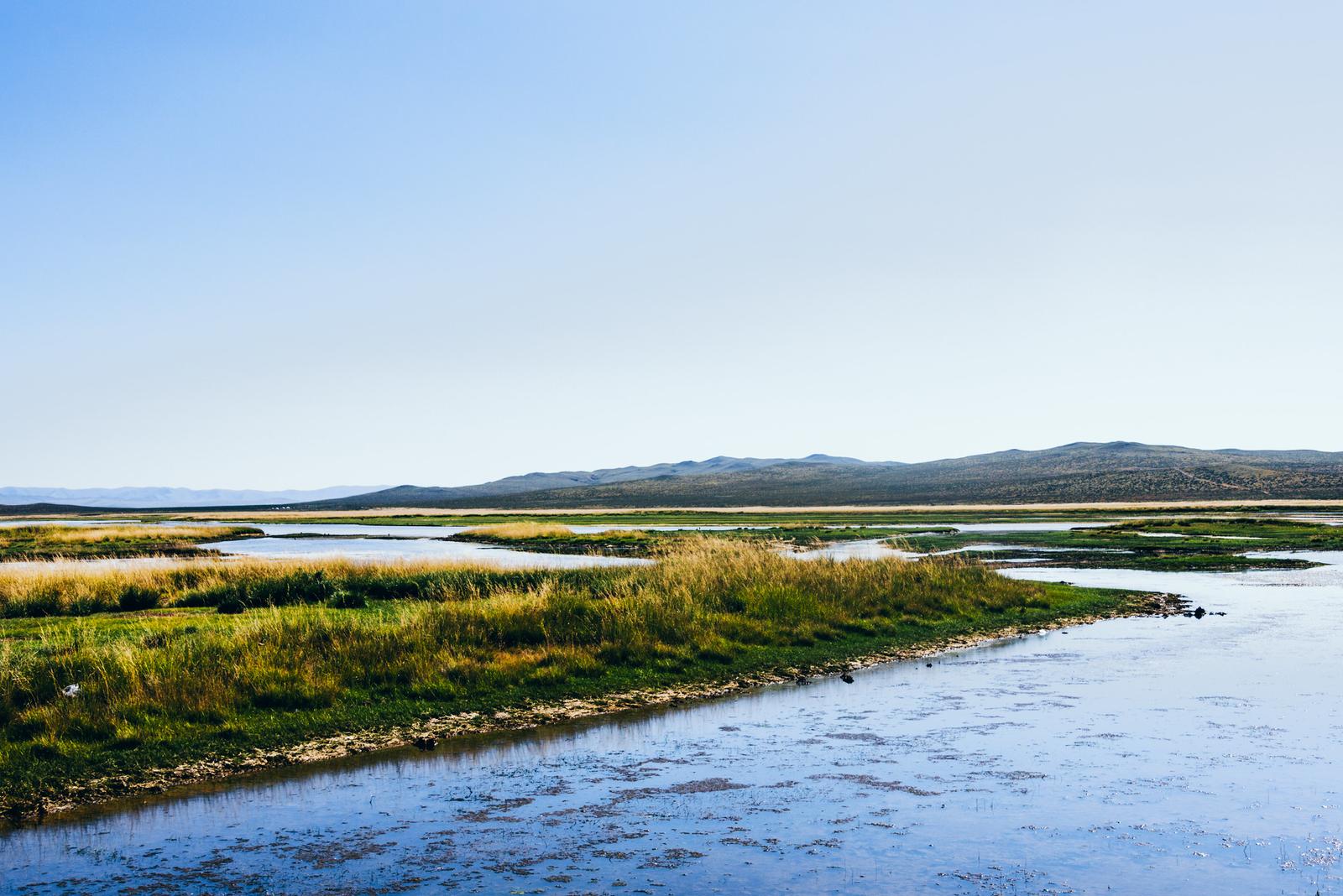
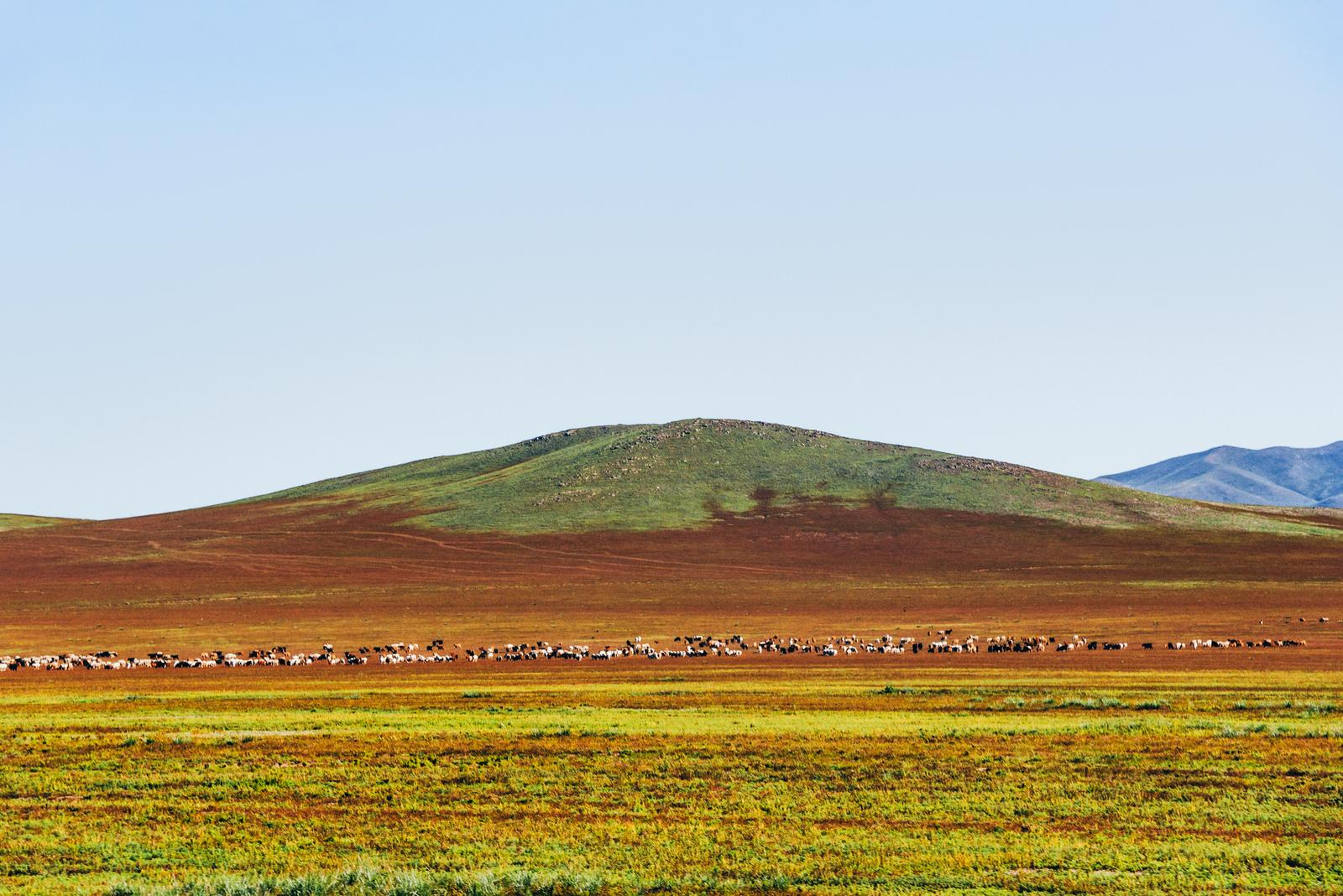
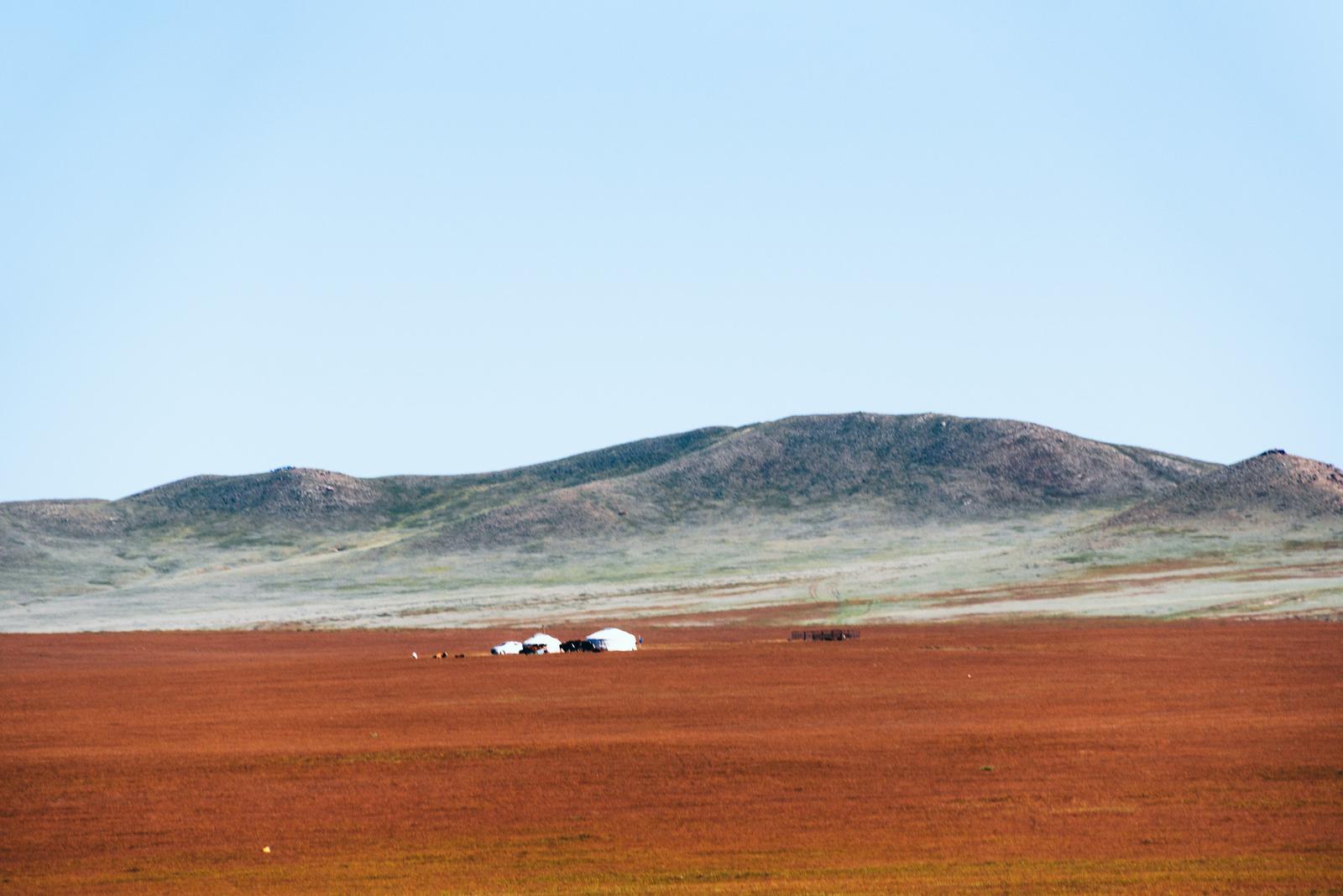
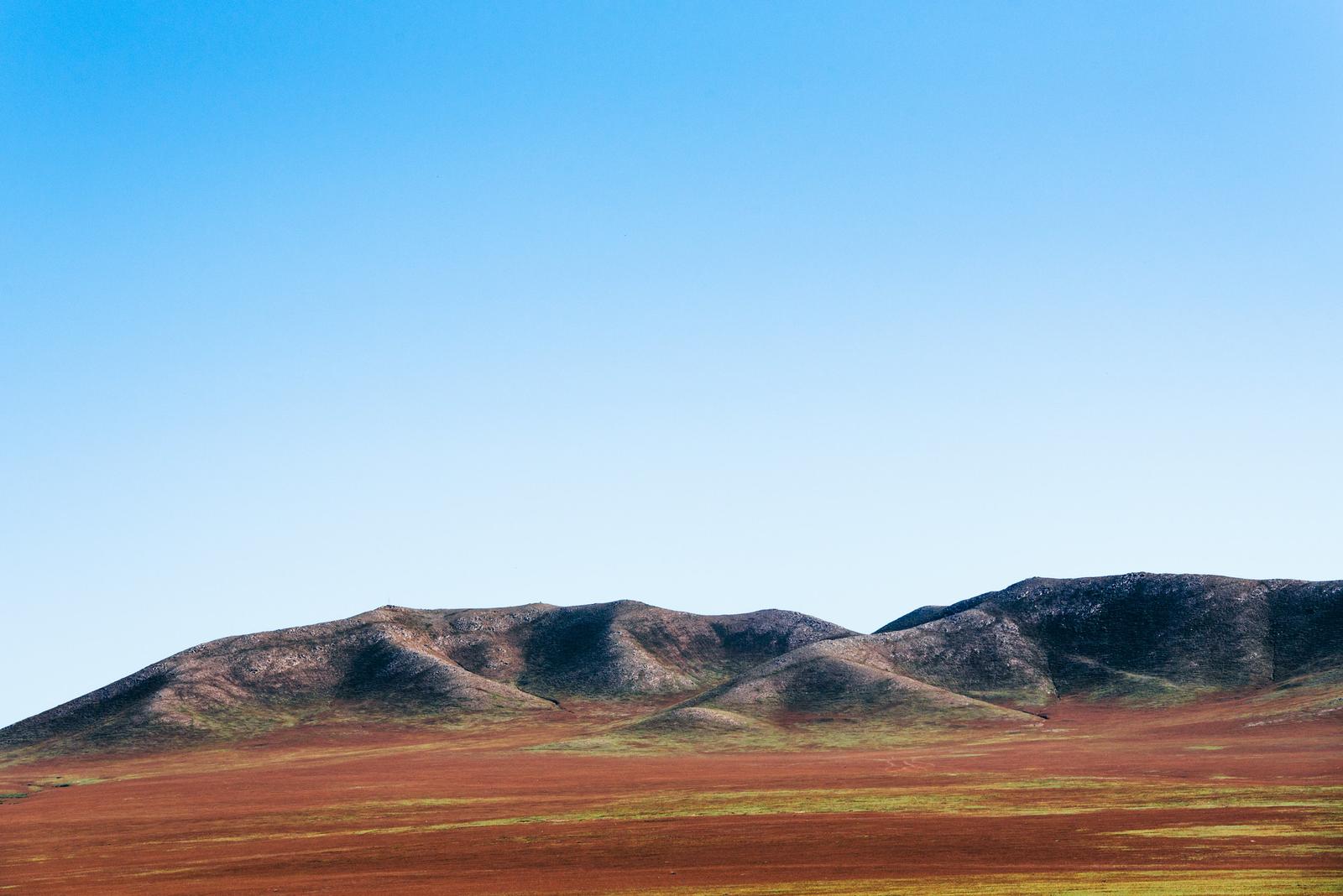
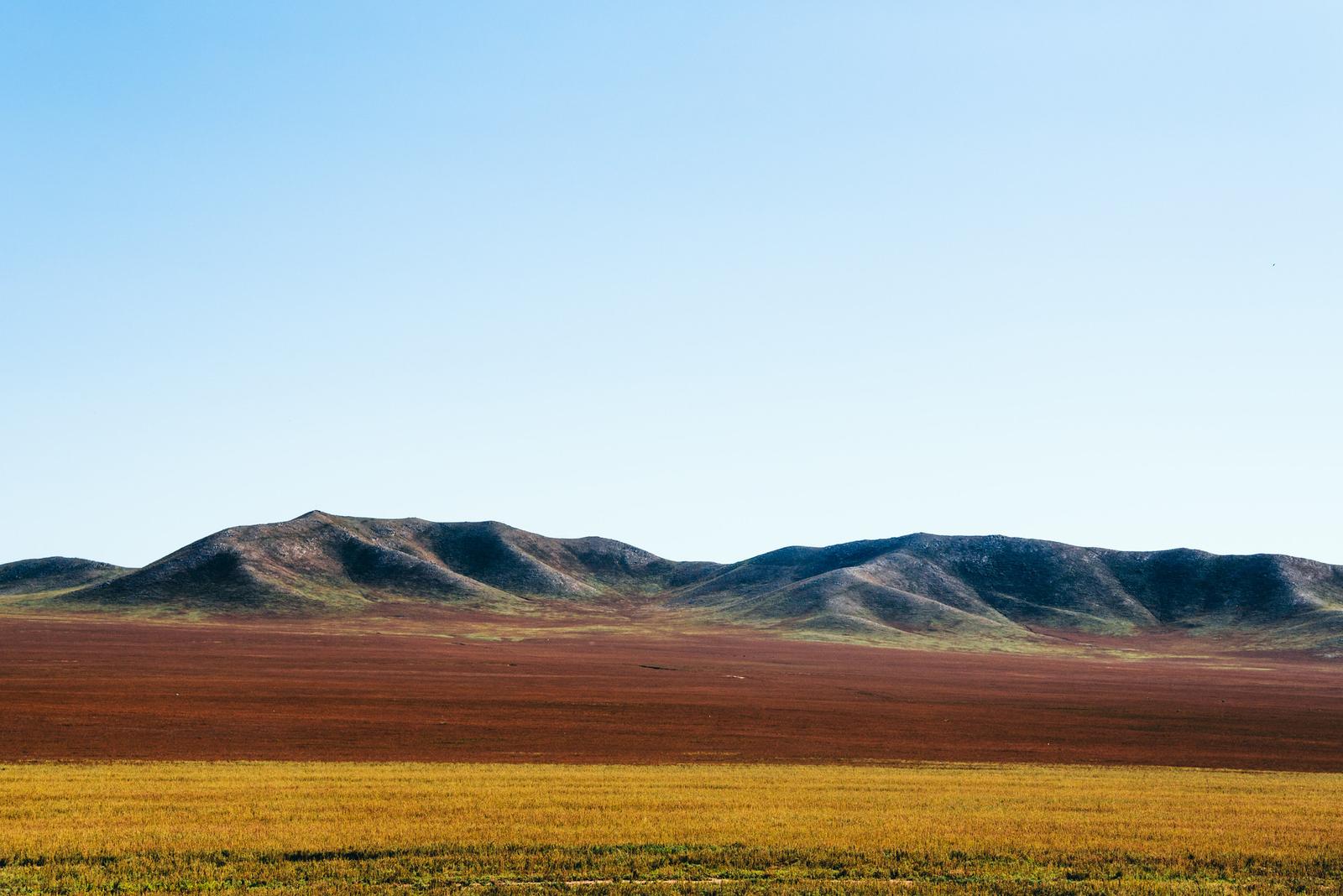
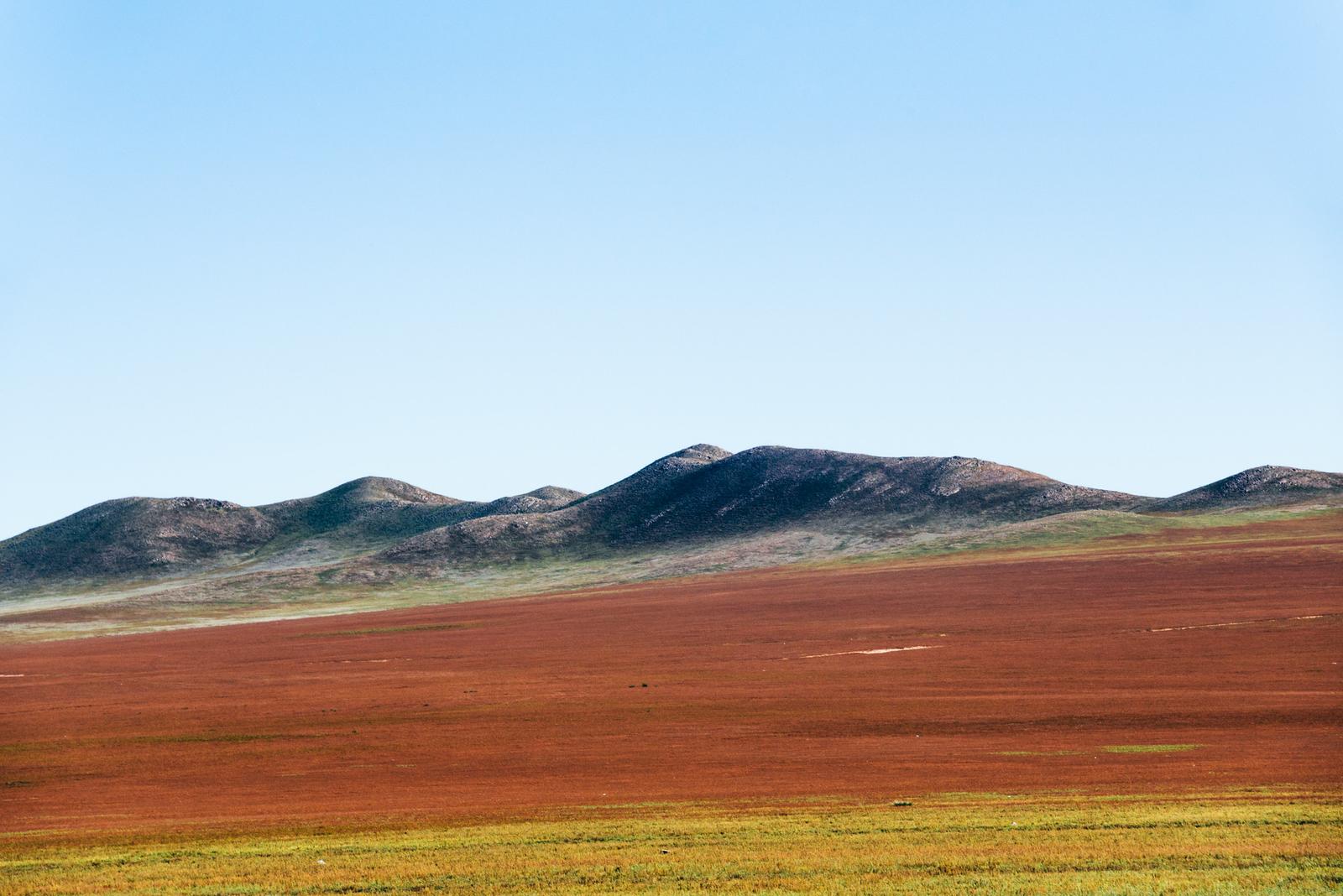

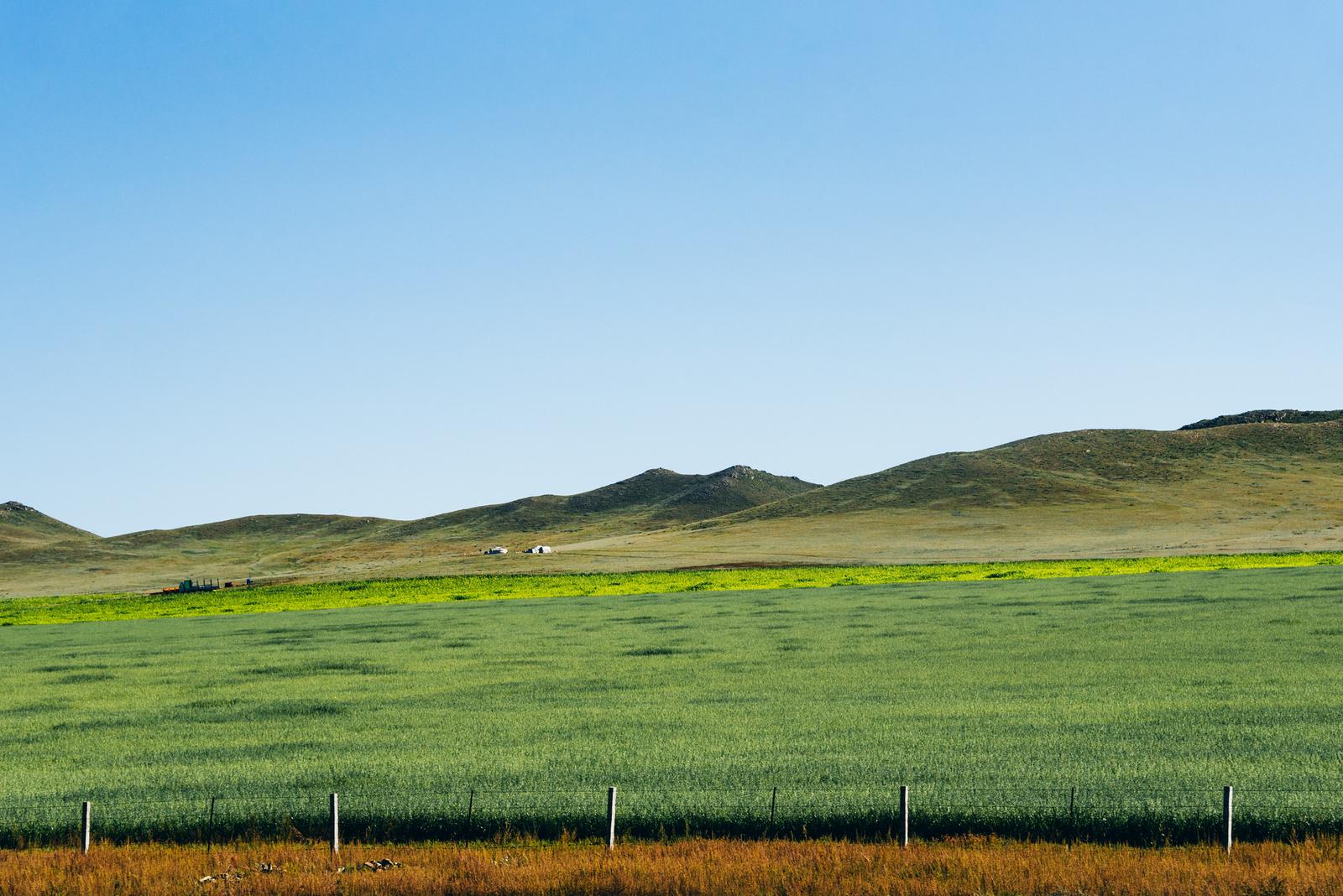
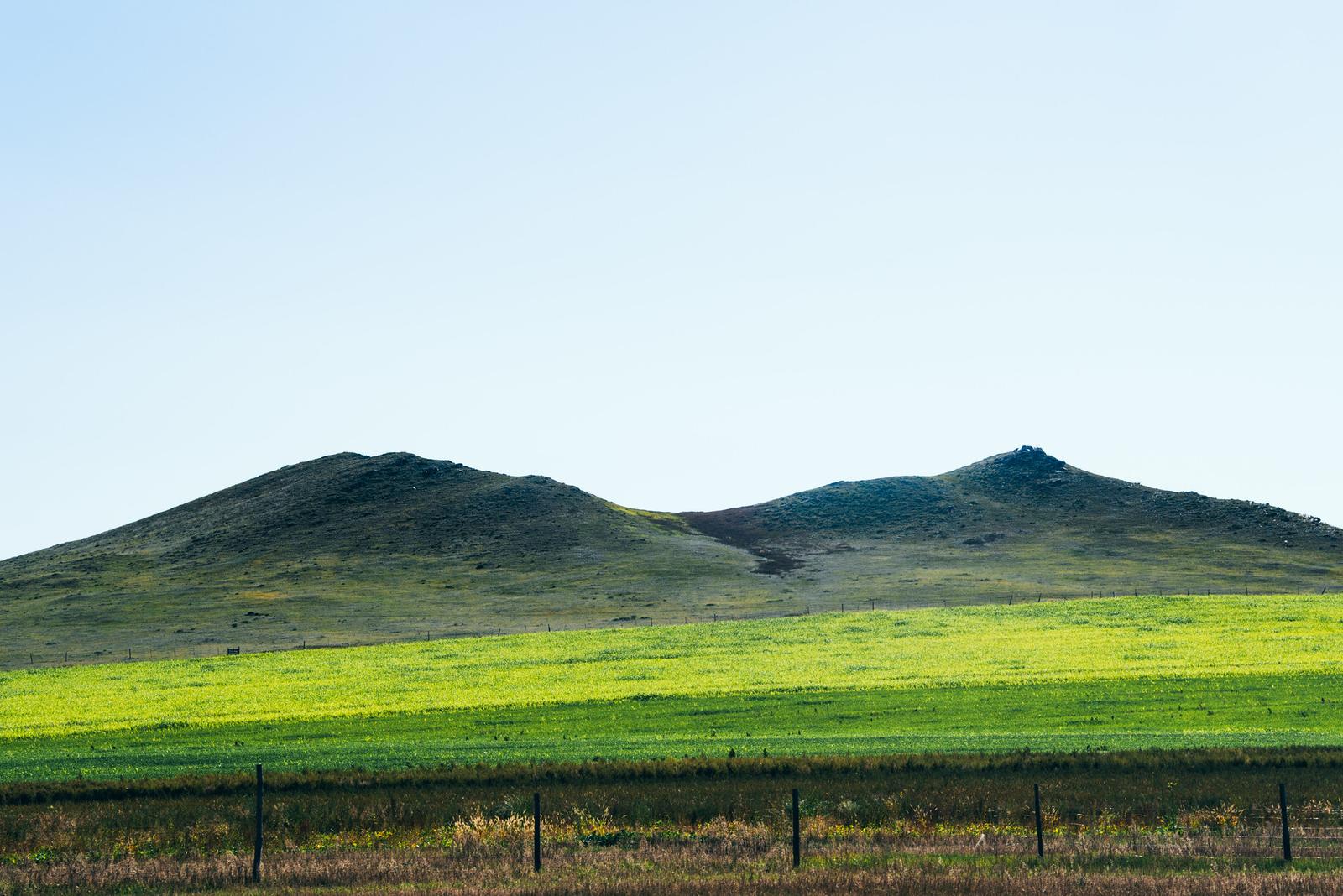
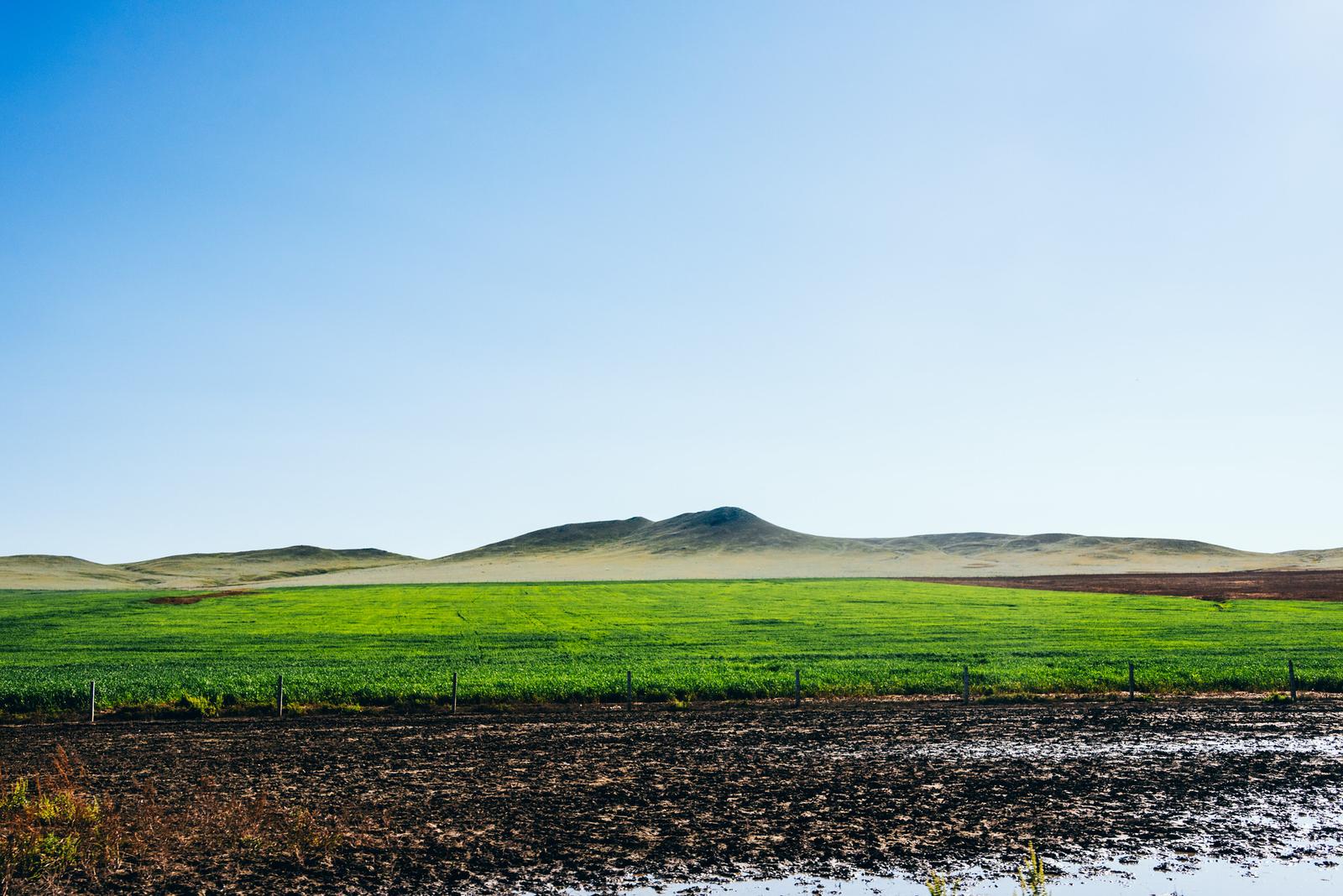
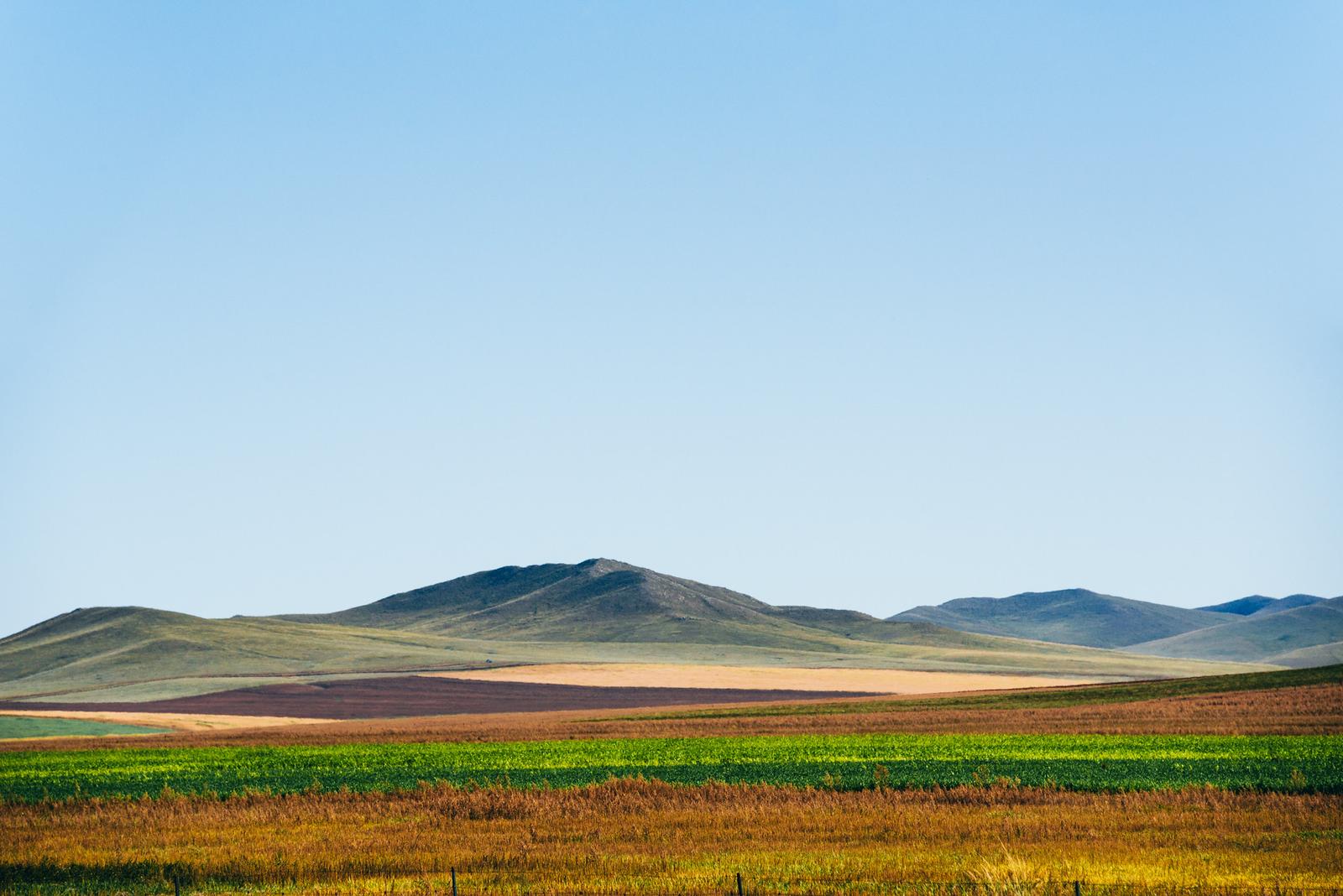
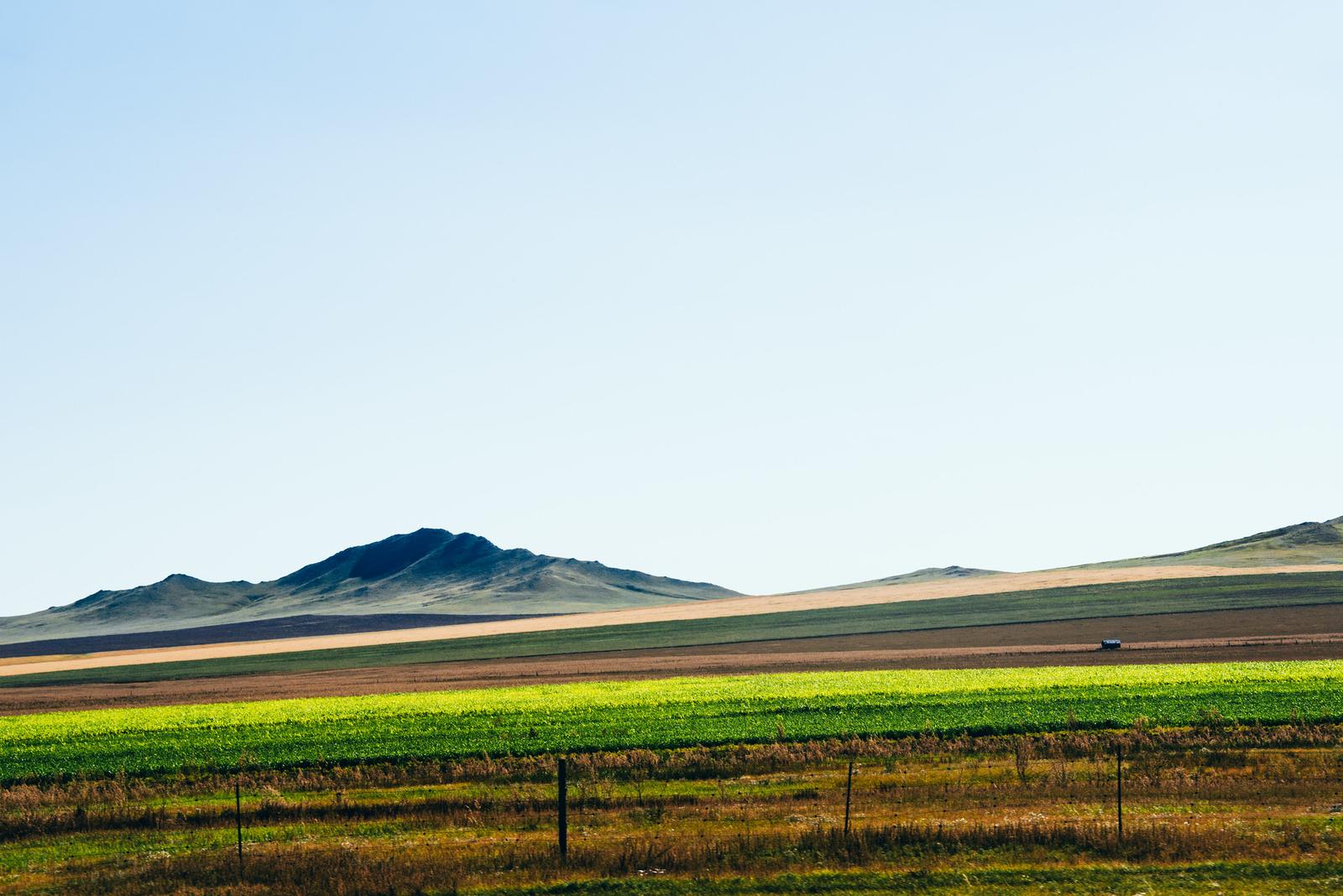
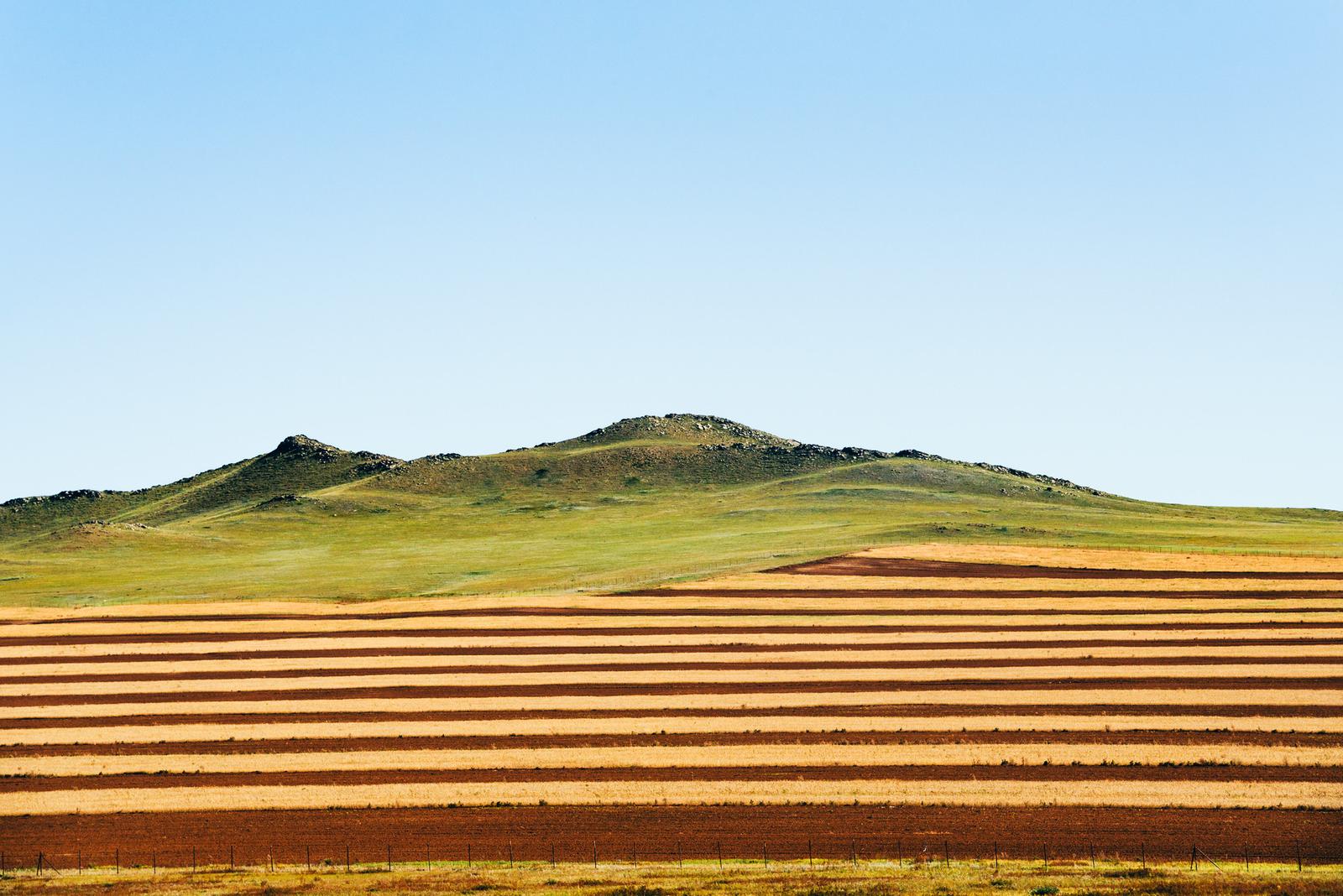
Hustai National Park
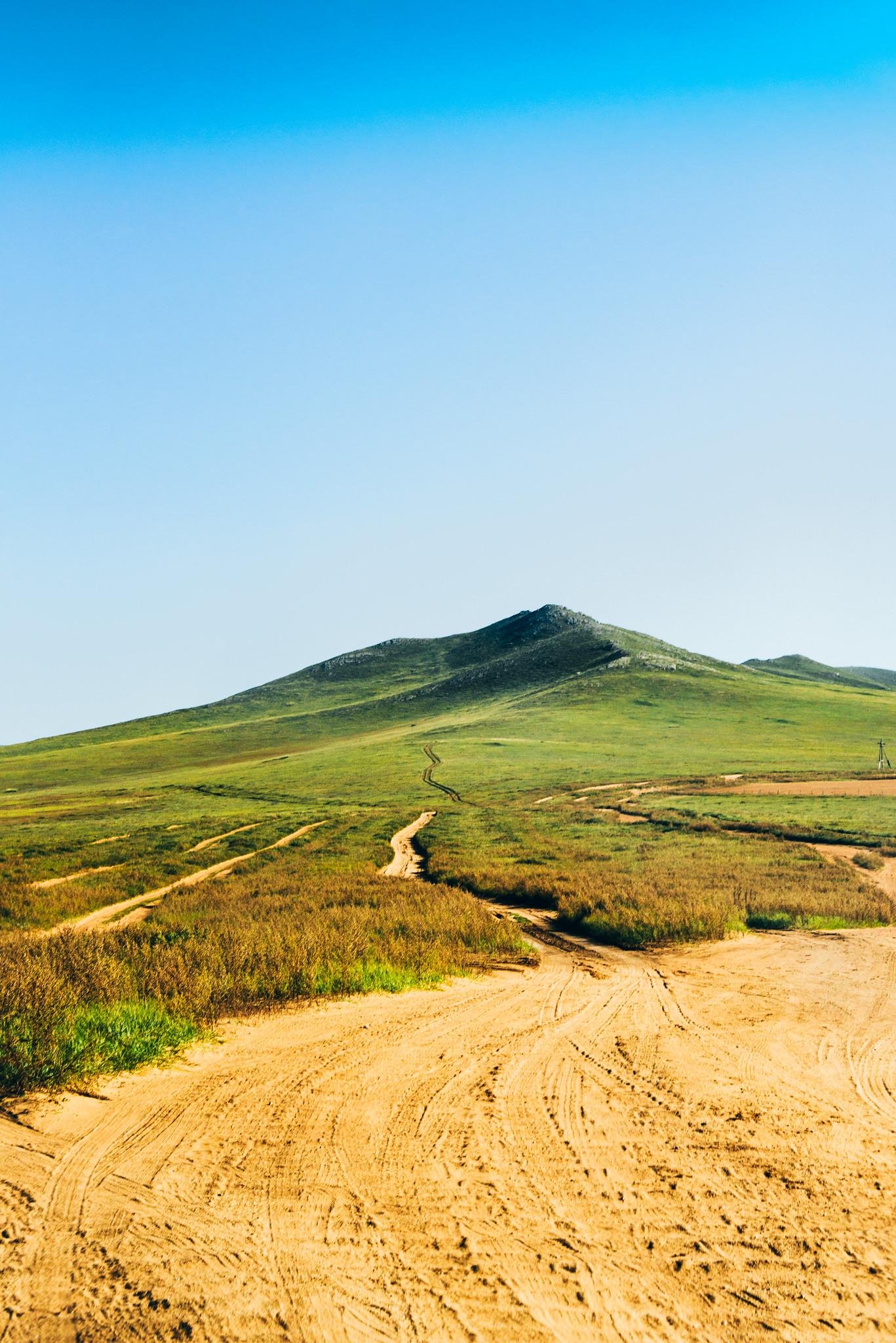
Around 3pm, the car turned onto a dirt road to visit Hustai National Park. With Ulaanbaatar not too far away, I figured this would be a relaxing final stretch - just some sightseeing before driving leisurely back to the city.
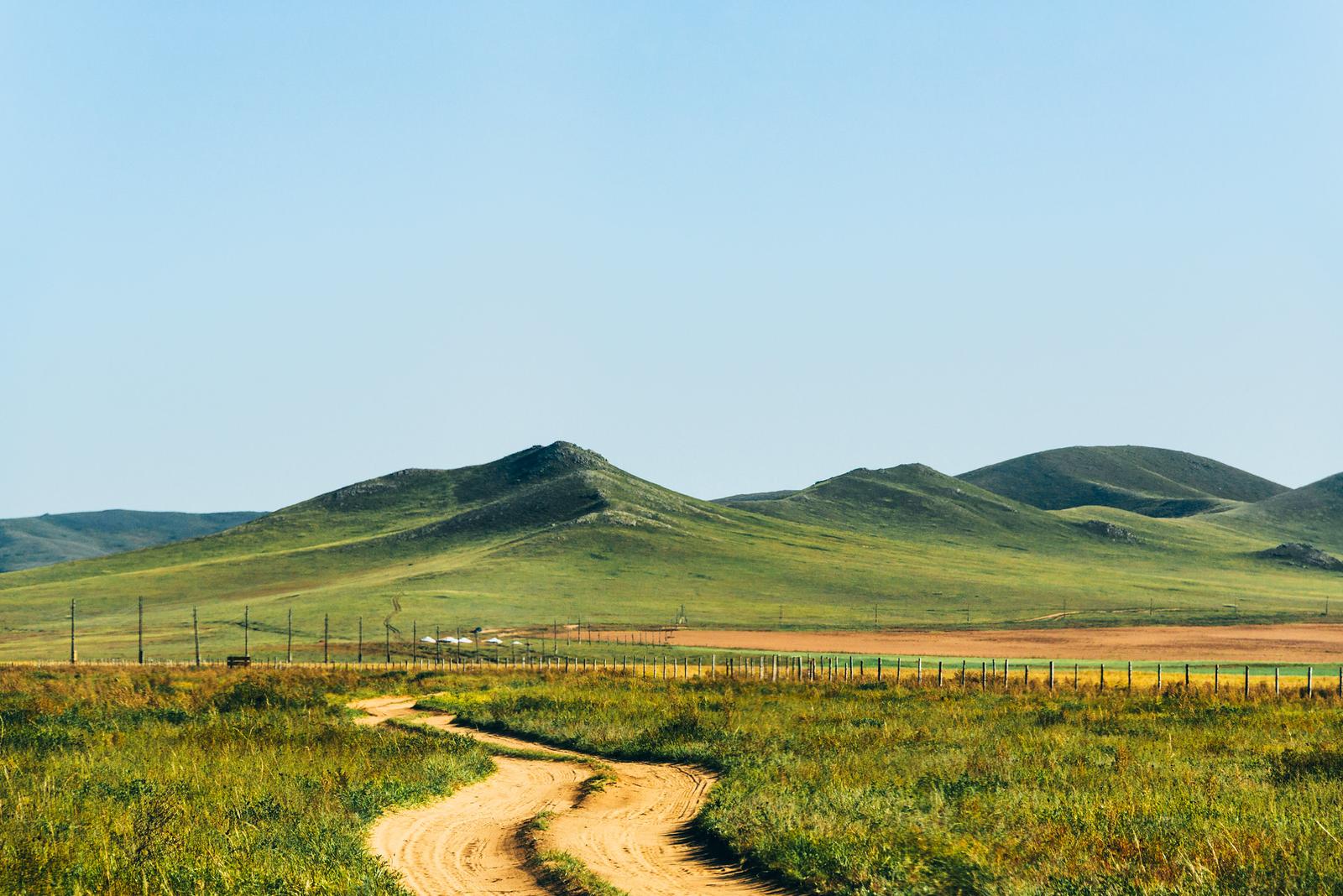
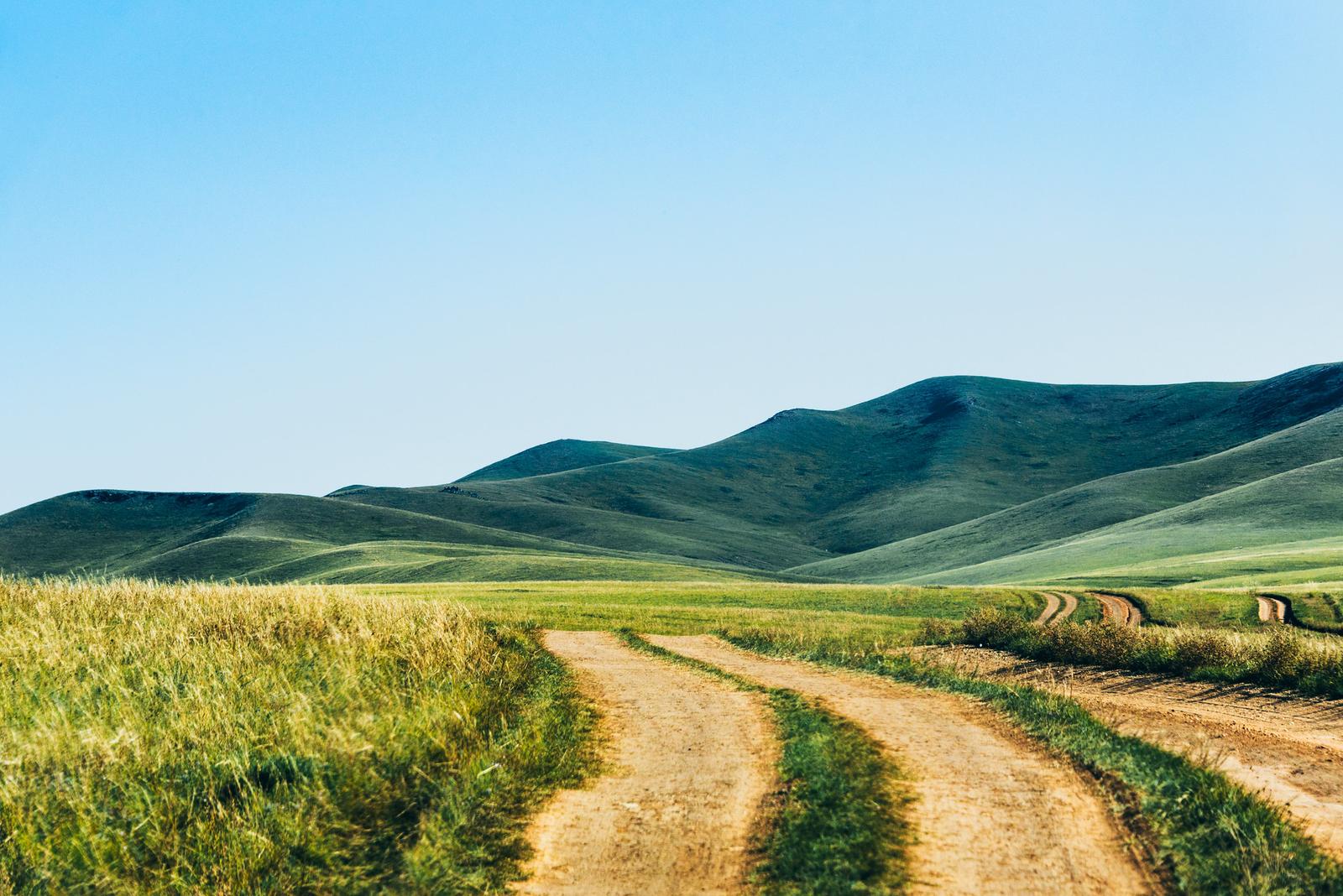
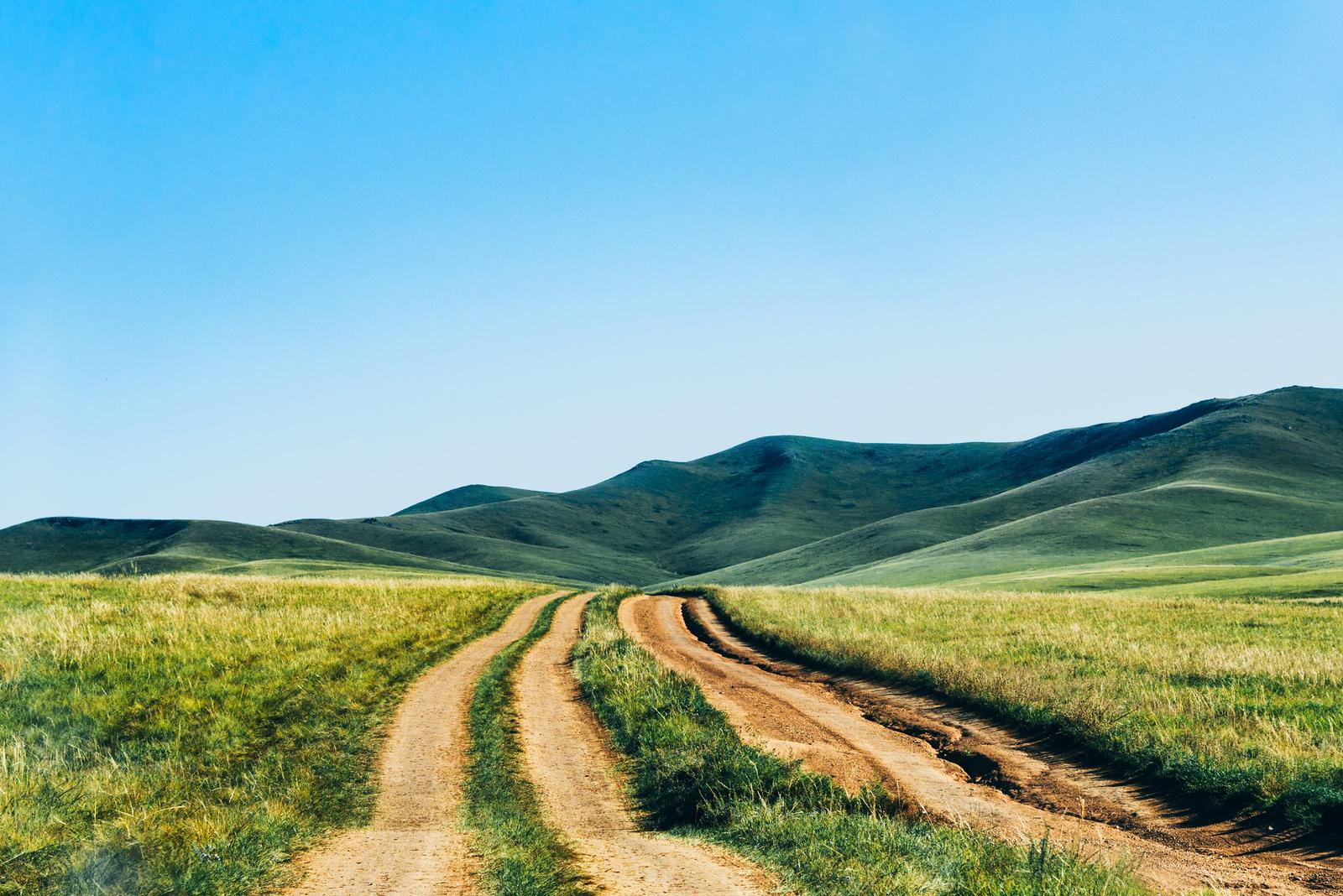
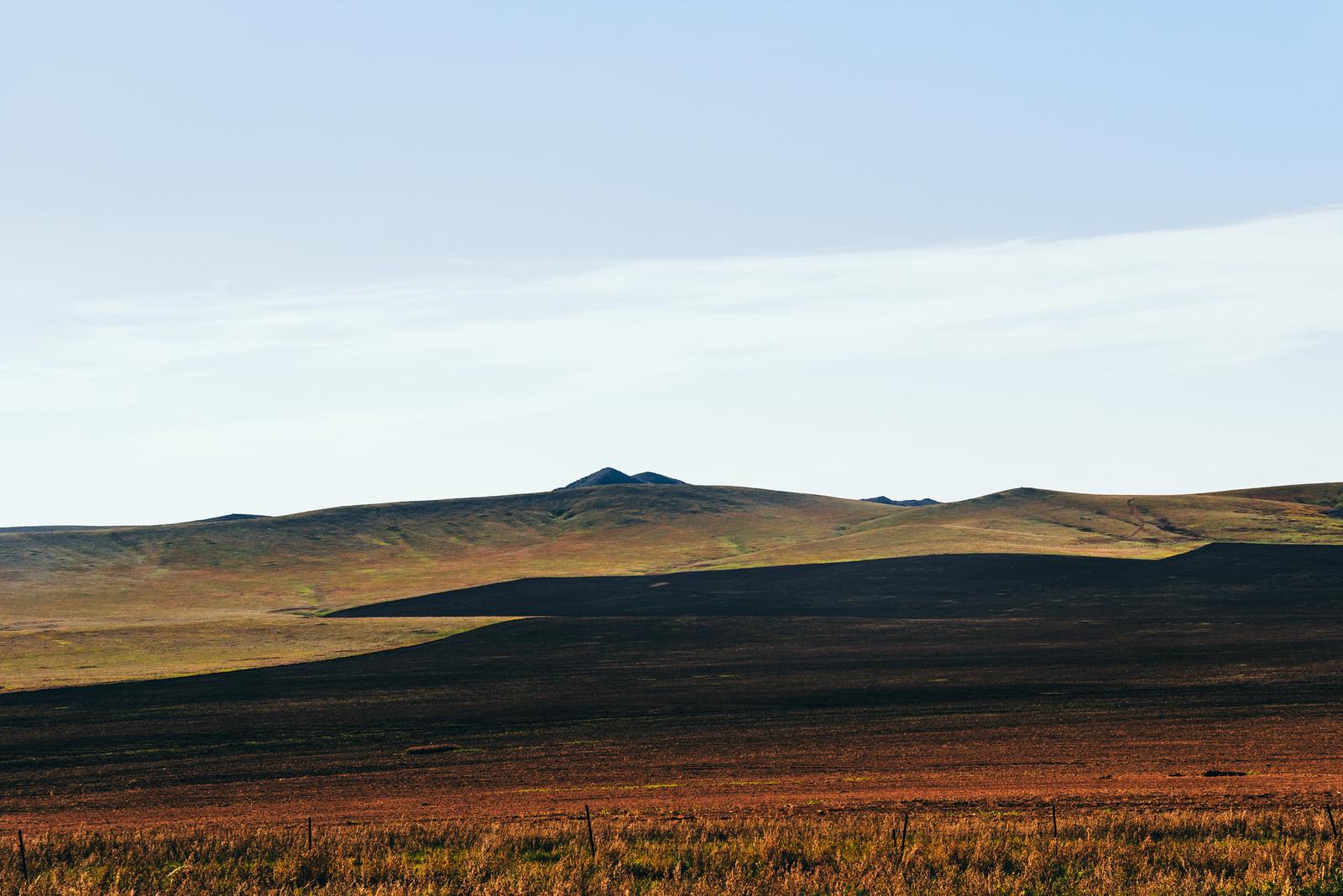
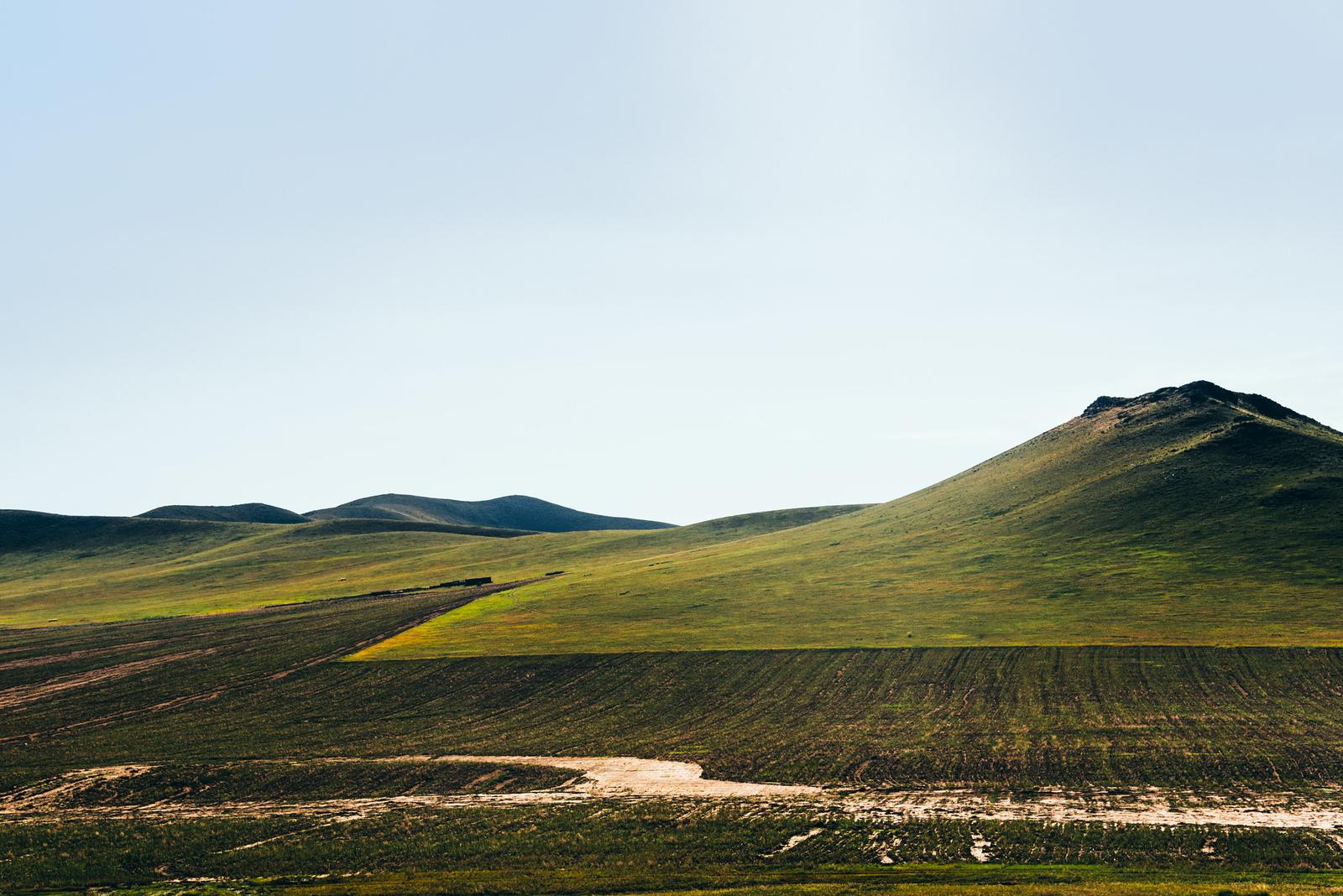
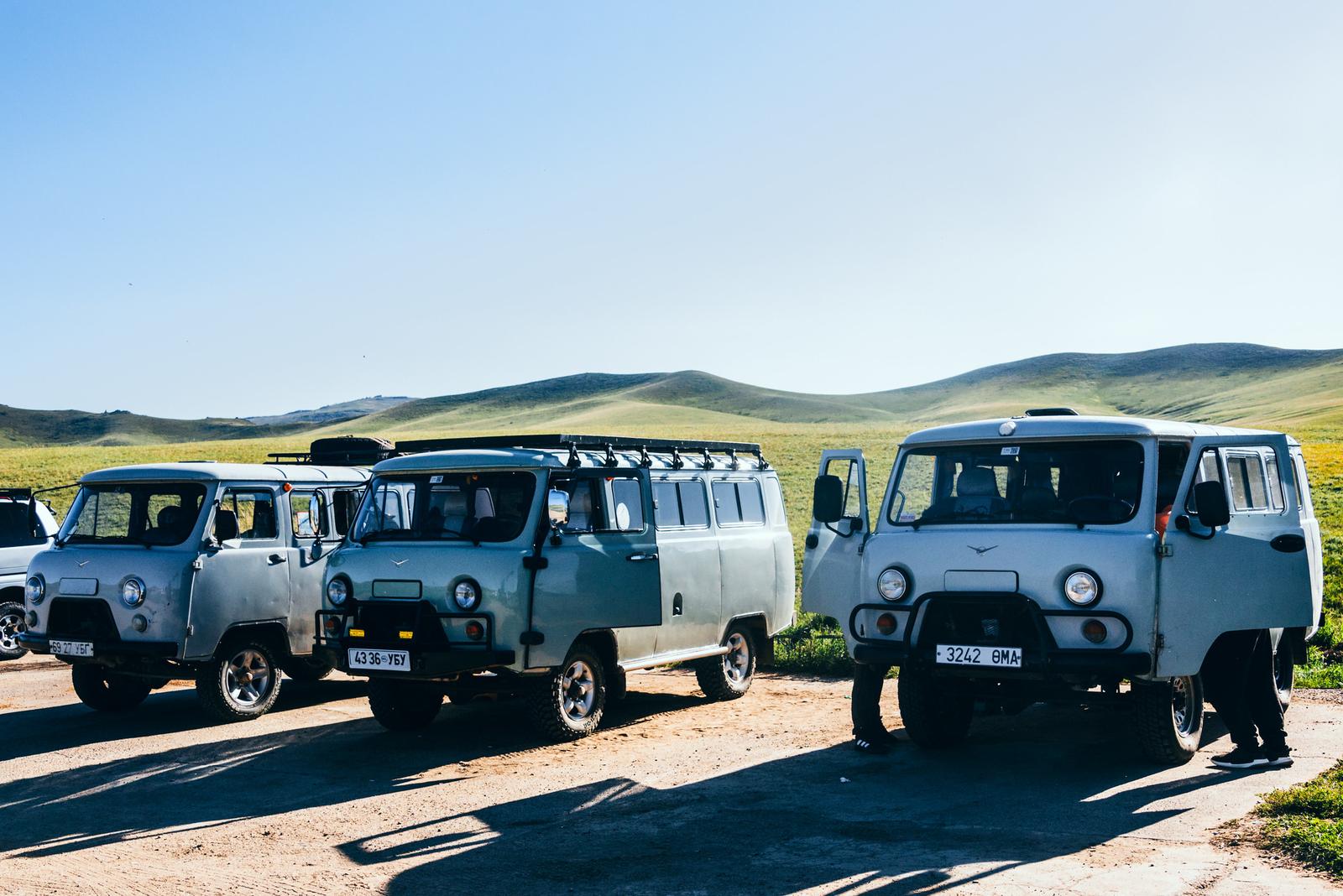
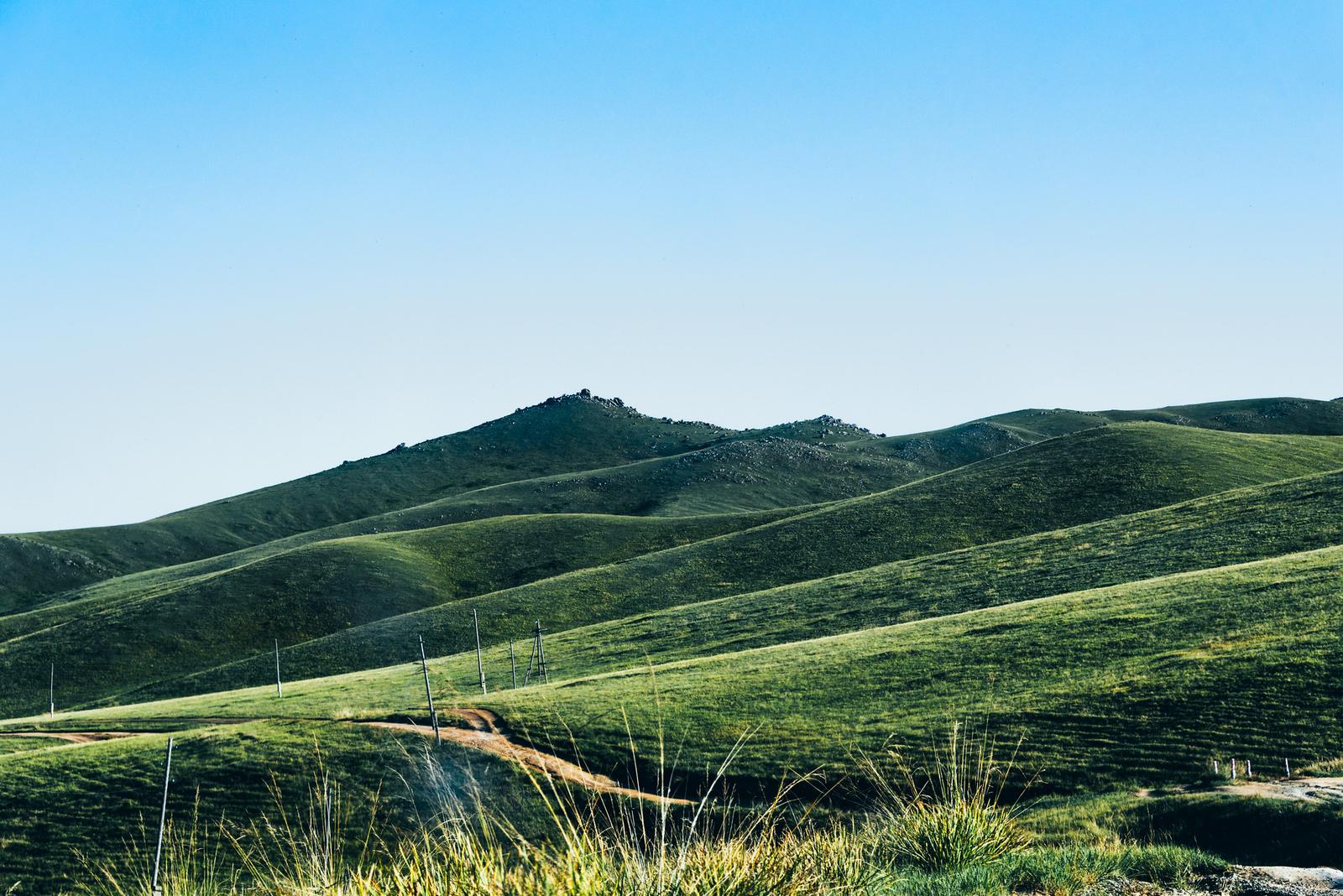
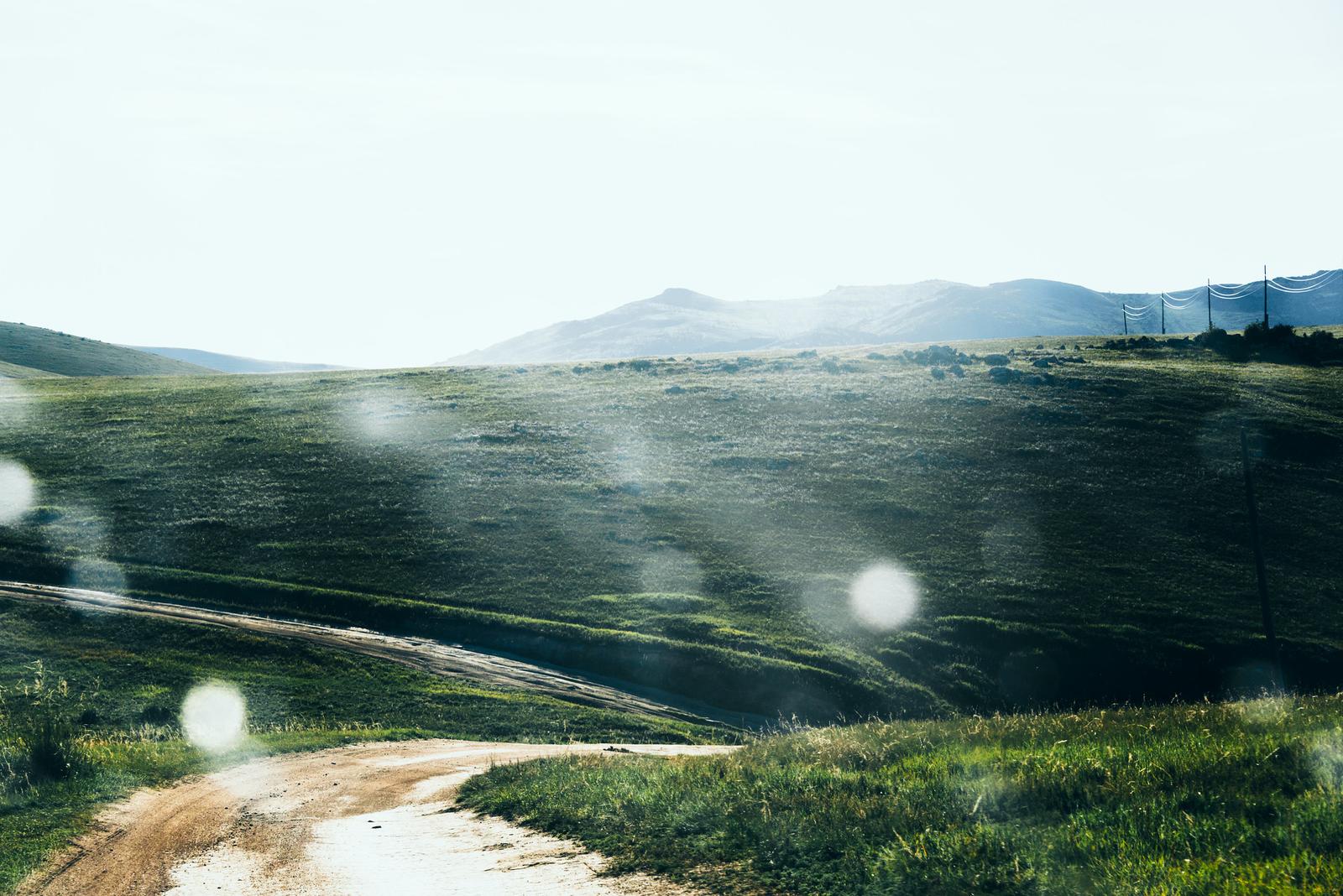
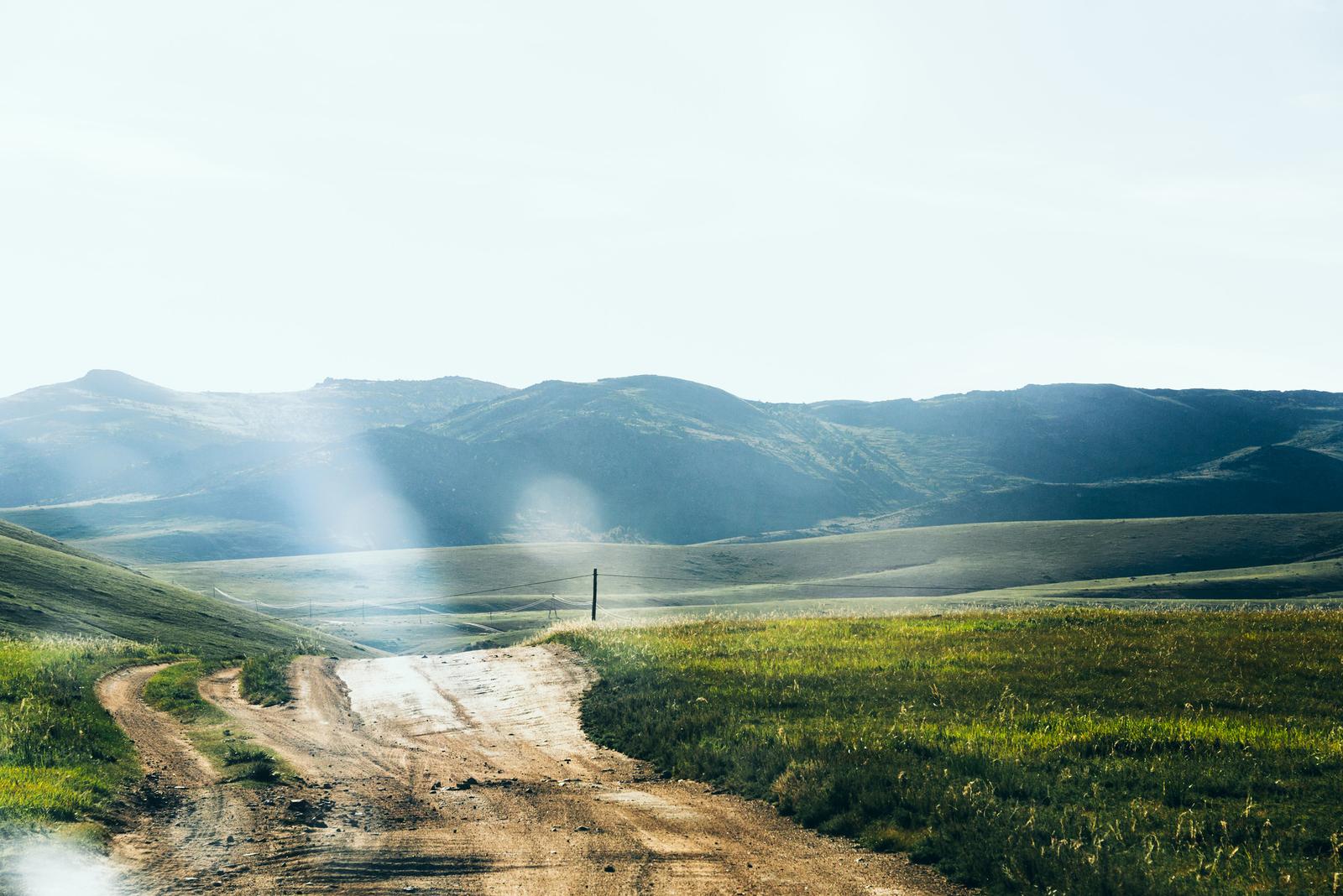
I was quite surprised by how passionately the guide and the presentation room kept talking about the wild horse, while the other visitors were eagerly glued to the binoculars, searching for them. In reality, most horses on Earth are domesticated, making true wild horses extremely rare; the Przewalski’s horse remains the only wild horse species surviving in nature today.
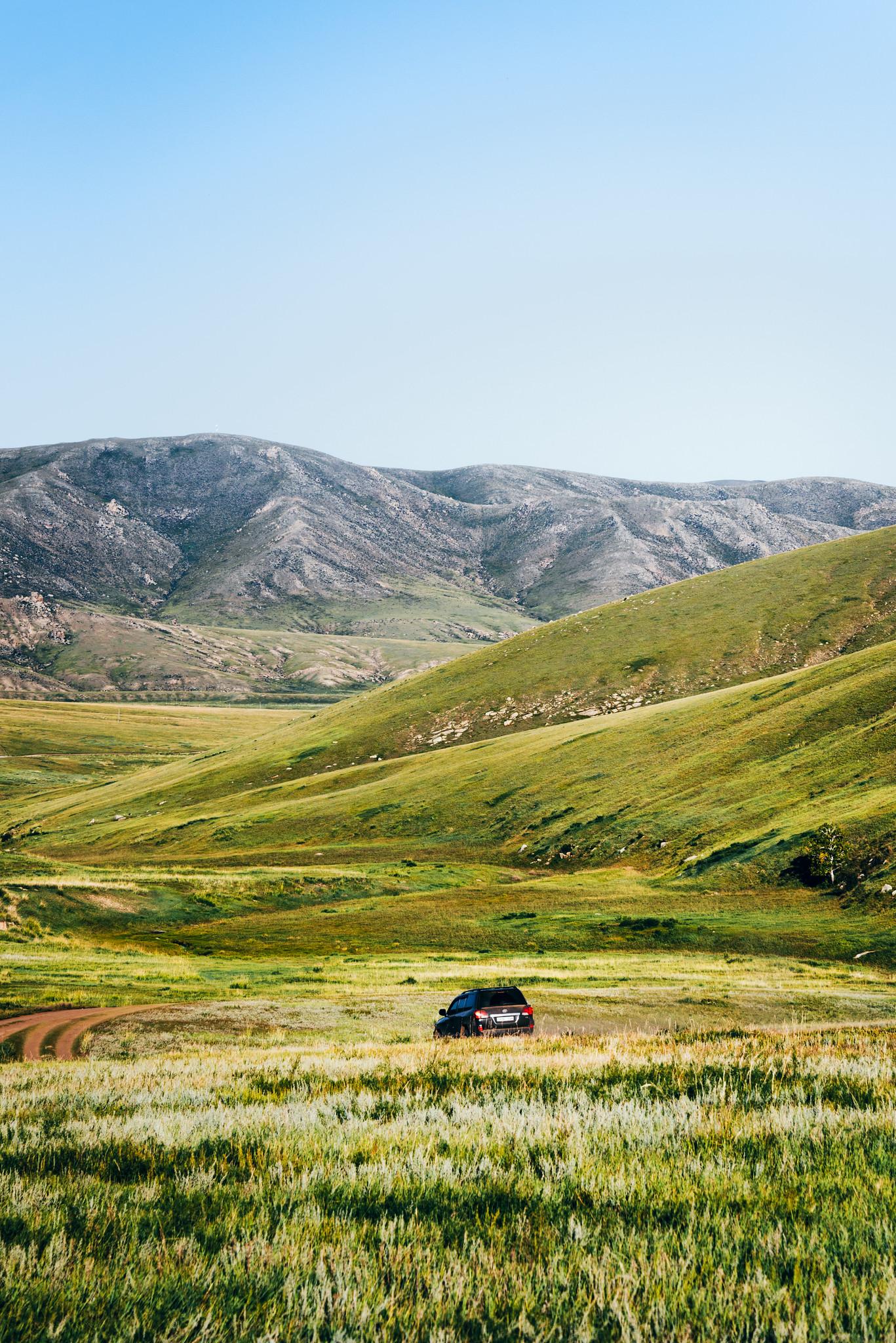
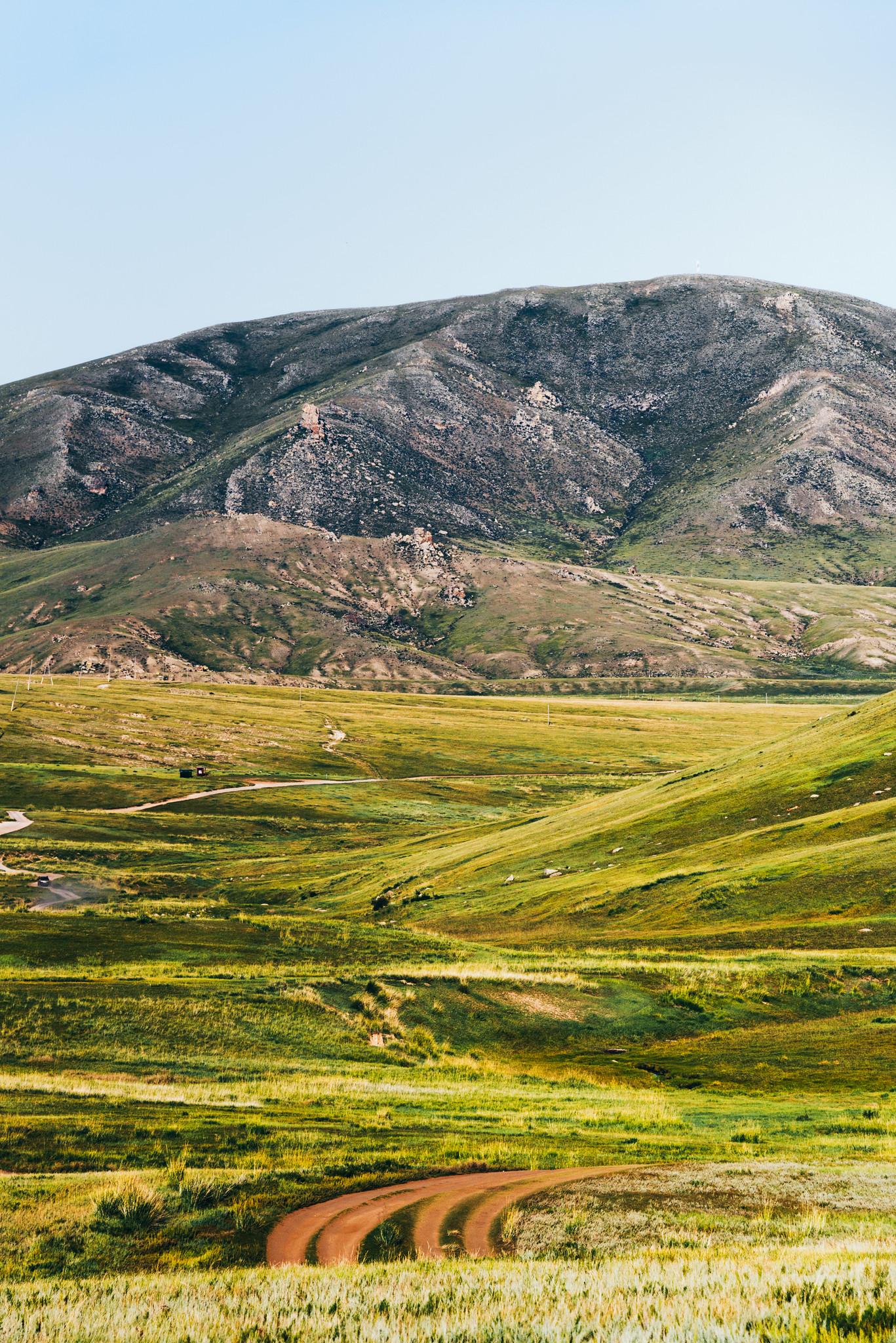
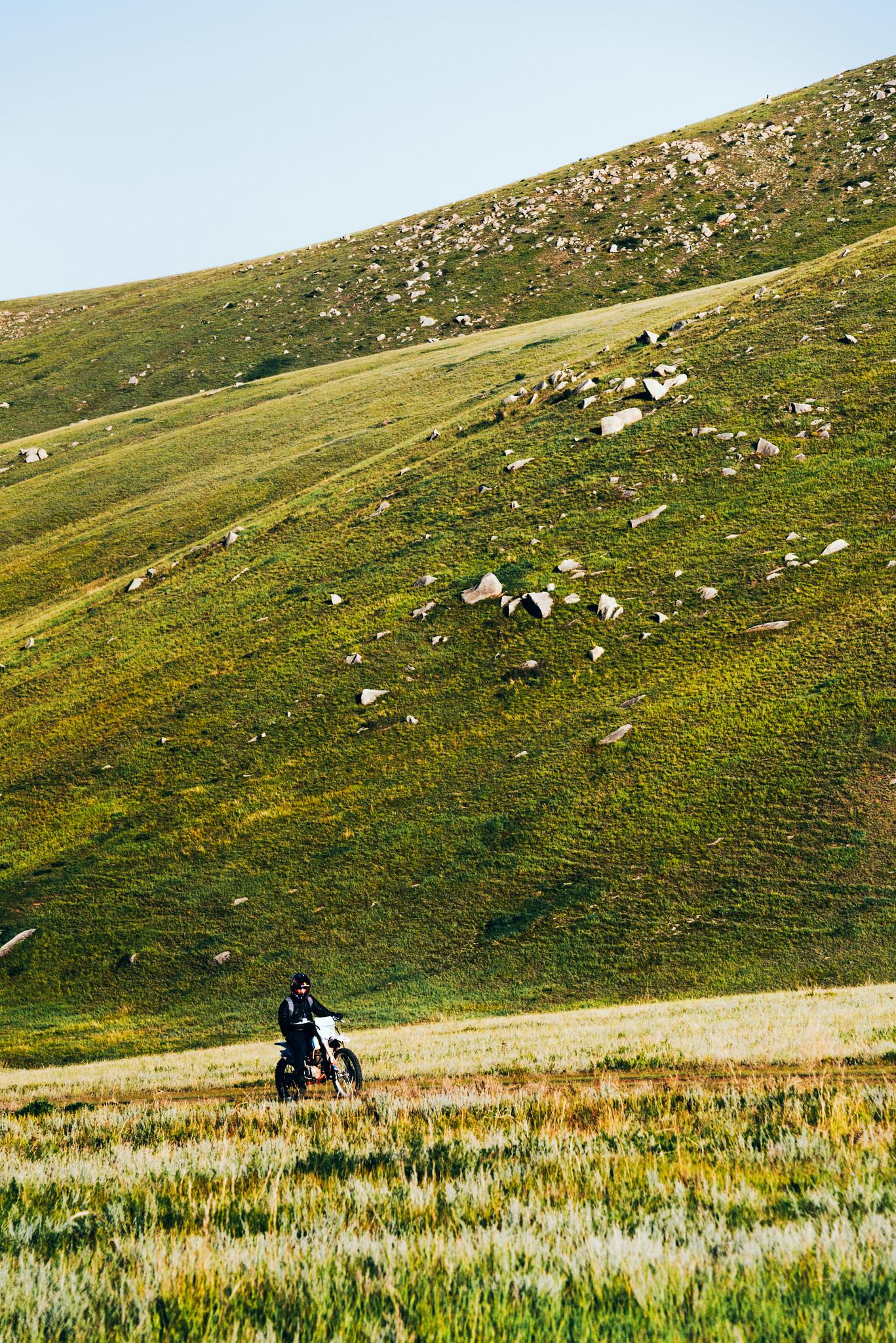
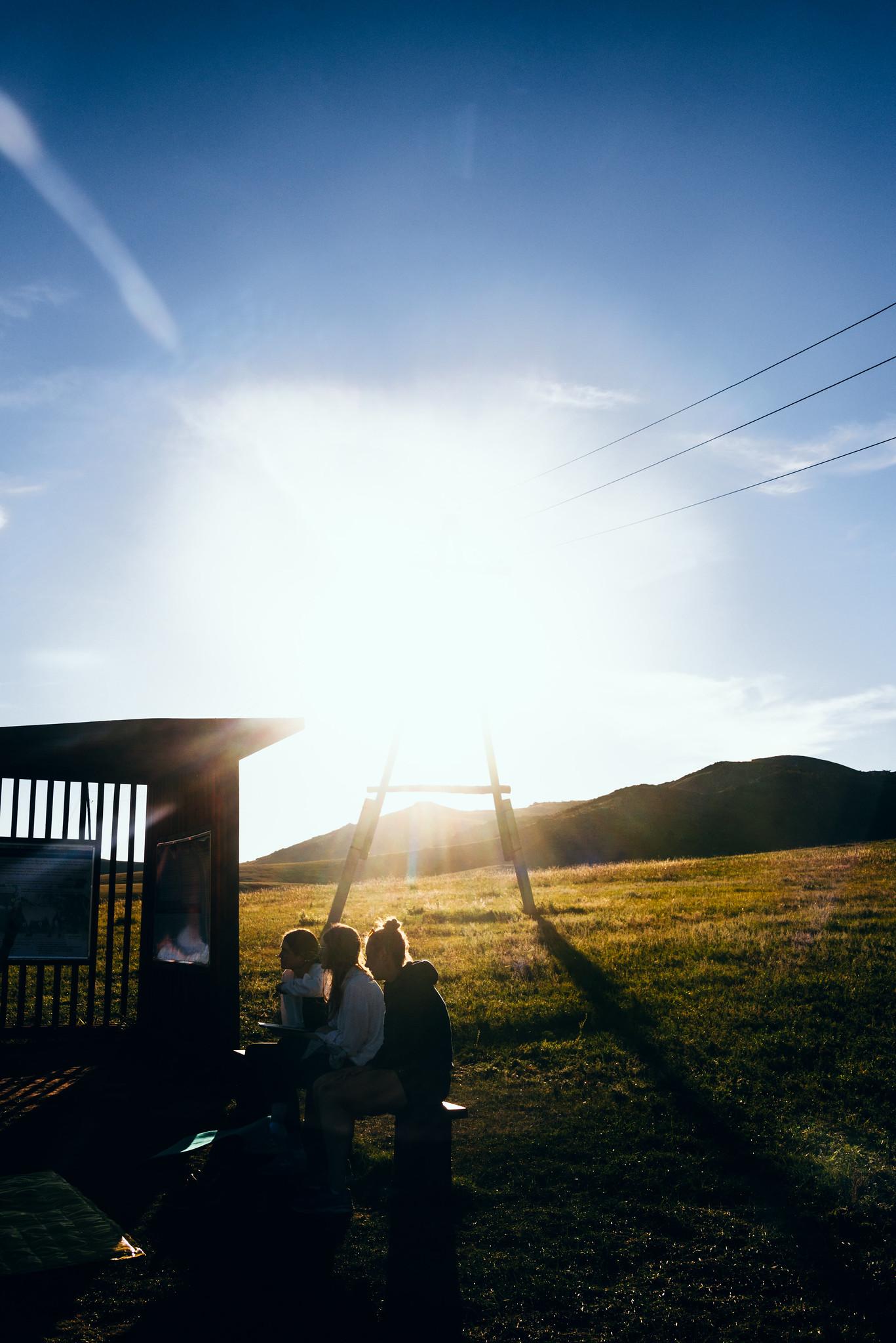
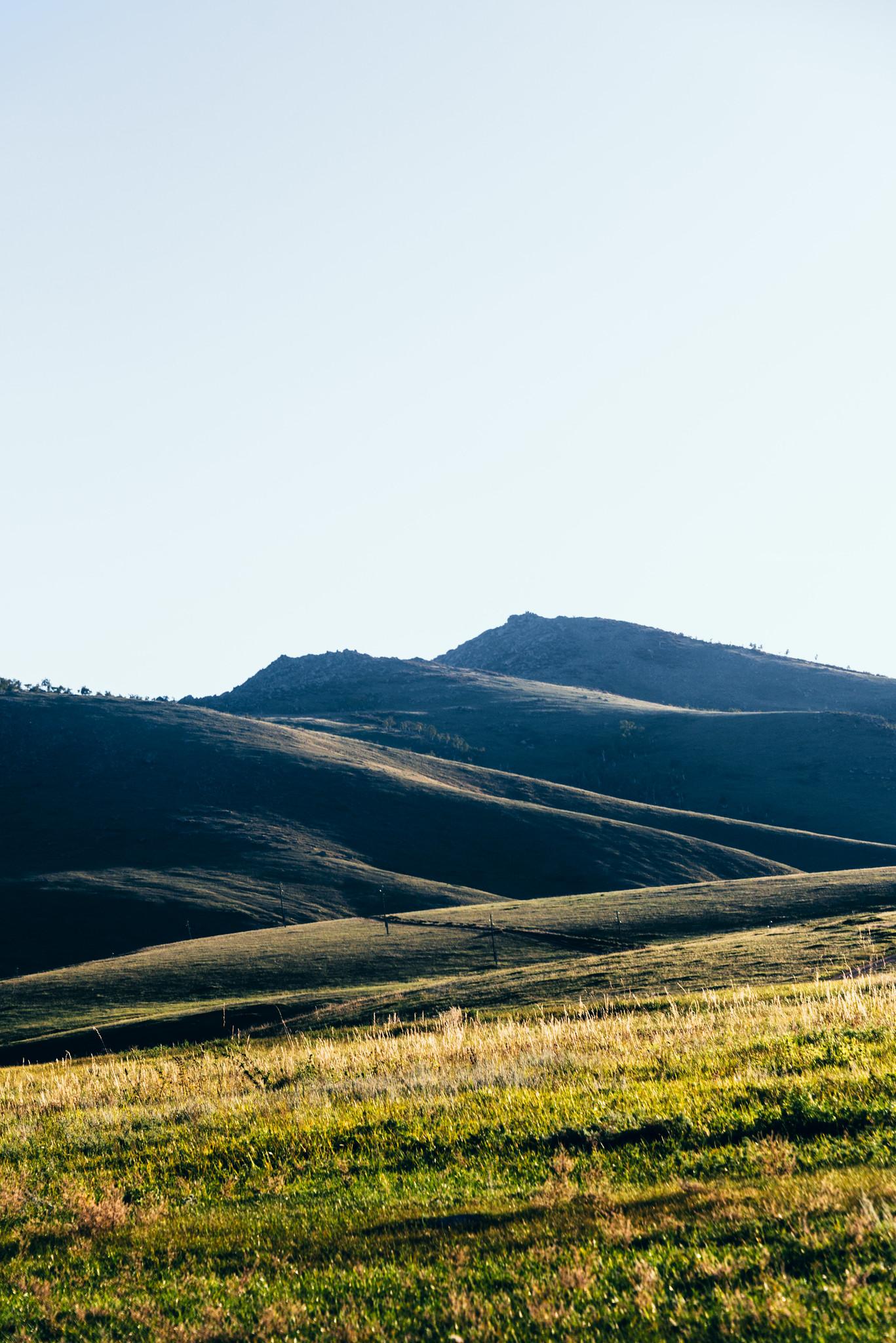

Back to Ulaanbaatar
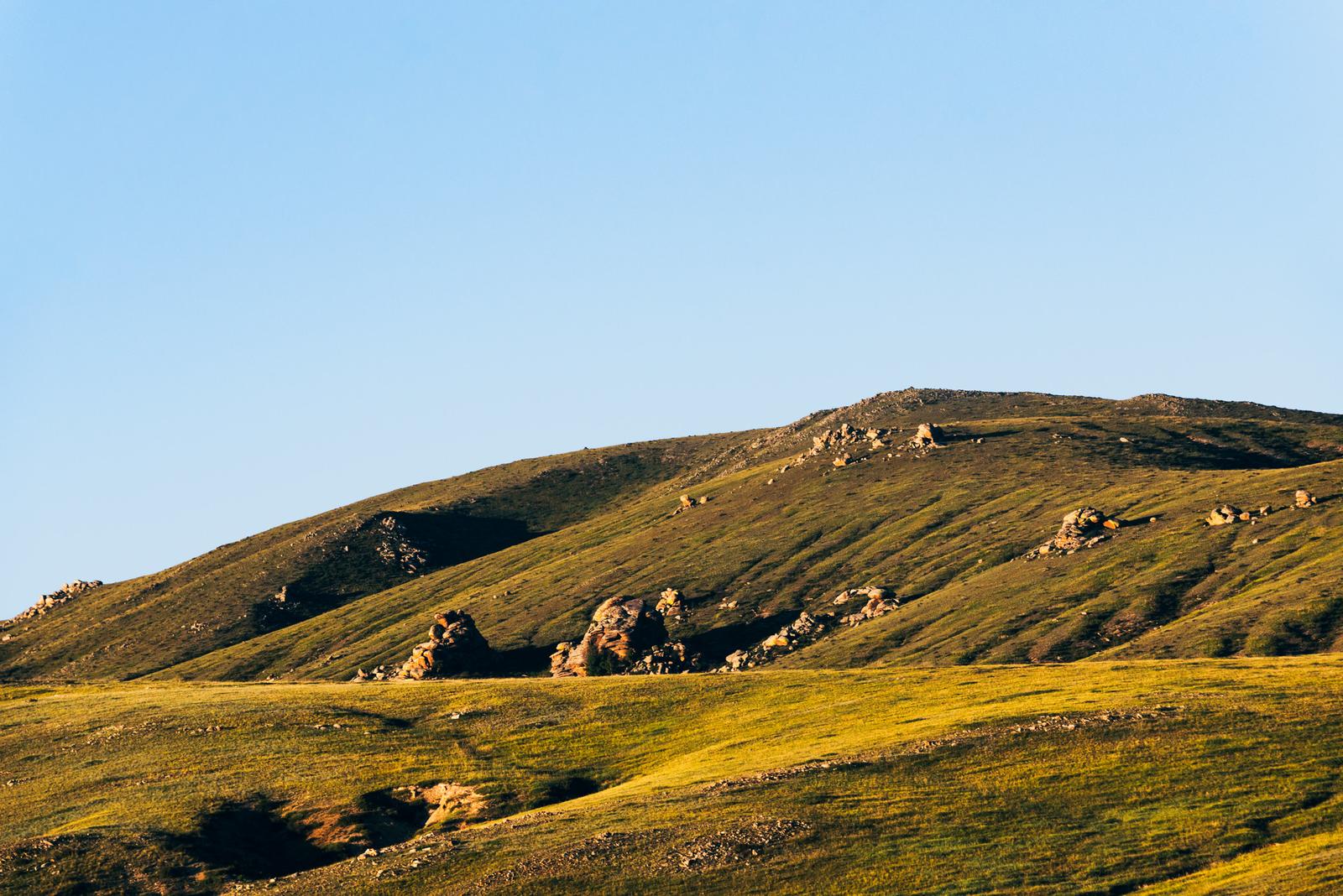
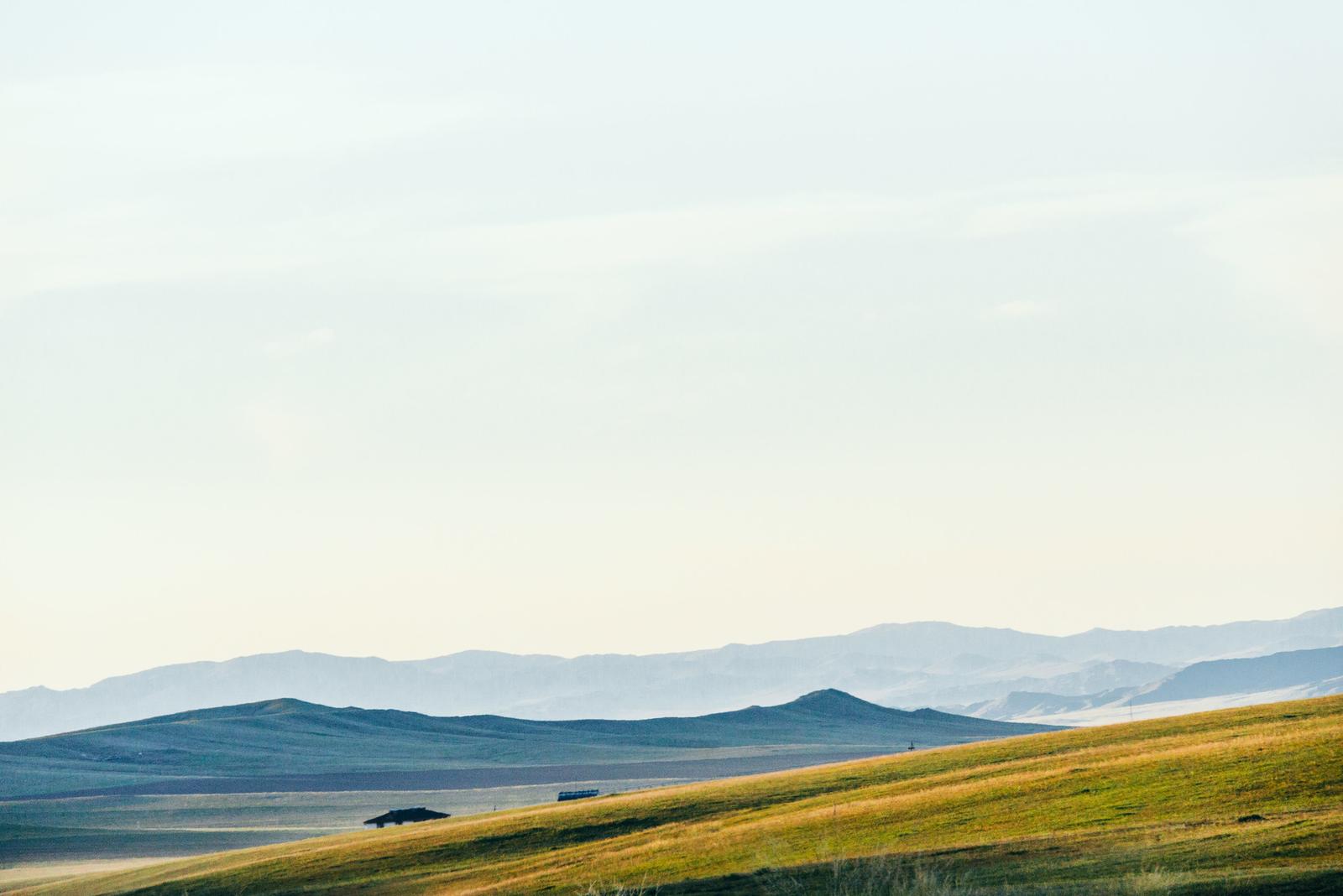
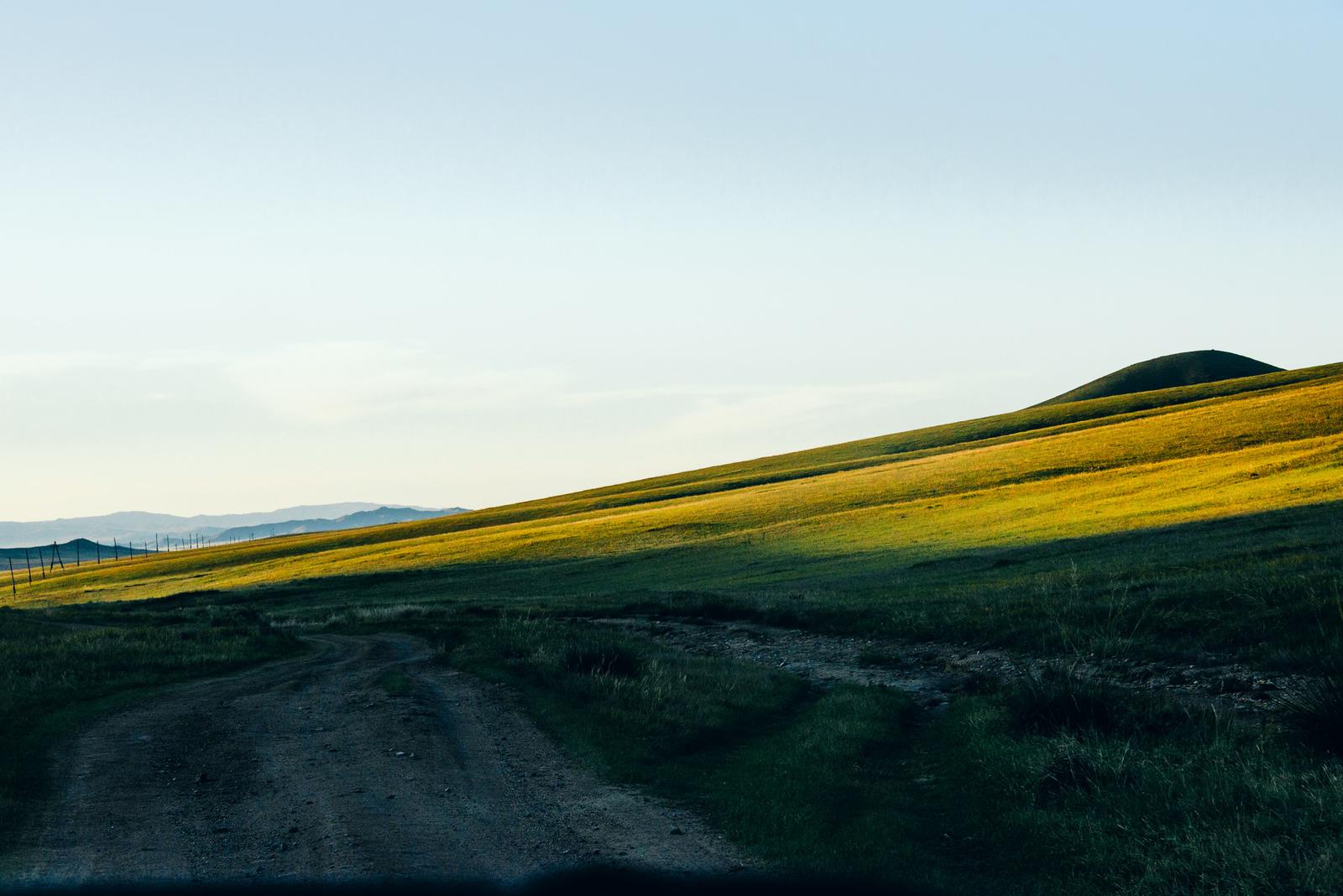
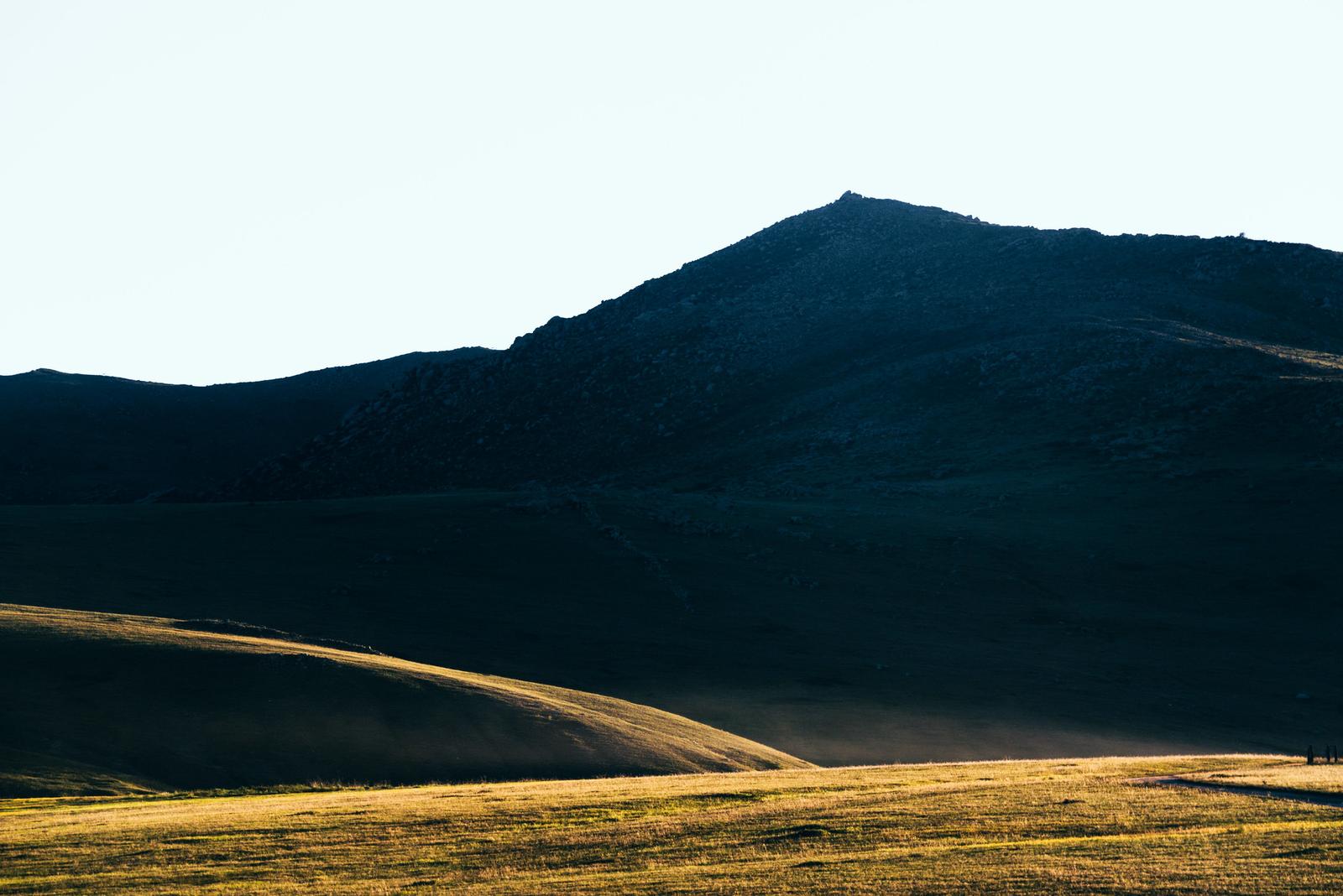
The plan was to observe wildlife at sunset when they became more active - that was the idea, but actually we had to hurry back as the sky turned golden. And no matter how much we rushed, traffic was inevitable.
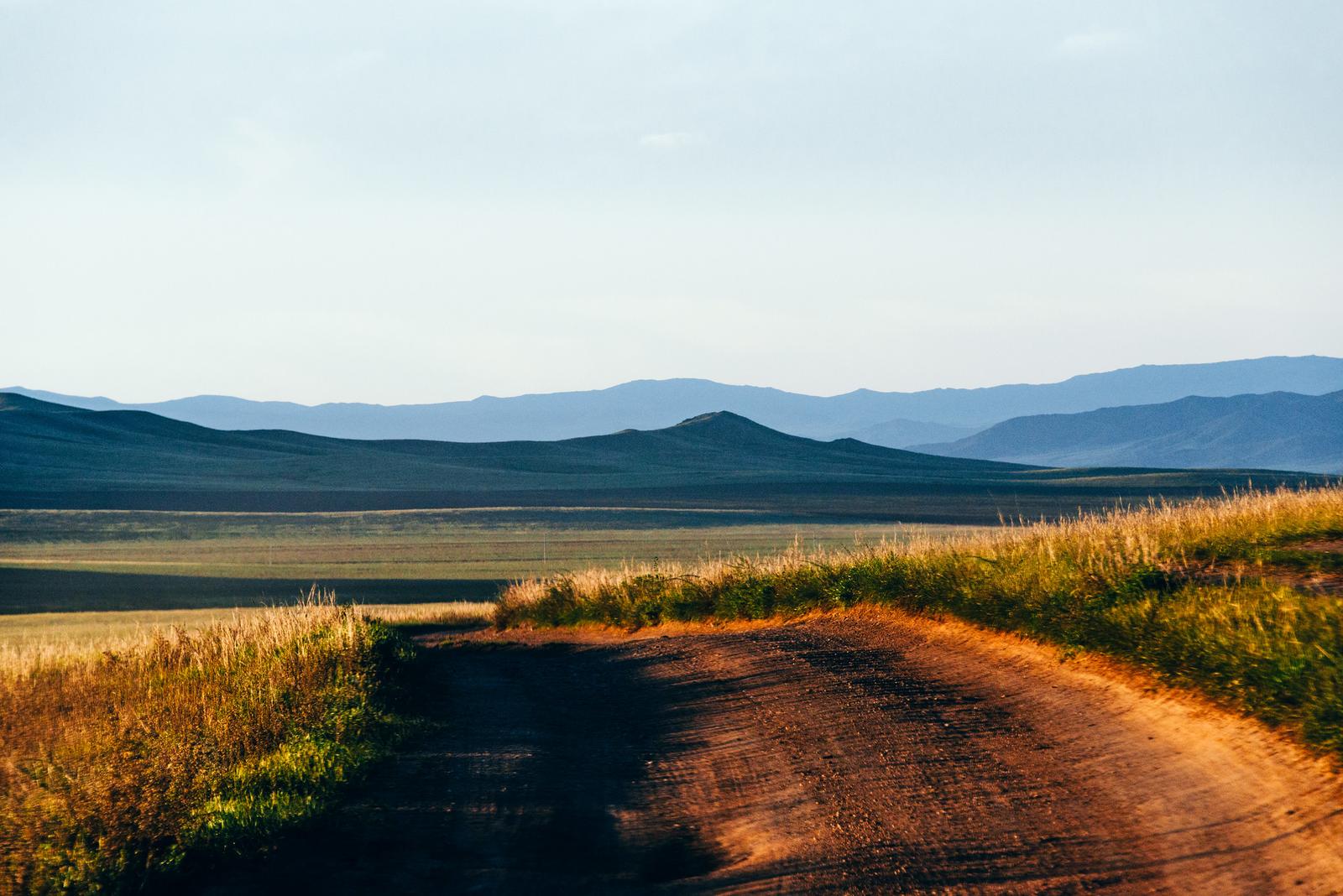
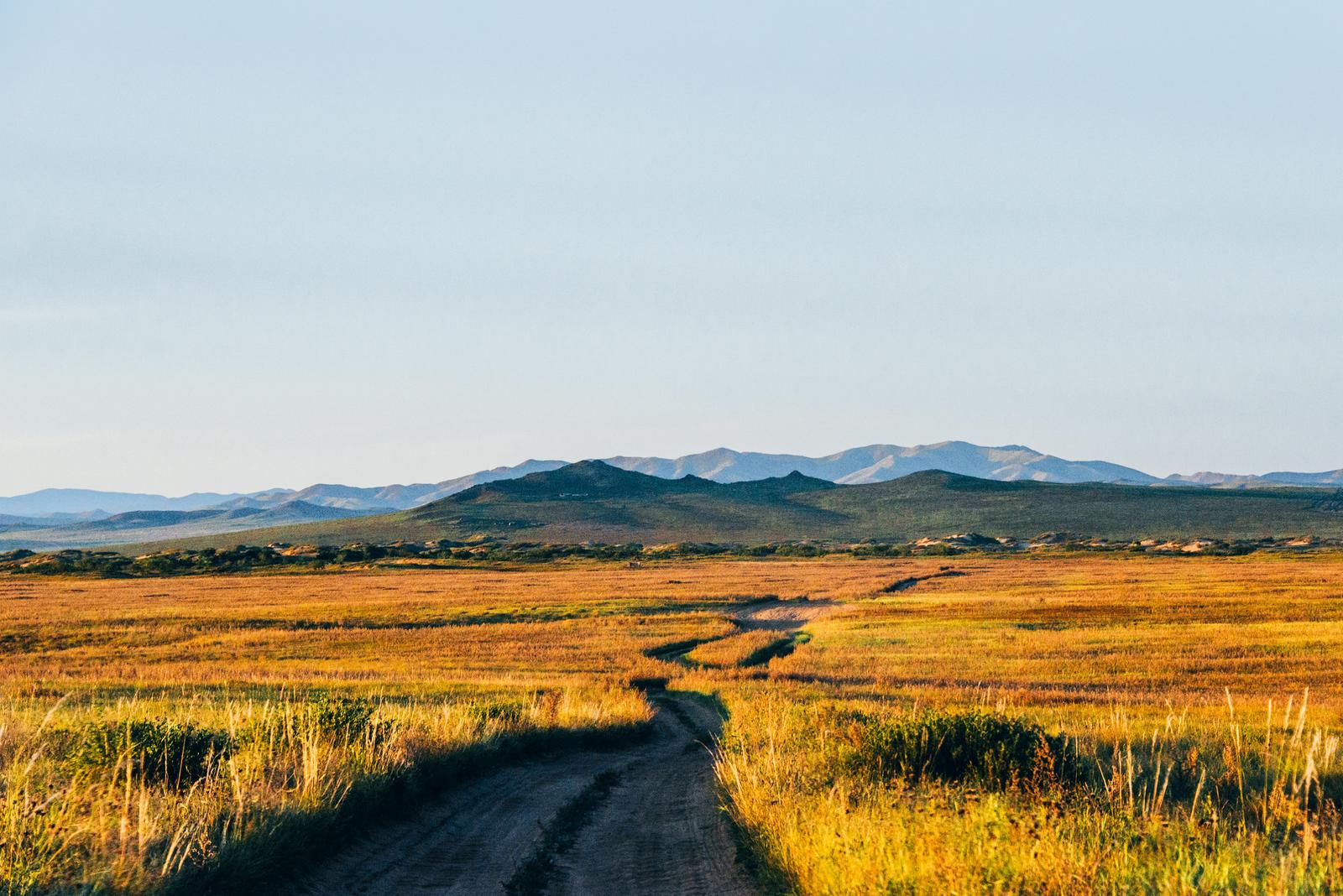
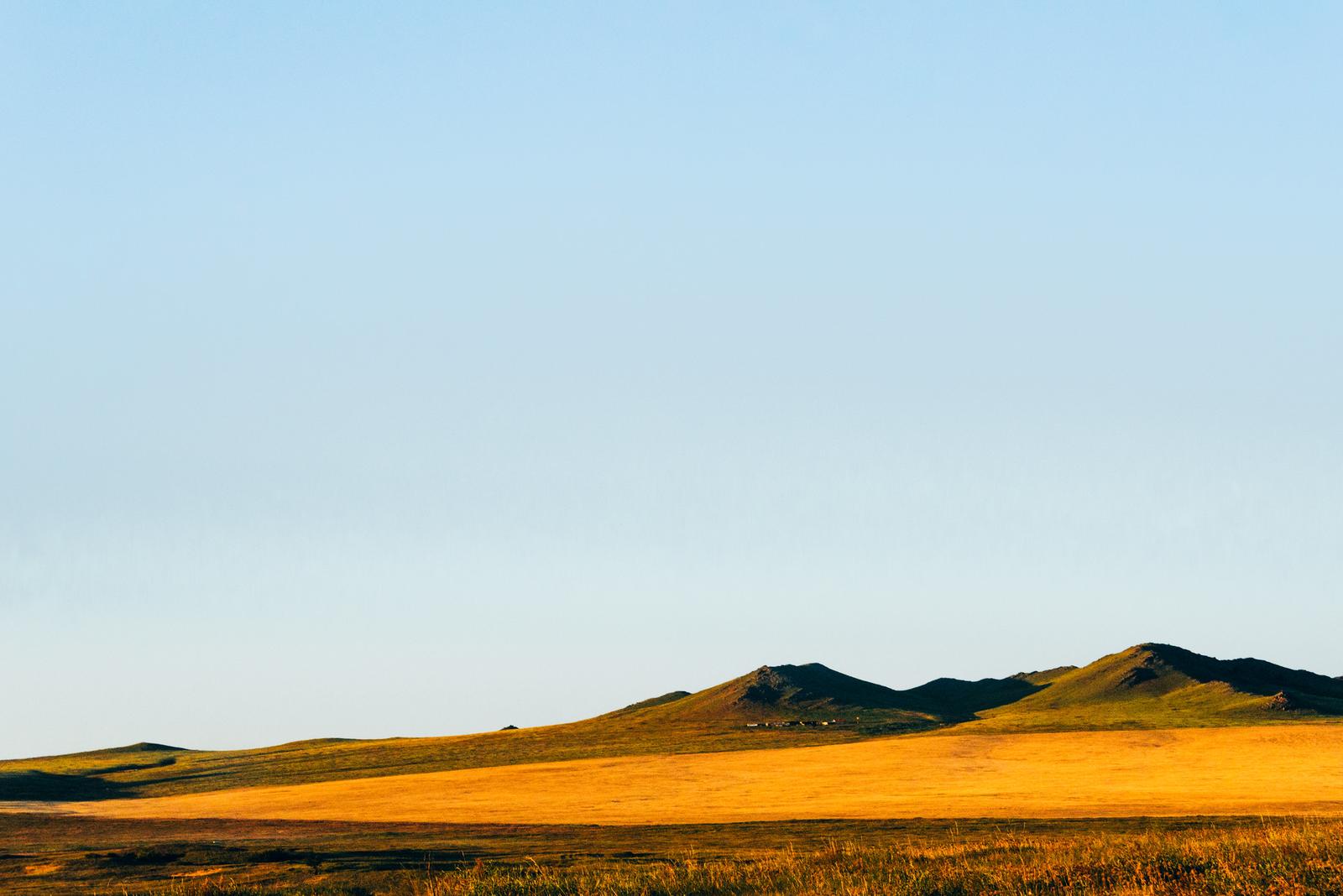
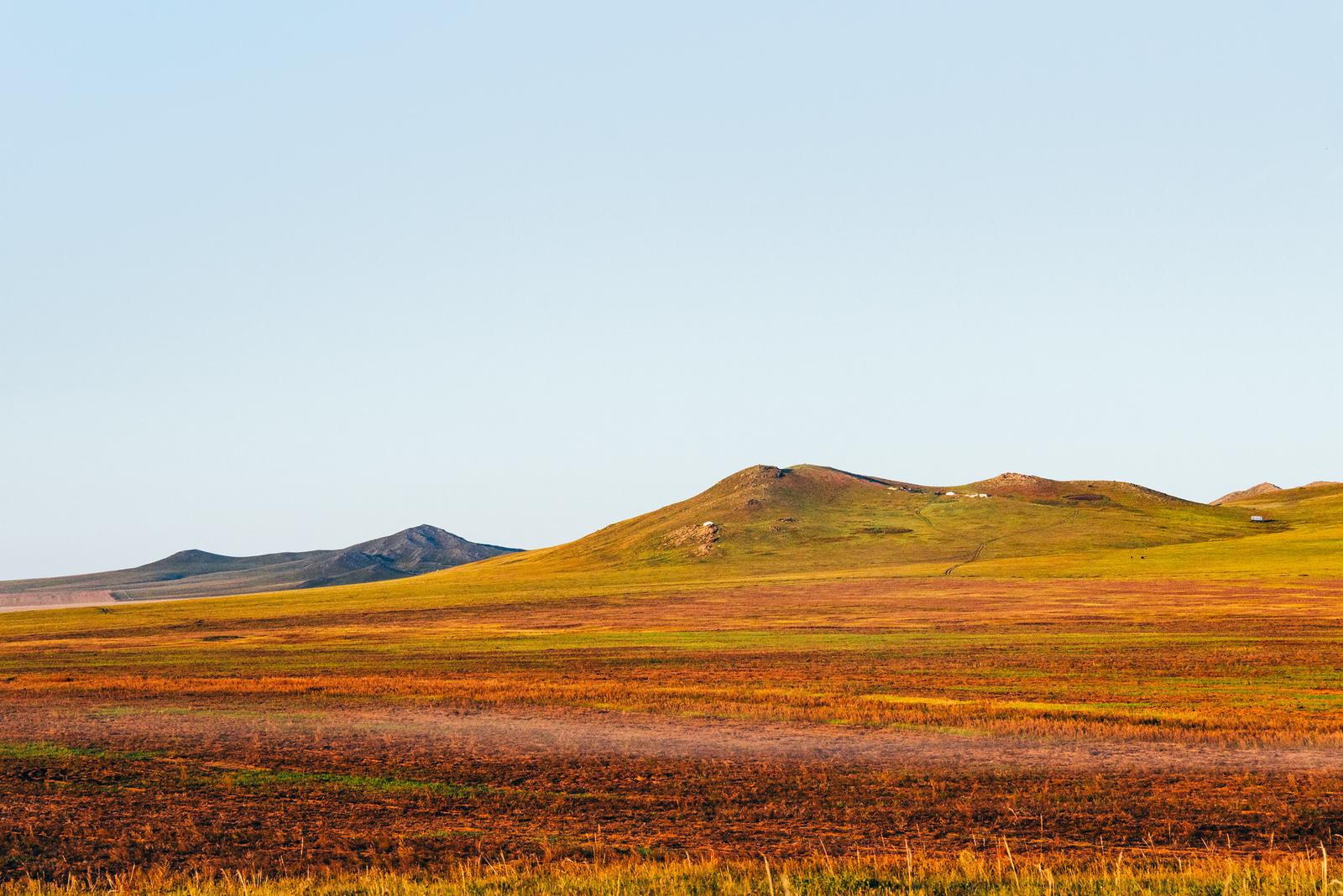

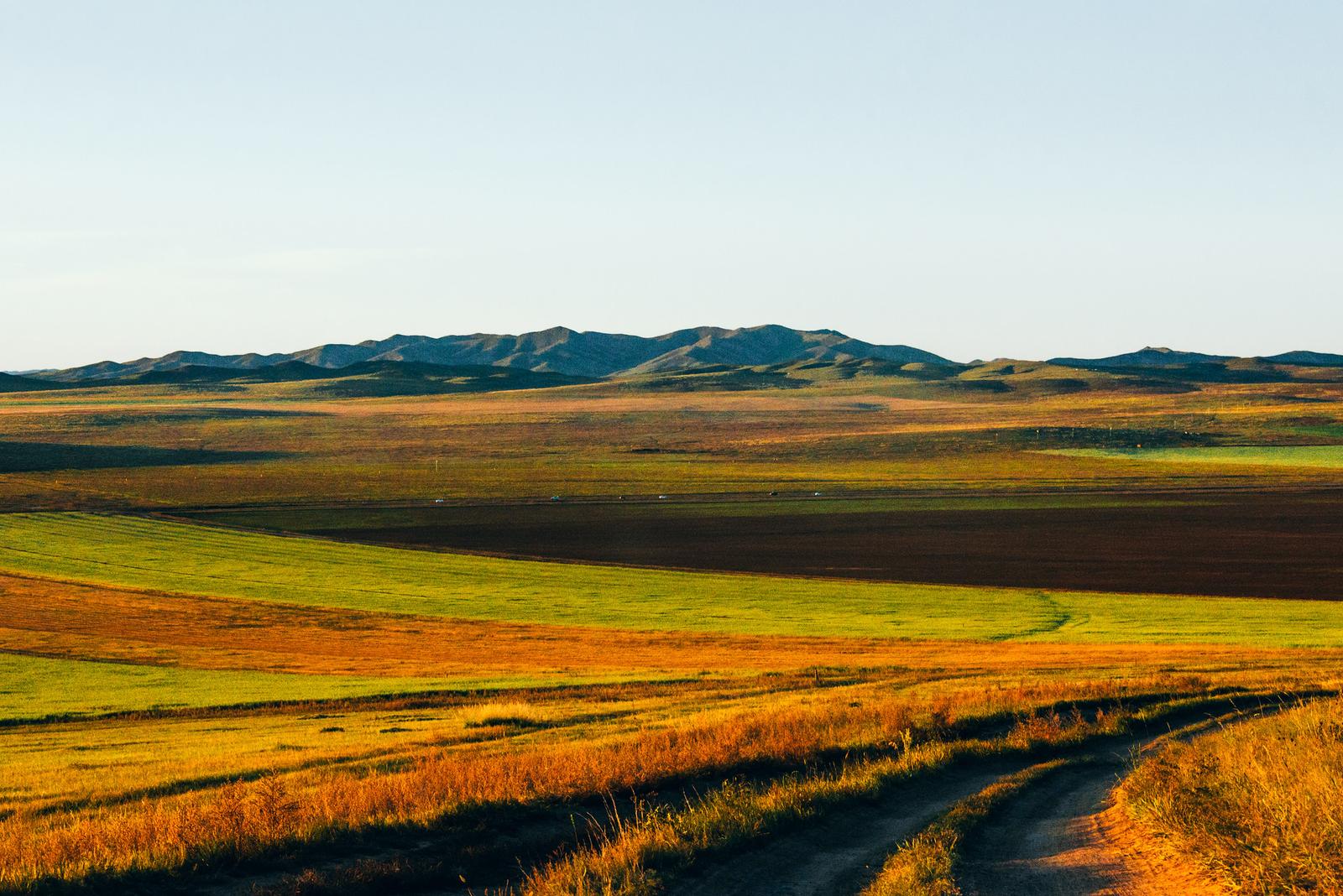

The undulating mountains on the horizon appeared like the perfect painting dedicated to the final traveling day in this land. The entire landscape was bathed in a deep crimson hue. There’s nothing to edit, or to enhance, nothing left to regret, after this adventure.
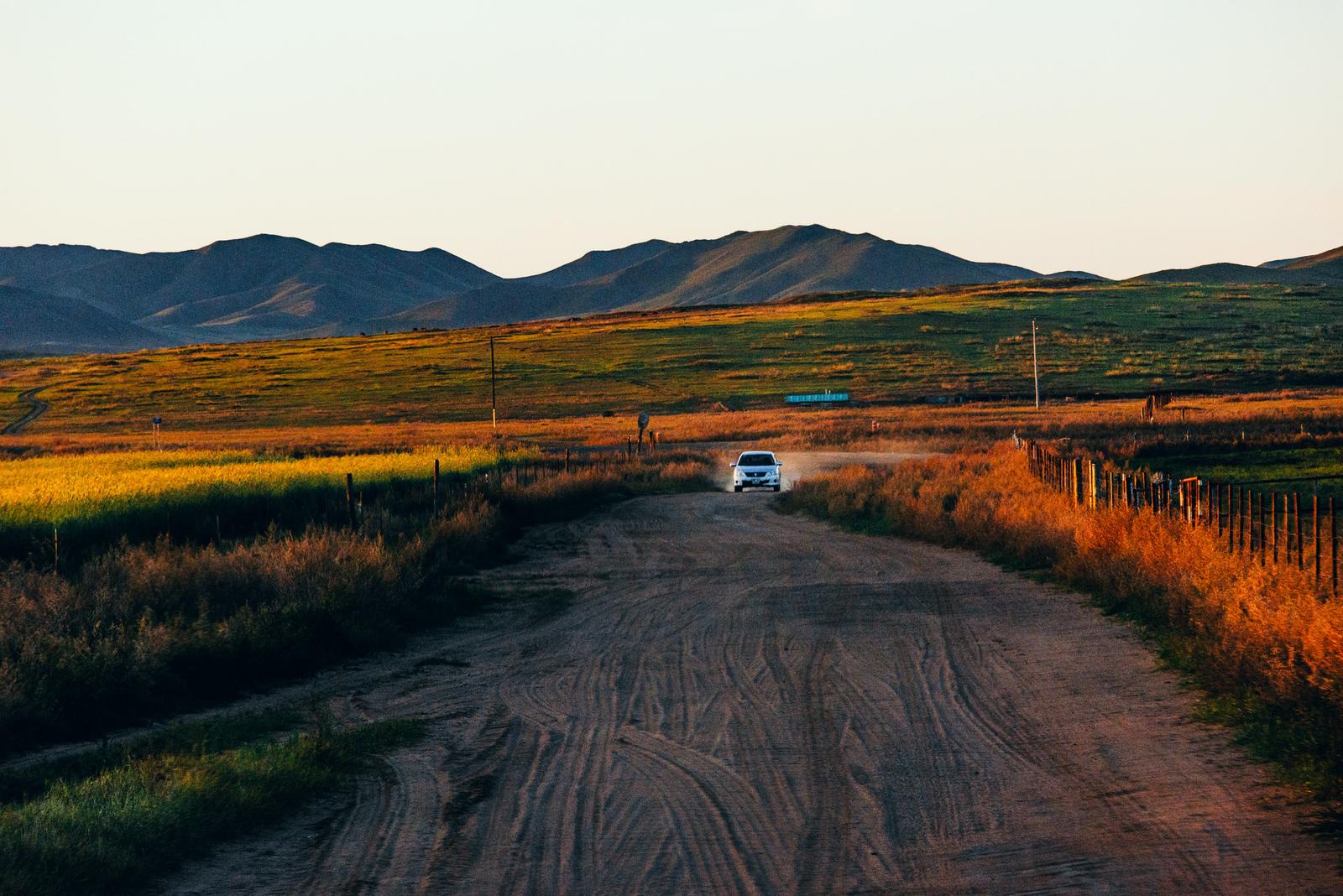
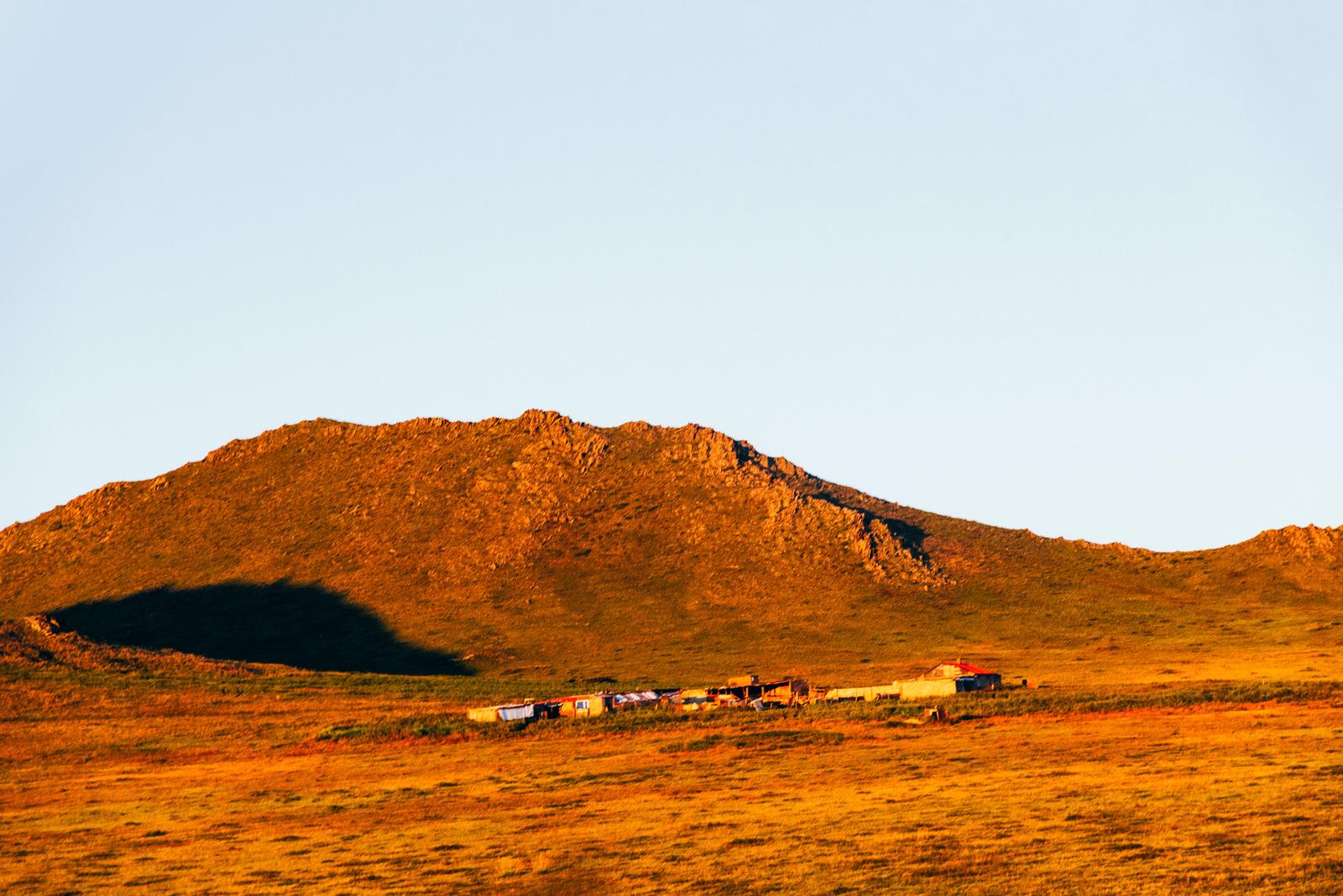
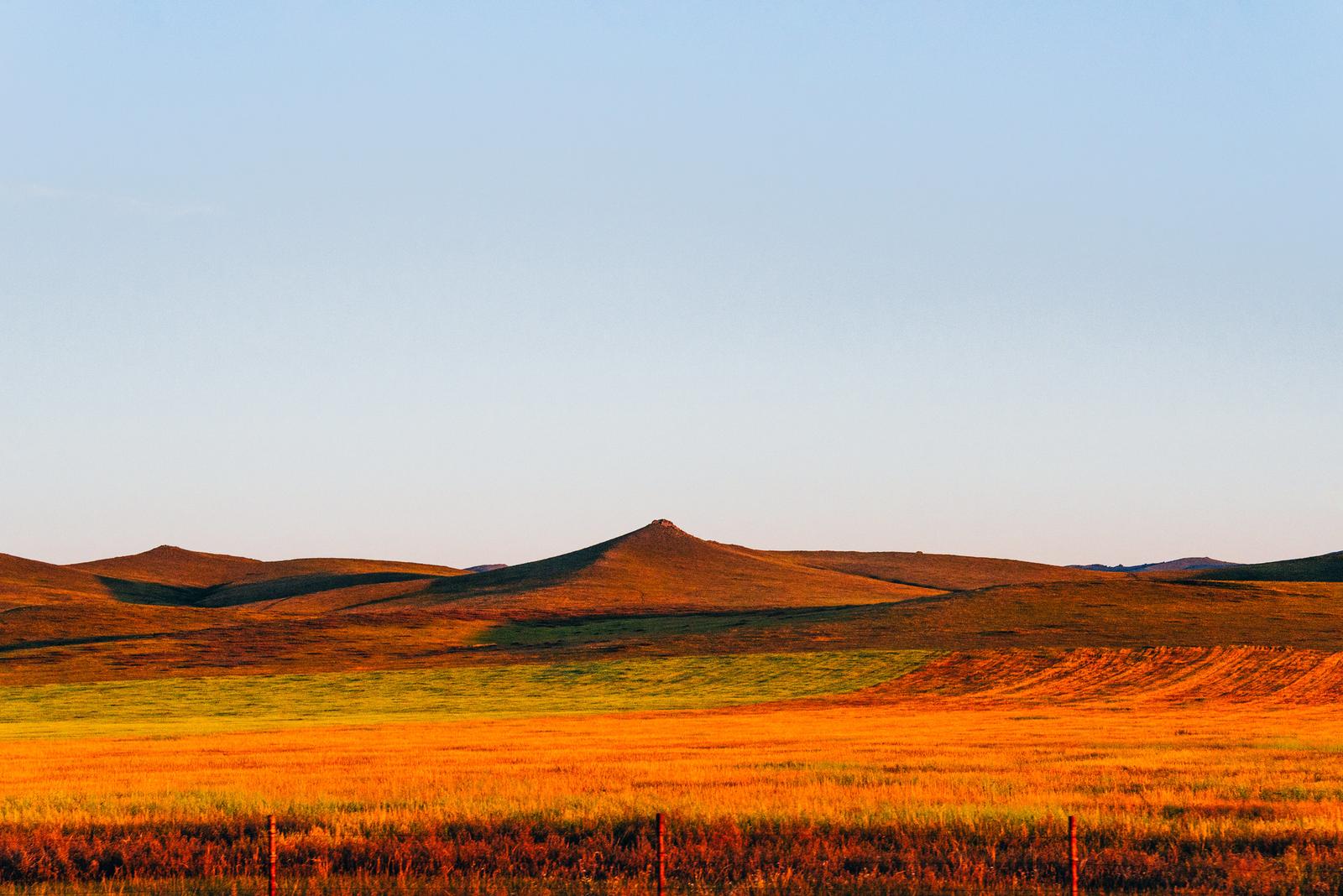
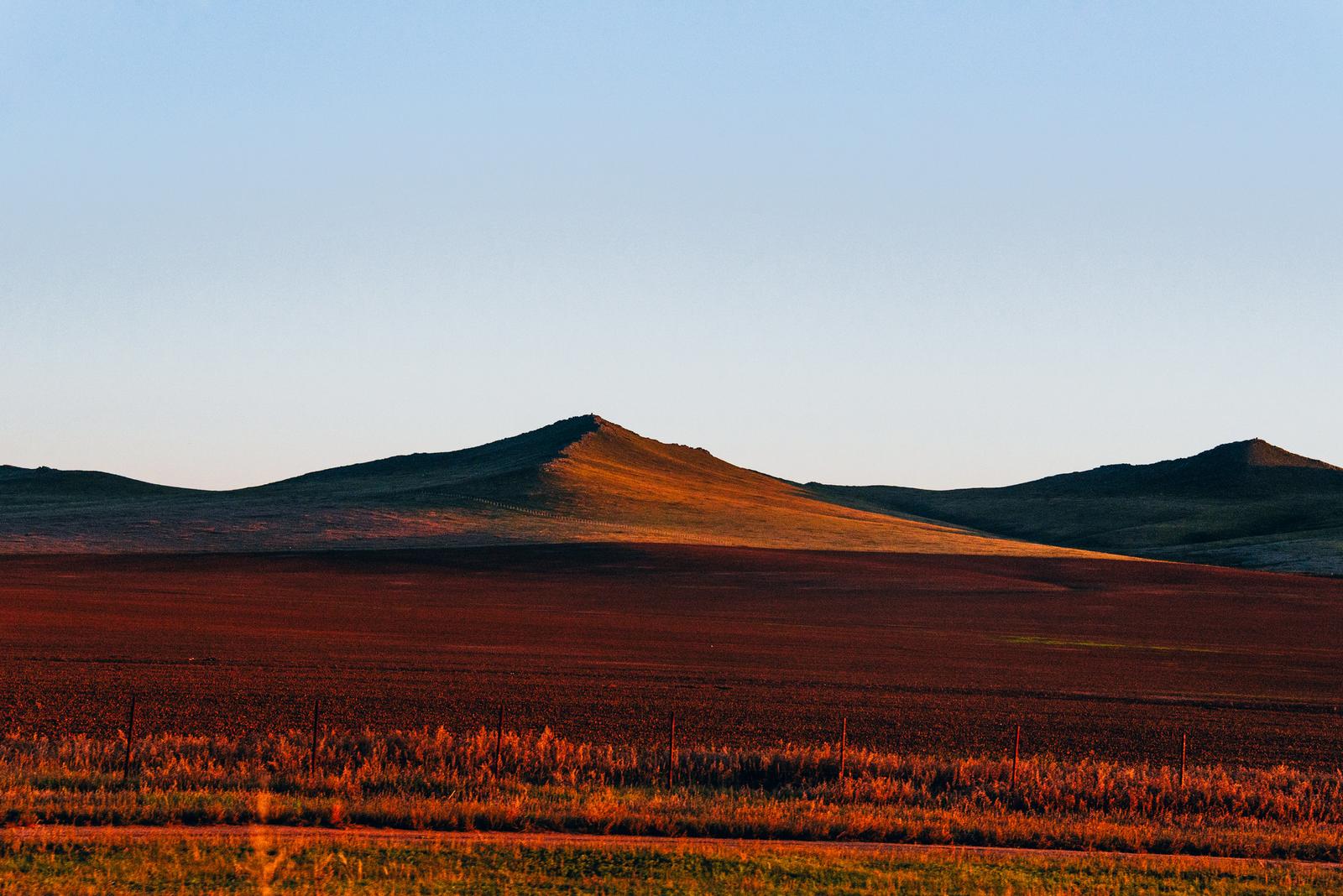

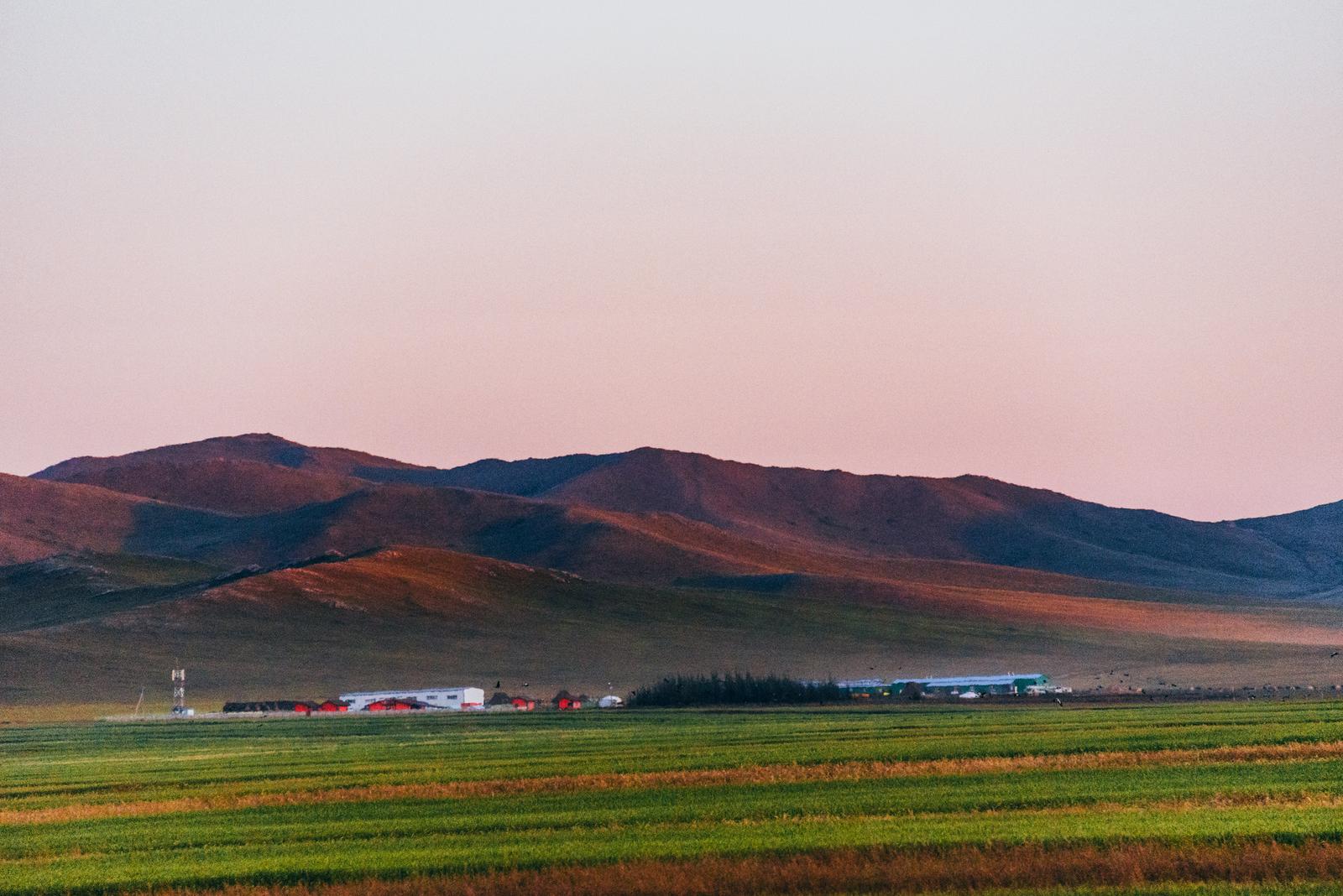
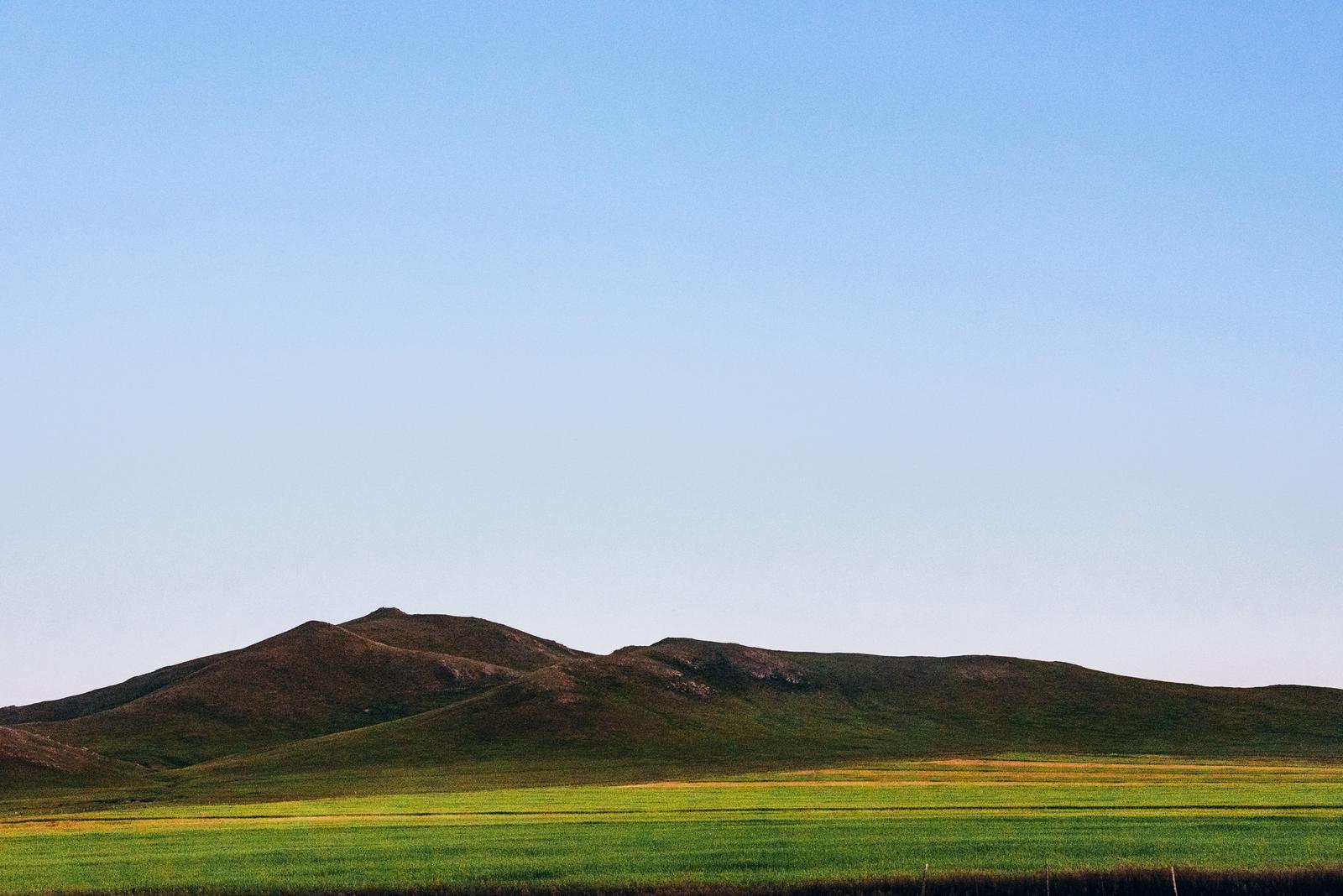
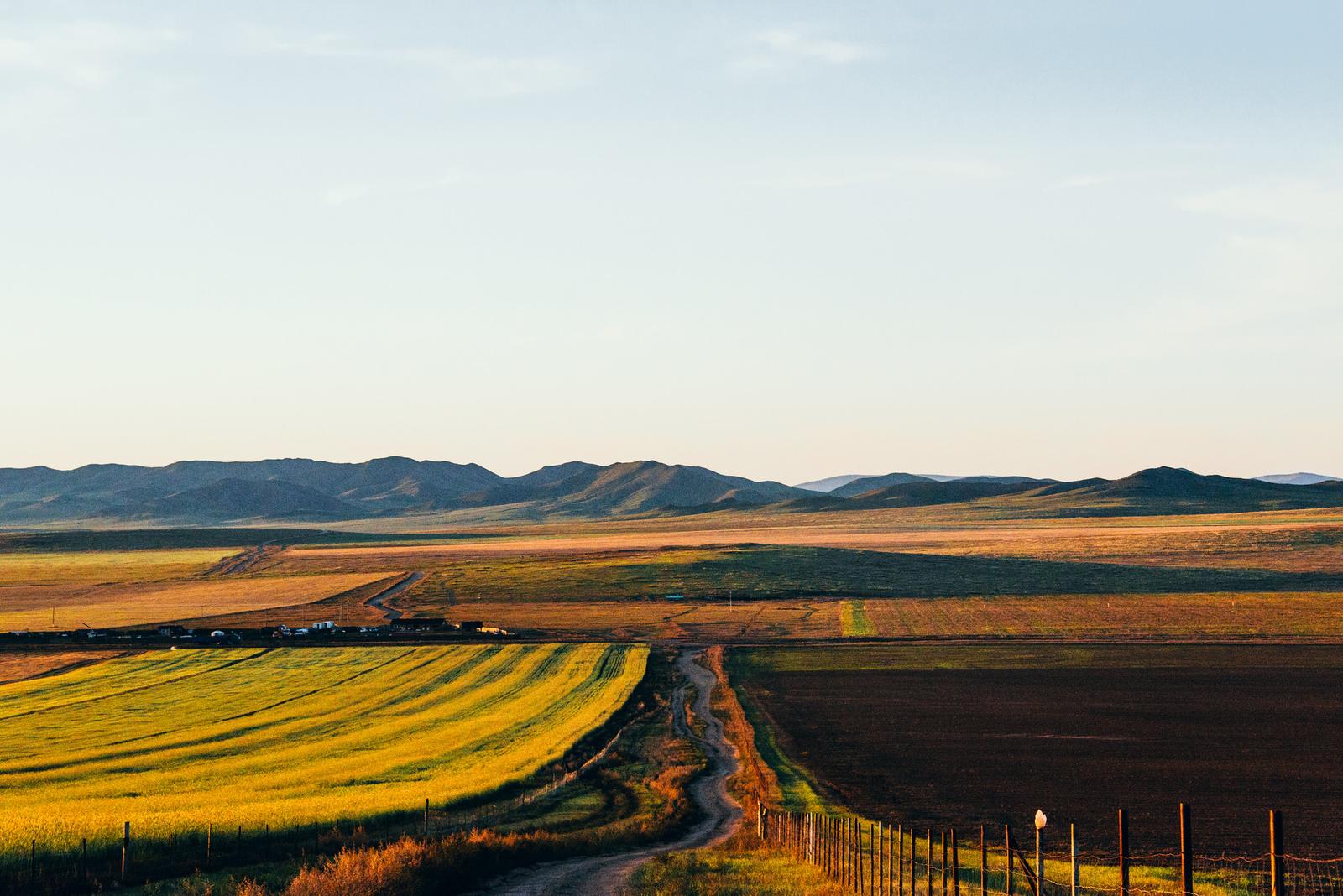
Comments
This post is a part of the Mongolia series.
© Zuyet Awarmatik
About
Zuyet Awarmatrip is a subsidiary identity within the personal ecosystem of Zuyet Awarmatik, focusing on travel and photography.
A Vietnamese usually regarding himself as a carefree solo Eastern backpacker, alongside with his main profession as a UX engineer. Neither being a freelancer nor a digital nomad, this website is built for the purpose of recording his life experience and happenings instead of letting them go into oblivion. He hopes these photos here shall always deliver the colorfulness of this worldly reality.
I believe the beauty throughout this journey came from minimalism, where the Earth presented us with distinct color patches, accented by solitary subjects.
